

Istanbul in July: Weather, Attractions, Tips for 2024!
Co-Founder of The Turkey Traveler. Globetrotter, Adventurer, and Frequent Traveler to Turkey!
This website uses affiliate links. For more information, click here .
Are you thinking of visiting Istanbul in July and wondering what it will be like? Istanbul is a vibrant city with so much to see and do, but with July being the height of summer, it might not be the best time to visit.
So is July a good time to visit Istanbul? July has hot and sunny weather and can get quite humid. It’s also the middle of the high season and sees large crowds of tourists this time of year. However, there are a few exciting events happening!
But was is Istanbul in July like? This complete guide will reveal everything you need to know!
Planning a trip to Istanbul last-minute?
Make sure you book your tours, places to stay, and airport transfers ahead of time to ensure availability!
Here is our recommended airport transfer in Istanbul:
- Airport Shuttle From Istanbul Airport (IST) or Sabiha Gocken International Airport (SAW) (Super affordable!)
Here are our recommended tours in Istanbul:
- Luxury Bosphorus Cruise At Sunset (A must-do In Istanbul)
- Whirling Dervishes Show (Unique experience!)
- Historical Turkish Bath Experience
- Istanbul Food And Culture Tour
Here are our recommended places to stay in Istanbul:
- Magnuara Palace Hotel (Gorgeous hotel in the historic centre!)
- Pera Palace Hotel
- Cheers Hostel (Budget hostel near the Blue Mosque!)
Istanbul Weather in July
July is one of the busiest months in Istanbul, partly due to the incredible Turkish weather that shines down onto the city. Summer in Turkey is hot, dry, and humid meaning visitors to the country can expect sunny days with little rain.
If you’ll be heading over to Istanbul in July, you simply have to make sure you pack plenty of sun cream. July is the very middle of summer for Turkey and the city of Istanbul, with the average temperature a very warm 24°C.
Daytime highs are around 28°C (82.4°F) but can creep into the low 30s (89.6°F) on some days. Things get much cooler overnight, with the average nighttime temps dropping to 17°C (62.6°F).
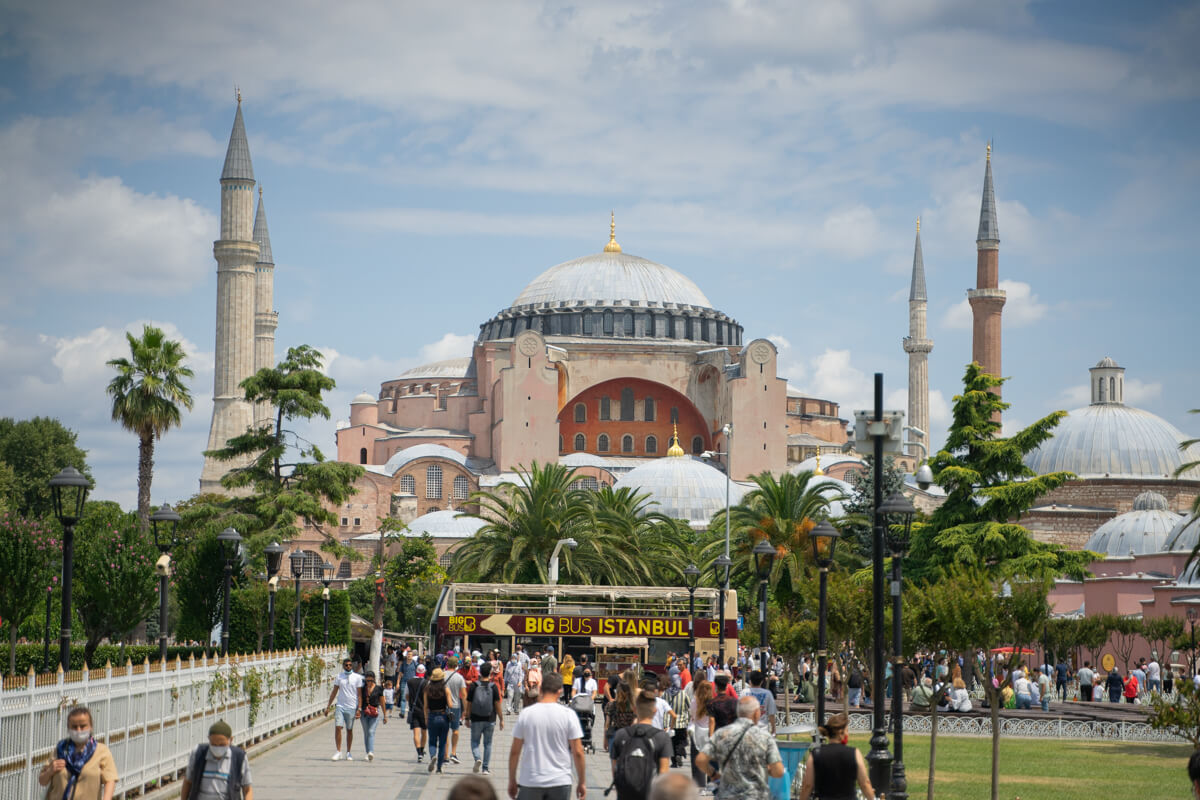
Being a subtropical climate, Turkey and indeed Istanbul experience rain throughout most of the year. July, however, is when the rainfall levels are at their lowest. An average of 30mm falls over only 3 days meaning you’ll have to be pretty unlucky to be caught in a shower.
The wind isn’t much of an issue at all in July, as although speeds can reach up to 13.5mph, it’s not particularly cold wind like it is in the winter months.
The wind will cool the city’s streets down slightly, sweeping away the hot, arid air. You’ll particularly notice the stronger winds down along the water’s edge, as it comes off of the sea.
After the summer solstice last month, the days are slowly getting shorter. The majority of visitors won’t notice this slight change, however, and will continue to have very long days.
At the start of July, sunrise is still almost at its earliest rising shortly after 05.30 am. It then sets below the horizon at 8.40 pm. Later on in the month, the first rays of sunlight hit Istanbul just before 06.00 am. It sets 14 hours and 22 minutes later at 8.21 pm.
Top Things to Do in Istanbul in July
It’s the middle of summer and tourists, visitors and locals have flocked to the city of Istanbul. July is a hot month, but you’ll likely know this already and will be well-prepared for hot days in the city.
There’s so much to do in Istanbul during the summer, it can be overwhelming to try and squeeze everything in. Here’s our list of the best things to do in Istanbul during July.
1. Visit the Topkapi Palace
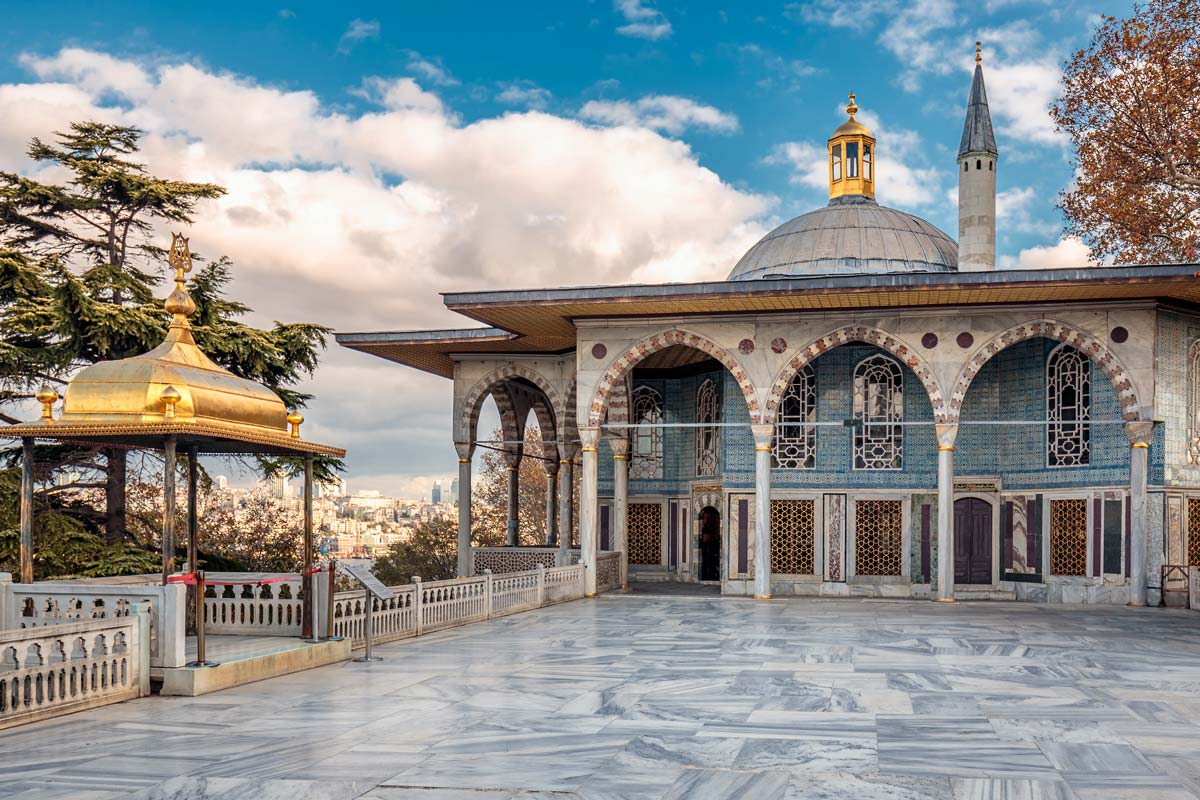
One of the best sights in all of Istanbul is the Topkapi Palace. Built by the Ottoman Sultan Mehmed II, construction on the Palace started in 1460 and lasted 18 years.
Originally the Sultan’s residence, the Palace is right next to the Marmara Sea and the Bosphorus, making this an excellent place to visit if you’d like to get out of the furnace of the city itself.
In 1923, this historical complex became a museum in Istanbul and to this day is one of the most famous in the world.
2. Visit the Blue Mosque
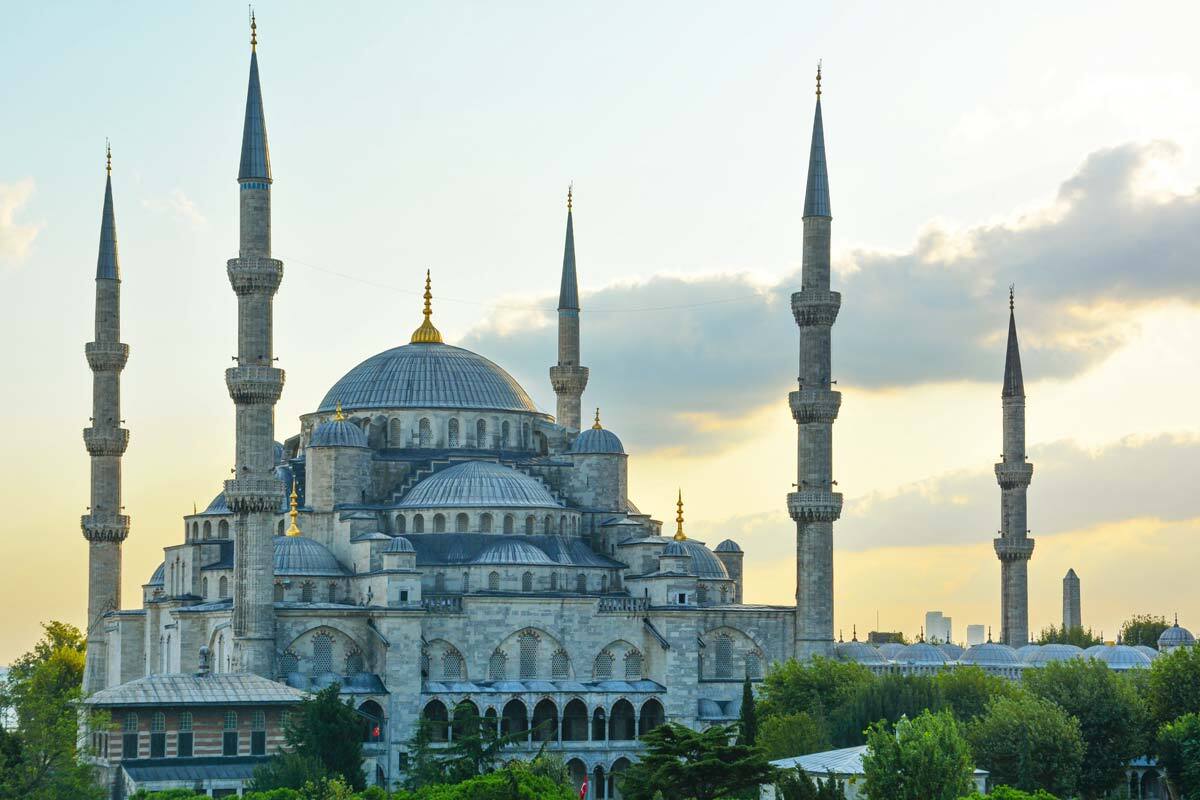
The Blue Mosque is one of the most famous mosques in all of Turkey. This can be attributed to its incredibly intricate and detailed hand-painted blue tile interior.
Sultan Ahmed, I began construction on the mosque in 1609, following the Ottoman’s defeat to the Persians in the Ottoman – Safavid War.
It was completed 7 years later in 1616. Its location means you can combine this beautiful mosque with visiting the Hagia Sophia – one of the unmissable attractions in the city.
3. Go to the Hagia Sophia
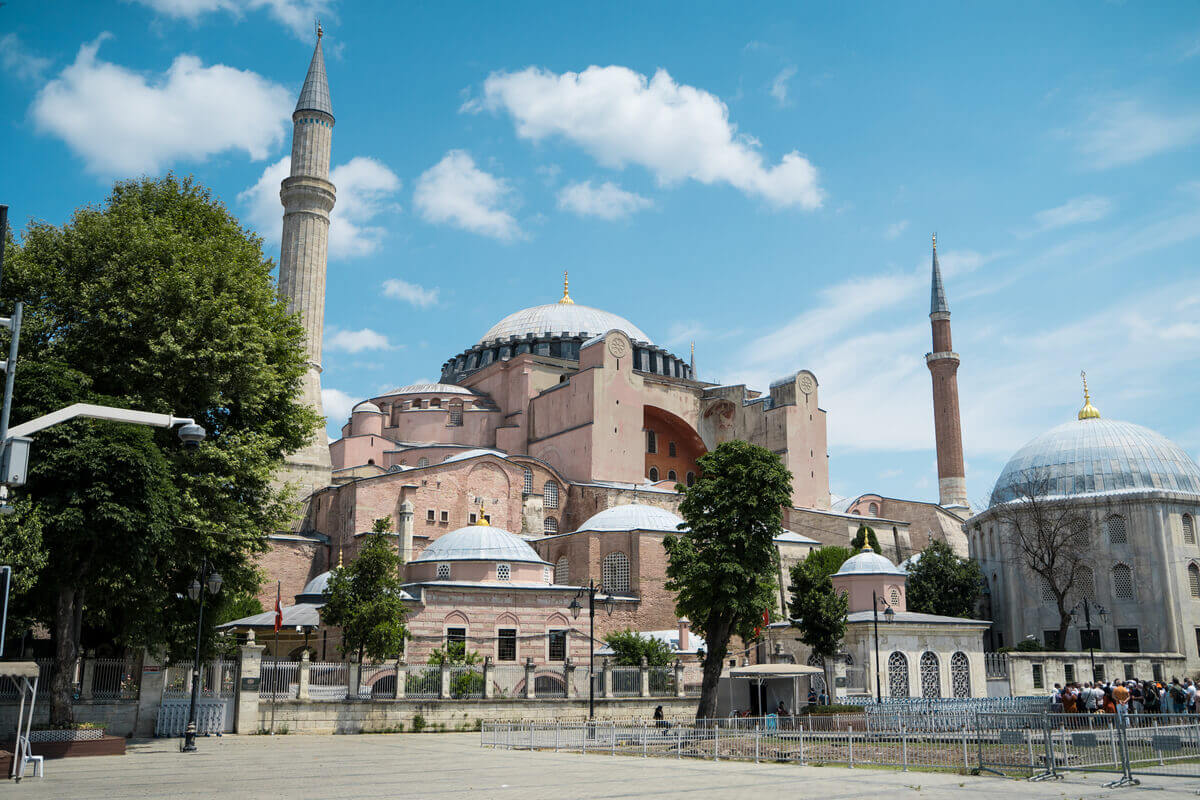
Built a mind-blowing 1500 years ago, the Hagia Sophia is undoubtedly one of Istanbul’s biggest, and most important attractions. Built by Roman Emperor Justinian I, it was originally a Greek Orthodox Church.
Following the Ottoman’s seizure of the city, it was subsequently turned into a mosque under Mehmed the Conqueror. The Hagia Sophia is widely considered the masterpiece of Byzantine architecture and just by visiting it, you can understand why. It’s simply breathtaking.
4. Delve Deep Underground in the Basilica Cistern
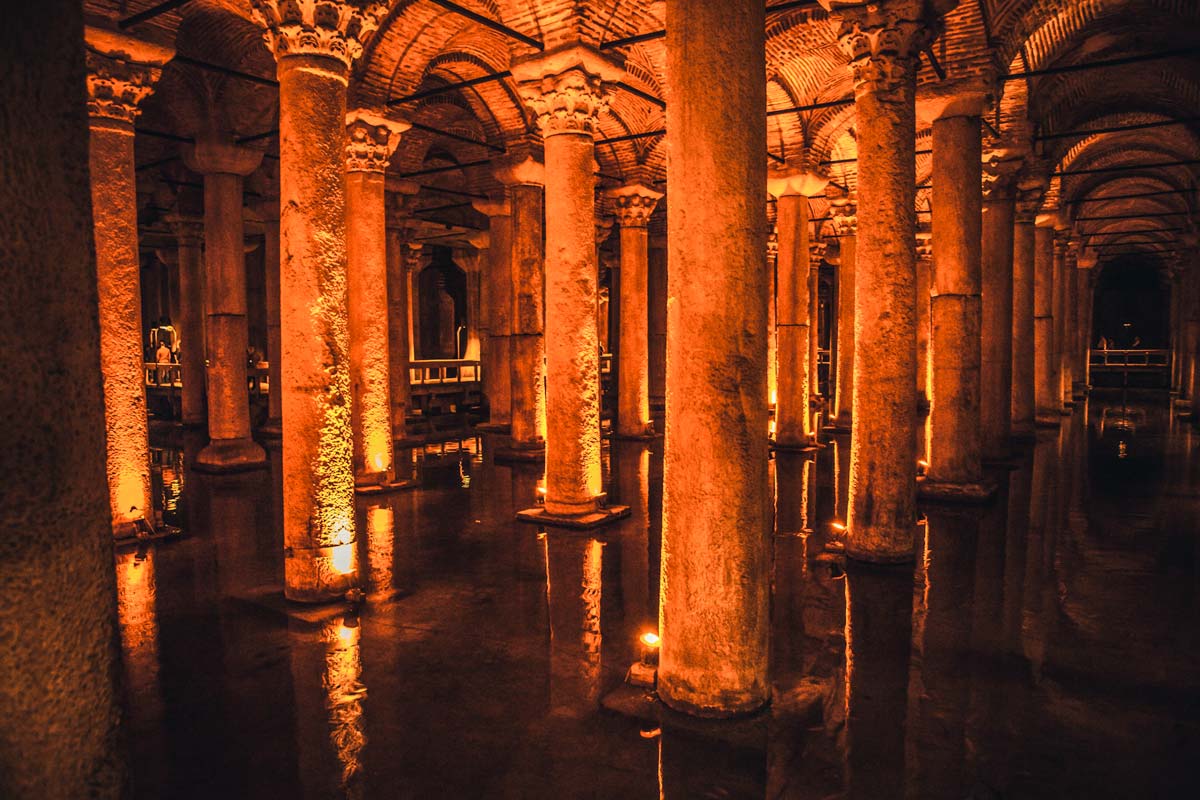
Temperatures in July can reach the low 30s, so if you need to take a break from the blazing Turkish sunshine but don’t want to waste any time, a visit to the Basilica Cistern should be at the top of your to-do list.
By far the largest of several medieval cisterns underneath the streets of Istanbul, the Basilica Cistern was built as a water filtration system for some of the city’s most important buildings.
The Cistern’s 336 columns give the place a very eerie feel to it, almost like you’re standing amongst the Romans themselves.
5. Take A Trip to the Beach
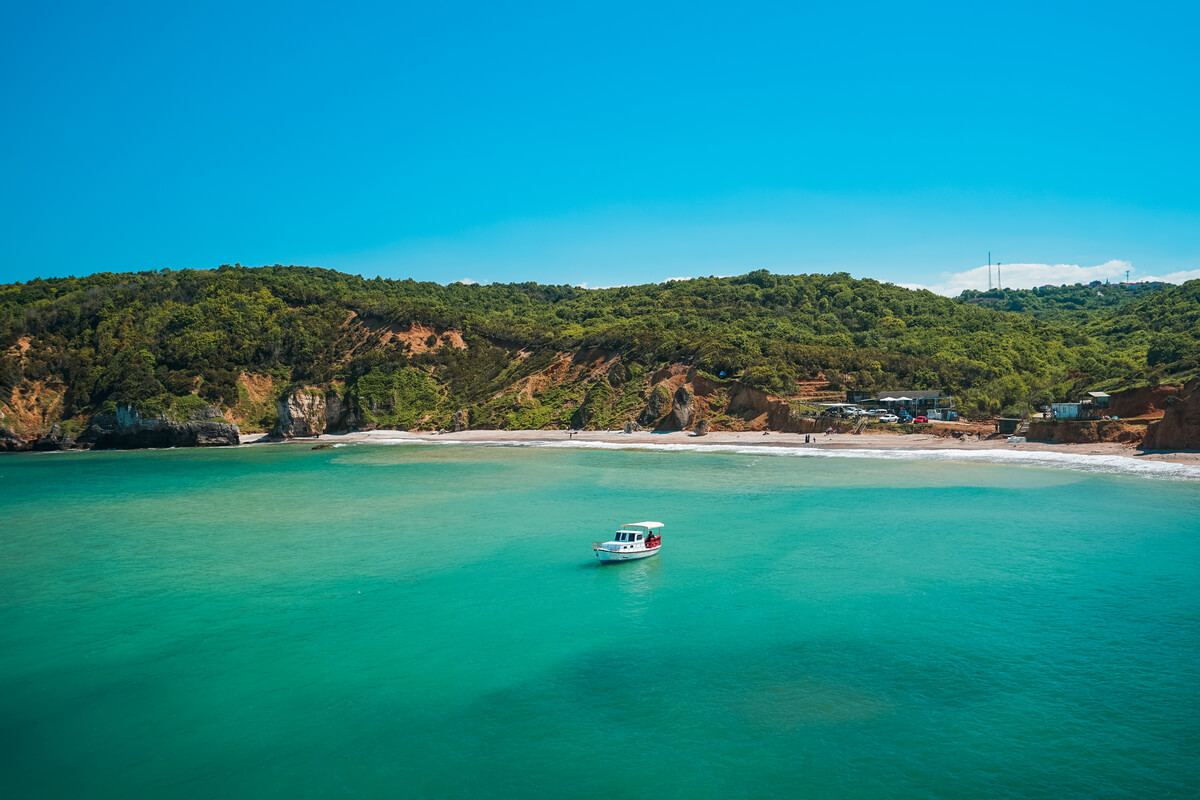
Arguably one of the best things to do on a holiday to Turkey is to head down to the beach. A trip to Istanbul, especially in July, should be no different!
There’s a huge number of beautiful beaches ready for you to relax on, all just a short drive away from the city itself.
The Black Sea to the north or the Marmara Sea to the south are your best bets for beautiful beaches. The small quaint town of Şile is littered with small, sandy beaches perfect for a little getaway from the city. This small part of Turkey is gorgeous and it has a true locals feel to it.
6. Visit the International Jazz Festival
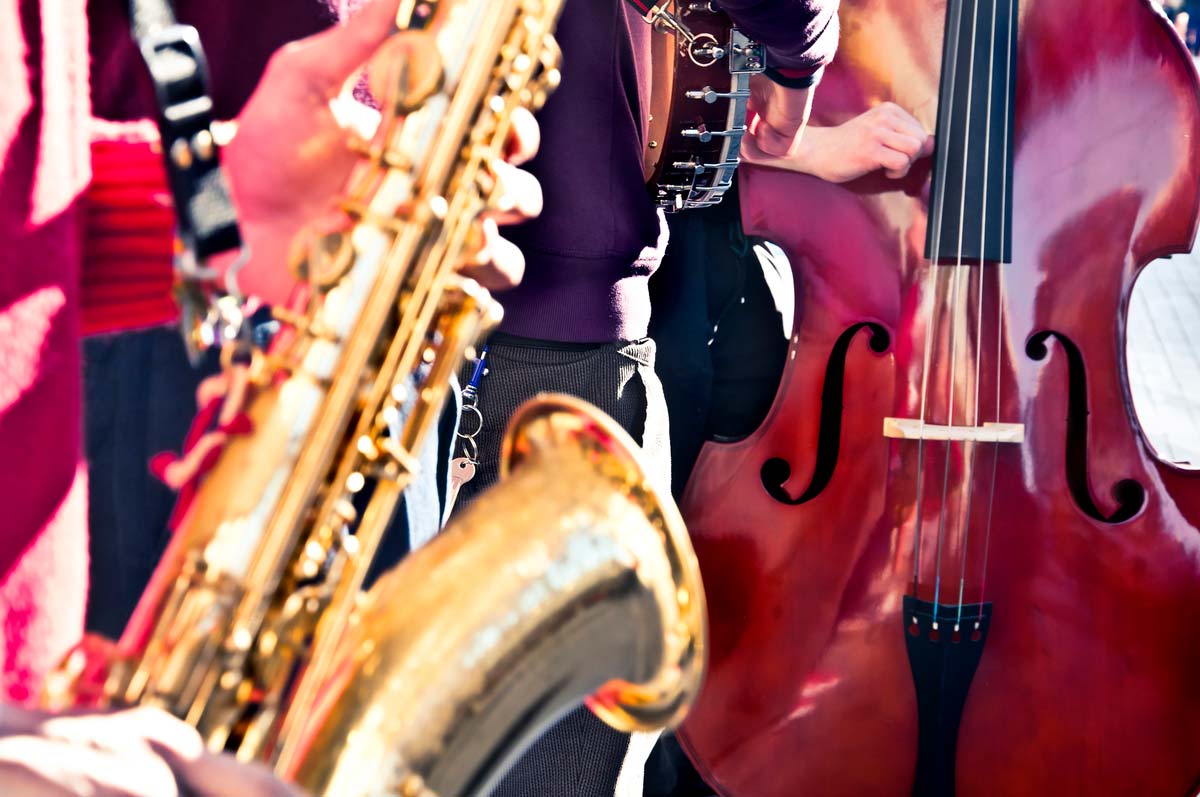
The International Jazz Festival of Istanbul is held annually every year throughout the month of July.
Usually lasting three weeks, it’s a huge celebration of Jazz, and visitors to the city can enjoy spectacular performances from a range of artists in the jazz, soul, and blues genre all in the heart of the city.
It’s an excellent place to meet like-minded tourists and indeed locals, and share your passion for the music.
If you’re looking for something a little different, book yourself onto a jazz boat and sail the Bosphorus with a live jazz performance for you to enjoy. Now that’s a memorable evening!
7. Visit Balat
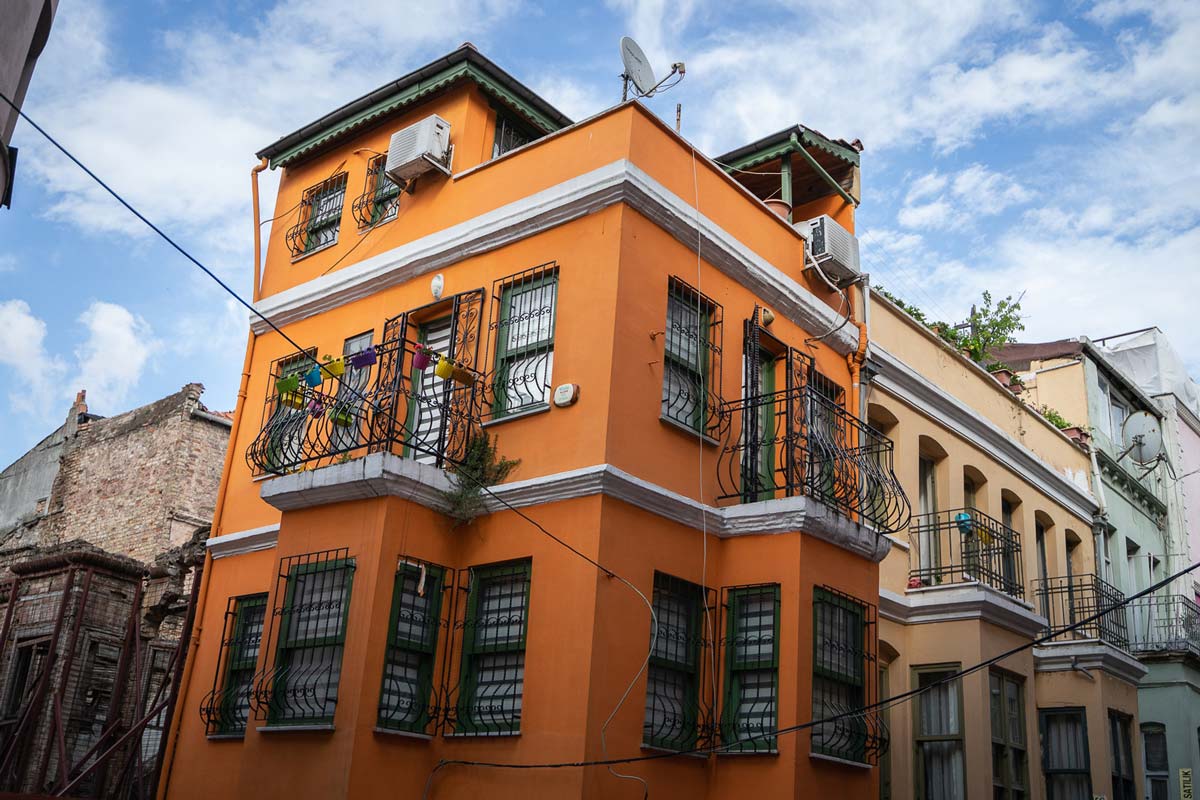
Often described as one of Istanbul’s best ‘hidden gems’, the colorful neighborhood of Balat is certainly worth a little visit.
Littered with vibrantly colored houses, dinky cafés, and just all round feel-good summery vibes, this is definitely worth its short trip from the main city center.
We recommend visiting in the morning so you can beat the heat of the day and it’s also a little quieter, meaning you can snap some pictures for the ‘gram without anyone else in them.
Stop off for a quick bite to eat in one of the many eateries, and head back to the city to carry on exploring.
8. Sail the Bosphorus on a Cruise
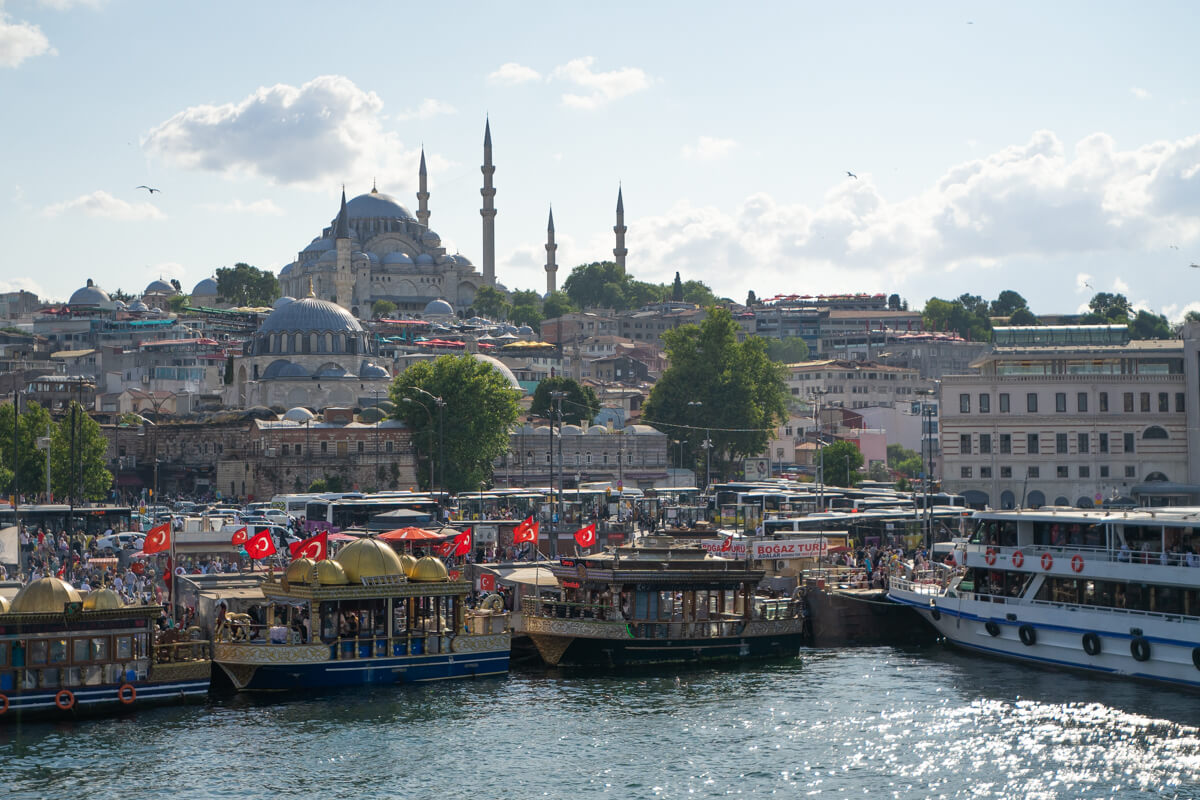
Holidays and trips away are all about making the best memories. Sailing down the Bosphorus on a gorgeously, and typically Turkish summer day is surely one of the best memories anyone can have.
It’s not just about seeing the sights either, your guide will give you the rundown on each attraction you sail past meaning you’ll be an Istanbul expert by the time you get off.
If you’d like to push the boat out (pun definitely intended), then book yourself on to a dinner and sunset cruise.
9. Visit Galata Tower
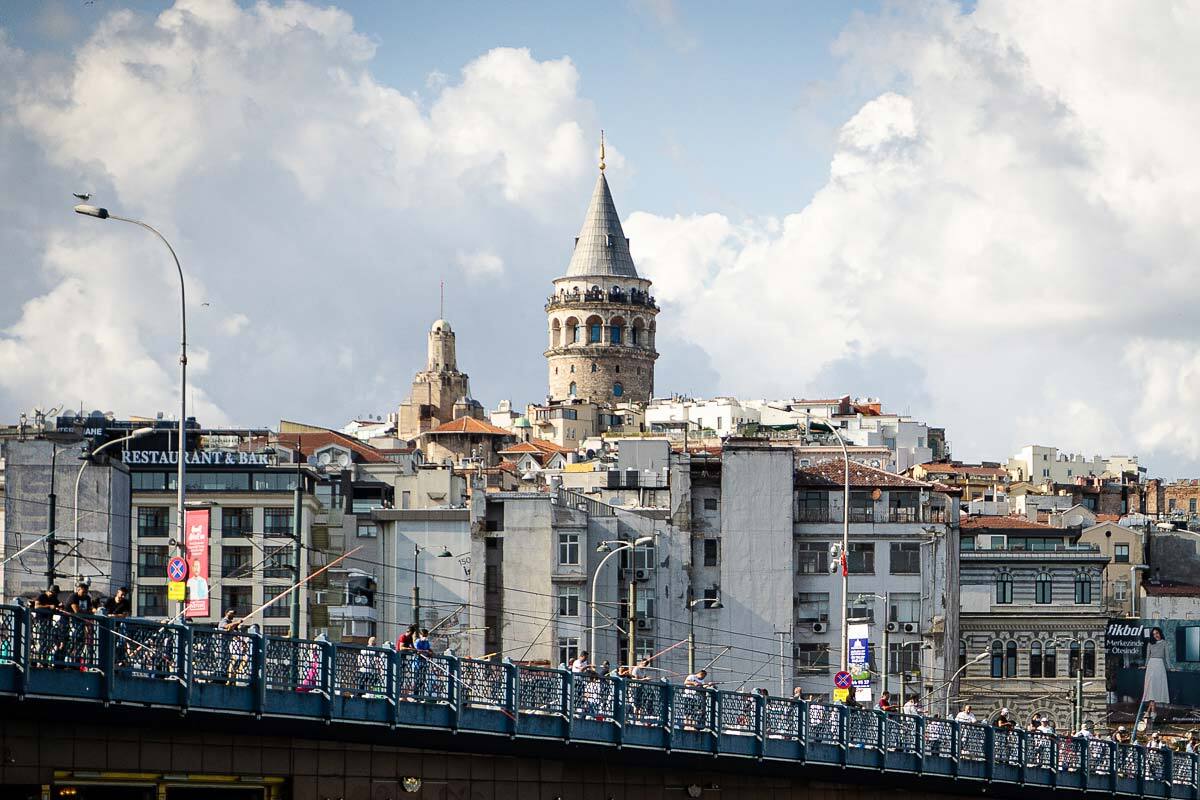
Galata is one of the main areas of the city. It’s home to medieval churches, museums, main shopping streets, and perhaps most famously of all, the Galata Tower.
It is here where you can get the most stunning views of the city, after all, it was built as a watchtower to defend the city of Constantinople.
If you’re feeling a little peckish after climbing the 146 stairs, fear not, as there is a restaurant in the tower serving authentic Turkish cuisine.
10. Pig Out on a Food Tour

One of the best things about summer in Istanbul is that when the blazing sun goes down and it gets a little cooler, the streets come alive with all kinds of food hawkers and souvenir sellers.
It’s easy to feel overwhelmed in Istanbul, so if you don’t know where to begin, why not book yourself on a food tour?
You’ll get a friendly, knowledgeable guide and you’ll get to eat some of the best street foods the city has to offer.
Festivals and Events
The good thing about visiting Istanbul this time of year is that there are lots of events and festivals to experience. Here are just a few of our favorites:
25 th June – 7 th July – International Jazz Festival
Organized by IKSV, the International Jazz Festival is a three-week-long celebration of all things jazz, featuring live performances in some iconic venues. It begins at the end of June and runs through the first week of July.
If you’re in the city, this is one event not to miss.
10 th – 12 th July – Electronica Festival
If you’re partial to a bit of electronic music, then Electronica Festival might be what you’re looking for. Taking place in the coastal town of Kumkoy, this three-day music festival brings the best of Turkish electronic music together to create a wonderful, summer music event. It’s a little out of the city so a taxi will be required.
15th July – Democracy & National Solidarity Day
The Democracy and National Solidarity Day takes place on the 15th of July and is a national holiday dedicated to remembering those who lost their lives defending the failed coup of 2016.
On this day, 259 people, mostly civilians, lost their lives after a rogue military group tried to overthrow President Erdogan. A further 2,500 were wounded in the attempt.
The bridge across the Golden Horn was a spot of battle on this day, and so is a significant area to visit on this date.
You may find opening hours for attractions differ on this day.
20th July – One Love Festival
Another popular music festival in Istanbul is One Love Festival , which takes place on the 20th July, 2023.
This Istanbul festival hosts a range of concerts from multiple genres, including DJs and popular artists such as Years and Years, Palms Trax, and The Blaze.
22nd – 25th July – International Music & Folk – Dance Festival
The International Music and Folk Dance festival is a place where choral groups, ballroom dancers, dance schools, and orchestras can come together and share their talent.
The exact details of the event are yet to be announced, but we will update this as soon as we can.
Bosphorus Cross Continental Swim Race
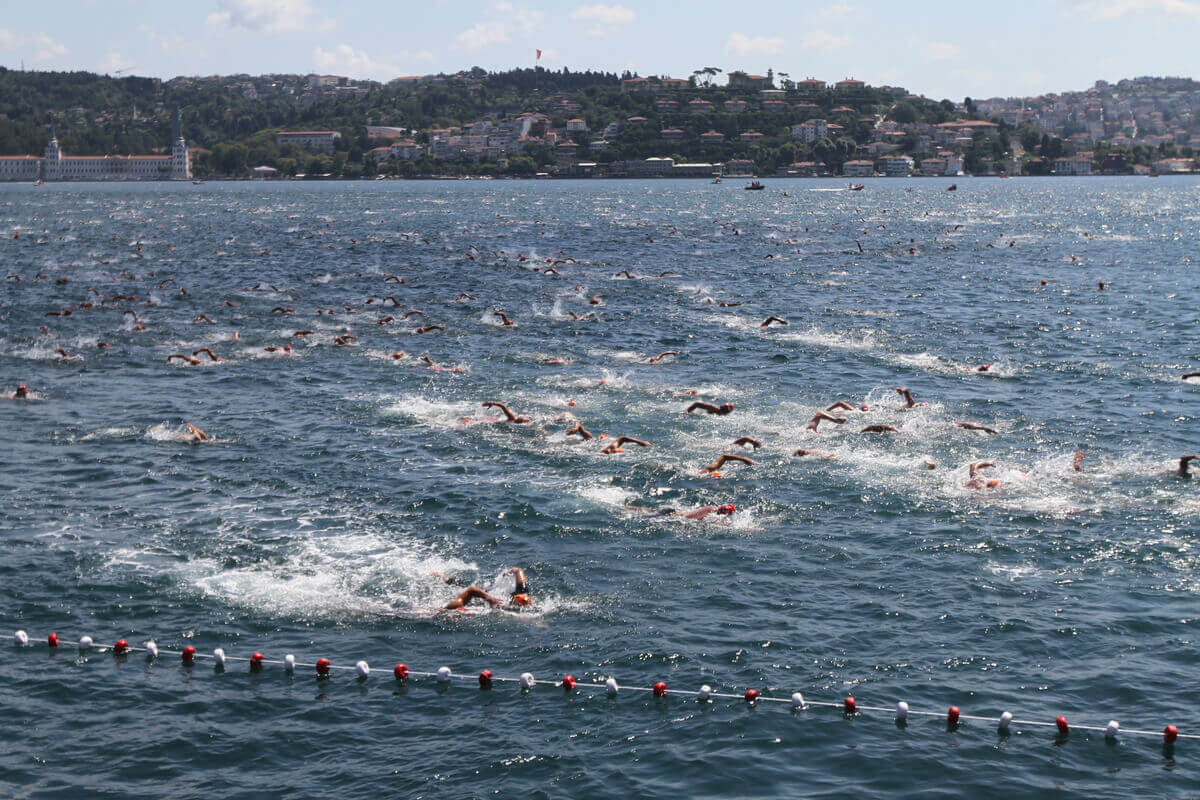
A total of 1200 foreign swimmers compete in this huge open water swimming race between the two continents, Europe and Asia.
The event has been running every year since July 1989 and is one of the biggest open-water swimming events in the world.
Swimmers must swim from Kanlıca to Cemil Topuzlu Park in Kuruçeşme, just north of the Bosphorus Bridge.
The exact date of this event is yet to be announced, but we will update this post as soon as we find out.
Pros and Cons of Visiting Istanbul in July
So, as we’ve discussed, Istanbul is an incredible city that has so much to offer in any month of the year. If you’re still not sure if Istanbul is worth visiting in July, here’s a breakdown of the pros and cons.
- Long, sunny days with very little rain.
- All attractions are open.
- Summer nights in Istanbul are one of the best things about the city.
- It’s peak high season so attractions will be busy.
- Flights and hotels will be at their most expensive for the year.
- Extreme heat is possible, so keep in mind if the elderly or sensitive to heat.
Where To Stay in Istanbul in July
One good thing about visiting Istanbul in July is that it has lovely weather and lots going on, but that means accommodation gets booked up quickly! Be prepared and book accommodation in advance…

Best Hostel in Istanbul – Cheers Hostel
Cheers Hostel is the best-located hostel in Istanbul, nestled behind the Hagia Sophia and the Blue Mosque. It offers comfortable, individually styled rooms and dorms, with spacious shared bathrooms. The terrace bar and restaurant serve up kebabs and international cuisine for those who don’t want to venture far for food and have wonderful views of Istanbul’s Old Town.

Best Mid-Range Hotel in Istanbul – Dream Bosphorus Hotel
If you’re looking for a mid-range hotel in a great neighborhood, then Dream Bosphorus hotel is the ideal choice. It’s located in the heart of Old Istanbul, in the Sirkeci area. Each room has been individually styled in traditional Turkish decor and comes with a private bathroom and 24-hour room service. Some rooms have views of the Golden Horn. Each morning a daily breakfast buffet is served and the Dream Café offers soft drinks and snacks throughout the day. Each afternoon, it’s worth returning for free cakes and cookies.

Best Luxury Hotel in Istanbul – Hotel DeCamondo Galata
Located on the riverfront in Kadikoy, the Hotel DeCamondo is the ideal place to stay for a luxury getaway. It has a stunning bar and terrace as well as an onsite restaurant and car rentals. Each morning, a continental or a la carte breakfast is offered, and when it comes to exploring, the hotel can help organize your tours and car rentals.
Tips for Visiting Istanbul in July
If you do decide to visit Istanbul in July, here are a few tips to make your experience more enjoyable.
- Pack for summer. It can get really hot in July, so if you’re wondering what to wear in Istanbul in July, you’ll want summer clothes. But remember to pack polite clothing for entering mosques.
- Pack a headscarf if you’re a woman. You will need a scarf to cover your hair when entering a mosque. You also need your knees and shoulders covered, which shouldn’t be a problem if visiting in the winter.
- Carry an umbrella and waterproof clothing. You might have a small chance of rain this time of year so be prepared with your waterproof gear.
- Carry cash for the markets. Many shops still don’t accept cards.
Are you reading this from Turkey? Maybe you need a VPN!

If you’re already in Turkey, there is one thing you absolutely NEED: a reliable VPN .
You may find some of your favorite websites and apps are blocked in Turkey , such as popular hotel site booking.com
A VPN allows you to get passed this ruling and enables you to browse these sites without any hassle, and it’s completely legal.
We use Express VPN when we’re in Turkey and we’d recommend it to anyone. It’s affordable, quick, and easy to use.
FAQs About Istanbul in July
Here’s what people usually ask us about visiting Istanbul in July…
Is July a good time to visit Istanbul?
July might not be the perfect time to visit as it’s hot and crowded, being the middle of the high season. You can also expect accommodation prices to rise during this month.
Is Istanbul crowded in July?
Yes, Istanbul is crowded in July. It’s the middle of the high season in Istanbul which runs from June to August.
Is July too hot in Istanbul?
The weather can be hot in July with the average temperature being around 28°C which is hot, but significantly cooler than places like Antalya or Bodrum which are on the coast.
Before You Go
So there you have it, that’s is everything you need to know about visiting Istanbul in July. As you can see, the weather is hot and sunny, but this brings with it a lot of crowds.
As this is the beginning of summer, you will find it to be busy in most areas of Istanbul and you should book accommodation and attractions in advance to avoid disappointment.
We hope you have a great time exploring Istanbul in July!
Co-Founder of The Turkey Traveler
Sean Lau is a professional travel blogger and writer with adoration for Turkey. Originally from the USA, Sean frequently travels to Turkey to explore every nook and cranny. From bustling bazaars of Istanbul to the tranquil beaches of Antalya, Sean has seen it all. He hopes to share his first-hand knowledge, insider insights, and personal anecdotes to inspire fellow travelers to visit Turkey, especially to his favorite destinations – Istanbul and Cappadocia.
Leave a Comment Cancel reply
Save my name, email, and website in this browser for the next time I comment.
AFFILIATE DISCLOSURE
This website uses affiliate links, meaning I may earn a commission if you make a purchase through a link at no extra cost to you. TheTurkeyTraveler is a participant in the Amazon Services LLC Associates Program. As an Amazon Associate, I earn from qualifying purchases. For more information, see our full affiliate disclosure .
© 2024 The Turkey Traveler

Best Time to Visit Turkey: Month by Month Breakdown
Many people ask when the best time to visit Turkey would be and truthfully this answer depends on a number of factors. Straddling both Europe and Asia this beautiful nation has a combination of exotic flavor and cosmopolitan flair.
Being the 37th largest country in the world, it also has a diverse topography that allows you to do a wide range of activities. Are you interested in exploring ancient ruins, bathing in crystal blue waters, hiking up stunning mountains or shopping in a vibrant city?
Do you prefer to bask in the sun, or perhaps are milder temperatures are more up your alley? Are crowds something you would prefer to avoid, or would you rather visit a destination at the height of its splendor? These are all things to consider when choosing the most optimal time to visit.
When you speak to people about visiting most tourist destinations you will often hear the terms high season, shoulder season and low season. The high season in Turkey runs from May through September.
This is the time when the temperatures can soar but along with the numbers on the thermometer, so to are the numbers of visitors who visit during this time. Because high season brings demand to its destination, accommodation rates and airfare prices are usually at its highest.
There are two shoulder seasons – on one side there is the month of April and on the other side is October through mid-November. The shoulder seasons are perhaps an ideal time to visit with lesser crowds, moderate temperatures and discounts on accommodations and airfares.
One thing to make note of, however, is that some shops, restaurants and accommodations do shut down when the high season is over so not everything will be open during this time.
Low season runs from mid-November until March and is when temperatures drop bringing the possibility of rain or snow. This is not to be said for all of Turkey, however, as the Aegean and Mediterranean coasts enjoy mild winters and are popular year-round destinations.
Don’t leave home without: Lonely Planet Turkey (Travel Guide)
Table of Contents
January & February in Turkey
January and February are fairly cold months in Turkey. Istanbul’s location near the sea makes it common for it to be especially windy during this time. If you are wanting to take a cruise on the Bosphorus, be aware that it is possible that unforeseen weather may cause cancellations.
On a positive note, because of the decline in visitors at this time, you can frequent all the amazing museums and sites with very little crowds. As you travel further inland and to the east, snow is not uncommon.
Visiting iconic places such as Cappadocia in the winter is just as beautiful as the summer. It has a different vibe with snow-topped fairy chimneys and plenty of opportunity for amazing panoramic photographs since there are far fewer people to contend with.
If skiing is an activity that interests you, perhaps traveling further north to the small ski resort of Kartalkaya in the Koroglu Mountains is a place to be.
March & April in Turkey
In March and April, temperatures begin to rise and flowers begin to bloom. Crowds are still at minimal and accommodation and airfare rates are still fairly low. If you visit in April you will be able to see the tulips in full bloom which is a spectacle in itself as parks and gardens are bursting with vibrant colors.
Each year at the beginning of April, the Istanbul Foundation for Culture and Arts hosts the Istanbul International Film Festival . This event celebrates the best of national and international film. It is the largest film event in Turkey with over 200 films to be seen.
In 2020, this event will take place from April 3 to 14th.
On April 23rd, Turkey celebrates National Sovereignty and Children’s Day. Commemorating the first gathering of the Grand National Assembly which took place on April 23, 1920, this day hosts many events and festivals throughout the country.
Because Ataturk dedicated the Turkish Republic to children, school children take seats in the Parliament and symbolically govern the country. The biggest ceremony takes place at the Ataturk Mausoleum in Ankara.
On April 25th, Canakklale is bustling with energy as thousands flock to Gallipoli to pay respects to the Australians and New Zealanders who selflessly gave their lives in 1915 by fighting for the Allied Forces against the Ottoman Empire during WWI.
The day begins with a service at dawn where veterans and their families stand in silence for two minutes, while the remainder of the day you can visit the surrounding battlefields.
Similarly the Turkish also celebrate Canakkale Naval Victory Day on March 18 each year. This is to commemorate the success of Ataturk who successfully led his troops to victory.
As Turkey is a predominantly Muslim country it is important to make a note of when Ramadan takes place. Ramadan is the ninth month in the lunar calendar and lasts between 29 to 30 days.
Because of this calendar, the beginning of Ramadan moves backward by about 11 days each year. For 2020 Ramadan takes place from April 24th to May 23rd. This Islamic holy month is intended to bring Muslims closer to God and teach them about patience, spirituality, and humility.
Part of the observance is for Muslims to fast during daylight hours. Depending on where you are in the country you may notice slight differences.
Restaurants tend to be less busy during the day and some places that usually serve alcoholic beverages may refrain from doing so during this period.
Swimming areas will also be less crowded as people who are fasting are not allowed to swim. After sunset places like Istanbul get back into a lively atmosphere where locals head to restaurants that offer special Ramadan menus or buffets.
Tourists and non-Muslims are welcome to join in on the festivities.
May & June in Turkey
If you are like me you will also think that May and June are the best months to travel around Turkey because the weather is hot, but not at its peak. Having said this, I was there near the end of June and walking around the historical sites at times became a little unbearable.
It may be the perfect temperature to lay on a beach but when you are walking around an uncovered historical site you will have to bring a hat and sunscreen as there is very little shade.
On May 5th & 6th is one of Turkey’s annual festivals called the Hidrellez Festival. This festival is a celebration of spring and is more often celebrated in the countryside.
To mark this occasion various ceremonies and rituals associated with nature are performed which in turn guarantee the well-being and prosperity of the family and community for the upcoming year. These rituals have cultural meanings and provide the community with a sense of identity.
July & August in Turkey
Summer in Turkey is hot and dry and can even reach temperatures beyond 100 degrees Fahrenheit. Swimming in the Mediterranean is a welcomed activity and coastal towns are in full swing.
This is also the peak season for cruise ships, making the beach resorts and ancient sites a bit busier. As I mentioned earlier, be conscious of the heat when visiting any of the historical sites.
With very little shade and a lot of walking, it is best to visit these sites early in the morning. As a lot of people tend to flock to the coast during the summer months, Cappadocia tends to be a little quieter.
Enjoy a majestic balloon ride high above the fairy chimneys or hike the valleys that turn into a beautiful pinkish hue.
Every year Istanbul hosts the Istanbul Jazz Festival during the month of July. Concerts are held in different locations around the city and provide unique experiences to festival-goers by turning unconventional spots into concert venues.
During the summer months is when the renowned Aspendos International Opera and Ballet Festival takes place. Aspendos is located in Antalya Province, just 2 and a half miles north of Serik and 24 miles from Antalya.
It has a unique location in a magnificent Roman amphitheater that dates back to 2nd century A.D. This open-air theater truly is phenomenal as it has perfect acoustics where sound can easily reach the last bench.
September & October in Turkey
September and October are part of the shoulder seasons and like their spring counterparts are great months to explore Turkey. Temperatures are mild and it tends to be relatively dry. One thing to make note of is that in late October hotels and amenities start to shut down for the winter along the Mediterranean coast.
October 29th is Republic Day. This day marks the creation of the Turkish Republic in 1923. A new constitution was adopted which replaced the old constitution of the Ottoman Empire.
It is a national holiday where public administration buildings, schools, post offices as well as many small businesses remain closed. If you are trying to get around the bigger cities be aware that public transport schedules may also vary.
The day is celebrated with parades, public speeches, traditional dancing as well as fireworks.
November & December in Turkey
Like the beginning of the year, November and December remain quite chilly throughout most of Turkey. The southern part of Turkey in the Antalya region has far warmer weather but in general, expects to dress warmer.
When traveling in January and February, there are perks to traveling to Turkey during the winter. You can take advantage of the amazing museums and sites as you don’t have to contend with the crowds.
For 11 days in December Konya hosts the Mevlana and Whirling Dervish Festival. Thousands of people gather to commemorate the life and teachings of the 13th-century poet and Sufi mystic Rumi.
The Mevlevi Order was founded in 1273 by Rumi followers after his death. The Mevlevi believe in performing their dance and musical ceremony known as the Sama.
The Sama represents the spiritual journey of a man’s ascent to find love and truth by deserting the ego and arriving at spiritual perfection. Konya is one of Turkey’s more religiously conservative cities and because this is a spiritual event certain rules must be followed while attending the festival.
Women need to wear a headscarf and men and women are seated separately. In 2019 this event takes place from December 7th to the 17th.
As you can see Turkey truly is a destination that you can visit all year round. With so much to see and do there is something for everyone no matter what time of year you visit.
More on Turkey:
- What to Wear in Turkey: Ultimate Turkey Packing List
- 11 Unmissable Things to do in Istanbul
- 9 Reasons to Visit Selcuk Turkey (Including Ephesus!)
- Foolproof Guide to Pamukkale Turkey
- Cappadocia, Turkey: 10 Things to Know Before You Go
- 5 Reasons to Add Cirali, Turkey to Your itinerary
- Dalyan, Turkey: Essential Guide & Best Things to do
- Ephesus, Turkey: Best Sites to Visit in the Ancient City
Did you like this story? Share it!
Travel planning resources, about heather halpern.
Based in Edmonton, Canada - I caught the ‘travel bug’ many years ago when I was a competitive rhythmic gymnast and haven’t been able to quench the thirst for exploring the world. Even though I live a pretty regular life with a full time job, I aim to take at least one overseas adventure a year. This means, I skimp, save and try to live the happiest life possible throughout the year so that I can experience my one true love…travel!
Leave a Comment Cancel reply

- Search Please fill out this field.
- Manage Your Subscription
- Give a Gift Subscription
- Newsletters
- Sweepstakes
- Travel Tips
The Best Times to Visit Turkey for Pleasant Weather, Lower Prices, and Beach Days
Consider these expert tips to make the most of your visit.
:max_bytes(150000):strip_icc():format(webp)/IMG_9924-Meagan-Drillinger-2000-b5b1ef20b8b940e397c81373504ecbed.jpg)
A crossroads of cultures, history, and climate, Turkey offers a little bit of something for everyone. Visitors are drawn to the rich history and architecture of Istanbul , the beaches of the Mediterranean coast, the adventure of the central mountains, the food and festivals throughout, and so much more.
"As a country nestled on two continents — Europe and Asia — Turkey attracts visitors from all over the globe with its blend of ancient history, vibrant culture, and delectable cuisine," says Mina Agnos, president of Travelive and a Travel + Leisure A-List advisor . “Turkey is a destination that can be explored any time of year, but spring and autumn would be the best times to visit, with mild temperatures, favorable weather, and gorgeous colors.”
Nikada/Getty Images
Read on if you’re ready to discover more about the best times to visit Turkey, as well as what each time of year has in store. And, once you make a plan, this Turkey packing list will help you prepare.
Related : This Hotel in Turkey was Named One of the Best New Hotels in the World by T+L Editors — With Some of the Best Views of Istanbul
Best Time to Visit Turkey for Smaller Crowds
filadendron/Getty Images
One of Turkey's greatest attributes is its beautiful Mediterranean climate — even in the winter, the temperatures hardly dip below freezing. For example, January and February temperatures in Istanbul average around 48 and 49 degrees. These numbers might lower slightly as you travel further north or higher up into the mountains, but snowstorms are rarely a thing. Still, winter is the best time to avoid crowds, as most people save their travels for the spring and summer. Liam Dunch, Abercrombie & Kent product manager for Europe, agrees that January and February are the best times to visit Turkey for fewer crowds.
Best Time to Visit Turkey for Good Weather
wildart/Getty Images
Because Turkey is such a large country, with so many different areas to explore and things to do, experts may tell you there is no wrong time to visit Turkey for the weather. "It depends on your purpose," says Dunch. "If you'll explore the historic and cultural treasures, anytime is good. But the best times would be from mid-May to late June, and September and October." In Istanbul, for example, temperatures in May average around 71 degrees. In June, they rise to 80 degrees. The summer can be hot, with an average high of 85 degrees, but it's still quite comfortable. By September and October, the temperatures dip back down to 77 degrees and 68 degrees, respectively. Spring and autumn also bring the best weather for hot air ballooning in Cappadocia , now a world-famous experience. While you can float above this landscape any time of year, the mild climate of April to June and September to October are most comfortable.
Best Time to Visit Turkey for Lower Prices
As is true with most tourist destinations, lower prices are usually available when fewer tourists are in town, as businesses make their rates more attractive to lure in travelers during the slow season. The same is true in Turkey. Another option to save on cost is to book way in advance. "The best way to get low prices is to book early enough to get low rates on the hotels," says Dunch. "Otherwise, January and February in general."
Best Time to Visit Turkey for Festivals
Turkey is a country that positively pops with festivals; if you want to see how the locals celebrate, there many opportunities to do so. Istanbul is the destination with the most celebrations. The Istanbul Arts Festival is the leading one, and it takes place in mid-summer. To attend the Istanbul Jazz Festival, visit in July. Then there are others a bit more off the beaten path.
"The little village of Alaçatı, west of Izmir, hosts an incredible herbs festival in April," says Dunch. "Spring herbs are used as a specialty, fried into certain dishes in western Turkey in the spring." He adds that in Antalya a classical music festival is hosted in the world's best-preserved, 1,900-year-old amphitheater. "Another interesting one is the Rose Harvest Festival in Isparta in early April," he says. "Come and see the black roses." Gallipoli and Urla also host grape harvest festivals in October. And this is just the beginning. Year-round, Turkey is a destination that packs in the celebrations and the festivals.
Best Time to Visit Turkey for the Beach
yagmradam/Getty Images
From Izmir to Bodrum, Antalya, and beyond, Turkey has some truly stunning seaside destinations. The best time to go to Turkey for beach weather is definitely the summer, when temperatures are at their hottest and driest — in July, Bodrum can get as hot as 95 degrees. In general, June, July, August, and September are considered to be the best times to hit the beach in Turkey.
Worst Times to Visit Turkey
If you do go to the beach during the summer months, known that you'll likely be there with thousands of other tourists. Across the board, summer in Europe — and August in particular — is hot, crowded, and expensive. "Twenty years ago, no one in Istanbul had air conditioning; there was no need," said Dunch. "With the changing of the climate and global warming, the seasons are changing. August is still the warmest month, which receives a huge amount of European holiday-goers."
Related Articles

Turkey Travel July
You’ve got the travel bug and you’re craving an unforgettable adventure. Look no further than Turkey in July! With its ancient ruins, stunning landscapes, and vibrant culture, Turkey is the perfect destination for your summer getaway. From exploring the fascinating history of Istanbul to basking in the sun on the beautiful beaches of Antalya, this article will guide you through the must-visit places and activities during a trip to Turkey in July. Get ready for a month full of discovery, excitement, and unparalleled experiences!
Table of Contents
When to Visit Turkey in July
Weather in july.
July is one of the most popular months to visit Turkey, thanks to its warm and sunny weather. The temperatures during this time of year can reach highs of around 30°C (86°F) in most parts of the country. However, it’s important to note that the weather can vary depending on which region you visit. Coastal areas, such as Antalya and Bodrum, tend to be hotter and more humid, while inland areas like Cappadocia may be slightly cooler. It’s a good idea to pack lightweight and breathable clothing to stay comfortable in the summer heat.
Crowds in July
As July falls within the peak tourist season in Turkey, it’s no surprise that you can expect larger crowds at popular tourist destinations. Istanbul, in particular, sees an influx of visitors during this time. However, don’t let this deter you from visiting, as Turkey has plenty of unique and less crowded spots to explore as well. It’s advisable to book accommodations and attractions in advance to secure your preferred options and ensure a smooth travel experience.
Festivals and Events in July
July is a fantastic month to experience the vibrant festivals and events that take place throughout Turkey. One of the most significant events is the International Istanbul Jazz Festival, which attracts renowned jazz musicians from around the world. This festival features concerts, workshops, and performances in various venues across the city. Additionally, the Bodrum Music Festival showcases classical music concerts in stunning outdoor locations. Other festivities include firework displays, cultural parades, and traditional dance performances. These events add an extra layer of excitement and cultural immersion to your visit.
Top Destinations to Visit in Turkey in July
As the largest city in Turkey, Istanbul is a must-visit destination. July is an excellent time to explore this richly historical and vibrant city. Immerse yourself in the blend of Byzantine and Ottoman architecture as you explore the iconic landmarks such as Hagia Sophia, the Blue Mosque, and Topkapi Palace. Be sure to take a leisurely cruise along the Bosphorus Strait to admire the beautiful views of the city and the distinct merging of European and Asian cultures.
Cappadocia is a unique and enchanting region known for its surreal landscapes and cave dwellings. July provides ideal weather conditions for hot air ballooning, a popular activity in the area. Soar above the picturesque valleys, fairy chimneys, and ancient cave churches as the sunrise paints the sky with vibrant colors. Apart from hot air ballooning, Cappadocia offers opportunities for hiking, exploring underground cities, and visiting ancient rock-cut monasteries.
Situated on the stunning Turquoise Coast, Antalya is a resort city known for its beautiful beaches, vibrant nightlife, and fascinating ancient ruins. In July, the city comes alive with beachgoers and water sports enthusiasts. Spend your days basking in the sun and splashing in the crystal-clear waters of Konyaalti Beach or Lara Beach. For history enthusiasts, a visit to the ancient city of Perge or the well-preserved Roman theater in Aspendos is a must.
Bodrum, located in southwestern Turkey, is a popular destination known for its stunning blue waters, lively nightlife, and historical sites. In July, the town’s vibrant atmosphere is at its peak. Relax on the sandy beaches, explore the charming Bodrum Castle, or take a boat tour to the nearby Greek island of Kos. Enjoy the buzzing nightlife in the city center, where you’ll find a mix of rooftop bars, live music venues, and traditional Turkish taverns.
Pamukkale, meaning “Cotton Castle” in Turkish, is a natural wonder that should not be missed. This UNESCO World Heritage Site features terraces of white mineral-rich travertine pools formed by hot springs. July is an excellent time to visit Pamukkale, as the warm weather allows you to walk barefoot and soak in the thermal waters while enjoying the breathtaking views. Don’t forget to explore the ancient ruins of Hierapolis, an ancient Greco-Roman city that once thrived in the region.
Things to Do in Turkey in July
Exploring historical sites.
Turkey is a treasure trove of historical sites, and July provides optimal weather conditions for exploring these ancient wonders. From the iconic ruins of Ephesus to the majestic ancient city of Troy, history enthusiasts will be captivated by the country’s rich heritage. Visit the ancient theater of Aspendos, walk through the marble streets of Pergamon, or marvel at the well-preserved Hierapolis ruins in Pamukkale. Exploring these sites will transport you back in time and give you a deeper understanding of Turkey’s ancient civilizations.
Enjoying Beaches and Water Activities
With its stunning coastline and crystal-clear waters, Turkey offers a plethora of opportunities for beach lovers and water enthusiasts. July is the perfect time to relax on sandy shores, swim in the turquoise Mediterranean Sea, or try thrilling water sports such as jet skiing, parasailing, or scuba diving. Whether you choose the beaches of Antalya, Bodrum, or the hidden gems along the Aegean or Mediterranean coasts, you’re guaranteed to find your own slice of paradise.
Sampling Turkish Cuisine
No trip to Turkey would be complete without savoring its delicious and diverse cuisine. In July, you can indulge in an array of delectable dishes that showcase the freshest seasonal ingredients. Try traditional Turkish delights such as succulent kebabs, flavorful mezes (appetizers), and freshly caught seafood. Don’t forget to try the world-famous Turkish tea and coffee, and satisfy your sweet tooth with a taste of baklava or Turkish ice cream. Embrace the culinary delights of Turkey and let your taste buds embark on a delightful journey.
Attending Festivals and Events
Immerse yourself in Turkey’s rich cultural heritage by attending the various festivals and events held throughout the country in July. In addition to the International Istanbul Jazz Festival and the Bodrum Music Festival, you can also experience the Kemer Carnival in Antalya, which features colorful parades, traditional dances, and vibrant music performances. Join in the celebrations during the Sultan Ahmet Festival in Istanbul, where the streets come alive with art shows, music concerts, and dance performances. These events provide a unique opportunity to connect with locals, witness traditional customs, and create unforgettable memories.
Shopping in Local Markets
Exploring the bustling local markets is a must-do while visiting Turkey in July. Experience the vibrant atmosphere of the Grand Bazaar in Istanbul, where you can browse through thousands of shops selling everything from handmade carpets and exquisite ceramics to colorful spices and traditional Turkish delight. Don’t miss the chance to visit local markets in Antalya, Bodrum, and other cities, where you can find unique souvenirs, locally produced textiles, and tasty street food. Engage in friendly haggling with the vendors and take home a piece of Turkey’s vibrant culture.
Important Tips for Traveling to Turkey in July
Packing essentials for july.
When packing for your trip to Turkey in July, it’s essential to pack according to the warm weather conditions. Lightweight and breathable clothing such as shorts, skirts, t-shirts, and dresses are perfect for staying cool. Don’t forget to pack a hat, sunglasses, and sunscreen to protect yourself from the sun’s rays. Comfortable walking shoes are a must, especially if you plan to explore historical sites or hike in Cappadocia. It’s also advisable to bring a light jacket or cardigan for cooler evenings, as well as a swimsuit and beach towel for beach days.
Getting Around Turkey
Turkey has a well-developed transportation system that allows for easy travel between cities and regions. Domestic flights are an efficient option for covering long distances quickly, especially if you’re visiting destinations far apart, like Istanbul and Cappadocia. Buses and coaches are a popular choice, offering comfort and affordability, with frequent connections between major cities. Additionally, trains provide a scenic and leisurely way to travel within the country. If you’re planning to visit islands or coastal areas, ferries and cruises offer a charming and picturesque mode of transportation.
Safety and Security
Turkey is generally a safe country for travelers, but it’s always important to take precautions and stay informed about any potential risks. Keep an eye on travel advisories and check the local situation before your trip. It’s advisable to avoid crowded areas, be cautious of your belongings, and use reputable transportation services. Stay vigilant, especially in major tourist areas such as Istanbul’s Sultanahmet Square and the Grand Bazaar. By staying aware and following common-sense safety measures, you can have a safe and enjoyable trip to Turkey.
Respecting Local Customs and Etiquette
One of the best ways to fully immerse yourself in the Turkish culture is by respecting local customs and etiquette. It’s customary to greet locals with a warm “Merhaba” (hello) and show courtesy and respect during interactions. Dress modestly when visiting religious sites or more conservative areas, and remove your shoes before entering mosques or someone’s home. Use your right hand for eating, greeting, and offering items, as the left hand is considered unclean. Lastly, be mindful of Ramadan if you’re traveling during this time, as it is a holy month for Muslims, and some areas may observe fasting.
Recommended Itinerary for a July Trip to Turkey
Day 1: arrival in istanbul.
Arrive in Istanbul and check into your accommodation. Spend the day exploring the vibrant neighborhoods, such as Sultanahmet and Beyoglu, and visit iconic landmarks like the Hagia Sophia and the Blue Mosque. End the day with a panoramic Bosphorus cruise to admire the city’s stunning skyline.
Day 2-3: Exploring Istanbul
Dedicate these days to further exploring Istanbul’s cultural and historical sites. Visit the Topkapi Palace, the Basilica Cistern, and the Grand Bazaar for a unique shopping experience. Enjoy a traditional Turkish bath, indulge in local cuisine, and take a leisurely stroll along the lively Istiklal Street.
Day 4-5: Cappadocia
Take a domestic flight to Cappadocia and marvel at the otherworldly landscapes. Embark on a sunrise hot air balloon ride, explore the underground cities of Derinkuyu or Kaymakli, and visit the Göreme Open-Air Museum to admire the ancient rock-cut churches. Don’t forget to savor a traditional Turkish dinner in a cave restaurant.
Day 6-8: Antalya and Pamukkale
Fly to Antalya, where you can spend a day sunbathing and swimming at Konyaalti or Lara Beach. On day 7, visit the ancient city of Perge and the well-preserved Roman theater in Aspendos. Afterward, make your way to Pamukkale, where you can experience the surreal travertine terraces and relax in the thermal waters.
Day 9-10: Bodrum
Take a domestic flight to Bodrum and spend your remaining days exploring this lively resort city. Visit Bodrum Castle, enjoy a boat tour to nearby islands, and immerse yourself in the vibrant nightlife. Take a well-deserved break on the beautiful beaches, and indulge in delicious seafood and local delicacies.
Visa Requirements for Traveling to Turkey in July
Entry visa for turkey.
Most visitors to Turkey require a visa to enter the country. However, some nationalities are eligible for visa-free travel or visa on arrival. It’s essential to check the specific visa requirements for your country before traveling. The standard visitor visa allows for stays of up to 90 days within a 180-day period and can be obtained through an e-Visa or at a Turkish embassy or consulate.
e-Visa Application Process
For most travelers, applying for an e-Visa is the most convenient option. The e-Visa can be obtained online through the official Turkish government website or authorized visa service providers. The application process is straightforward and requires basic personal and travel information, as well as a valid passport. Make sure to apply for the e-Visa well in advance of your trip to ensure a smooth entry into Turkey.
Visa on Arrival
Some nationalities have the option of obtaining a visa on arrival at select international airports in Turkey. This option allows eligible travelers to obtain their visa upon arrival without the need for prior application. However, it’s important to note that not all nationalities are eligible for visa on arrival, so it’s crucial to check the specific requirements and procedures before traveling.
Accommodation Options in Turkey in July
Luxury hotels and resorts.
Turkey offers a wide range of luxurious accommodations, particularly in popular tourist destinations. In cities like Istanbul, Antalya, and Bodrum, you’ll find a variety of luxury hotels and resorts that cater to discerning travelers. These establishments boast stunning views, opulent spa facilities, world-class dining options, and exceptional service. Pamper yourself with indulgent amenities and enjoy the high-end comforts these properties have to offer.
Budget-friendly Hostels and Guesthouses
For budget-conscious travelers, Turkey also provides a fantastic selection of affordable hostels and guesthouses. These options are particularly popular among backpackers and solo travelers looking for cost-effective accommodations without sacrificing comfort or security. Hostels and guesthouses often offer communal facilities, such as shared kitchens and common areas, providing opportunities to meet fellow travelers and socialize.
Unique Cave Hotels in Cappadocia
Cappadocia is famous for its unique cave hotels, offering an unparalleled experience to travelers. These accommodations are carved into the region’s distinctive rock formations, providing a one-of-a-kind stay surrounded by natural beauty. The cave hotels range from rustic and charming budget options to luxurious and exclusive establishments with modern amenities. Wake up in a cozy cave room, savor a traditional Turkish breakfast, and marvel at the panoramic views of the Cappadocian landscapes.
Transportation in Turkey in July
Domestic flights.
Turkey has a well-connected domestic flight network, making it easy to travel between major cities and tourist destinations. Airlines such as Turkish Airlines, Pegasus Airlines, and AnadoluJet offer frequent flights at reasonable prices. Domestic flights are particularly convenient for covering long distances, such as Istanbul to Cappadocia, in a short amount of time.
Buses and Coaches
Turkey’s bus system is extensive and accessible, providing a comfortable and affordable way to travel around the country. Companies like Metro Turizm, Pamukkale Turizm, and Ulusoy offer frequent routes and various comfort levels, including sleeper coaches for overnight journeys. The bus stations are well-organized, and the buses are equipped with amenities such as air conditioning and onboard entertainment.
Although train travel in Turkey is not as extensive as other modes of transportation, it offers a unique way to explore the country’s scenic landscapes. The train network connects major cities, including Istanbul, Ankara, and Izmir. Opt for a daytime journey for picturesque views or consider overnight sleeper trains for longer distances. Turkish State Railways (TCDD) operates the train services, with different classes and ticket options available.
Ferries and Cruises
If you’re planning to visit Turkey’s islands or coastal regions, ferries and cruises are an excellent way to travel. Ferries operate between Istanbul and various destinations, including the nearby Princes’ Islands. In coastal areas such as Bodrum and Fethiye, you can find boat tours and day cruises that allow you to explore nearby islands and coastal attractions. These maritime experiences provide an opportunity to appreciate Turkey’s stunning coastline and embrace the tranquil beauty of the Aegean and Mediterranean seas.
Currency and Money Matters in Turkey in July
Local currency in turkey.
The official currency of Turkey is the Turkish lira (TRY). It’s advisable to carry local currency for most transactions, as smaller establishments, markets, and taxis may not accept credit cards. You can exchange currency at banks, exchange offices, and authorized currency exchange booths, which are readily available in major cities and tourist areas. ATMs are also accessible, allowing you to withdraw Turkish lira using your international debit or credit card.
ATMs and Currency Exchange
ATMs are widely available in Turkey, particularly in urban areas and tourist destinations. Major credit and debit cards are generally accepted, but it’s advisable to inform your bank of your travel plans to avoid any issues with using your card abroad. Make sure to use ATMs affiliated with reputable banks and avoid standalone machines in remote areas. Currency exchange offices offer competitive rates, but it’s recommended to compare rates and transaction fees before making an exchange.
Credit Cards and Payment Methods
Credit cards are widely accepted in hotels, upscale restaurants, and larger retail stores in Turkey. Visa and Mastercard are the most commonly accepted cards, followed by American Express. However, it’s always a good idea to carry some cash for smaller establishments and street vendors that may not accept cards. Contactless payment methods such as Apple Pay and Google Pay are also becoming increasingly popular in larger cities.
Safety Tips for Traveling in Turkey in July
Travel insurance.
Prioritize your safety by ensuring you have adequate travel insurance that covers medical emergencies, trip cancellations, and lost belongings. Make sure to carefully review the policy and understand the coverage it provides. Keep a copy of your insurance documents in a safe place and carry the necessary contact information in case of emergencies.
Emergency Contacts
Keep a list of important emergency contacts with you at all times. This includes the contact information for local emergency services, your accommodation, and the nearest embassy or consulate representing your home country. Familiarize yourself with the local emergency number, which is 112 in Turkey, and be prepared to provide clear and concise information in case of an emergency.
Avoiding Scams and Pickpocketing
While Turkey is generally a safe country to visit, it’s important to remain cautious and be aware of common scams and pickpocketing. Stay vigilant in crowded areas, tourist sites, and public transportation. Keep your belongings secure and use a money belt or anti-theft bag to deter pickpockets. Be cautious of individuals offering unsolicited help or overly friendly strangers. Use reputable and licensed taxis, and agree on a fare before starting your journey. By exercising caution, you can minimize the risk of falling victim to scams and enjoy a worry-free trip in Turkey.
In conclusion, visiting Turkey in July offers an incredible blend of warm weather, vibrant festivals, and extraordinary destinations. Whether you’re exploring historical sites, relaxing on beautiful beaches, or indulging in Turkish cuisine, July is the perfect time to immerse yourself in the wonders of this fascinating country. By following the recommended tips and itineraries, you can make the most of your trip and create unforgettable memories in Turkey.
Best Travel Agencies
Search turkeytravelplanner.com, what cities.
- Aegean Coastal Cities
- Mediterranean Coastal Cities
July in Turkey
Last Updated on April 8, 2024
July ( Temmuz ) may be the most beautiful time to visit Turkey. During this month, The weather is hot, averaging 28°C (82.4°F) the sky is blue, and the sea is warm. As a result, Turkey's Aegean and Mediterranean coasts are crowded with Turkish and foreign vacationers, including Blue Voyage yacht cruises , which are more popular than ever.
Where to Travel in July?
Cities along the Aegean and Mediterranean coasts with pristine beaches, world-famous hotels, and resorts are the most popular choices for travelers, offering a lively experience. Antalya , İzmir , Bodrum, and Kemer are among the most popular options.
July is also one of the best months to tour Eastern Turkey , which has pleasant weather compared to the coastline cities.
Popular Activities in July
As the weather gets hot, averaging 28°C(82.4°F), the beaches are the main attraction for many offering a chance to relax in the warm waters of the Mediterranean and the Aegean Sea. The most popular activities in July include:
- The weather is perfect for a relaxing day on the beach so take advantage of your time to enjoy the blue flag beaches of Antalya, Izmir, Çeşme , and Bodrum.
- With warm waters of the Aegean and Mediterranean Sea, go for water sports such as windsurfing and rafting. These sports are especially popular in Manavgat , Antalya, Bodrum , and the windsurfing capital of Europe; Çeşme.
- If you enjoy spending the evening in a city, consider taking a stroll through one of the beautiful and vibrant Aegean or Mediterranean cities.
- Turkey is also popular for its long and rich history. Take your time exploring historical sites like Ephesus , the ruins of Side , the ancient city of Aspendos , Olimpos , and more.
Common Events, Festivals, and Holidays in July
There are many festivals to experience during the lively summer period in Turkey, with each city offering its local festival to visitors all around the world. Kuşadası Gençlik Festivali is one of the most well-known festivals during this period.
Also, the International Istanbul Jazz Festival keeps brightening Istanbul's nights during the first two weeks in July.
Percentage of Tourists in Turkey in July
When you travel to Turkey in July, you will first notice the bustling and vibrant streets because July has the peak number of travelers in Turkey, especially in coastal cities.
What to Know Before Traveling to Turkey in July
July is the high season in Turkey, so you will need to plan well and book your reservations beforehand. Prices may be higher compared to winter months and cities more crowded. However, you can still enjoy the sandy beaches of Turkey.
Visit Turkey in July
July is among the most popular times to visit Turkey's pristine beaches, hotels, and coastal cities. The temperature is warm, and the sea is welcoming.
As Turkey is bustling with people during this period, remember to plan well and book your hotel, airfare, and tours beforehand. Enjoy!
—by Tom Brosnahan , updated by Can Turan
Tom's Almanac
Turkey's Climate
When to Go to Turkey
Best 7- to 10-Day Turkey Tours
Top Sights to See
Map of Turkey
Best Routes & Itineraries
Visit our Facebook group:
You’re forwarded to tekce.com.
Please wait to continue or Cancel
- Maps of Turkey
- Best Guided Tours
- Travel Agents
- Private Tour Guides
- Turkish Money
- What it Costs
- Photo Gallery
- Special Interests
- Trip Consulations
- Travel Details FAQs
- WordPress.org
- Documentation
- Learn WordPress
You will be redirected to your dashboard shortly. We will also call you back in 24 hrs .
- Visit Turkey In July To Explore The Ancient Ruins And Turquoise Beaches
23 Mar 2023
You will get a taste of richness and diversity if you visit Turkey in July. Once positioned as the centerpiece of the great Ottoman Empire, the modern Turkish Republic is one of the most sought after tourist destinations in the world. Straddling Asia and Europe, its location puts Turkey in a strategically influential space and serves as a gateway between Asia and Europe.
As a result, trade and cultural exchange has made Turkey a prolific country with a distinct identity. Here you will get a taste of a mouthwatering cuisine as well as find numerous archaeological and religious sites. In this particular guide we will look at some of the things that make visiting Turkey in July a greatly rewarding experience.
Weather In Turkey In July
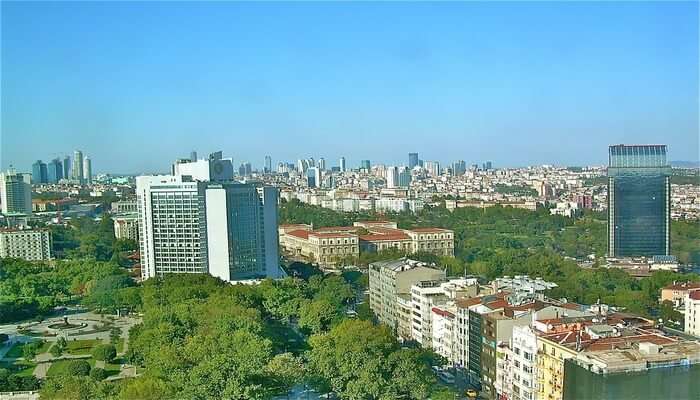
Image Source
The weather in Turkey in July is usually hot if you consider European standards. The mean day temperatures range anywhere from 25 to 30 degrees Celsius. While the nights are cooler at around 20-22 degrees Celsius. The crowds throng to the beaches at this time as the easy breezy weather and a ripe 28 degrees water temperature for taking a dip or just lounging on the beach. In order to take full advantage of the weather, you need to pack a few things in your luggage.
- A good sunscreen lotion
- Sunglasses and a wide-brimmed hat
- Cotton or linen clothing
- A couple of bathing suits
Why Should You Visit Turkey In July

There are plenty of reasons to visit Turkey in July. The people in Turkey are friendly and welcoming of the visitors as it means better business for them. The country is beautiful, cheap and culturally rich. Turkey in July has comfortably warm seas hence beaches are packed and buzzing. However, the crowds in the cities are lean, which results in cheap accommodation and less lines at attractions.
Turkey in July also hosts a couple of seasonal festivals along with an annual Jazz festival. The Istanbul International Jazz Festival is an annual cultural festival held in Istanbul in the month of July each year. Here you can enjoy Jazz performances by famous artists from around the world.
5 Places To Visit In Turkey In July
Now if you have decided to visit Turkey in July, then the following places will give you the best travelling experience:
1. Istanbul
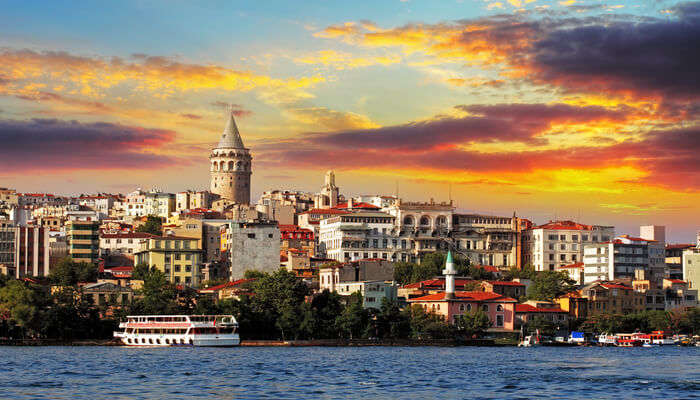
Istanbul is the largest and most famous city of Turkey. It’s so popular that people sometimes mistake it for the capital of Turkey (It’s Ankara by the way). It did, however, once served as the capital city for the Ottoman as well as the Byzantine empire. Istanbul has the distinction of being the only country in the world spanning over two continents.
It has to offer impressive opportunities to visit historical sites, great shopping and great nightlife and food. If you plan to visit Turkey in July then you can find historical attractions like Topkapi Palace, Hagia Sophia and the Blue Mosque.
Suggested Read: 82 Best Places To Visit In Turkey That Must Be On Your Itinerary
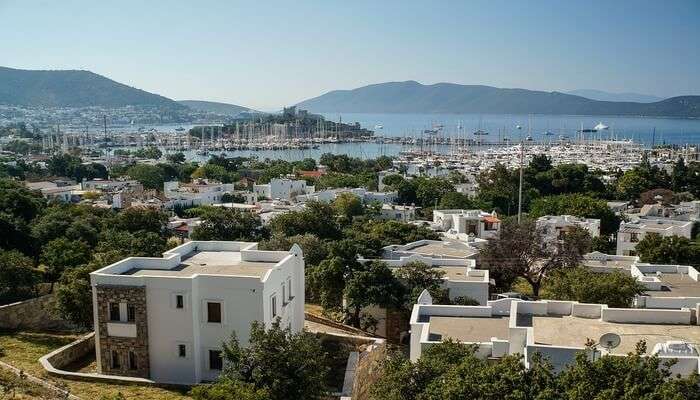
To beat the heat in July you can visit the coastal city of Bodum. It was home to the Mausoleum, one of the ancient seven wonders. Now, its ruins, pretty beaches and resorts at the cliff top attracts visitors from around the world. Here you also get to visit the Bodrum castle (now museum) otherwise known as the Castle of St Peter. The beachfront is lined with cafes, bars, shops and restaurants and you can visit there to grab a bite.
Suggested Read: This Is How You Can Impress Your Soulmate On Valentine’s Day In Turkey!
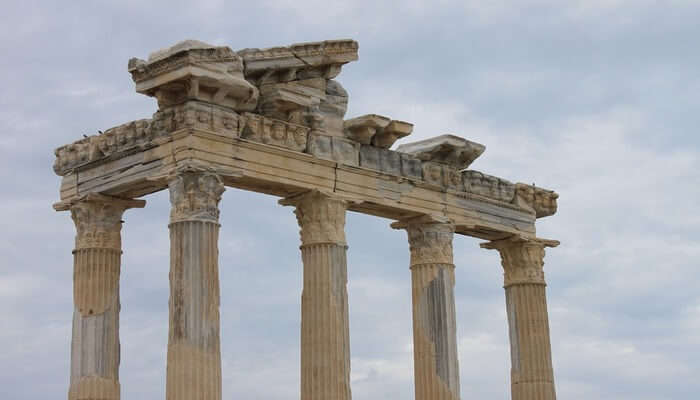
Side can be considered as the perfect tourist destination. Here you will find ruins of a giant amphitheatre and some temples that are remnants of the ancient Roman Empire. After you’re done with the historical locations you can head to the white sandy beach in the afternoon. To top off the day, Side’s charming narrow lanes offer fantastic dining with a variety of world cuisines, and good shops and nightlife satisfying every kind of person.
Suggested Read: Turkey In September: The Ultimate Guide For Exploring The Land Of The Legends!
4. Marmaris

The Turkish Riviera is home to a picture perfect cruise port town called Marmaris. Tourists throng the place in July to enjoy the white sands, crystal clear waters and pine forested mountains. Here you can take a boat ride to explore the neighboring hamlets and charming bays. If adventure is what you seek, then Marmaris offers water sports, kayaking and snorkeling. Again, you can end the day with a fulfilling meal from the local food joints.
Suggested Read: Turkey In October: Witness The Land Of Aladdin At Its Best!
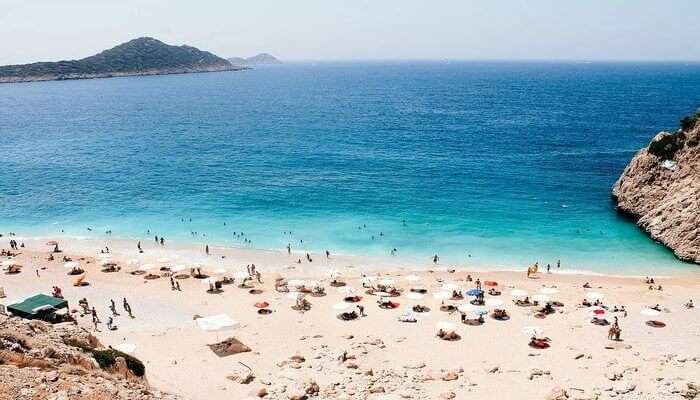
Antalya is another coastal city to visit in Turkey in July and is frequented by tourists for its turquoise waters and sandy beaches. The magnificent scenery is dominated by azure seas, coastal resorts, dense green forests in the mountains. Dotted across these mountains are the ruins of structures built by the ancient Roman Empire. If you visit Kaleici you will get to see Roman walls and gates and narrow streets in a maze like formation.
Suggested Read: 6 Iconic Bridges In Turkey That Are A Paragon Of Beauty & Magnificence!
5 Activities To Try In Turkey In July
Turkey in July offers visitors excellent opportunities to enjoy the summer breeze and beautiful beaches. We have listed some of them below:
1. Get Spiritual In Suleymaniye Mosque
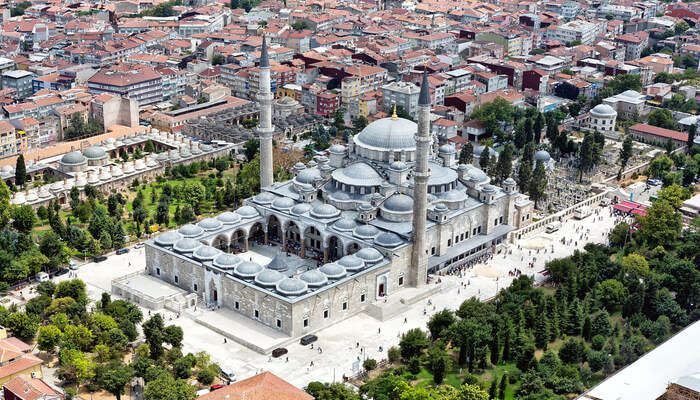
Visitors across the globe profess that the beauty and tranquility of the Suleymaniye Mosque gives them immense sense of spirituality. Built in the 16th century, the mosque exhibits a beautiful blend of Islamic as well as Byzantine architecture. Although it was damaged in the 1st World War, the mosque has been restored to its former glory through the years.
Suggested Read: 5 Historical Caves In Turkey Which Will Give You Some Serious Adventure Goals!
2. Shop In The Grand Bazaar

The Grand Bazaar in Istanbul is one of the largest indoor markets in the world. Dotted with over 4000 shops, it is said to have been in place since the 15th century. This marketplace sees a footfall in excess of two hundred thousand people daily. Here you get to shop for old coins, jewellery and carpets (don’t buy if they don’t fly). If you visit Turkey in July then you have a chance at getting all these at dirt cheap prices as the summer sees less visitors.
Suggested Read: 7 Therapeutic Hot Springs In Turkey Everyone Who Searches For Tranquility Should Visit
3. Visit The Iconic Hagia Sophia
One of the greatest examples of Byzantine architecture is the Hagia Sophia. Built in 537 AD, it has served as the house for worship to many religions. You can see the proof of this in the mosaics which depict several religions. It also served as the inspiration for the Blue Mosque.
Suggested Read: 8 Monuments In Turkey That Are A Reminiscence Of The Turkish War Of Independence!
4. Explore History In Bodrum Museum Of Underwater Archaeology
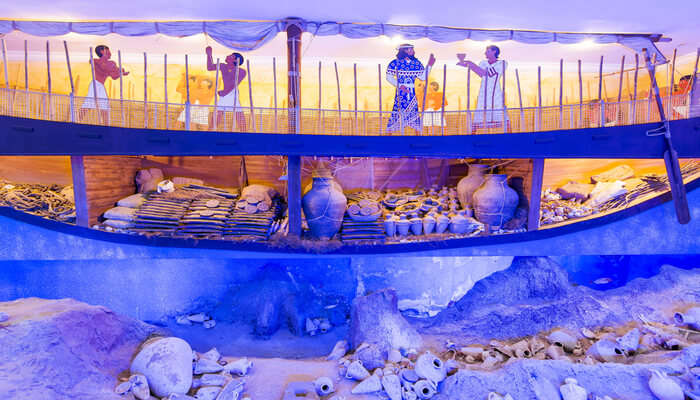
The Bodrum Museum of Underwater Archaeology, as its name suggests is a museum with specimens collected from the sea bed. All exhibits kept here have been discovered around the Turkish seas. The museum features ancient jewelry, vases, glassware and even a tomb of an ancient Carian princess. Taking a trip to this museum can be a very educational experience.
Suggested Read: 8 Impeccable Museums In Turkey To Embrace The Deeply Rooted Turkish History!
5. Check Out The Antalya Aquarium

The Antalya aquarium is one of the largest of its kind in the entire world. This can be a fun and educational outing for the whole family. It features the longest tunnel aquarium in the world. In addition to ocean life forms, you will get to see a reptile house, an ice museum and a snow world inside the same complex where you can play with snowballs. Yes, you read it, snowballs in Turkey in july!
Further Read: Cruises From Turkey: 9 Liners That Will Set Your Luxury Records Straight
Visiting Turkey in July has a lot to offer for the average tourist. We have tried to compile a few things to help you to plan for your next summer trip to Turkey . It is a country with a rich history, delectable cuisine and plenty of attractions and tried to cram as many things into this guide as we could. However, we hope that you can still discover more things to make your trip a colossal success.
Disclaimer: TravelTriangle claims no credit for images featured on our blog site unless otherwise noted. All visual content is copyrighted to its respectful owners. We try to link back to original sources whenever possible. If you own rights to any of the images, and do not wish them to appear on TravelTriangle, please contact us and they will be promptly removed. We believe in providing proper attribution to the original author, artist or photographer.
Frequently Asked Questions About Turkey In July
Is July a great time to visit Turkey?
Well, July is a month of summer. The heat can be uncomfortable but pristine beaches allow you to have a pleasant vacation. In fact, everything becomes pretty much cheap due to the non-peak season. So, the choice is ultimately yours.
Which is the best time to visit Turkey?
The best time to visit Turkey would be April, May, September and October. These are pleasant and warm and are typically great to visit the ancient sites of Turkey.
How many days do you need to travel in Turkey?
You should plan a vacation for 10-12 days in Turkey if you want to visit the historical sites, museums, and explore nature.
What is Turkey famous for?
Apart from the ancient ruins in the cities of Ankara and Istanbul, Turkey is also known for its amazing variety of textiles. Additionally, you can buy Traditional Turkish Carpets, Sweet Baklava, Nargile Pipes and Exotic Spices.
Does Turkey count as Europe?
Turkey is the only country apart from Russia, to have parts in both Europe and Asia. The capital Ankara, is located on the Asian side where the majority of the country lies. The historic city of Istanbul is the only city in the world with a distinction of being part of two continents.
People Also Read:
Greece In July Novena In July Bali In July
Recent Posts

6 Stunning Offbeat Places In Odisha To Include in Your Next Trip

7 Offbeat Places In Kolkata That You Must Visit At Least Once

Best Picnic Spots In Raipur To Recharge Your Soul And Mind
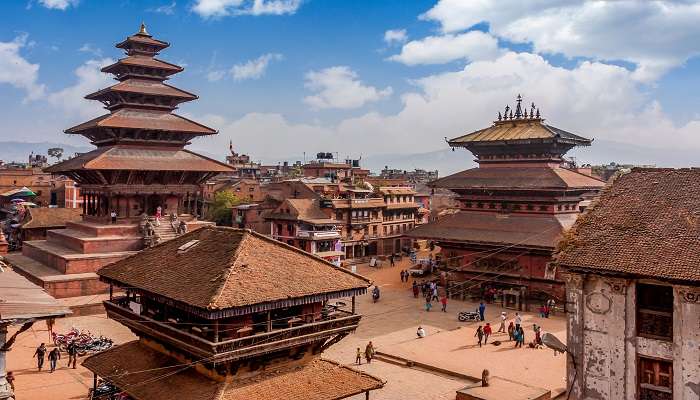
7 Best Picnic Spots In Kathmandu For Weekend Leisure
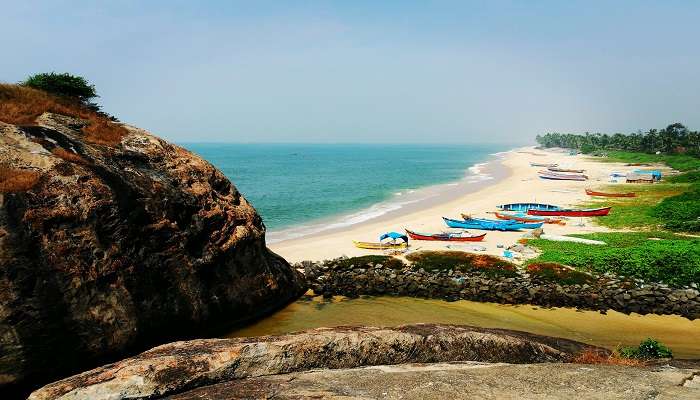
Scenic Beaches In Udupi That You Must Visit With Your Friends And Family
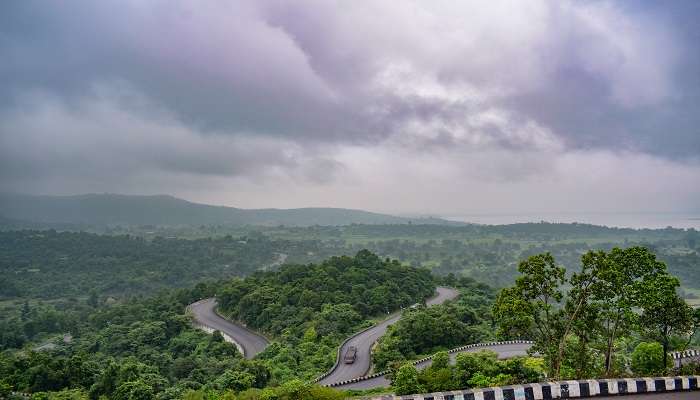
7 Best Picnic Spots In Jharkhand To Find Solace And Rejuvenate Your Soul
Trending Blogs
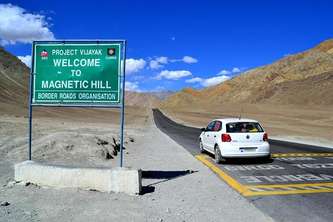
20 Mysterious Places In India To Visit In 2023 More Bizarre Than The Bermuda Triangle

10 Scariest Roads In India That Are A Driver’s Nightmare

101 Places To Visit In India Before You Turn 30 in 2024

35 Exotic Places To Visit In December In India 2024 To Enjoy A Surreal Vacation

60 Best Honeymoon Destinations In India In 2024

95 Best Honeymoon Destinations In The World In 2023 For A Romantic Escape!
Best Places To Visit In India By Month
Best places to visit outside india by month.
- TravelTriangle
- International
- Turkey »
- Tour Packages
- Honeymoon Packages
- Family Packages
- Budget Tour Packages
- Luxury Tour Packages
- Adventure Tour Packages
- Group Tour Packages
- Maldives Tour Packages
- Bali Tour Packages
- Dubai Tour Packages
- Singapore Tour Packages
- Thailand Tour Packages
- Europe Tour Packages
- Sri Lanka Tour Packages
- Tour Packages From Delhi
- Tour Packages From Mumbai
- Tour Packages From Bangalore
- Tour Packages From Chennai
- Tour Packages From Kolkata
- Tour Packages From Hyderabad
- Tour Packages From Ahmedabad
- Thailand Tourism
- Bali Tourism
- Singapore Tourism
- Maldives Tourism
- Mauritius Tourism
- Dubai Tourism
- Europe Tourism
- Hotels in Thailand
- Hotels in Maldives
- Hotels in Mauritius
- Hotels in Bali
- Hotels in Dubai
- Hotels in Singapore
- Hotels in Sri Lanka

Turkey in July 2024: Perfect Guide to an Exciting Turkey Trip
One gets to feel the taste of richness and diversity while visiting Turkey in July. Back in time, this was the centrepiece of the great Ottoman Empire. In recent days turkey is in the bucket list of pretty much every traveller around the world due to its diversity in terms of activities and the kind of sights that one can get to see. Bridging the cultural gap between Asia and Europe is the country of Turkey. It is one of the very few geographically gifted places.
As a result of the geographical location, this place has a rich trade and cultural exchange with the other parts of the world. It has marked its distinct identity in the modern world. This place has a lot of things to offer, but in this, we take a look at the things that one shouldn’t miss. The ones on this list will surely make you greatly satisfied with the vacation.
Weather In Turkey In July
In this period of the year, the weather is just pleasant. The days are somewhere around 25-30 degree celsius. On the other hand, the nights are cooler around 20-22 degree celsius. The crowd visiting the beaches at this period of the year can take a dip at ripe 28-degree water temperature and maybe some lounging on the beach.
Reasons to Visit Turkey In July
Though there are a tons of reasons for one to visit Turkey in July. The predominant one being the fact that crowd in the cities are lean. The beaches are packed and buzzing as usual but the sights will be of fewer lines. Apart from this, for the music lovers out there, Turkey hosts two major Jazz festivals every year.
Namely, The Istanbul International Jazz festival is the one that takes place every year in Turkey in July. This is performed by famous artists around the world.
Places To Visit In Turkey In July
The following places on the list are guaranteed to give you the best travelling experiences of Turkey in July.
1. Istanbul

Istanbul is the tourist capital of Turkey and it’s often wrongly considered as the capital of Turkey. And for all of your surprises, Ankara is the capital of Turkey. Istanbul is also the largest city in Turkey and famous among travellers around the world. During the times of the Ottoman and Byzantine empire, Istanbul was the capital city. It is the only city to be a part of two different continents, Asia and Europe namely which you can witness with your very own Istanbul trip package from India .
One can get to experience historical sites, great shopping and great nightlife and food. The historical places that one shouldn’t miss on a vacation to Turkey in July are Topkapi Palace, Hagia Sophia and the Blue Mosque.
For all those who want to escape the heat in July, you can visit the beautiful coast of Bodrum. Mausoleum, one of the seven ancient wonders is located in this coastline. The ruins of which has turned into a major attraction for travellers around the world. You have the service of resorts around the beach of you want to stay there. There are even a few resorts built on top of the cliff so that you get some stunning views of the sea from the cliff. Not to forge the Bodrum Castle which now acts as a museum and popularly known as Castle of St Peter. There is a line of cafes, bars, shops and restaurants on the beachfront.
The side has a unique blend of history and the beach experience at one place. This has evidence of the Roman Empire with the likes of the ruins of the amphitheatre and some other roman temples. Once you are done with these historical places from the morning to the afternoon, you can head to the white sandy beaches in the second half of the day on your trip to Turkey in July. The beachside shops are open till midnight enhancing the nightlife of this place.
4. Marmaris

In Turkey in July, the Turkish Riviera reveals its gem of a port kind of town called Marmaris. This place comes to life in the middle of the year as the tourist’s flood into the city for their vacation. People come here to enjoy the white sand, crystal clear water and pine-forest. If you want to explore the nearby hamlets and charming bays, you can get a boat ride at a cost. More like the other beach destination in the world this also has water sports facilities like kayaking and snorkelling. As the day ends, you can taste the fulfilling meal from the local food joints.
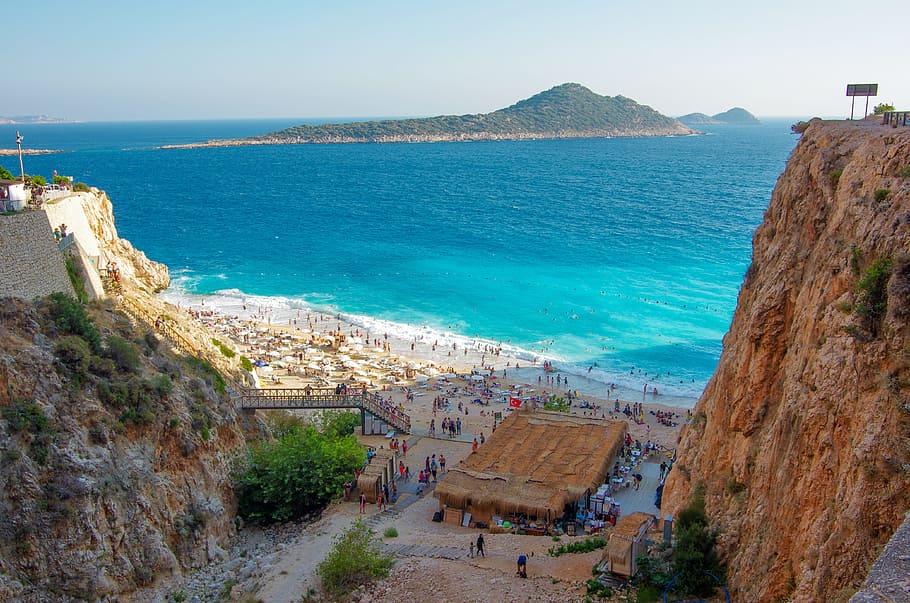
Antalya is again a coastal city in Turkey that one shouldn’t miss on their trip to Turkey in July. It is often visited by travellers who fall in love with the turquoise water and sandy beaches. The coastal line is dotted with ruins of the structures built by the roman empire. The whole scenery consists of dense forests and mountains holding them up. The Roman streets are in such a way that you’ll feel like stuck into a Maze.
6. Suleymaniye Mosque
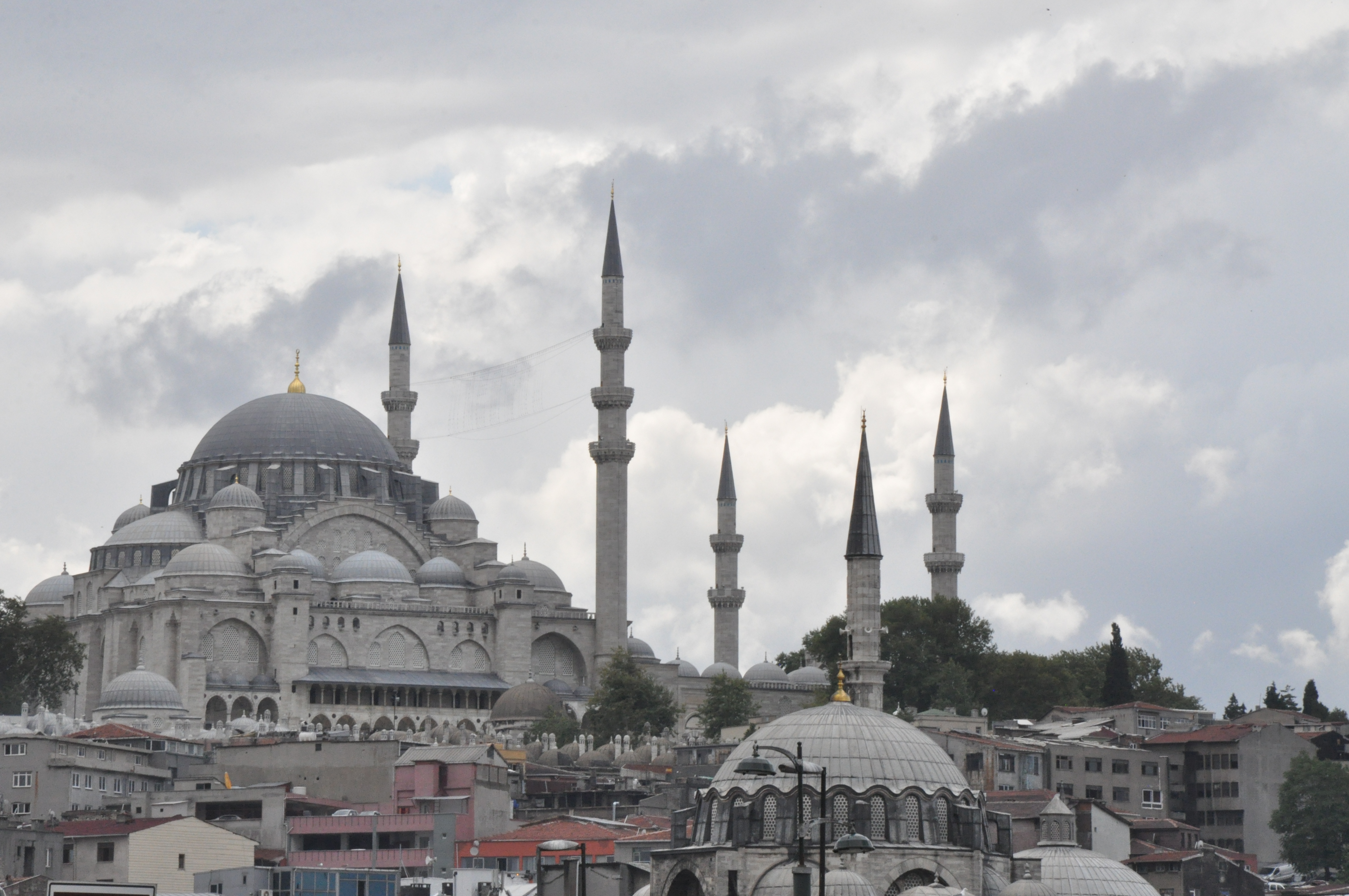
Travellers all over the world who want to feel the immense sense of spirituality come to visit Suleymaniye Mosque. It is a calm place that sure will offer some peaceful time. It was built in the 16th century, the uniqueness in this is the blend of Islamic and Byzantine architecture. Though it took some serious damage in the 1st World War, the mosque regained its glory because of the restoration that took place after that. People are said to have a soulful experience while visiting this place in Turkey in July. It is easily accessible from all major parts of the city.
Planning your holidays to Turkey in July? Can’t wait to get your vacation plan customized with the help of our destination experts? We at Pickyourtrail help travellers with perfectly planned tour packages to all your dream destinations. Head straight to our website to check out Turkey packages or Turkey honeymoon packages at Pickyourtrail.
Experience Turkey Every Month Of The Year
Turkey in January | Turkey in February | Turkey in March | Turkey in April | Turkey in May | Turkey in June | Turkey in August | Turkey in September | Turkey in October | Turkey in November | Turkey in December
146 Posts Published.
Related itineraries.
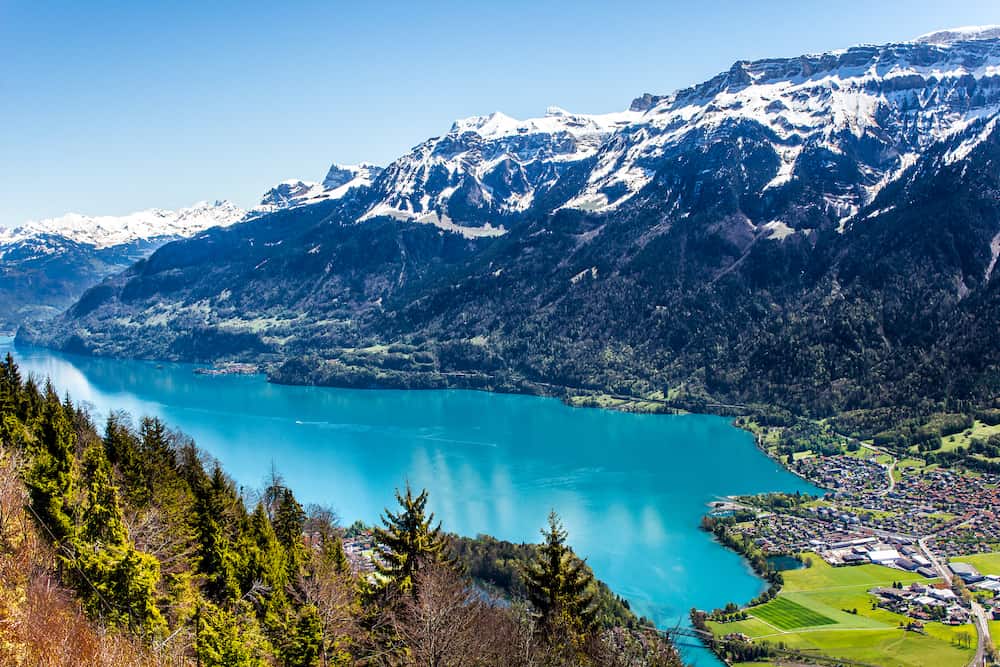
Enchanting Europe Tour
- Flights excluded
- 3 star accommodations
- 5 activities
- Shared transfer
₹ 1,36,529
Starting price/person
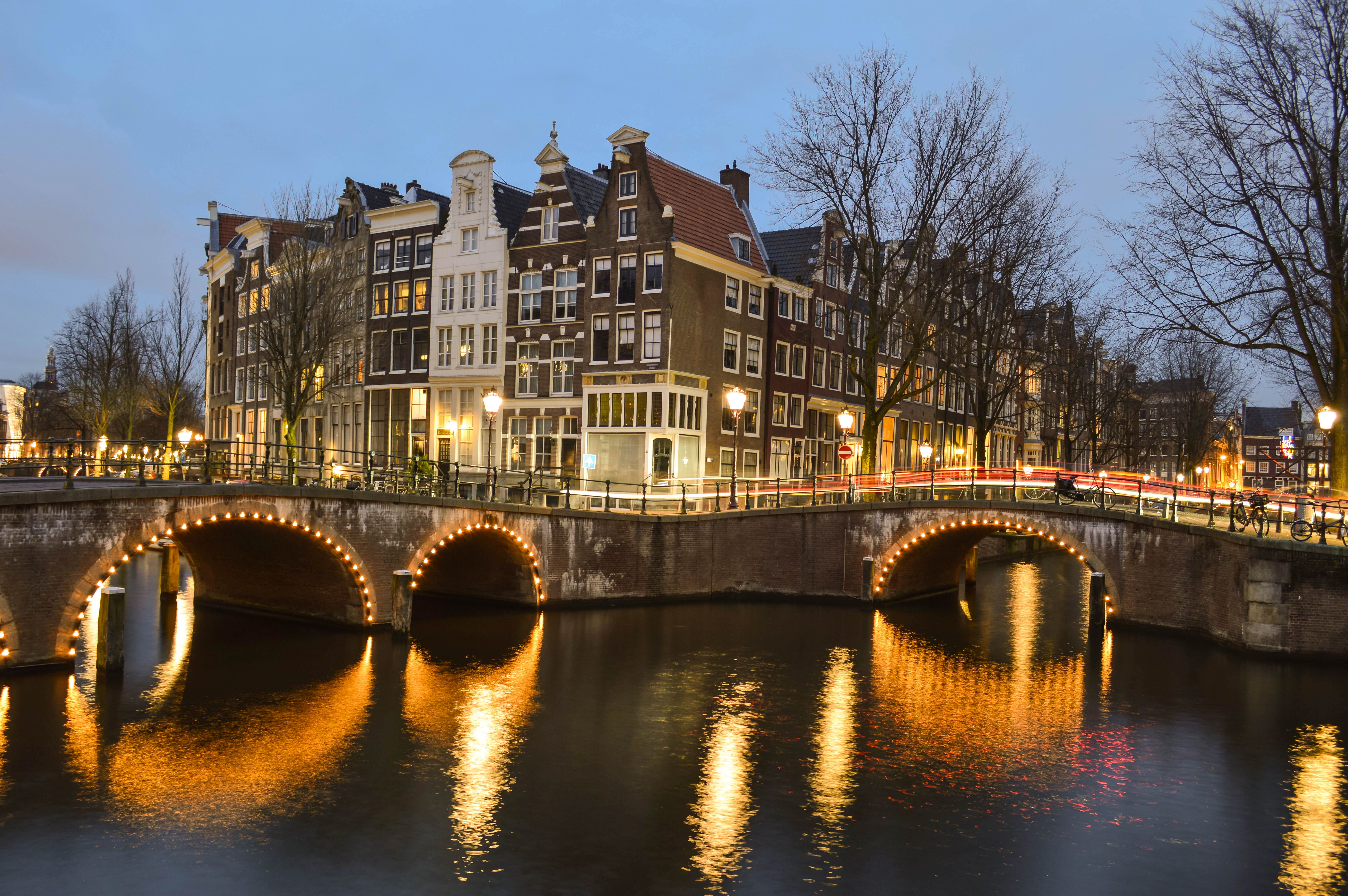
European Escapade
- 3 activities
₹ 1,00,540
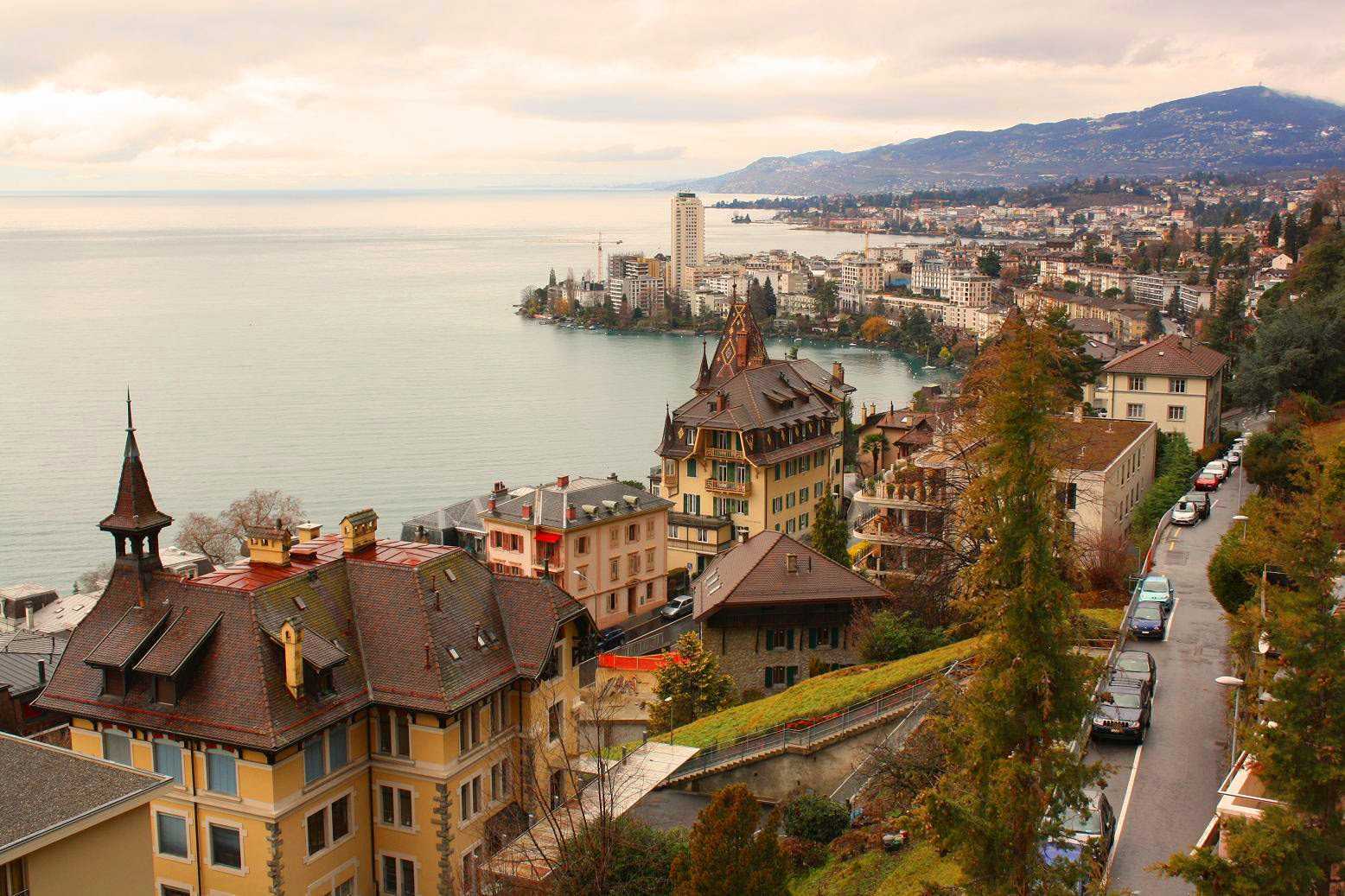
9 Days Swiss & Lyon Packages For Couple
- 5 star accommodations
₹ 1,66,082
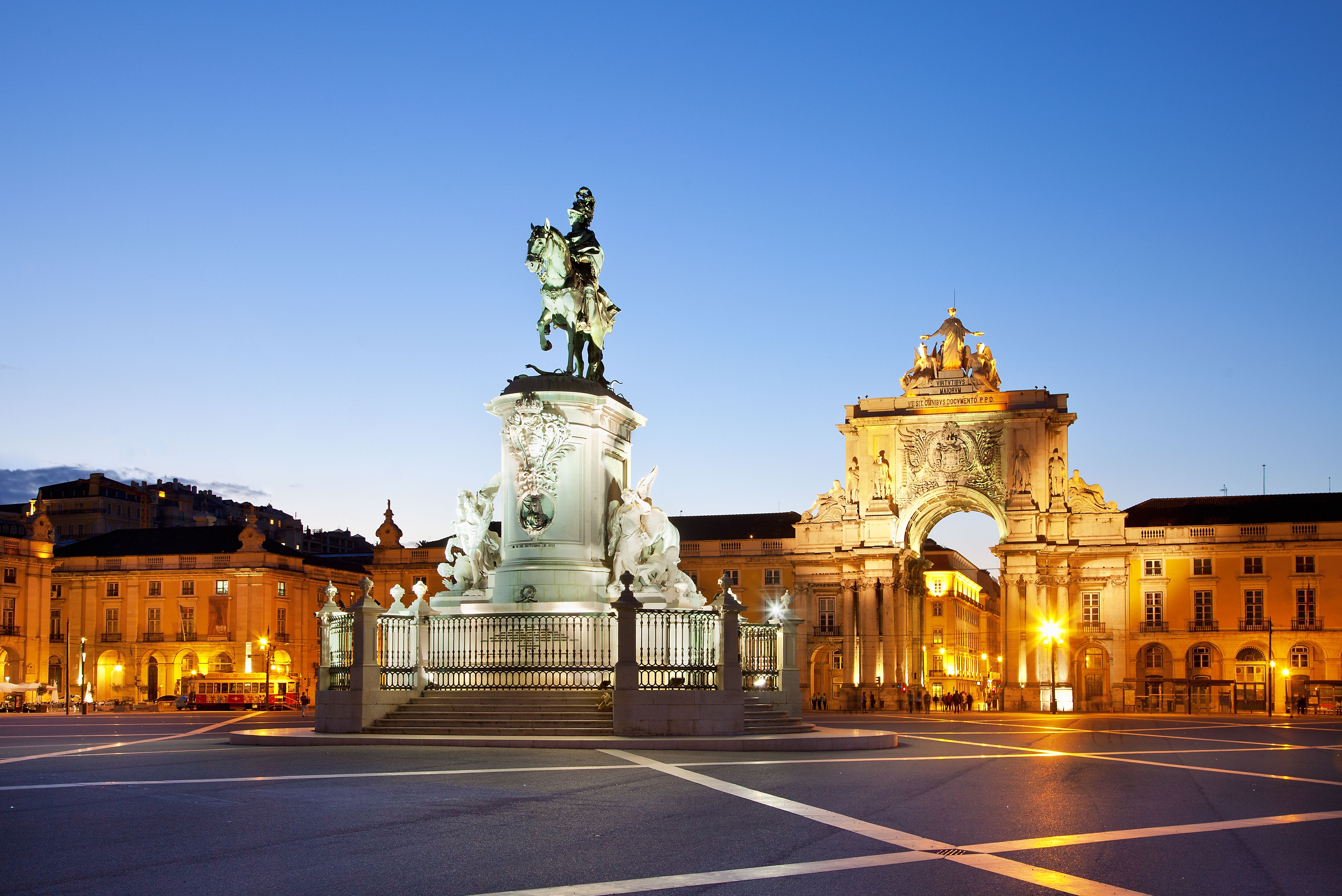
Europe Tour with Lisbon, Lagos - Portugal, Seville, Tenerife and Barcelona
- 4 star accommodations
- Private transfer
₹ 1,87,240
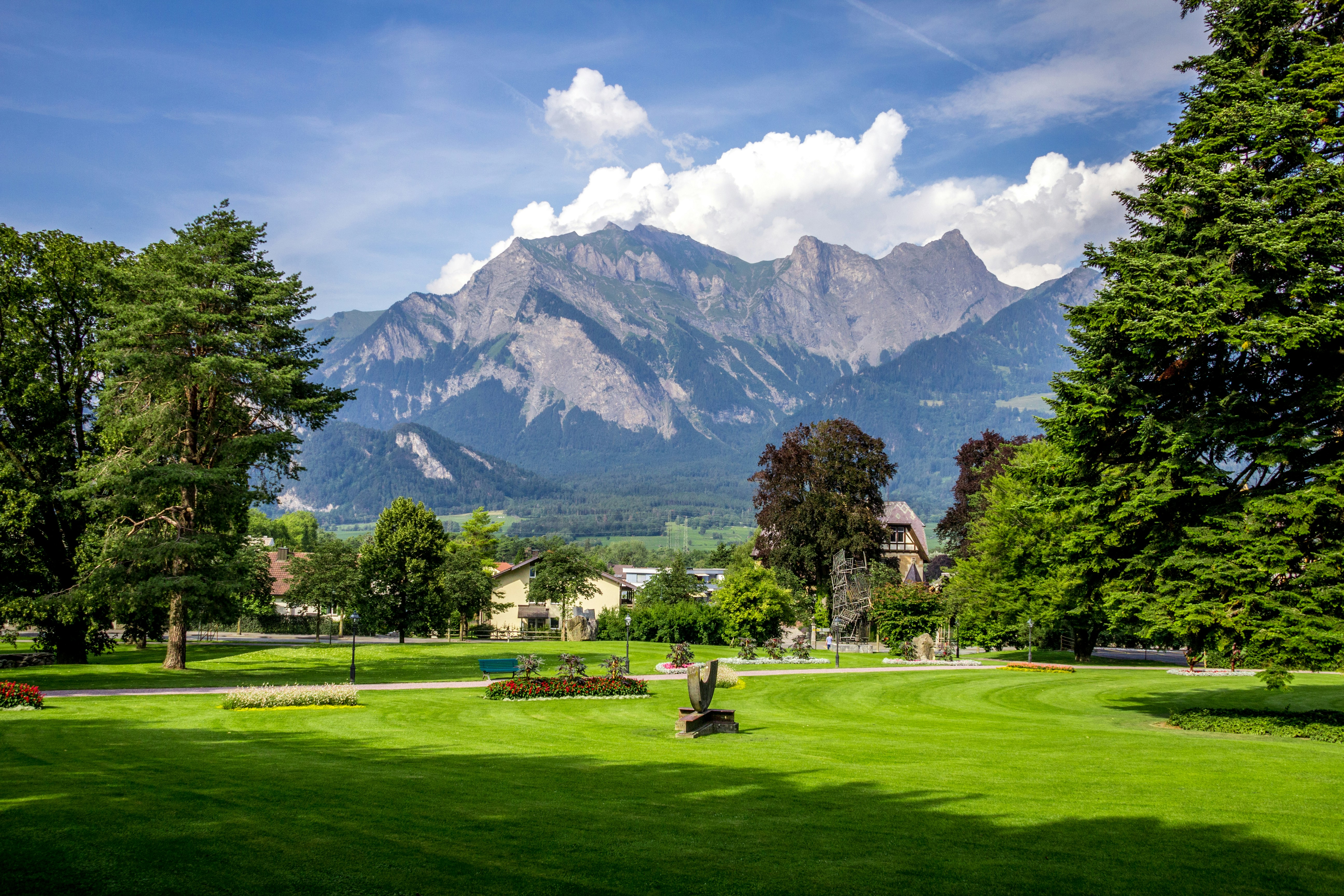
Switzerland Couple Trip Packages For 10 Days
- 6 activities
₹ 1,68,750
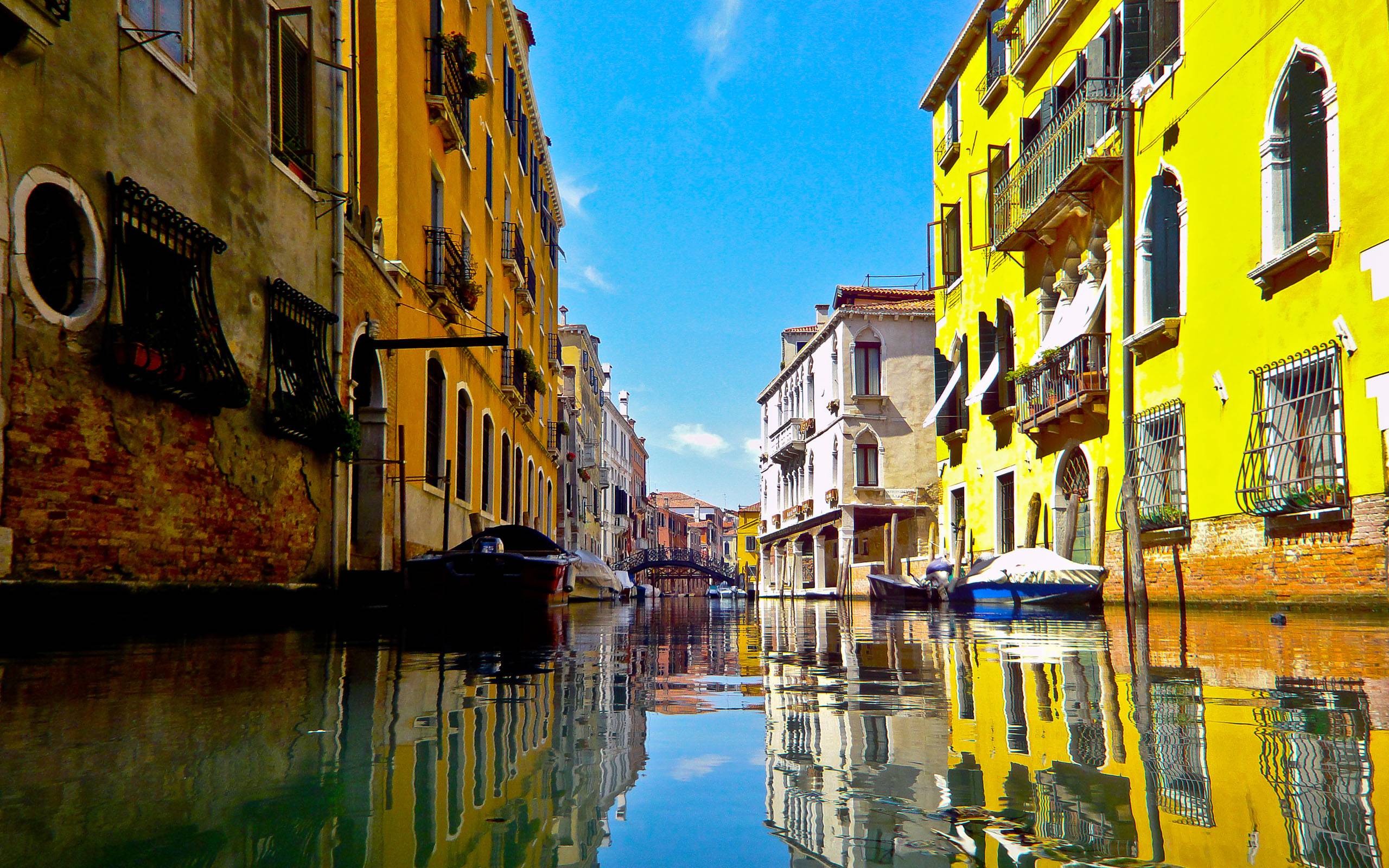
Alluring Europe Tours - Rome; Venice; Innsbruck; Vienna
₹ 1,39,035.
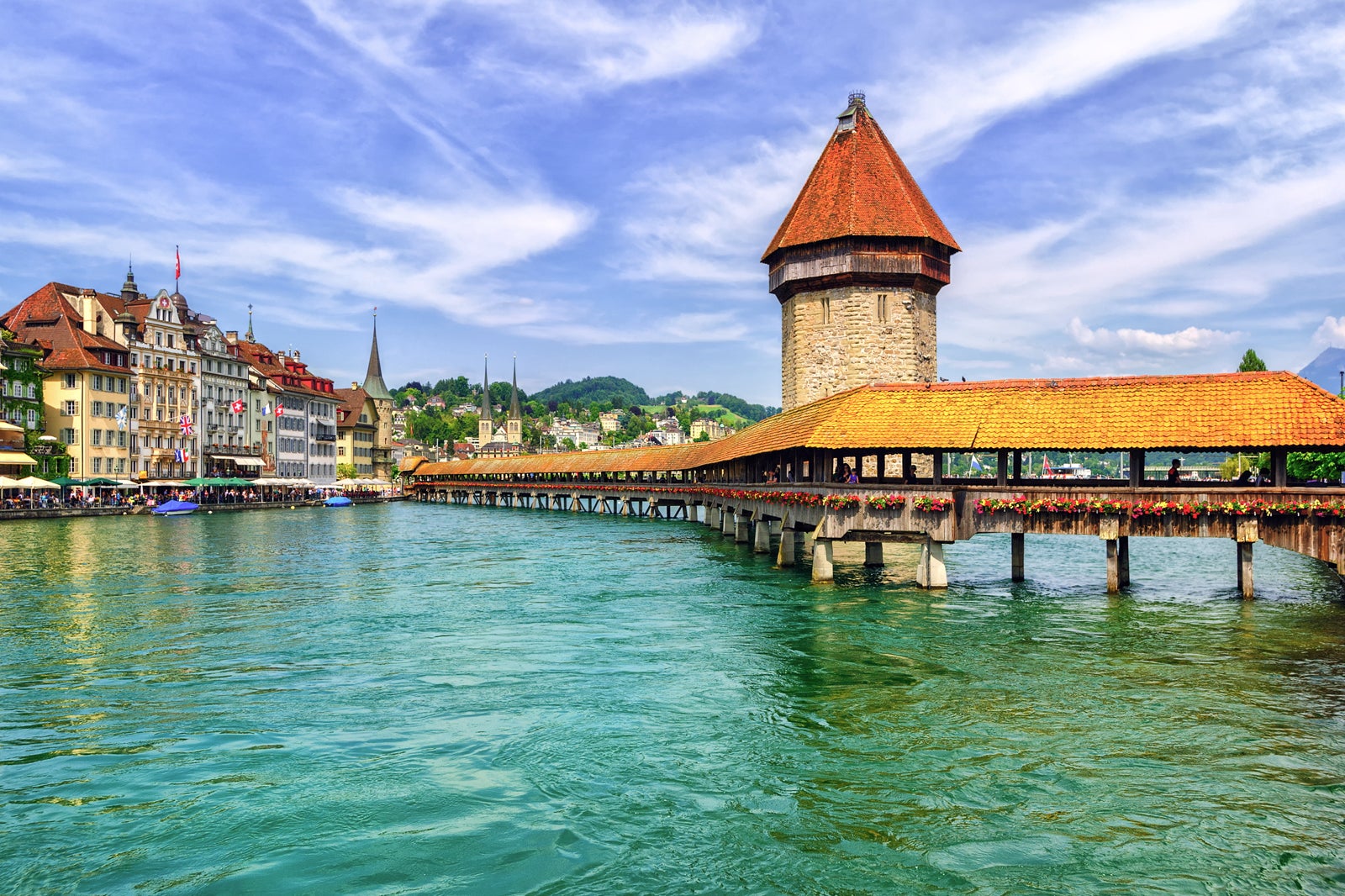
Swiss Paris Delight
₹ 1,41,105.
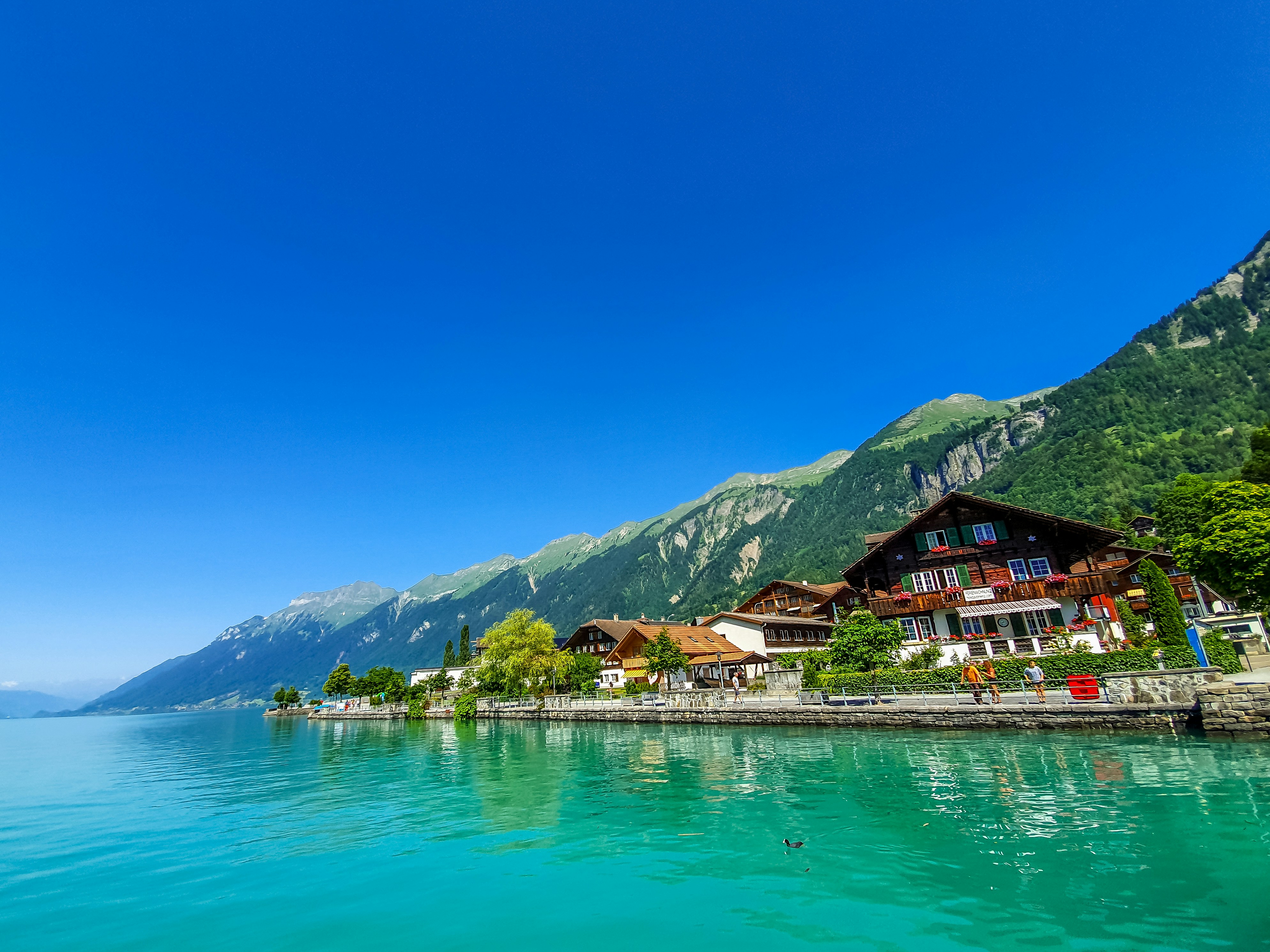
9 Day Swiss & Milan Trip Packages
₹ 1,73,311.
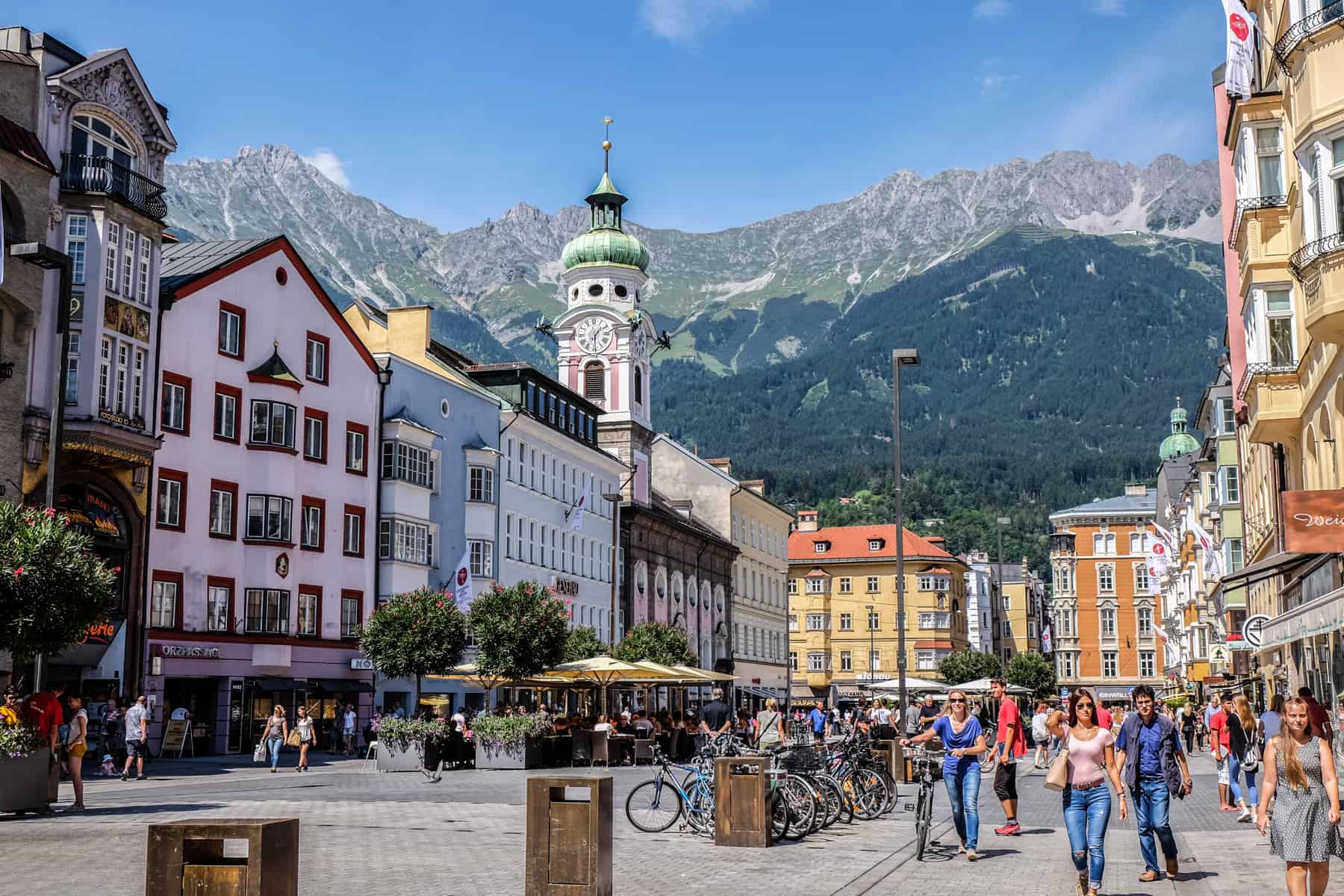
European Delight
- 7 activities
₹ 2,73,030
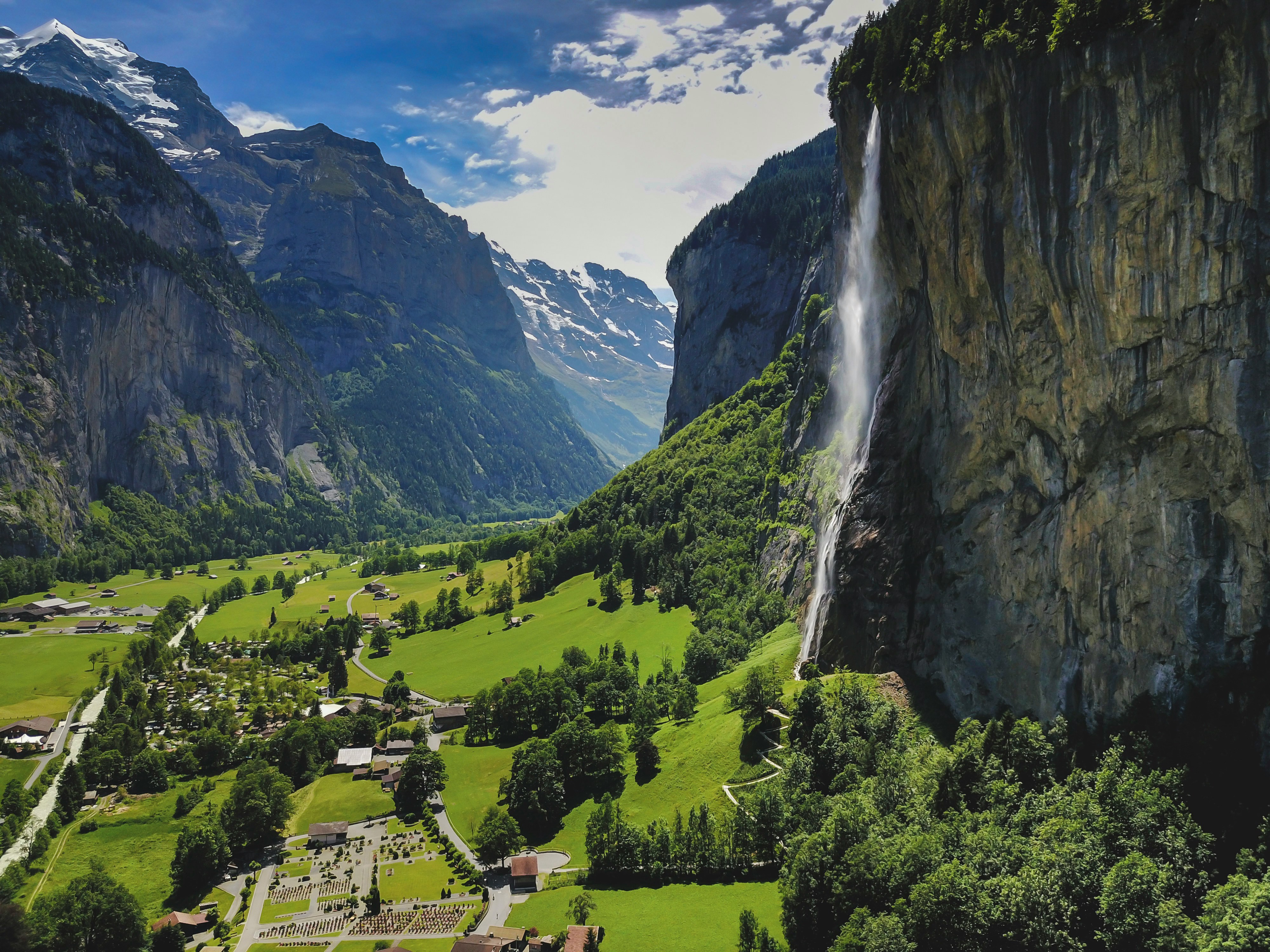
Mesmerizing 9 Nights Switzerland Trip Packages
- 4 activities
₹ 1,74,011
Related posts, visas for turkey: a guide for indian citizens, turkey in august 2024: your ultimate travel guide, tips and top destinations, travelling to turkey: impact of the earthquakes on tourism, turkey in november 2024: discover the best fall experiences, 10 best theme parks in turkey for a fun rollercoaster with family, turkey in april 2024 – weather, what to wear, places to visit & more, turkey in october 2024: complete guide to a fun turkey trip, turkey in december 2024 – a complete guide to a fun turkey vacation, turkey’s cappadox festival: music, food and fairytale charm, the legendary hagia sophia of istanbul, turkey, port of istanbul – turkey, turkey in march 2025: the ultimate travel guide.
Book a vacation completely online
Our community is growing fast
Sign up for exclusive PYT Club membership and access jaw-dropping deals before the rest of the world!
- Signup with Email
- Facebook community
- Telegram Community
Access exciting travel deals at best prices
- New Zealand
- South East Asia
- United Kingdom
- United States
- Switzerland
- Travelogues
- Travel News
- Guest Posts
- Write for us
- Turkey Tours
- Turkey Travel Guide
- When to Visit Turkey
Turkey in July: Weather, Tips & Treks

- ~ mins read
July falls in the middle of the Turkish summer and is part of the high tourist season. This is an excellent month to explore the country’s rich history, culture and architecture. Sleep in a cave hotel in Göreme in the extraordinary Cappadocia region; explore Istanbul’s sumptuous Topkapi Palace and its colorful Grand Bazaar; visit the Unesco World Heritage site of Ephesus, home to spectacular ancient ruins; and laze on the lovely beaches of Antalya. There is no shortage of places to visit and activities to enjoy if you visit Turkey in July.
- From England
Turkey Weather in July

The weather in Turkey is hot and dry in July. The country’s coastal areas are the hottest, making them popular destinations for swimming, diving and other water-based activities.
Elsewhere in Cappadocia, which is known for its rock chimneys and winding valleys, weather conditions are pleasantly warm to explore this fascinating region. For instance, in Göreme, a popular town in Cappadocia, the average high temperature in July is 28°C while the average low is 15°C. In Istanbul, the mercury hovers between 22°C and 28°C. The much-visited coastal town of Antalya gets hot during this time, with an average high of 34°C and a low of 22°C.
For a seasonal overview, look at our guide on the best time to visit Turkey .
Weather in Turkey in July - Rainfall and Temperatures
Why visit turkey in july.
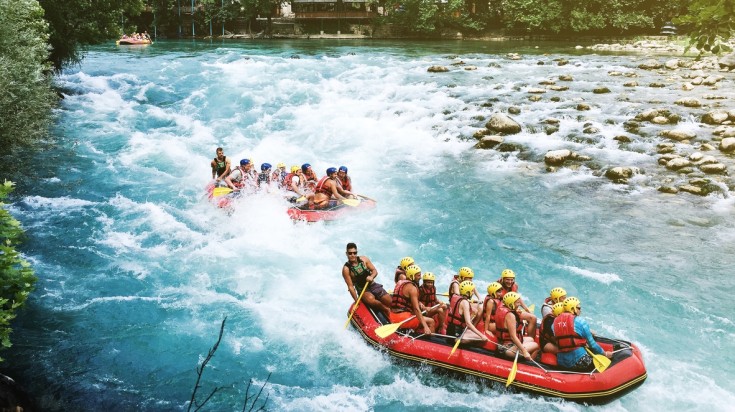
If you are wondering where to head for a perfect summer vacation, Turkey should be on the top of your list. Here are some reasons why:
- Festive occasions: Turkey hosts some high-quality events and festivals in July, including the International Aspendos Opera and Ballet Festival, staged in a 2000-year-old Roman theater; the Istanbul Jazz Festival, a jazz extravaganza that also includes musical genres like rock, pop and reggae; and the Bosphorus Cross-Continental Swim, where you can watch thousands of competitors swimming across the strait.
- Water sports: July is an ideal month to take part in water sports like parasailing, canoeing, rafting, scuba diving and whitewater rafting in several places along the Mediterranean coast and key rivers of Turkey. Top sites include Gokova, Akyaka, Fethiye Manavgat and Firtina.
- Hit the road: July is a great time to embark on a road trip in Turkey. You can drive the entire length of the beautiful Aegean coastline, stopping at the many little towns along the way during this time. Take a road trip from Istanbul to Ephesus through the changing landscapes and sceneries for a memorable experience.
- Glorious trek: Explore the Turquoise Coast by trekking a part of the spectacular Lycian Way. This 540-kilometer path from Fethiye to Antalya passes through coastal cliffs, ancient ruins and quaint towns, showing trekkers many sides and sights of Turkey .
Where to go and what to do

Still wondering where to go while visiting Turkey in July ? Well, start from Istanbul, Turkish economic and cultural hub. The city is a year-round destination for travelers. A trip to Istanbul is incomplete without seeing its architectural wonders like the Hagia Sophia and the Blue Mosque. But there are many other delights too, like shopping for spices, sweets and dried fruits at the 16th-century Spice Bazaar; witnessing the whirling dervishes do their magic; and getting nostalgic at the Museum of Innocence, an ode to Nobel Prize-winning writer Orhan Pamuk’s novel of the same name.
Cappadocia is a must-visit destination when visiting Turkey in July. Go for an early morning hot-air balloon ride and soar above its magical landscape; visit the lovely rock-cut churches of Göreme Open-Air Museum; and explore the region’s fascinating underground cities like Kaymakli and Derinkuyu, some dating back to the Bronze Age.
Antalya is a great summer destination, and not just because of its beautiful beaches. While there, make it a point of exploring Kaleici, Antalya’s well-preserved Old Town; have a romantic lunch at a site overlooking the ancient harbor; enjoy the collection at Antalya Archaeological Museum, which has more than 5,000 exhibits on display including artifacts from the Greek, Roman, Byzantine and Ottoman eras. Another famous natural wonder that you should visit in July is Pamukkale (Cotton Castle) in western Turkey, known for its strikingly white travertine terraces that look like snowfields.
In the town of Gaziantep in southeastern Turkey, you can stroll along the charming alleys of the old city district and visit the Gaziantep Zeugma Mosaic Museum, which houses one of the world’s most important collections of mosaics.
Explore the length and breadth of Turkey in July, including its scenic beaches, old towns, brilliant architecture and romantic Roman-era ruins. The high tourist season and summer weather make this country one of the best holiday destinations for visitors of all preferences. Contact our local travel experts to plan a customized holiday in Turkey .
More information
Summer in Turkey Turkey in June Turkey in August
Related Articles
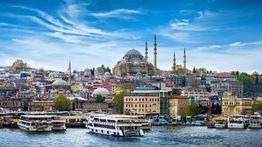
Best Time to Visit Turkey
As a country that straddles Asia and Europe, ... read more

Turkey in January: Cold Weather and Ski Season
If you are visiting Turkey in January, you ha... read more

Turkey in February: Weather and Travel Tips
Ski up a storm on the Turkish slopes, dine on... read more

Turkey in March: Spring Holiday Tips
As winter transitions into spring, the weathe... read more

Turkey in April: Weather, Tips & Festivities
With spring in full swing, Turkey sees pleasa... read more
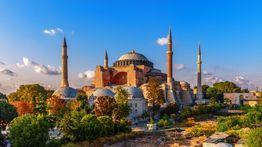
Turkey in May: Weather, Travel Tips and More
An abundance of cultural festivals and warm w... read more
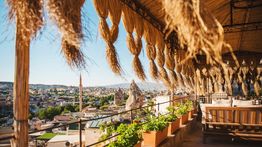
Turkey in June: A Summer Family Trip
June marks the start of the high tourist seas... read more
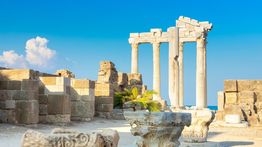
Turkey in August: Summer in Full Swing
Do Mediterranean beaches, long sunny days and... read more
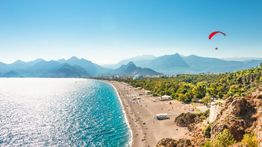
Turkey in September: Weather, Beaches and Cruises
September is still considered part of a high ... read more
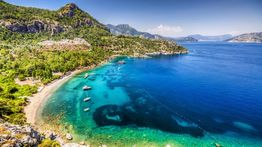
Turkey in October: Weather Tips and Travel Advice
Looking to explore Turkey when the weather is... read more
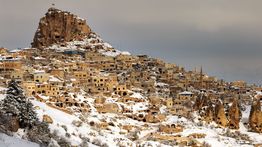
Turkey in November: Ideal Hiking Weather
Want to see a different side of Turkey? Well,... read more

Turkey in December: Weather, Skiing and More
December is the mildest winter month in Turke... read more
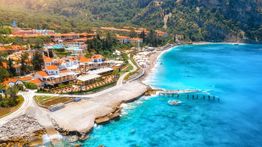
Summer in Turkey: Weather, Destinations and Activities
Located at the crossroads between Asia and Eu... read more
Related Categories
- How Long To Stay In Turkey
- Turkey Travel Advice
- What To Do In Turkey
- When To Visit Turkey
- Where To Go In Turkey
- Previous Post

Popular Destinations
- Europe Tours
- Everest Base Camp Trek
- Italy Tours
- Spain Tours
- Argentina Tours
- Canada Tours
- Sri Lanka Tours
- Chile Tours
- Antarctica Tours


- Bali – Indonesia
- Adventure Tours
- Family Friendly Tours
- Honeymoon & Romantic Tours
- Wildlife Tours
- Knowledge Tours
- Corporate Outings
- Cordelia Cruise
- Genting Dream Cruise
- Travel Blog
- Plan with expert
Turkey in July: A Mesmerizing Mediterranean Paradise of Culture, Sun, and Sea
In July, visit Turkey, a sun-drenched Mediterranean paradise with exciting festivals, historic sites, and immaculate beaches. Discover the highlights of a wonderful summer vacation in the centre of Turkey, as well as unusual events and must-see locations.
Turkey in July offers a delightful fusion of culture, history, and scenic beauty against the brilliant Mediterranean backdrop. This month is perfect for exploring historic buildings, taking part in exciting festivals, and unwinding on some of the most stunning beaches on earth because of the high sun and sparkling turquoise waters.
Turkey in July provides a wide variety of experiences, from the timeless beauty of Ephesus to the vibrant International Bodrum Dance Festival, the captivating International Istanbul Music Festival, the thrilling Olive Oil Wrestling Championship, and the tranquil beaches of Kaputas. Let’s take in these fascinating activities, savour delicious food, and relax on scenic beaches to make this summer month the ideal time to travel across the nation.
Experience the ancient beauty of Ephesus in Turkey in July
The historical wonders of Turkey are best explored in July, and Ephesus is a real treasure. This remarkably preserved ancient city offers an enthralling window into the past.

Wander around the majestic Celsus Library, take in the stunning Grand Theatre façade, and be in awe of the exquisite mosaics in the Terrace Houses. The city, which was once a thriving centre of the Roman Empire, has amazing architectural feats and a fascinating history.
With the help of this fascinating archaeological site, tourists to Ephesus can travel back in time and discover the historic streets, structures, and monuments. The beautiful Library of Celsus, with its opulent façade and elaborate sculptures, is a highlight.
Experience the vibrant International Bodrum Dance Festival.
The International Bodrum Dance Festival honours dance, music, and cultural variety and is hosted in the charming seaside town of Bodrum. Usually, this festival happens in the middle of July.

Renowned dance troupes from Turkey and around the world will be performing in thrilling shows during the festival. It’s an opportunity to see a variety of dance forms, including modern and international acts as well as traditional Turkish folk dances. The breathtaking shoreline of Bodrum serves as the event’s background, adding even more allure.
A cultural extravaganza, the International Bodrum Dance Festival showcases a wide variety of dance forms and customs. Attendees can fully immerse themselves in the passion and rhythm of the performances, which is a vibrant celebration of the art of dance.
Immerse yourself in the International Istanbul Music Festival.
Usually taking place in early July, the International Istanbul Music Festival is a harmonious celebration of classical music and well-known performers. This cultural event is set against the spectacular backdrop of Istanbul, the city where East meets West.

International and Turkish orchestras, choirs, and singers play at the festival. It features music from many different genres, including chamber music, opera, modern pieces, and classical symphonies. There is something for every music lover thanks to the program’s diversity.
For fans of music, the International Istanbul Music Festival is a cultural treat. This festival offers a wide variety of performances, whether your taste is in more modern or classical works.
Witness the thrilling Olive Oil Wrestling Championship.
The Olive Oil Wrestling Championship, or Yağlı Güreş, is a unique experience that happens every July. It’s a distinctive and thrilling ritual. Athletes from all around the nation gather for this competition, which features an antiquated style of Turkish wrestling.

Before starting a wrestling battle, competitors, called pehlivans, smear themselves with olive oil and don traditional leather trousers. Getting a hold of your opponent’s trousers and raising them off the ground is the aim. It’s an exciting demonstration of stamina, strength, and skill.
An odd but fascinating custom that highlights Turkey’s rich cultural past is the Olive Oil Wrestling Championship. Attendance at the matches can be high due to their potential for intensity and harsh competition.
Relax on the pristine shores of Kaputas Beach.
On Turkey’s Mediterranean coast, Kaputas Beach is a hidden gem for anyone looking for peace and tranquillity as well as stunning scenery. The beach’s immaculate white sand and dazzling turquoise seas are well-known.

Relax on the silky beaches, cool off in the sea, and enjoy the breathtaking views of the coastline. Situated at the foot of a striking gully, the beach offers a serene and attractive environment.
Beach enthusiasts will appreciate Kaputas Beach since it is a tranquil and pristine length of shoreline. The beach is well-known for its lovely location at the base of a ravine, which fosters peace and solitude.
July in Turkey is a period for peaceful beach getaways, cultural festivals, and historical marvels. Every experience has its own distinct charm and significance, whether you’re exploring the historical treasures of Ephesus, taking in the rhythms of the International Bodrum Dance Festival, savouring classical harmonies at the International Istanbul Music Festival, watching the unique Olive Oil Wrestling Championship, or unwinding on the immaculate shores of Kaputas Beach.
July is the epitome of Turkey’s Mediterranean summer: a season for culinary delights, cultural adventure, and the unadulterated beauty of the nation’s coastline. Turkey in July offers a variety of experiences and special offerings to take into account when you plan your summer travels. This magical and culturally diverse season will leave you with priceless memories.
Top Destinations

Bali - Indonesia

Latest Tours

3 Nights Malaysia to Singapore via Phuket Genting Dream Cruise


4 Nights Malaysia-Singapore-Malaysia Genting Dream Cruise

3 Nights Singapore-Penang-Port Klang-Singapore Genting Dream Cruise
Join our 10k+ subscribers and get exclusive travel tips, giveaways and more.

- South Korea
- Indonesia (Bali)
- Central Asia
- African Safari
- South Africa
- Itinerary Ideas
- Turkey Weather in July 2024: Travel Tips for First-Timers
July is one of the hottest and driest months in Turkey, with warm to hot weather throughout the country. Everywhere is good for traveling, but beaches are especially popular and hiking not so much. Continue reading for more information on travel and weather, including average temperatures, rainfall, humidity, and travel tips for the month of July.
- 1. Weather Overview
- 2. Best Places to Visit
- 3. Turkey Festivals
- 4. Crowds and Costs
- 5. What to Wear
- 6. Monthly Weather in Turkey
- 7. Recommended Tours
Turkey Weather in July: Overview
- Temperature range: 20–32°C (69–90°F)
- Rainfall: 1 cm (0 inches)
- Rainy days: 2
- Sunshine hours/day: 10
- Sea temperature: 27°C (81°F)
- Humidity: 52–88% (dry in the south to much more humid on the south coast)
July is one of the hottest months of the year for Turkey's beaches, alongside August, and is the middle of summer. It is a busy travel period in Turkey for beach holidays and with tourists in general as a result.
July sees barely any rain (2 rainy days on average, with rainfall of around 1 cm (or 0.5 inches). Days are very bright, with an average of 10 hours of sunshine per day, making it an ideal holiday destination.
Discover real reviews of Highlights Travel Family 's best-rated service across trusted platforms.
Weather of Turkey's Major Cities in July
The best places to visit in turkey in july.
With July being one of the hottest months of the year, we highly recommend visiting one (or several) of Turkey's many beach destinations in the summer. Both the southern coast and the western coas t of the country are hot but not too humid, making them the perfect destinations for either a relaxing or a more active beach holiday.
Istanbul also still comes high up on the list, since temperatures in Istanbul are warm and pleasant for walking around and enjoying the many sights, and because you could not visit Turkey and skip Istanbul!
Read on to find out more about the best places to visit in July.
1. Visit one of the Most Interesting Cities in the World: Istanbul
Istanbul is one of the most interesting cities in the world, with half of it being placed in Europe, and the other half being located in Asia. You'll see and feel this mix of cultures as you wander through its windy, hilly roads, and you'll find evidence of this in Turkish cuisine too.
For more information on what to do during your time in Istanbul, check out the Weather in Turkey in May piece, or Top 10 Things to Do in Istanbul and Top 9 Things You Should Know Before Visiting Istanbul .
For more inspiration, these are some of our more popular Istanbul tours:
- Istanbul Old City Walking Tour — Full-day Guided Immersion of the Old Days
- Istanbul Land & Sea Combo with Food Tasting — 2-Day Istanbul Sightseeing and Food Tasting Tour
2. Take in the Views at Fethiye's Beaches
Fethiye is one of Turkey's most beautiful coastlines, and a must-visit in July. The city itself is not too far from Antalya, and if you'd like to visit, Global Highlights can help arrange a private transfer for you to make your journey as smooth as possible.
There are lots of options for nearby beaches, including Blue Lagoon, the Butterfly Valley ravine, Oludeniz, or Calis Beach. For those traveling with kids, there is the nearby Sultans Aqua City with plenty of slides to keep them entertained, and for those looking to go for a hike, we recommend an early-morning visit to Saklikent National Park.
For more information on where to go on a beach holiday, we have compiled The 10 Best Beaches in Turkey for even more beach options in Turkey.
3. Take a Boat Tour Along Bodrum's Rugged Coastline
Along Turkey's west coast, Bodrum is one of the more popular tourist destinations as a result of its rugged coastlines and beautiful crystal-clear turquoise waters.
From there, boat trips can take you through the Aegean Sea along caves and deserted beaches, as the eastern islands of Greece are also just around the corner. Global Highlights can help you prepare the island-hopping boat trip of a lifetime.
For those with an interest in sightseeing, there is Bodrum Castle along the coast, as well as the Bodrum Museum of Underwater Archaeology, as there are lots of interesting underwater archaeological spots nearby.
4. Dive along the Bottom of the Ocean Floor in Kalkan
Divers have plenty of destinations in Turkey to choose from, but Kalkan is like no other with its diverse marine life and excellent visibility. You will be able to see barracudas, octopus, sea turtles, bream, and lots of colorful reefs.
Kalkan is just one of the many dive locations along Turkey's coastline, and there are courses available at various different dive centers for both beginners as well as more advanced divers.
Turkey Festivals in July: Eid al-Adha and Democracy and National Unity Day
Depending on the year, Eid al-Adha usually falls between the end of June and early July. For more information on Eid al-Adha and how it will impact your travel to Turkey, check out this piece on traveling to Turkey in June.
Every year on July 15, Turkey also celebrates Democracy and National Unity Day. This is a public holiday, commemorating the national unity against the coup attempt for democracy in 2016. As it is a public holiday, you might find that some national parks or beaches are busier with local visitors, and that domestic flights might be more expensive as people take more internal trips. However, this day shouldn't affect your trip to Turkey much otherwise.
High Season: More Crowding and More Expensive
July is high season in Turkey, with the weather being incredible and it being school holidays internationally, plenty of visitors come to Turkey in July to see the sights and enjoy its beautiful beaches.
If you are planning to visit Turkey in July, we recommend booking ahead as the crowds lead to an increase in accommodation and flight prices. For those visiting the historical sights across Istanbul, we do recommend visiting early in the morning before they get too busy.
What to Wear in July
July is hot in Turkey, and we recommend dressing to keep as cool as possible. This includes wearing natural fabrics and lighter-colored clothing.
Because Turkey is predominantly Muslim, you'll see that most people dress more conservatively. We do recommend covering your shoulders and your knees when you are out and about sightseeing, as these are the societal expectations. Maxi dresses, longer skirts, and cotton trousers with linen shirts are a good idea to pack. These dress expectations are different on the beaches and in the hotels, where it is fine to wear whatever you like.
For active travelers, we recommend good footwear to feel supported during your travels, as well as sunglasses, lots of sunscreen, and a hat or cap. You will also need to bring plenty of sunscreen if you are planning on visiting one of Turkey's many beaches.
Monthly Weather in Turkey
Suggested reading: Best and Worst Times to Visit Turkey >>>
Recommended Tours for Turkey in July
Throughout July, we recommend visiting Turkey's coastal destinations as well as Istanbul. These are some of our itineraries that include those destinations, but we can always tailor-make your trip to Turkey to include more beaches too.
Just reach out to let us know when you're hoping to visit, what your requirements and expectations are, and our experts can make some recommendations for you, taking the burden of planning off you. Contact us to begin a tour inquiry or maybe start from one of these Turkey sample tours:
- Natural Beauty Immersion — 13-Day Natural Highlights of Turkey: Istanbul–Fethiye–Faralya–Blue Cruise–Antalya–Cappadocia
- Great Circle of Turkey — 16-Day Turkey Legends: Istanbul–Canakkale–Kusadasi–Pamukkale–Antalya–Cappadocia
- Romantic Turkish Honeymoon — 10-Day Private Honeymoon Tour: Istanbul–Fethiye–Antalya–Cappadocia
- Turkey Tours
Why Global Highlights (10,000+ reviews & 98.8% 5-star rating)
- Save Your Time:
- Less research, more enjoyment!
- Real-time 1V1 expert planning
- Maximize Your Flexibility:
- Personal local guide and ride
- Explore at your own pace
- Celebrate Your Journeys:
- Specially-crafted family adventures
- Celebrate milestones with style!
- 10-Day Turkey Honeymoon Tour (Istanbul to Cappadocia)
- 16-Day Turkey Great Circle Tour
- 9-Day Turkey Bible Legacy Tour: 7 Churches from the Book of Revelation
- 11-Day Turkey Classic Wonders and the Mediterranean Tour
- How to Plan a Trip to Turkey and Greece in 2024
- How to Plan a Family Trip to Turkey in 2024
- How Long to Spend in Turkey: First-Timer Itinerary Ideas
- Best and Worst Times to Visit Turkey in 2024
- Turkey Weather in January: Travel Tips for First-Timers
- Turkey Weather in February: Travel Tips for First-Timers
- Turkey Weather in March: Travel Tips for First-Timers
- Turkey Weather in April 2024: Travel Tips for First-Timers
- Turkey Weather in May 2024: Travel Tips for First-Timers
- Turkey Weather in June 2024: Travel Tips for First-Timers
- Turkey Weather in August 2024: Travel Tips for First-Timers
- Turkey Weather in September 2024: Travel Tips for First-Timers
- Turkey Weather in October 2024: Travel Tips for First-Timers
- Turkey Weather in November 2024 : Travel Tips for First-Timers
- Turkey Weather in December 2024: Travel Tips for First-Timers
Get Inspired with Some Popular Itineraries
More travel ideas and inspiration, sign up to our newsletter.
Be the first to receive exciting updates, exclusive promotions, and valuable travel tips from our team of experts.
Why Global Highlights
Where can we take you today.
- Southeast Asia
- Japan, South Korea
- India, Nepal, Bhutan, and Sri lanka
- Travel Agents
- Loyalty Program
- Privacy Policy
Address: Building 6, Chuangyi Business Park, 70 Qilidian Road, Guilin, Guangxi, 541004, China
10 of the best places to visit in Türkiye

Dec 14, 2023 • 6 min read
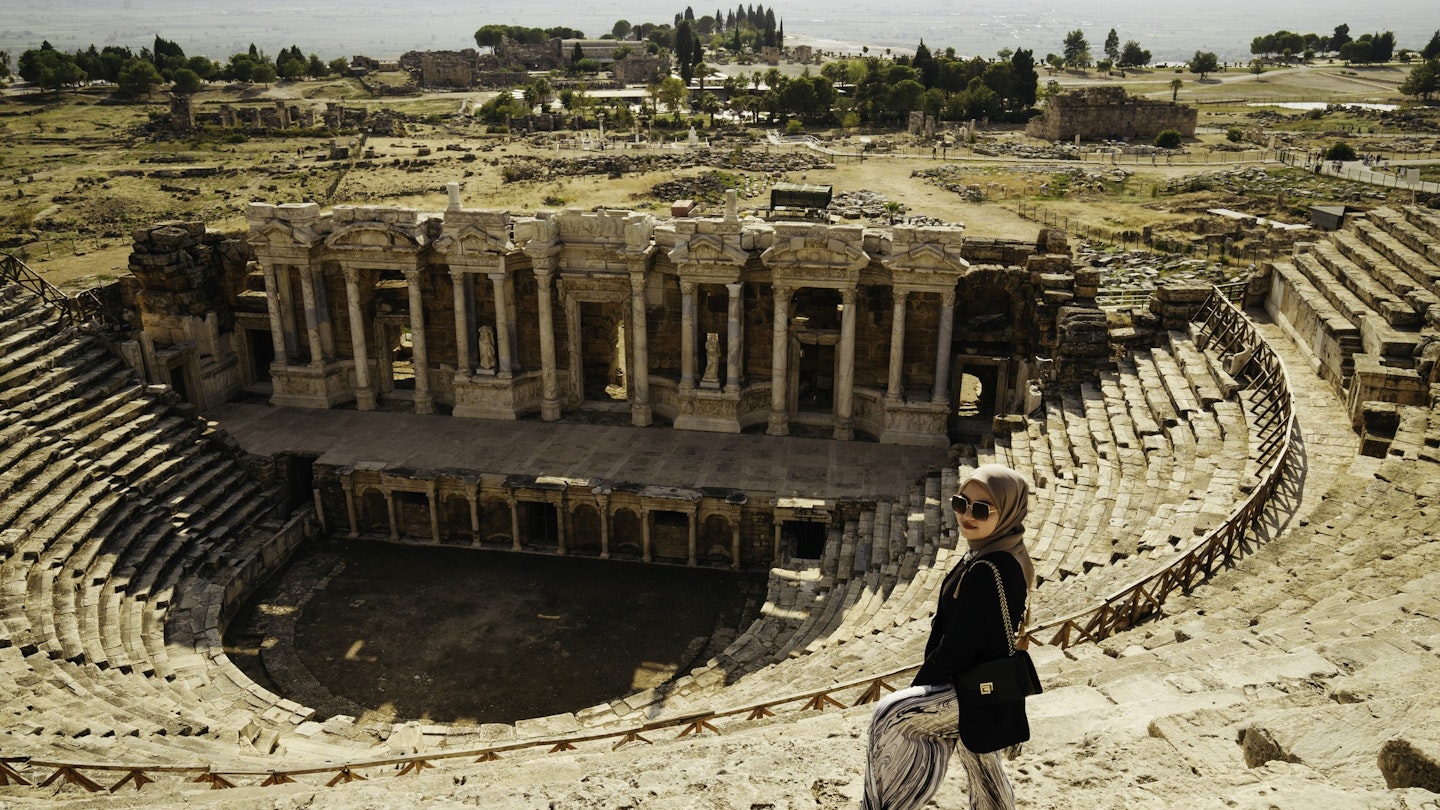
Plan your visit to Türkiye with these top places to see © rudi_suardi / Getty Images
The eclectic city of Istanbul, the fantastical rock forms of Cappadocia, the ancient ruins of Ephesus, and the glimmering Mediterranean and Aegean coastlines are Türkiye ’s biggest draws, but each region of the country has something distinct to offer.
The diversity of landscapes, heritage and culinary culture will surprise those who have never ventured beyond holiday resorts and the beach. Even though it’s easy to get around Türkiye , the country has too much to see and do to tackle it all on one trip. Because most domestic flights route through Istanbul, spend at least a few days in this dynamic global metropolis before heading out to one of our other top places to visit in Türkiye.
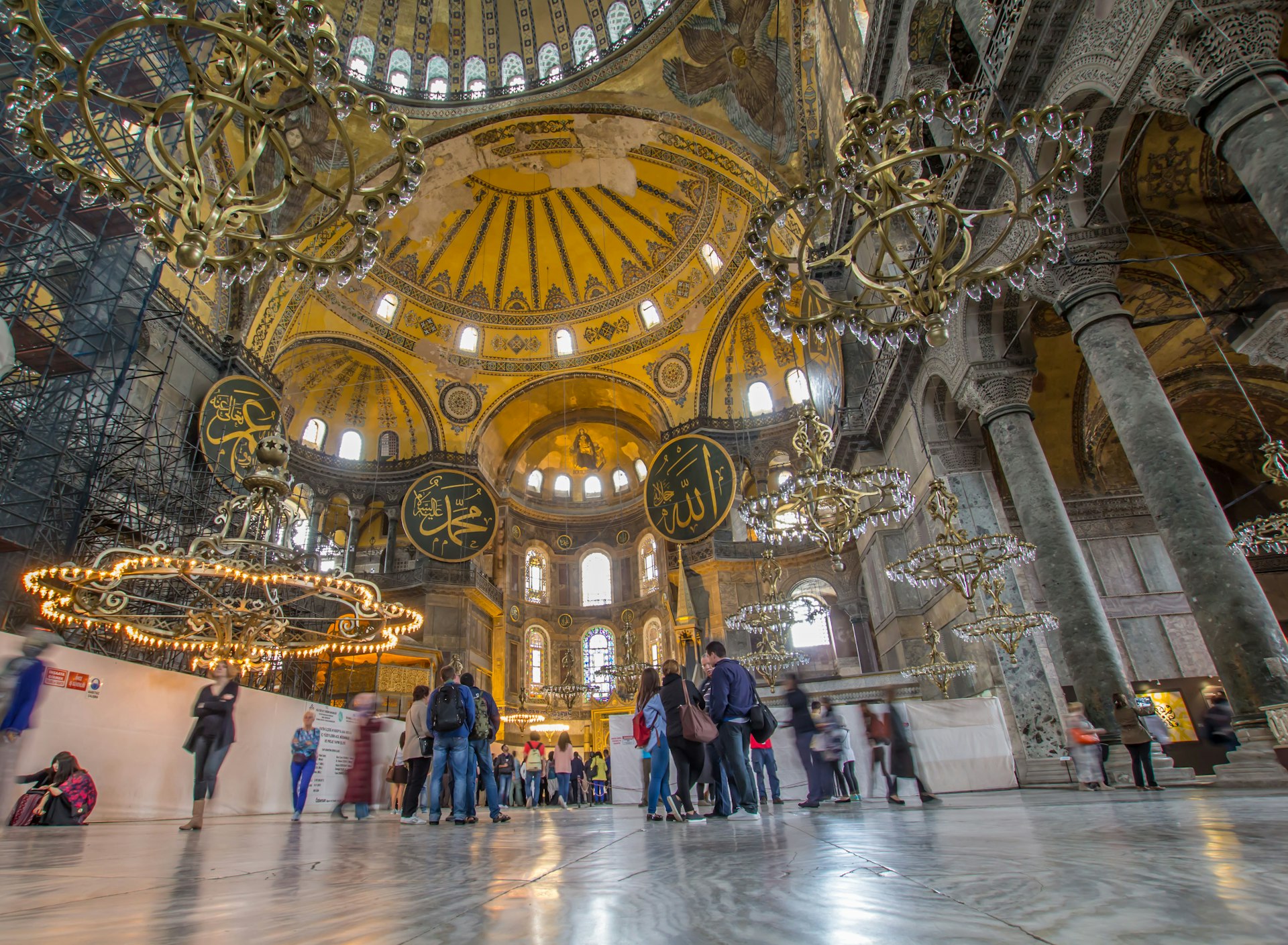
1. Istanbul
Best for ancient sites and modern neighborhoods
One of the world’s greatest cities, Istanbul should be on every traveler’s must-visit list. Highlight sights like the grand Byzantine basilica Aya Sofya , often called Hagia Sophia in English, and the Ottoman sultans’ lavish Topkapı Palace attest to the city’s centuries-long history as the capital of powerful empires.
But set aside some time to experience Istanbul as it is today, too. Go cafe- or bar-hopping in the hip Kadıköy neighborhood, wander the backstreets of more conservative Fatih or peruse contemporary art in Beyoğlu . Don’t forget the simple pleasure of drinking çay (tea) on the ferry while taking in spectacular views of the city.
Planning tip: You could easily spend your entire vacation in Istanbul, but if you have the time, it's worth venturing further afield in search of other Turkish delights.

2. Cappadocia
Best for its unique landscape
Cappadocia is a geological wonderland in the center of Türkiye. The history of early Christians in Anatolia comes alive at the Göreme Open-Air Museum and the other cave churches and underground cities scattered around the valley. Romance blossoms in the area’s cozy cave hotels and restaurants, not to mention sunrise balloon rides complete with a champagne toast. Adventure awaits amid the green valleys and undulating rocks for hikers, mountain bikers and trail runners .
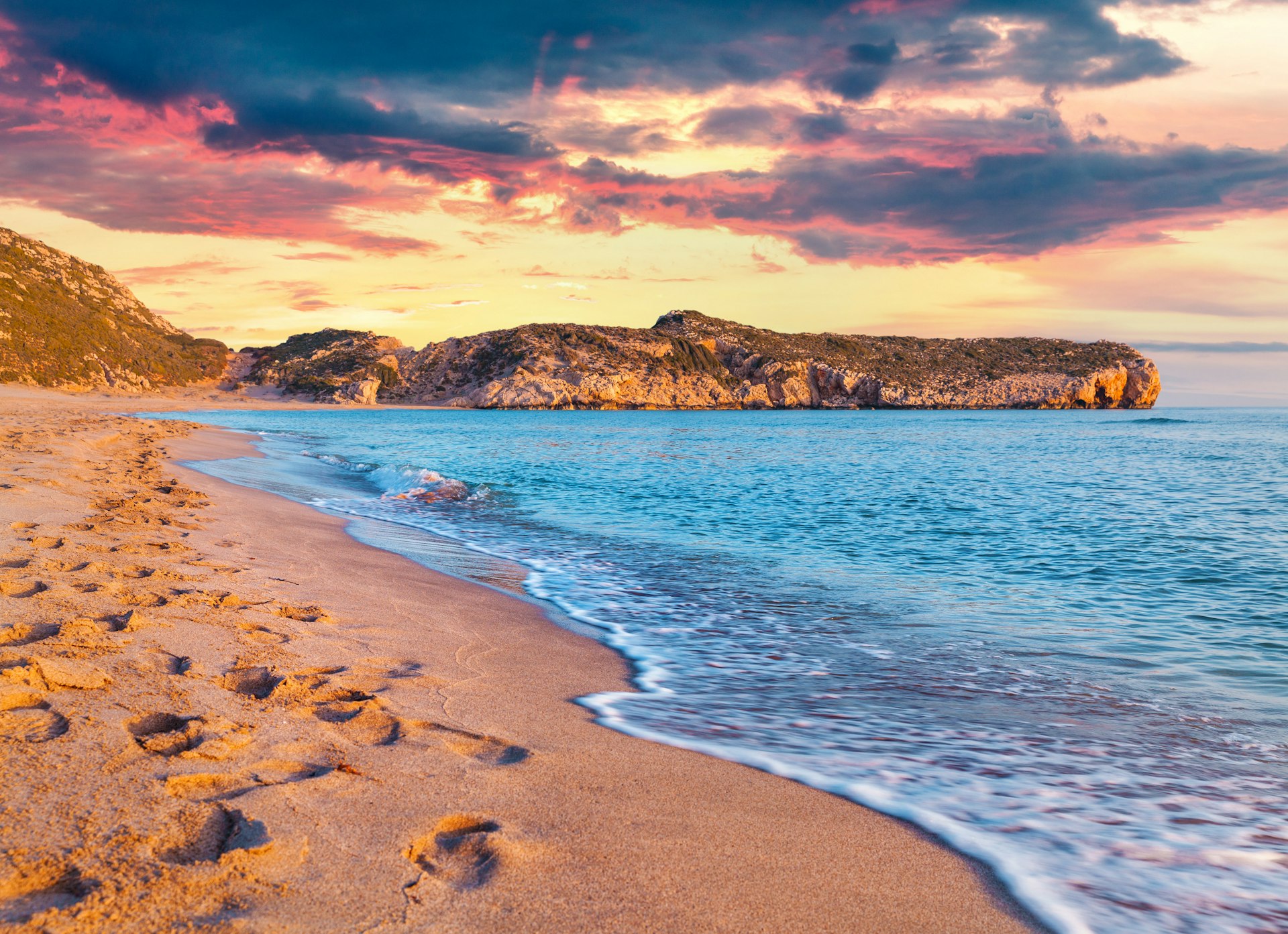
3. Turquoise Coast
Best for history lovers and beaches
Yes, Türkiye's Mediterranean coastline between Fethiye and Antalya is full of beautiful places for sun, sea and sand vacations , but it’s also dappled with evidence of the ancient civilizations that once populated the area. The seaside ruins of Patara (which boasts one of Türkiye's best beaches too) and Phaselis are particularly picturesque, and the rock tombs of Myra are especially impressive. The Antalya Museum offers good insights into the region’s history. Explore by sea on a gület cruise, on foot along the Lycian Way hiking path or by driving the scenic (but winding!) coastal roads.
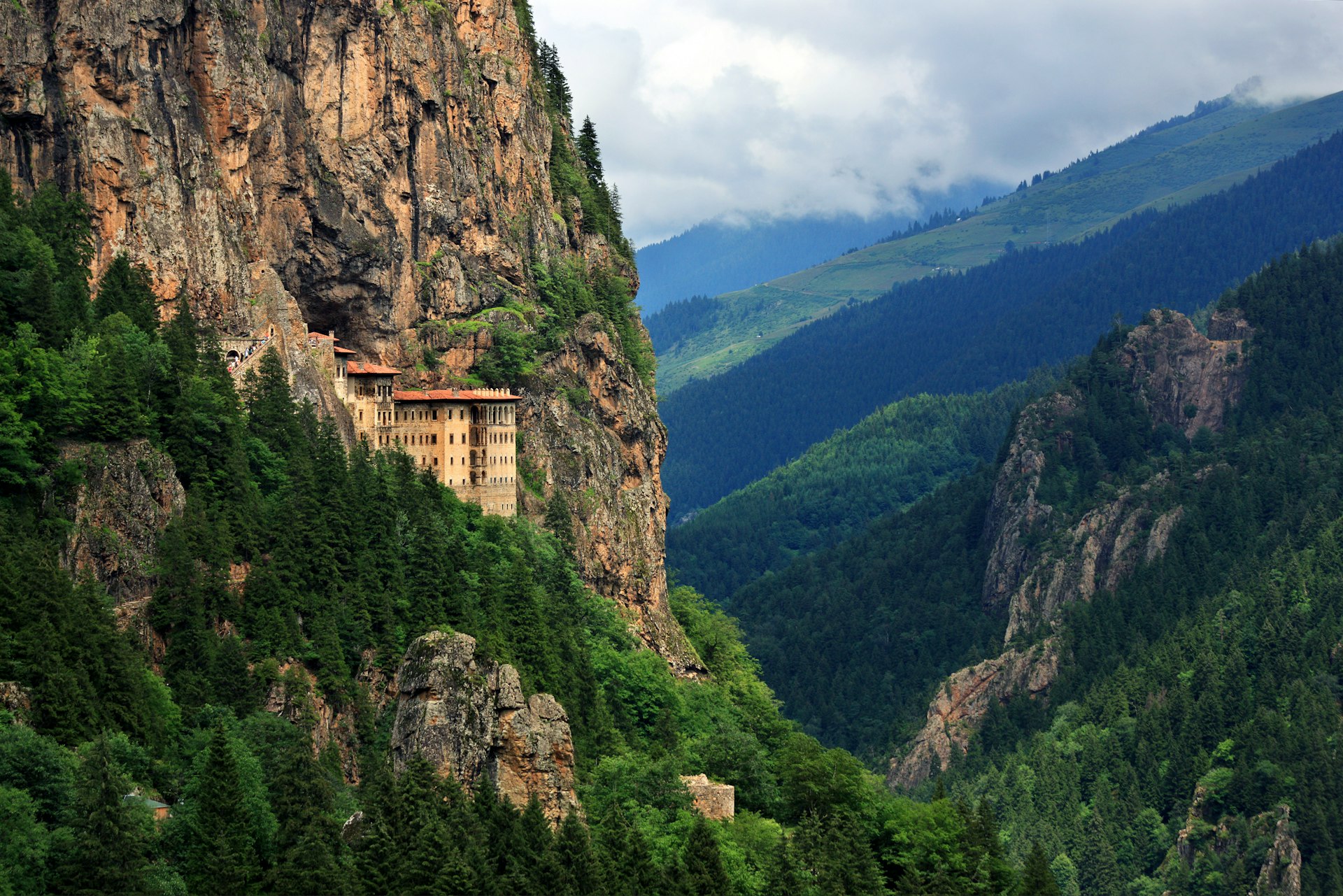
4. Eastern Black Sea and Kaçkar Mountains
Best for rural traditions
The rough, cold waters of the Black Sea aren’t particularly inviting, but turn your gaze inland, where lush green valleys spill down to the coast from high peaks, to see the region’s appeal. The lower elevations are home to most of Türkiye's tea and hazelnut production, while the high plateaus ( yaylalar ) like Pokut , that were once used as summer pastures for livestock, are becoming popular with tourists seeking out scenic views and a taste of traditional Black Sea culture and cuisine. Further above, the Kaçkar Mountains offer spectacular trekking in summer for experienced hikers.
Planning tip: Trabzon, home to the cliff-side Sumela Monastery , is the area’s main hub for air travel.
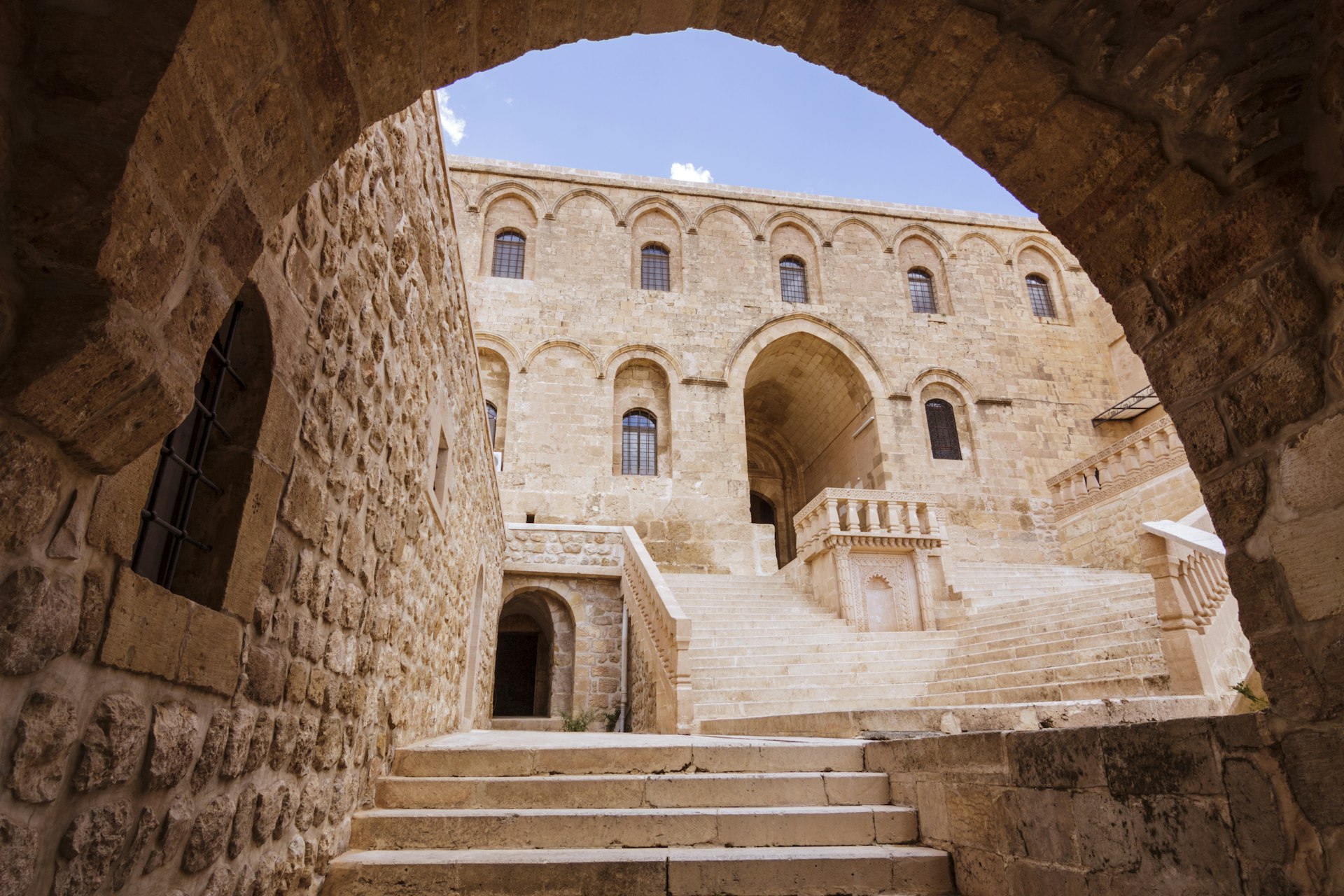
5. Southeastern Anatolia
Best for culture and food
The often-overlooked southeastern Anatolia region is one of Türkiye's cultural – and culinary – stars. The cities of Gaziantep and Antakya (Hatay) are famed for their food, and both also boast museums with incredible collections of Roman mosaics. Mardin ’s picturesque, well-preserved old town also makes a great base for exploring the monasteries and Roman ruins in the surrounding area. The world’s oldest religious site, Göbeklitepe , lies just outside of Şanlıurfa, which has its own fine archaeology museum and bazaar .
6. Datça and Bozburun peninsulas
Best for relaxation
Chilling out and getting back to nature is the order of the day on the remote Datça and Bozburun peninsulas in the south Aegean. In place of the boisterous nightlife of nearby Bodrum and Marmaris, you’ll find miles of dramatic rocky coastline, scenic rural villages, and small, quiet beach resorts and seaside towns.
Planning tip: The Carian Trail long-distance hiking path encircles both peninsulas. Check before setting out as some sections of the route were inaccessible following wildfire damage in the summer of 2021.
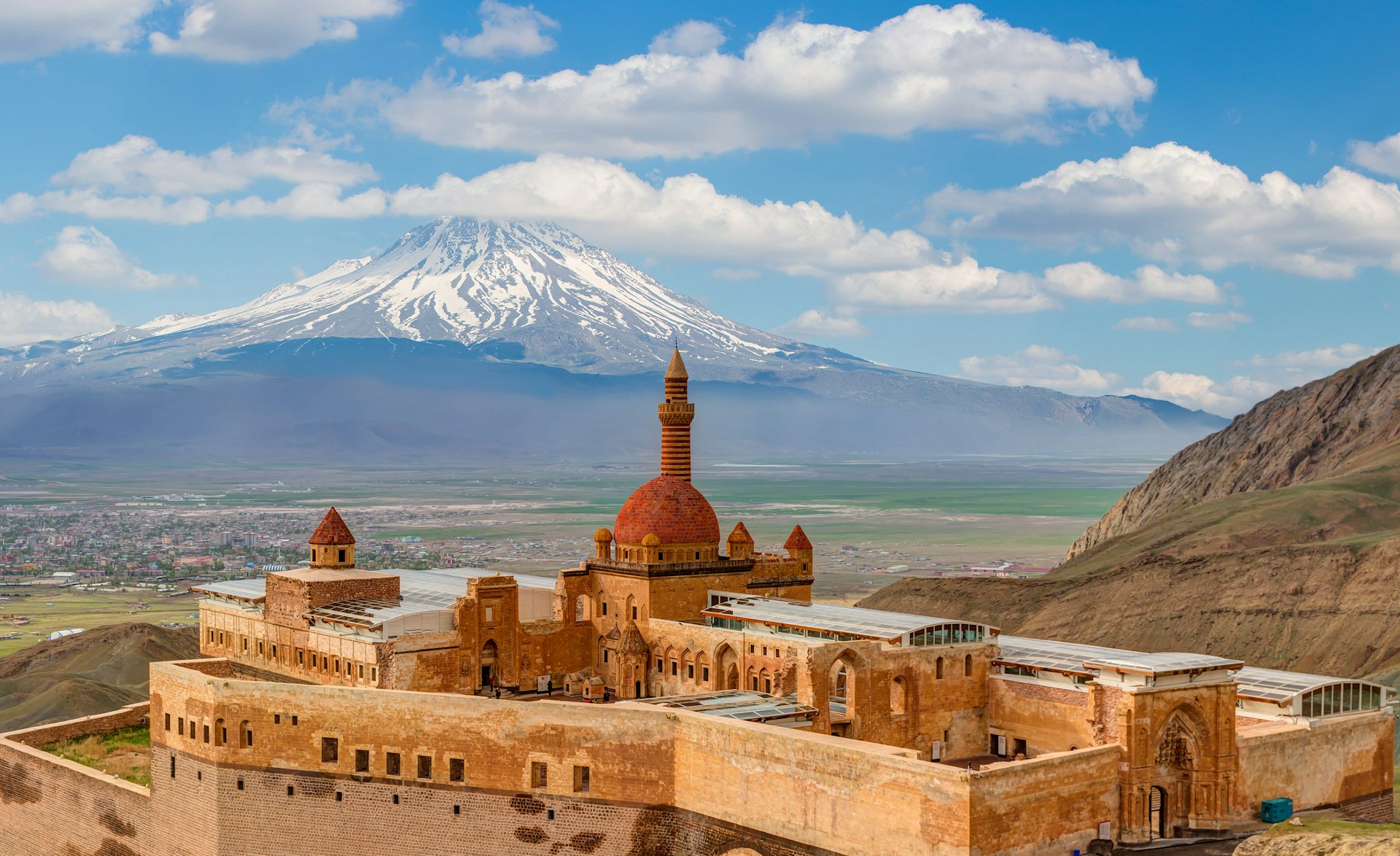
7. Türkiye's far east
Best for rugged beauty
The vast landscapes of Türkiye's far east have a remote ruggedness unmatched elsewhere in the country. Perhaps best known to travelers as the terminus of the Doğu Ekpresi (Eastern Express) , a popular and scenic overnight train trip from Ankara , the border city of Kars retains striking architecture from its years as a Russian outpost in the 1800s. Nearby are the extensive and evocative UNESCO-listed ruins of Ani , an ancient Armenian capital.
A three-hour drive south will take you to the remote İshak Paşa Palace , passing by the fabled Mt Ararat (Ağrı Dağı) en route. Continue on to Van , where you can fuel up on one of the city’s famously elaborate breakfast spreads before visiting the fine museum in town and taking a day excursion to Akdamar Kilisesi , a masterfully decorated Armenian church and monastery complex on a small island in Lake Van.
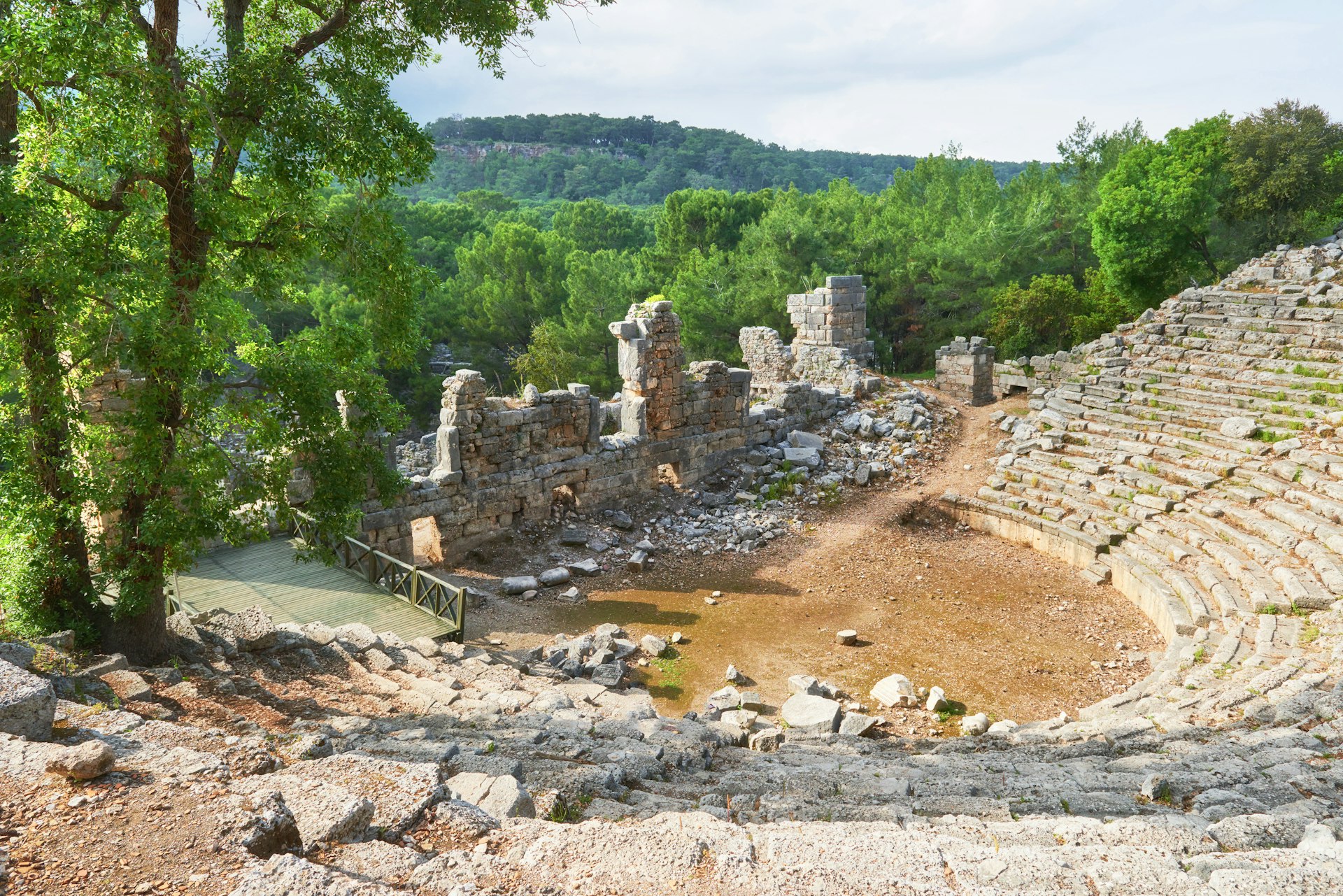
8. Gallipoli and the North Aegean
Best for WWI history and ancient Troy
Cemeteries devoted to the tens of thousands of soldiers who died in bloody battles on the Gallipoli Peninsula during WWI are scattered around bucolic rolling hills, all the more poignant amidst such serenely beautiful landscapes.
The area is also the gateway to Türkiye's North Aegean coast, a more relaxed alternative to the Mediterranean where you can take a leisurely tour of pleasant seaside towns like Ayvalık and Foça, the island wineries of Bozcaada, the ancient city of Troy (with its standout museum ) and the spectacularly sited hilltop acropolis of Bergama .
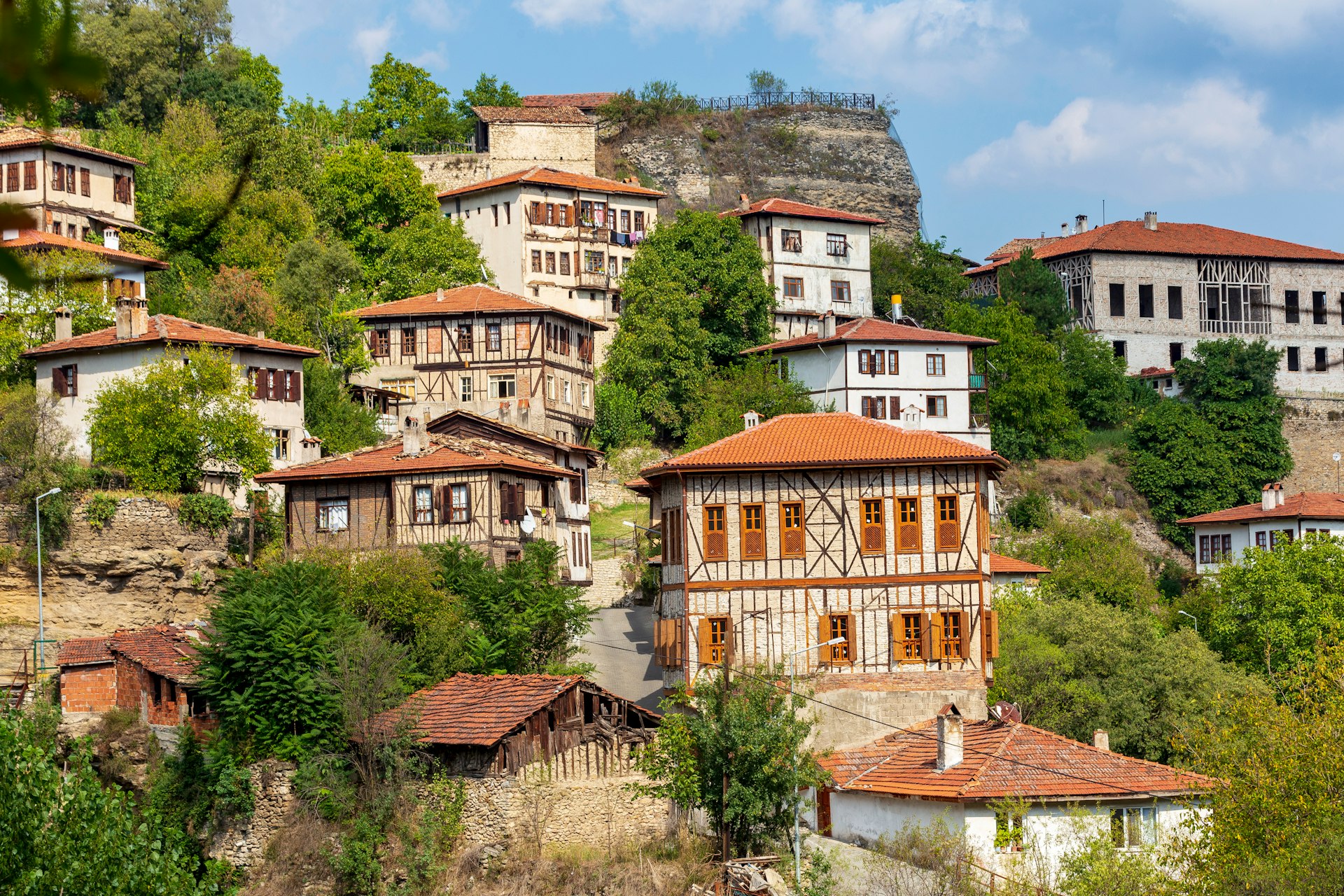
9. Safranbolu
Best for Ottoman atmosphere
Named for the saffron that was grown and traded here for centuries, Safranbolu is today popular with visitors who come to soak in its old Ottoman atmosphere. Many of the town’s historic wood-framed mansions have been restored and converted into picture-perfect boutique hotels, cafes and restaurants.
Planning tip: If it all starts to seem a little too cutesy, the canyons, waterfalls and woods of the nearby Yenice Forest are a natural tonic.
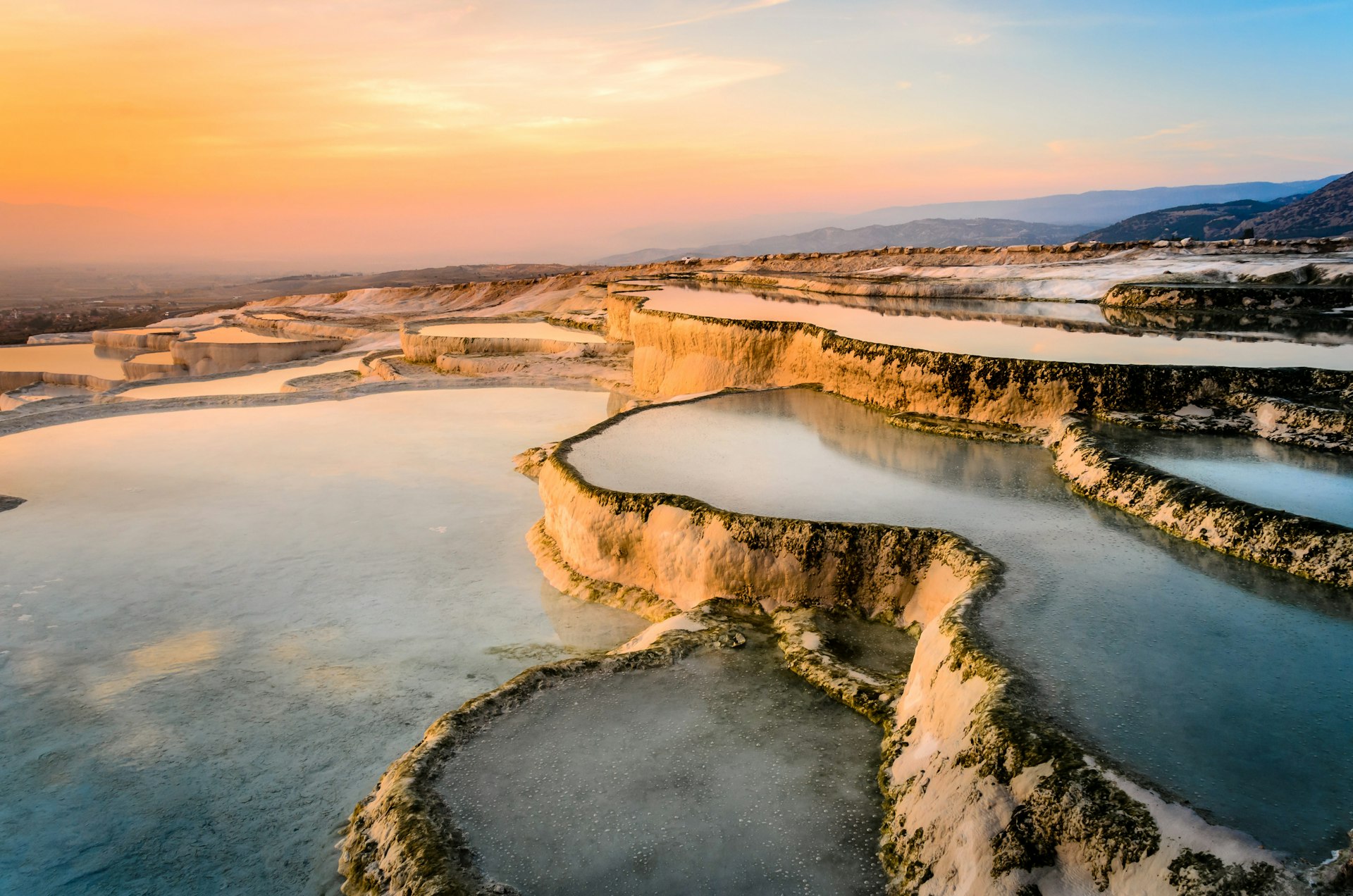
10. Pamukkale
Best for its ancient spa
The bright-white terraces of Pamukkale are surely one of the most photographed sites in Türkiye, incongruously gleaming above the rural town like freshly fallen snow. The warm mineral water that flows through them was the basis for the ancient spa city of Hierapolis , whose extensive remains sprawl out along the hilltop next to the famous travertines.
Planning tip: Pamukkale also makes a good base for visiting other nearby ancient sites like Laodicea , Tripolis and – most notably – the gorgeous ruins of Afrodisias with its impressive collection of Roman marble sculptures.
This article was first published Sep 30, 2021 and updated Dec 14, 2023.
Explore related stories
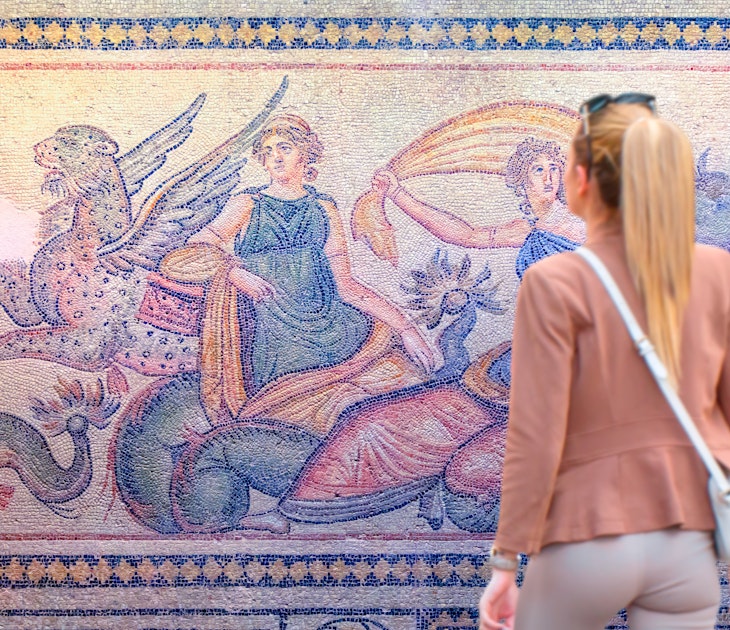
Sustainable Travel
May 9, 2024 • 5 min read
In 2023 two earthquakes rocked southeastern Turkey, killing thousands of people and displacing millions. Here's the latest on tourism in the region.

Mar 14, 2024 • 6 min read

Mar 13, 2024 • 6 min read

Mar 10, 2024 • 6 min read

Mar 3, 2024 • 4 min read

Jan 31, 2024 • 6 min read

Oct 25, 2023 • 7 min read

Sep 28, 2023 • 6 min read

Jul 3, 2023 • 3 min read

Jun 8, 2023 • 4 min read

Savvy Travel Advice
2 Weeks in Turkey: The Perfect Turkey Itinerary
Last updated: April 17, 2024 - Written by Jessica Norah 92 Comments
If you are planning a trip to Turkey, our 2 week Turkey itinerary will help you plan the perfect trip. Turkey is a large country, but if you have 14 days in Turkey you have time to explore many of the country’s most famous highlights.
Our suggested 2 week Turkey itinerary includes visits to Istanbul, Cappadocia, Antalya, Fethiye, Pamukkale, Kuşadası, Ephesus, Troy, Çanakkale, Gallipoli, and Ankara. You’ll have time to explore Turkey’s most cosmopolitan cities, marvel at its ancient archaeological sites, relax on its beaches, shop at its traditional bazaars, visit several UNESCO World Heritage Sites, and enjoy its scenic landscapes. The detailed day-by-day itinerary covers some of the most famous and iconic places in Turkey as well as some lesser known spots.
Each day we provide a range of suggestions for what you might want to do to suit just about any person’s travel style, budget, and tastes. Activity suggestions include hot air ballooning, food tours, hiking, museum visits, boat trips, cable car rides, art tours, Turkish hamam experiences, watching the sunset, cultural performances, and enjoying the local night clubs.
Laurence and I have visited Turkey several times and wanted to share this 14 day itinerary to help you plan your own trip. With 2 weeks in Turkey, you can see and do a lot, but you do need to be choosy as Turkey is a big country with lots of interesting attractions!
This itinerary can work no matter how you plan to get around Turkey. We have provided advice for those planning to travel by bus, car, train, plane, or as part of a guided tour. If you are thinking about booking a tour, we also give some recommendations for tours of Turkey that are similar to our itinerary.
Our 2 week Turkey itinerary includes day-to-day transport details, sightseeing highlights, activity options, and lodging recommendations. In addition, we’ve also included loads of tips, advice, and recommendations to help you get the most out of your Turkey vacation!
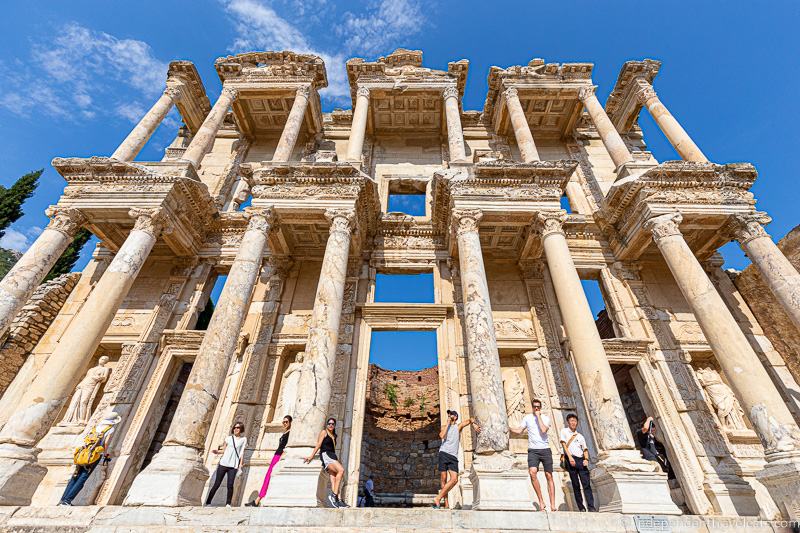
Table of Contents:
Preparing for your Trip to Turkey
Before we share our suggested 2 week Turkey itinerary, we wanted to share some tips and advice and answer some frequently asked questions about planning a trip to Turkey.
These include travel basics like knowing the local language and currency, the best time of year to travel to Turkey, how to get a visa, how to budget for your trip, and the best ways to get around Turkey.
The most important things you need to decide before planning out your itinerary is when you plan to visit, how long you plan to visit, and how you plan to get around the country.
Best Time of Year to Visit Turkey?
Turkey is a year-round travel destination. Generally, the months that are considered the best months to visit Turkey are April, May, September, and October. They are months when it is warm but not super hot outside.
The summer months of June through to August are often very hot in most parts of Turkey and can make it uncomfortable to spend long periods of time exploring outdoors. So be prepared for the sun and heat if you visit during the summer.
The busiest time of year to visit Turkey is from April to September. So if visiting during this period, just note that places will be busy. So expect crowds at the most popular sites.
The least busy times of the year are the winter months. If you don’t mind a bit of cold weather, you might consider traveling between November and March. Just note that these also tend to be the windiest and wettest months as well as the coldest. Also some attractions in Turkey are seasonal and may be closed for part of this period.
It should also be noted that Turkey is a large country so the weather in Istanbul may be very different than that of Antalya, Bodrum, Ankara, or Kars at the same time of year. So best to check average temperatures and weather for the specific places in Turkey you plan to visit.
We’ve been to Turkey at many different times of the year, and for those who don’t love hot weather, we’d definitely recommend against visiting in the summer if you can. The spring and autumn are definitely ideal for temperature.
We have also visited in late November and early December and found it cool but pleasant and crowds were much more manageable. But you do need to be more prepared for rain and bad weather.
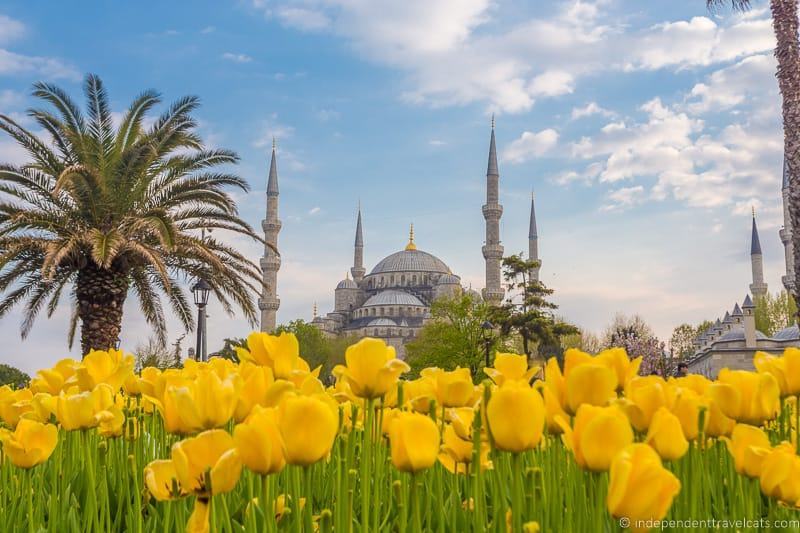
How Much Does it Cost to Visit Turkey?
Turkey is a relatively inexpensive country to travel to and it is easy to find affordable lodging, food, clothing, and transportation.
In Istanbul, you can pay USD $8.00 for a hostel bed or you can pay USD $500 for a luxury hotel room. Turkey can be a great destination for budget, mid-range, and luxury travelers alike.
If you are traveling on a budget, you can easily travel in Turkey for very little. You can get a bed in a hostel for under USD $10 and meals in inexpensive restaurants for under USD $5.00. Bus fares and train fares are also inexpensive. Even domestic flights are generally reasonably priced, especially if you book in advance.
To find out an idea of the current prices for things in Turkey we recommend checking out a site called Numbeo. Here you can check for the average prices of basic goods (bananas, taxis, gasoline, restaurant meals, wine) in Turkey or check on prices of goods for a particular city (see here for Istanbul ).
Although most things in Turkey that travelers are likely to be purchasing are inexpensive compared to say the USA, Canada, Australia, and Western Europe, imported goods are often the same price or more expensive. This includes imported grocery items, electronics, alcohol, and cars. Fuel can also be expensive.
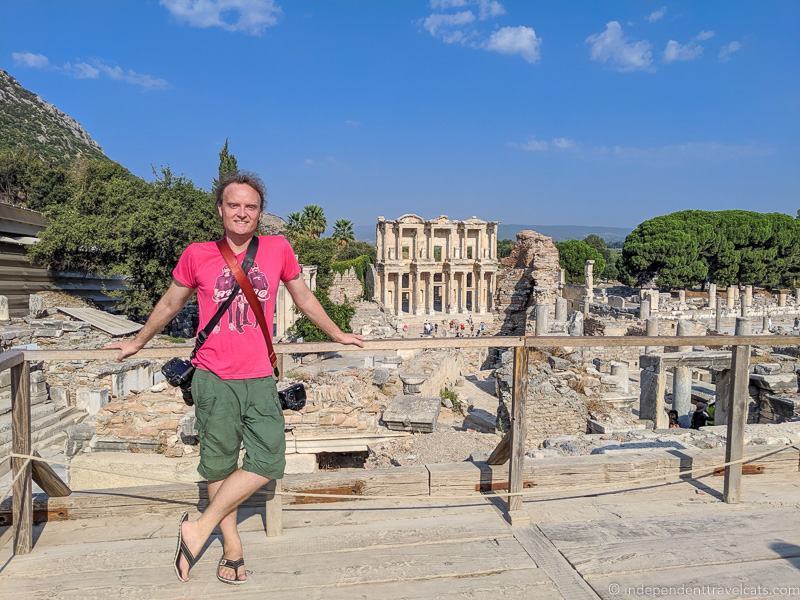
Turkey Travel Practicalities?
Turkey, officially the Republic of Turkey, is a huge country of over 75 million people and its capital city is Ankara. The largest city is Istanbul. Turkey straddles Europe and Asia and is a place where eastern and western cultural practices mix.
Here are some things you should know about Turkey before your trip.
Language in Turkey
The official language is Turkish and that is the first language of most Turks. Many people in Turkey also speak Kurdish.
You’ll find English speakers in the larger cities and in all the main tourist hot spots; however, most Turkish people speak little or no English. If you are planning to travel independently, it is a good idea to have a Turkish-English phrasebook or translation app with you.
Religion in Turkey
There is no official religion in Turkey but the vast majority of the people are Muslim, with Sunni Islam being the largest sect. However, it is common to also see Christian and Jewish places of worship.
It is important to follow local customs regarding modesty and dress when visiting religious places. Both men and women are asked to dress modestly and you may also be asked to remove your shoes. Women will be asked to cover their heads.
We recommend that women always carrying a scarf or travel wrap with you to cover your head and shoulders as needed.
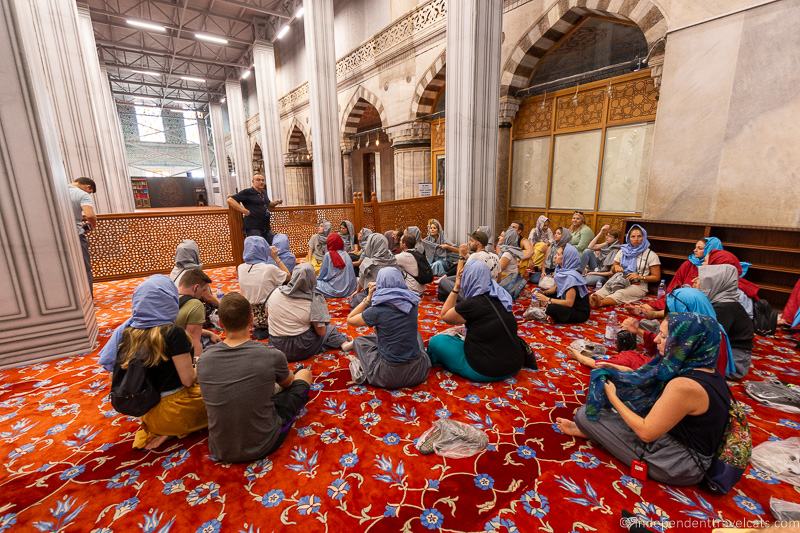
Electricity in Turkey
In terms of electricity, Turkey operates on 220 volts / 50 Hz and uses round-prong Type C or Type E plugs that fit into recessed wall sockets. If your devices do not have Type C or Type E plugs (common in many European countries), you will need to take some plug adapters such as these ones .
If you are traveling from a country with 120v voltage (such as the United States or Canada), you will want to make sure to only bring electronics that will support 220v voltage, or you’ll need a separate voltage converter. You can see more in our guide about choosing a travel adapter for travel .
Currency in Turkey
The currency used in Turkey is the Turkish Lira (TRY). Credit and debit cards are widely accepted in Turkey, with Mastercard and Visa being the most commonly taken.
However, many small businesses, street vendors, taxi drivers, and market sellers do not take credit cards. You also will need cash for tipping. So it is always wise to have liras on you when traveling.
The best way to get liras is from a local ATM once you arrive in Turkey. But you can also get them from a currency exchange bureau or bank before or during your trip. You can check the current exchange rate here .
Drinking Water in Turkey
There are mixed reports about whether the tap water is safe to drink in Turkey. The tap water in some areas is considered safe to drink but not in other areas. So it is generally recommended that travelers do not drink tap water in Turkey. However, the water is considered safe for bathing and cleaning.
Although bottled water is available everywhere, the environmental impact of these plastic bottles is terrible. So we recommend instead that each person takes a reusable water bottle along with a water filtration system or purification tablets. Then you can fill it up with tap water from just about anywhere.
We use the LifeStraw water bottle and it not only filters out any bacteria and dirt, but also filters out chlorine and other chemicals that cause the water to taste bad.
Getting Online in Turkey
Wireless Internet is freely available at most hotels and other types of accommodation in Turkey. So that can be a free way to stay in touch and get online. If you want to be able to use your phone’s service, you might want to consider getting a local SIM card .
If it is important for you to be able to get online easily during your trip, you might consider taking along a mobile hotspot. On our last 2 week trip to Turkey, we used a mobile hotspot from MyWebspot and it worked very well.
You can read our guide for more tips on staying in touch and using the Internet while traveling . For those concerned about online safety, we also recommend using a VPN while traveling in Turkey if you plan to use WiFi.
Safety in Turkey
Turkey has generally been considered a safe country for travelers. However, you should always check the latest travel advisories in your country and those issued in Turkey
There has been a lot of unrest in countries neighboring Turkey, particularly Syria, and there has been noted instances of violence, protests, and fighting along its borders. So you will likely see some travel advisories advising against travel to some of the border areas.
As with any country, we always recommend protecting your valuables, protecting yourself against pickpockets, and being aware of your surroundings at all times.
The main thing we have experienced is that you need to be very careful when handing over cash or exchanging money. Be sure to carefully count what you hand over and say the amount out loud, and make sure you get the correct change back.
We’ve had a taxi driver in Istanbul scam us by claiming we gave them a much smaller denomination note than we did and would not give us back the correct change. We ended up paying about 4 times the regular amount for a taxi ride. We’ve heard similar stories from many other travelers as well.
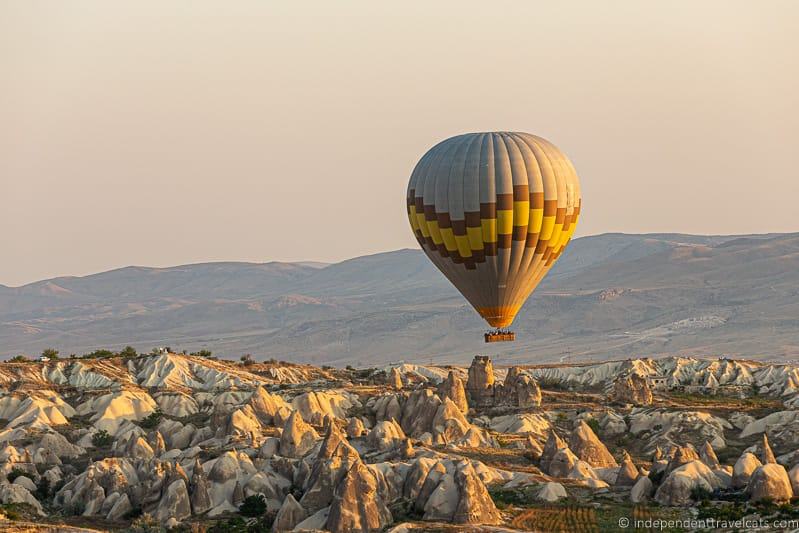
Do I need a Visa for Visiting Turkey?
Yes, most people, but not all, will need a visa to visit Turkey. Turkey has recently changed its policy so that residents of most European nations can enter Turkey without a visa.
You should check the current requirements for your particular country. Some countries may also have additional entry requirements.
Most nationalities that require a visa are eligible to apply for an e-visa in advance which is what we’d recommend doing. There are visa application places at the main ports of entry in Turkey but these can take longer and if your application is refused for any reason, you will be in a very undesirable situation. Best to apply and have it before you leave home.
With the e-visas, at most places the border patrol and authorities can check it in their system. But you will also want to bring along a digital and/or paper copy of your approved e-visa as well for back-up documentation.
How to Get to Turkey
Most visitors will arrive into Turkey via the international airport in Istanbul, but there are several ways to get to Turkey.
The main international airport in Turkey is the recently built Istanbul Airport in Istanbul. However, there are several major international airports in Turkey, including ones in Ankara, Mugla, Izmir, and Antalya.
There are direct or indirect flights to Istanbul from most parts of the world. The main airline operator in Turkey is Turkish Airlines.
It is possible to drive to Turkey via Bulgaria or Greece or to by taking a car ferry.
At the border you will need to provide a valid passport, visa (if needed), international driving license, vehicle license, international green card, vehicle registration details, and proof of insurance. Make sure your car insurance is valid for travel within all of Turkey. If the vehicle is not registered in your name, you may need a power of attorney document.
It may be possible to also enter by car from other countries to the east such as Iran or Georgia; however, the eastern borders are sometimes closed to private drivers and sometimes an authorized tour guide is required. Many rental car agencies will also not allow many of these border crossings. So do your research before your trip as it is often much easier to take a bus or train to make the crossing is there is one available.
If you want to travel to Turkey by bus there are regular services between Turkey and several European and Middle Eastern countries. You can check bus routes and book tickets on BusBud .
There are ferry connections to Turkey for both cars and passengers, mainly from Greece and Cyprus.
Turkey has train links with eastern Europe and the Middle East; however, they are fairly limited and most trains are not daily so you will want to plan ahead. Wars and economic issues have closed a number of the long-distance international routes.
Currently, the two main places you can regularly get to Turkey directly by train are from Bulgaria and Iran.
If you are traveling in Europe by train and including Turkey in your trip, you will probably need to head to Sofia, Bulgaria and then connect to Istanbul via the Istanbul-Sofia Express train service. We took this train a couple of years ago.
If you are planning travel around Europe by train then you might want to consider a Eurail Global Pass (European rail pass for non-Europe residents) or Interrail Global Pass (European rail pass for residents of Europe). The Global Passes work for travel in over 30 European countries, including Turkey. The pass includes the Istanbul Sofia Express train service.
The most famous train service in the world, the Orient Express, once linked western Europe with Istanbul. It was a favored train by many famous writers, and we recommend taking along a book or two to enjoy if traveling by train.
A couple of novel suggestions include Murder on the Orient Express by Agatha Christie and Stamboul Train by Graham Greene. For a travel memoir, Paul Theroux writes about his experiences traveling by train in 1973 from Paris to Istanbul and from Istanbul to Tehran in his book The Great Railway Bazaar . He then retraces his train journeys over 30 years later in Ghost Train to the Eastern Star .
The terminus train station for the old Orient Express service is still there and once a year the Venice Simplon Orient Expres luxury train still makes this trip from Paris (or London) to Istanbul.
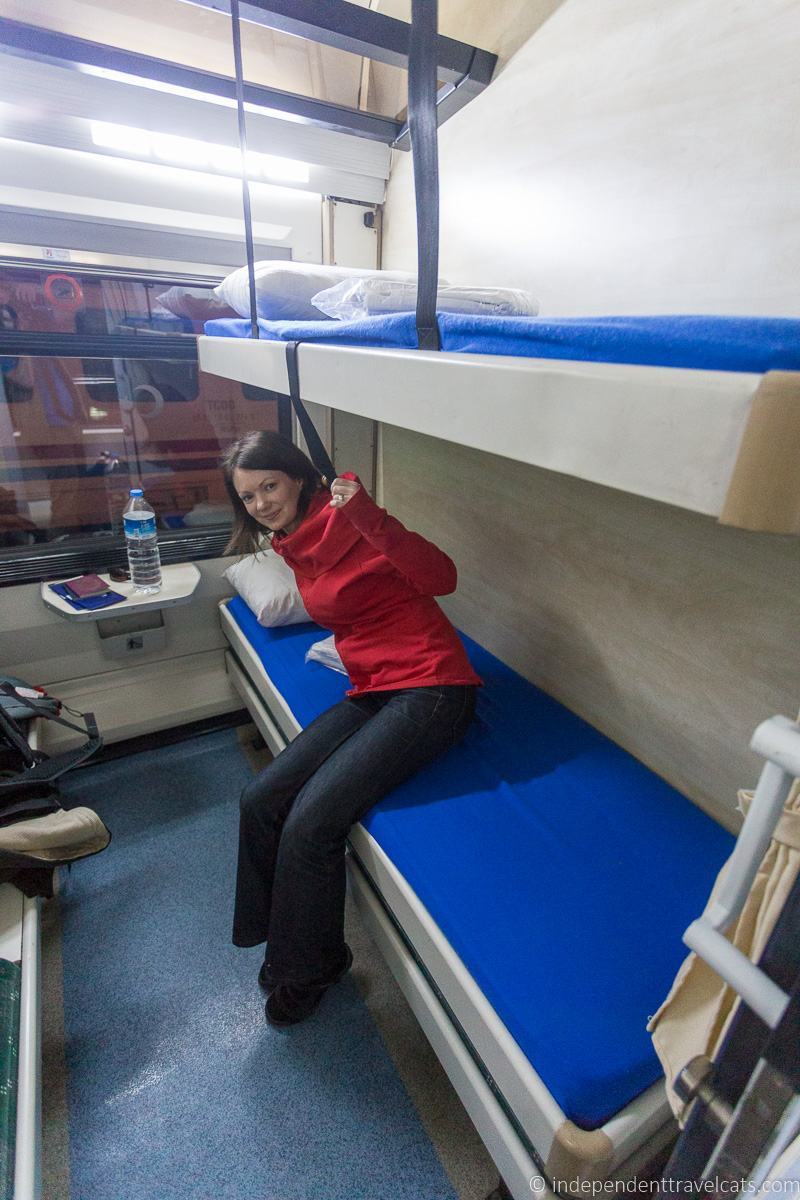
How to Get Around Turkey
You have a variety of options for getting around Turkey. These include traveling by bus, train, or plane, renting a car, or joining a guided tour.
The easiest way is to take a tour, where someone else handles all your transport, accommodation, and sightseeing. The cheapest is to travel by bus and train.
In terms of public transport, Turkey has a good bus system which connects much of the country. There are both daytime and overnight buses, and there are usually a few services to choose from if you are heading to some of the more popular destinations, including those on our suggested itinerary.
There are several bus companies in Turkey. Many of the buses have amenities such as power outlets, WiFi, and onboard entertainment. Bus prices are very reasonable.
In places where the regular buses don’t have a route (such as to suburbs or to tourist attractions located outside of a city) there are often dolmus that run in these areas. These are shared taxis or minivans that run a set route for a set price. Passengers can then get out of the dolmus at any point along its route by notifying the driver. See advice for using a dolmus here .
For most of the regular buses, you can check the routes and buy tickets online in advance. The best tool we’ve found for comparing timetables and booking bus tickets in Turkey is BusBud and you can check prices and book online here .
There is a train network in Turkey, but it is not as comprehensive as the bus network. However, it is sometimes faster to take a train than to drive or take the same bus route when it is an option. So while you can use it to get to some of the main travel destinations in the country, you will likely need to also use the bus.
The railway network in Turkey is run by the government-operated Turkey State Railways (Türkiye Cumhuriyeti Devlet Demiryollari or TCDD). This includes a network of long-distance, regional, commuter, and high-speed trains. You can check routes and buy tickets here .
If you are planning to take a few train journeys in Turkey then you might want to consider a Eurail Pass (European rail pass for non-Europe residents) or Interrail Pass (European rail pass for residents of Europe). You can get a Global Pass that works for 32 countries in Europe (including Turkey) or a Turkey Select Pass (only valid for Turkey). The Eurail and Interrail passes are valid on all trains in Turkey operated by Turkey State Railways.
You will probably find a combination of train and bus will be the optimal way to get around if you are taking public transport. Bus and train prices are often similar, so in those cases, you’ll want to take whichever option is more time-efficient.
If you’d prefer to drive yourself, you can rent a car in Turkey. This can be a good way to get around if you want to have a more flexible itinerary and don’t want to take public transportation.
To rent a car in Turkey as a foreign visitor, you will normally be required to show a valid passport and visa, have a valid credit card, a valid drivers’ license in a Latin alphabet, and be age 21 or older (some age requirements may be as high as 27). If you don’t have a driver’s license in a Latin alphabet you will need to get an International Driving Permit prior to your trip.
The main roads in Turkey are in good condition and there are roadside services along the way. However, Turkey is known for a high number of accidents and bad traffic, especially in the cities. It can be a stressful experience for tourists not familiar with driving in Turkey. This is not to say you shouldn’t consider renting a car in Turkey, just be aware of the situation, get insurance, and be prepared to drive defensively.
Many of Turkey’s fastest highways and bridges have tolls. To drive any of these roads, you will need to first sign up for Turkey’s high-speed toll system called Hizli Geçis Sistemi (HGS) and have an electronic toll payment device on your car. You can’t pay the toll with cash or credit card at the toll booths. If renting a car, your rental car will likely come with the sticker and you should ask about it and any associated fees.
Just note that driving a car is generally the most expensive way to get around Turkey. You can often purchase 2 or 3 bus or train tickets for the cost of just the fuel between two cities. Given that drivers also have to take into account rental fees, insurance, parking, and highway tolls, driving a car is often even more expensive than flying.
Drivers should always keep local cash on hand as most of the tourist sites have paid parking fees and payment at some of these places is only accepted in cash.
You can rent a car in any of Turkey’s main cities, and many people rent a car in either Istanbul or Ankara. If you want to rent a car, you can compare and check prices online with Discover Cars here .
Finally, as Turkey is a big place, there are a number of domestic flight routes which can help you to get between some of the major locations quite quickly. There are over 50 airports in Turkey.
Flights are relatively inexpensive if booked in advance, although they are usually more expensive than taking a train or bus. The main airline in Turkey is Turkish Airlines.
So flights can help you cover large distances in a relatively short time. Just don’t forget to account for the time required to get to and from the airport and to check in and go through security. It is also important to think about the environmental footprint of taking numerous flights versus other modes of transportation.
However, airports are often located a fair distance from the tourism destinations so you will still need to combine flying with other modes of transportation such as a bus, train, car, taxi, or tour.
By Carpooling or Ridesharing
You can use carpooling or ridesharing services like BlaBlaCar to find rides in Turkey. However, given that the established bus network will get you to almost anywhere you need to go, that bus tickets are so inexpensive, and that carpooling is not that popular in Turkey means that you are probably better off using the bus (or train).
One of the most popular ways to explore Turkey is to join a guided tour. We can definitely recommend it if you are considering a trip to Turkey similar to the one we suggest in this itinerary.
A tour makes travel in Turkey much easier. You don’t have to figure out public transportation schedules or how to buy tickets, you don’t have to spend long periods of time driving or figure out where to park, and everything is planned ahead for you.
The best thing about joining a tour is that you have a tour guide who can help explain all the things you are seeing and give you lots of great advice for places to go, dishes to eat, and things to see.
Many attractions in Turkey include very little posted explanations so having some sort of guide (whether a person, audioguide, or book) is important to get the most from your visit.
Private tours in Turkey with a guide are also possible and can be a good value for those traveling with a family or small group.
We have a selection of recommended tours that are similar to this itinerary in this guide. We also suggest taking a look at Turkey tours on TourRadar here , where you’ll find a range of tours from various tour operators at different price points and durations.

How Long Should I Spend in Turkey?
It really depends on what you want to do and see in Turkey. Turkey is a huge country and it would take months to see all of its highlights.
I would say an ideal amount of time for a first trip would be 10 to 14 days. This will give you plenty of time to get a taste of Turkey and see some of the country’s most famous cities, historical attractions, and beaches.
Most first time visitors spend most of their time focused on the western part of Turkey and this is what we’d recommend. If you have 2 weeks, you can cover many of the highlights. If you have more time, or come back a second time, you can cover the lesser-known destinations of the west or expand your trip into the lesser-explored eastern part of Turkey.
For what to see with 2 weeks in Turkey, see our suggested itinerary below for an itinerary and day-by-day suggestions for what to see and do.
If you want to spend less time moving from place to place, you can easily just split your time between two places, for instance spending several days in Istanbul and then several days in another town or city, like Antalya, Fethiye, Ankara, or Izmir. You can spend time exploring the cities and take day trips to visit nearby attractions.
We’ve visited Istanbul several times now and still haven’t seen everything the city has to offer!
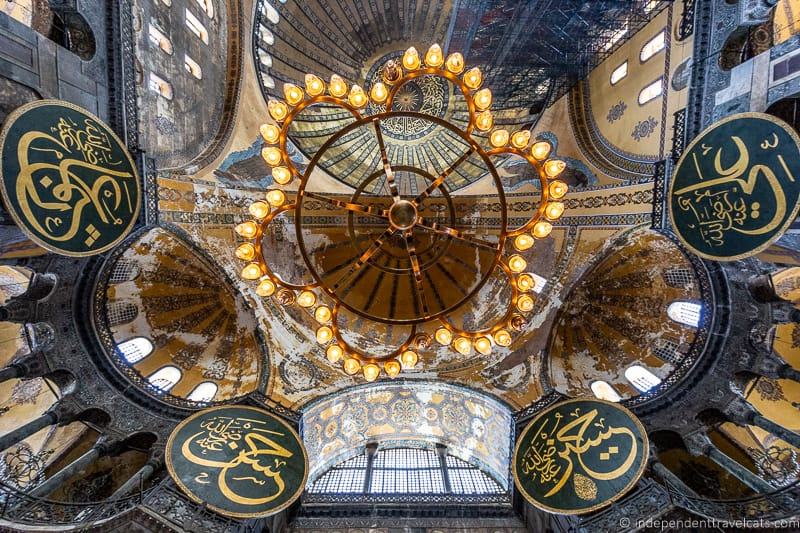
Tours of Turkey
Turkey is a big place and it is often a long distance between popular tourist attractions, resulting in quite large amounts of time transiting. While there is a fairly good public transport network and it’s possible to hire a car, we think for many people a tour is the best way to get around.
This way you can let someone else handle all the logistics of your trip, from transport to accommodation, and you can just enjoy yourself and focus on the sightseeing
. It also means you don’t have to worry about booking individual day trips for out of town sights, as most tours will already include stops at these attractions. You’ll also get a tour guide for the duration who can help explain all the amazing things along the way.
You can also spend the time on the coach reading, chatting with your travel companions, catching up on sleep, or surfing the Internet rather than driving or negotiating public transit.
Turkey is a popular destination, and there are a huge number of tours to choose from, varying from a few days to a few weeks. Most are offered at a reasonable price, with lots of budget and mid-range options.
When choosing a tour, it’s important to pick the style of tour that is right for you. Some tours are smaller groups, others are quite large. Some are geared to a younger traveler whereas others are more focused on a more mature traveler. Some include more time at historical and cultural sites whereas others may spend more time at beaches and seaside destinations. Check the comfort level of the accommodation and transport included.
It’s also important to read what is included when comparing tours. For example, some tours might include all your entry fees and meals whereas others will allow you to choose whether you want to pay for those things or not. So don’t just look at the price of the tour but also check what is and what isn’t included.
A good tour company should also be able to give you an estimate of the costs for all the optional activities and attractions that aren’t included, so you can budget accordingly.
For instance, we have taken a tour with Travel Talk Tours in Turkey and most of their budget-oriented tours work out to being about $50 to $80 per day per person for all inclusions, including transport, guide, attractions, meals, and lodging. You can read about our 12 day Turkey tour experience here .
We’ve put together a selection of tours of Turkey below which are quite similar to our itinerary, so you can pick a tour that is right for you. Most start in Istanbul but a couple start in Ankara.
- This 10 day small group tour includes visits to Istanbul, Ephesus, Pamukkale, and Cappadocia
- This 12 day tour includes visits to Istanbul, Gallipoli, Troy, Ephesus, Pamukkale, Fethiye, and Cappadocia.
- This 12 day Turkey by gulet tour includes visits to Istanbul, Gallipoli, Troy, Ephesus, Pamukkale, Fethiye, and Cappadocia. It also includes 3 nights on a gulet boat. You can read all about our experience taking this tour of Turkey here .
- This 12 day private tour from Ankara includes visits to Ankara, Istanbul, Cappadocia, Konya, Antalya, Kaş, Fethiye, Pamukkale, Efes, Kusadasi, Ephesus, Troy, and Gallipoli
- This 13 day tour which includes Istanbul, Cappadocia, Antalya, Fethiye, Bodrum, Pamukkale, and Ephesus
- This private 14 day tour of Turkey which includes Istanbul, Ephesus, Pamukkale, Antalya, and Cappadocia
- This 19 day tour could be great for those with more time in Turkey. It includes visits to Istanbul, Gallipoli, Troy, Ephesus, Pamukkale, Fethiye, and Cappadocia, plus 7 nights on a gulet to visit nearby seaside towns and islands.
As you can see, there are lots of tours to choose from so you can probably find a tour that suits your travel needs. You can see lots more tours in Turkey from various tour operators on TourRadar here .
You can also consider mixing independent travel with a tour as we find this a good way to enjoy some time sightseeing on our own (such as in Istanbul) and then taking a tour to explore further afield.
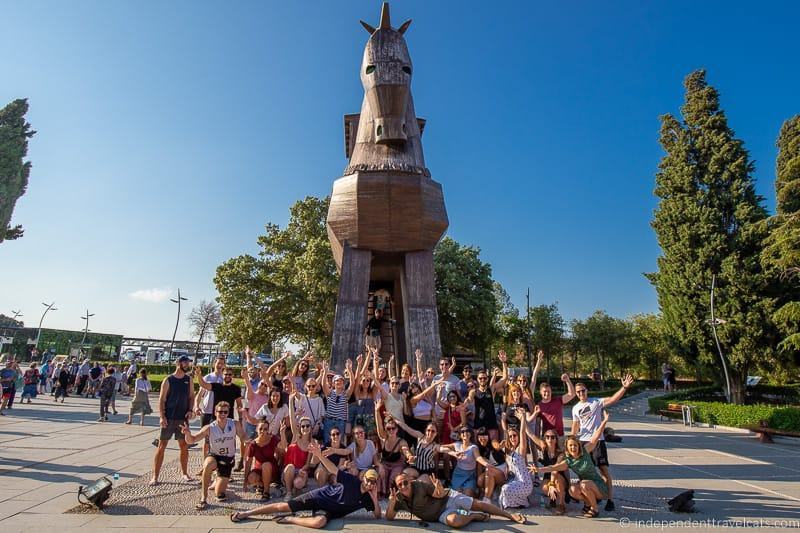
14 Days in Turkey Itinerary Summary
Here’s a summary of our suggested 2 week Turkey itinerary to help you visualize what your two weeks in Turkey will look like:
- Day 1: Istanbul
- Day 2: Istanbul
- Day 3: Gallipoli
- Day 4: Troy & Kusadasi
- Day 5: Kusadasi & Ephesus
- Day 6: Pamukkale & Fethiye
- Day 7: Fethiye
- Day 8: Antalya
- Day 9: Antalya
- Day 10: Cappadocia
- Day 11: Cappadocia
- Day 12: Ankara
- Day 13: Ankara
- Day 14: Istanbul
2 Week Turkey Itinerary
The goal for this two week Turkey itinerary is to visit some of the many highlights the country has to offer.
Obviously, in a country with such a rich history, there’s no way to see everything on offer in two weeks. In addition, Turkey is a big country, so you also will want to factor in distance and travel times.
However, we feel that this itinerary would make a great starting point for anyone planning to spend between 10 days and two weeks in Turkey. It can, of course, be tweaked and adjusted based on how much time you have and your own personal interests, but we hope it gives you some inspiration for your own trip.
If you are planning to book a tour, this 14 day Turkey itinerary can help you decide which destinations you want to make sure are included in your tour itinerary. For those not taking a tour, we give travel suggestions for those traveling by bus, train, plane, and car throughout the itinerary.
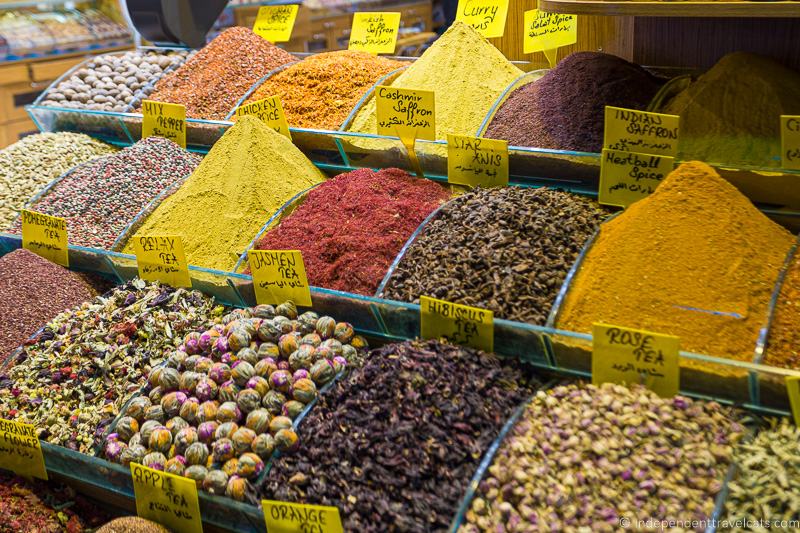
Turkey Itinerary Day 1: Istanbul
We think the best place to start (and end) your trip to Turkey is in Istanbul. The city has the best international connections, especially by air, meaning it’s easy to get here from elsewhere in Europe and further afield.
As an introduction to Turkey, Istanbul is also a great starting point. Known as the “bridge” between Europe and Asia, the city is literally split between continents. The Bosphorus Strait separates Europe and Asia, and Istanbul spreads across both sides of this divide.
Istanbul is the largest city in Europe by population; however, it’s not the capital of Turkey—that would be Ankara. Founded over 600 years before the birth of Christ, Istanbul has literally seen the rise and fall of empires. It is a city that has been known by many names over the centuries, including Byzantium and Constantinople.
In terms of what to see when you’re in Istanbul, two full days will let you see many of the highlights, but it will definitely leave you wanting more! So you will want to prioritize what you want to do and see most in the city.
We’d suggest that you spend your first full day exploring the most famous of the historical sites and attractions in Istanbul, most of which are part of the World Heritage Site in Istanbul . Most of the main historic sites in Istanbul are located in the Sultanahmet area of Istanbul within the Fatih district which is where we recommend you start.
Some of the highlights you might want to visit in this area include the 6th century Hagia Sophia (Ayasofya), the 17th century The Blue Mosque (officially the Sultan Ahmed Mosque), Topkapi Palace , the ancient Hippodrome of Constantinople , the Basilica Cistern (Yerebatan Sarnici), and the Istanbul Archaeological Museums . A bit further away is also the impressive 16th-century Süleymaniye Mosque which is well worth a visit if you have the time.
These sites are all relatively close together and are easy to visit on foot, although taxis, public buses, and sightseeing buses are also options. As you visit these sites and wander the streets of the Old City, you will be taking a journey across thousands of years of history, including the Roman, Egyptian, Byzantine, and Ottoman periods!
You’ll also want to make time for a visit to the Grand Bazaar , which began in the 15th century and is one of the largest and oldest covered markets in the world. Here you can buy a lot of things, including ceramics, lanterns, rugs, clothing, tea, jewelry, and books. But do be careful of what you are buying as you’ll find everything from locally handcrafted rugs and jewelry to cheap Chinese made souvenirs, so price and quality varies widely.
Another market you might want to visit is the Egyptian Spice Bazaar , or Misir Çarsisi, which is another large market in Istanbul. Vendors here are known primarily for selling spices, but you can also find sweets, tea, dried fruit, Turkish delight, souvenirs, etc.
If you are looking for a guided walking tour of the historical area of Istanbul, there are several tours you can join that cover all the highlights of the historical area of Istanbul. A few options include this full day tour with lunch , this small group highlights tour , and this customizable private tour .
After a day full of sightseeing, we recommend ending your day with a relaxing Turkish dinner at a local restaurant or consider a sunset cruise on the Bosphorus Strait.
A cruise on the Bosphorus allows you to truly appreciate the incredible size of the city. The Bosphorus separates the European and Asian parts of Istanbul so you will be floating along the continental divide. Many of the cruises include dinner and entertainment, such as this cruise and this one .
Where to Stay in Istanbul
We suggest staying in or near the old part of the city (the Sultanahmet neighborhood in the Fatih district) for easy access to the city’s most popular sights.
Here are some accommodation options to consider in Istanbul across a range of budgets. Istanbul has a huge number of properties to choose from and prices are very reasonable.
- Big Apple Hostel & Hotel – This well-reviewed good-value hostel offers both shared dormitory rooms and private rooms. Breakfast is included in room rates, and there’s an on-site restaurant for other meals. A good budget option as dorm beds are usually around $17 with breakfast. Located a 10-minute walk from the highlights of the Old City
- Agora Guesthouse – This is a well-reviewed guesthouse offering both dormitory and private rooms. An included breakfast is served on the rooftop terrace. Located just a few hundred yards from the Blue Mosque and Hagia Sofia
- Tulip Guesthouse – This guesthouse offers good value private rooms with either shared or en-suite bathrooms. Breakfast is included and is served on the top floor terrace which offers lovely views. It is about a 5 minutes walk from attractions like the Hagia Sofia.
- Berk Guesthouse – Grandma’s House – A well-rated guesthouse with en-suite guest rooms, included breakfast, and a rooftop terrace with nice views over the city. A 2-minute walk from the Blue Mosque.
- Meserret Palace Hotel – A well-reviewed 4-star hotel offers en-suite rooms with tea/coffee making facilities and flat-screen TVs, 24-hour desk, room service, and an included breakfast. Located near the Spice Bazaar and about a 10 minute walk from the Old City.
- Obelisk Hotel & Suites – This well-rated 4-star hotel offers en-suite rooms with tea/coffee making facilities, 24-hour front desk, and an on-site restaurant. Breakfast is included with rates. Located just a few hundred hard from the Hagia Sophia.
- Boutique Saint Sophia – This 4-star boutique hotel offers private en-suite rooms with breakfast included and an on-site cafe and bar. The hotel is located near the Hagia Sophia with some rooms offering views of the attraction.
- Régie Ottoman – This stylish boutique hotel is set in a 150-year old renovated Ottoman building and offers all the normal modern amenities and breakfast is included. The hotel has an on-site restaurant and is located about a 10-minute walk from the historic Sultanahmet area. We’ve stayed here and really enjoyed our stay.
- Vogue Hotel Supreme Istanbul – This 5-star luxury hotel centrally located hotel offer guestrooms with modern amenities, 24-hour desk, room service, and an on-site restaurant. A great option if you are looking for a luxury property in this part of Istanbul. Located near the Basilica Cistern and Hagia Sophia.
If you are looking for a self-catering stay, options include these apartments in the Fatih district on Booking.com and these Fatih district apartments in Istanbul on Vrbo. If you are not finding what you want, you can see this list of apartment booking websites .
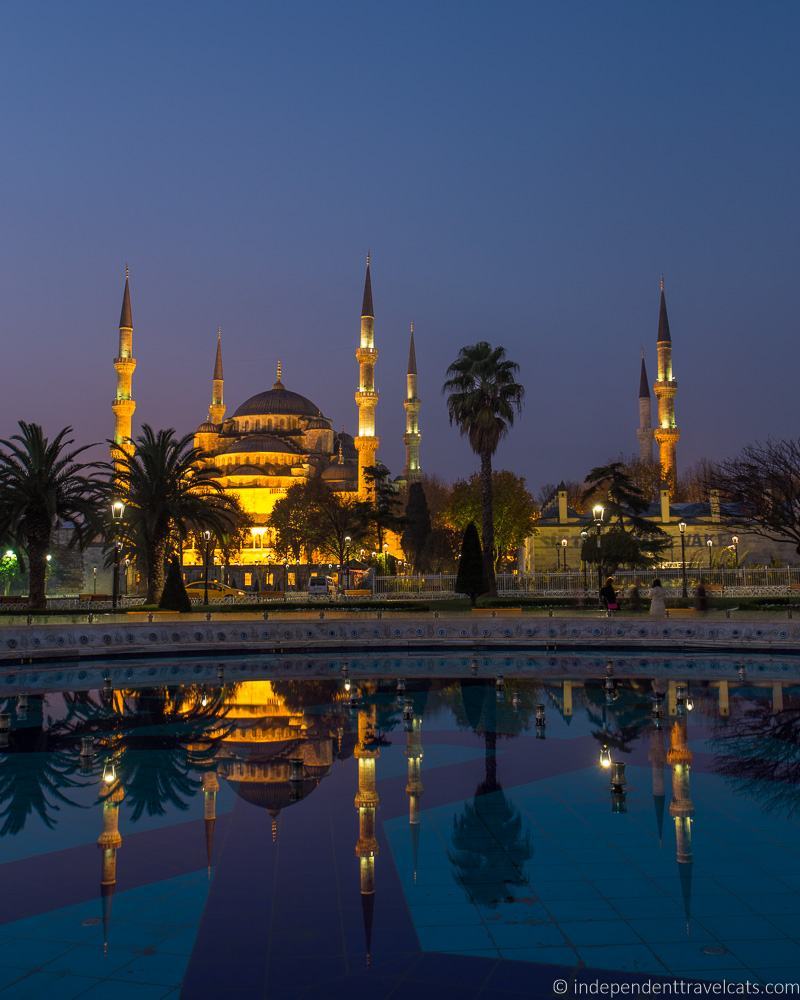
Turkey Itinerary Day 2: Istanbul
For your second day in Istanbul we recommend crossing across the Galata Bridge and exploring this part of the city. The Galata Bridge, which crosses the Golden Horn, is often seen as the link between the traditional and the more modern areas of Istanbul.
Highlights include the Galata Tower , a restored 15th-century tower that has an observation deck on top, enjoying the European style buildings and shopping along the picturesque Istiklal Avenue (Istiklal Caddesi), and the Taksim Square area which features the Republic Monument and is a lively area for shopping and nightlife. There are a lot of art galleries and museums in this area including SALT Galata , Pera Museum , and the Istanbul Museum of Modern Art Museum .
We can also recommend visiting Dolmabahçe Palace , this beautiful 19th-century palace was once the home of the sultans as well as the first President of Turkey Mustafa Kemal Atatürk. It is the largest palace in Turkey and today is a museum.
If you are looking for a place to relax and have a coffee, you might want to make a stop at the cafe or tea lounge at the luxurious Pera Palace Hotel . The hotel is one of the most famous historical hotels in the city having such past guests as Agatha Christie. Or find a street cafe along Istiklal Avenue to people watch or wander over to a seaside cafe to enjoy the view over the water.
Or maybe you’d like to try a traditional Turkish hamam experience such as this one at Aga Hamami , which is the oldest hamam in Istanbul. Note that this is a traditional Turkish bathing practice, not a spa but it is a relaxing and cleansing experience.
Depending on what you want to do and see on this side of the bridge and how far you are willing to walk, you can explore entirely on foot or you can take public transit just about everywhere. Transport options include public buses, trams, taxis, and sightseeing buses . Or you can join a tour that includes transport.
For those on foot, note that Turkey has a lot of hills and there is a steep hill to get from the Galata Bridge to Istiklal Avenue. However, you can take the Tünel funicular that will take you up this incline. This is one of the oldest subway stations in the world.
If you are looking for a guide on your second day in Istanbul, this walking tour focuses on this area north of the Golden Horn, this small group art expert-led tour covers the main modern art museums and art spaces in this part of Istanbul, and here is a guided tour of the palace .
For your second evening in Istanbul, you might want to finish your day with an evening food tour, sampling some local nightlife, or a cultural event in the evening.
Those interested in seeing and sampling more of the local food scene in Istanbul may want to consider a food tour. There are several food tours in Istanbul to choose from such as this evening food trail tour and this small group food tour .
Those looking for an evening cultural performance might see what is playing at the local theaters, Süreyya Opera House , or see a Turkish dance performance or whirling dervishes show at the Hodjapasha Cultural Centre. Those looking for a more wild night out might want to check out the nightlife in and around Taksim Square or join a local-led pub crawl .
We then recommend spending a second night in Istanbul. This works well for those taking a tour, flying, or those driving themselves. However, those taking a bus may want to consider heading to Çanakkale today instead so you have more time to explore Gallipoli the next day.
How to Get to from Istanbul to Gallipoli
If you are not joining a tour in Istanbul, you have three main options for getting from Gallipoli from Istanbul. If you decide to take a flight or bus, you’ll want to head to Çanakkale (or Eceabat) and then take a tour or find transport to the nearby historical sites at Gallipoli.
By Car: It is about a 186 mile (300 km) drive from Istanbul to the Gallipoli peninsula which takes about 4 hours. If you leave on the morning of your third day, this will give you time to stop and see the main sights in Gallipoli before overnighting in Çanakkale.
By Plane: The fastest option is to fly. Flights take around an hour from Istanbul to Çanakkale and are usually reasonably priced if booked well in advance.
By Bus: The bus journey is generally about 6 hours from Istanbul to Çanakkale, or a little less if you go to Eceabat. Check bus times and prices, and book online here . Depending on bus schedules, those wanting to explore Gallipoli may want to catch a late afternoon or evening bus on Day 2 to have more time to explore Gallipoli on Day 3.

Turkey Itinerary Day 3: Gallipoli
Today we recommend leaving Istanbul after breakfast and heading southwest to the Gallipoli peninsula. The peninsula lies between the Dardanelles and the Gulf of Saros and is best known as being the location for the Gallipoli Campaign during World War I.
Most of the area is part of the Gallipoli Peninsula Historical National Park which was named a UNESCO World Heritage site in 1998. Whereas most historical attractions in Turkey date back thousands of years, this is a place where you can learn about more recent history.
On the Gallipoli peninsula in 1915, Allied Forces (which included British, Australian, New Zealand, Indian, French, and Newfoundland troops) mounted an ultimately doomed attack on the Ottoman Empire to try to capture Constantinople (now Istanbul) and take control of a vital supply route. After about 9 months of fighting and minimal gains, and with around 250,000 casualties on each side, the Allies withdrew.
The event was a huge disaster for the Allied war effort, and had lasting repercussions. For Winston Churchill , then First Lord of the Admiralty, his promotion of the failed campaign would lead to him having a demoted role in politics and the failure would haunt him for years. It would have been difficult for anyone to imagine him as a later wartime Prime Minister!
Turkey was at that time part of the Ottoman Empire and was fighting on the side of Germany. For the Turks, one of the army officers for the Ottoman defense at Gallipoli, Mustafa Kemal Atatürk , would later become the first president and founder of modern Turkey.
The Gallipoli Campaign was one of the most important events in the war to take place from an Australian and New Zealand perspective. The Australian and New Zealand Army Corps (ANZAC) were deployed, and like many of the countries involved, suffered heavy losses. The campaign is largely regarded as the trigger for the national consciousness of both countries, and to this day both countries formally remember their fallen on ANZAC Day (April 25th) each year.
For Australians and New Zealanders visiting Turkey, a trip to the Gallipoli peninsula is usually high on the priority list. However, we think this is a trip that should be of interest to anyone, regardless of nationality, in order to learn more about this event and reflect on the effects of war.
There are a number of places to visit across the Gallipoli Peninsula, including landing sites, memorials, and graveyards. A few of the more popular places for visitors include ANZAC Cove, Lone Pine Cemetery and Memorial, and Canakkale Martyrs’ Memorial. What you want to visit probably depends on your specific interests and your nationality, and y ou can see a full list of the sites here .
There are also a few museums in the area that focus on the Gallipoli campaign, including the Kabatepe Promotion Center And Museum in Kabatepe, Salim Mutlu War Museum (Salim Mutlu Özel Harp Anilar Koleksiyonu) in Alçitepe, and the Gelibolu War Museum in Gelibolu.
If you want to know more about the battles that took place here, we recommend getting a book such as Gallipoli: The Battlefield Guide . We would definitely recommend some sort of guidebook if you are planning to explore on your own without a tour guide.
Expect to spend a few hours here. It is a challenging place to get around unless you have your own vehicle, and we would definitely suggest taking a tour if you don’t have your own transport. There are a lot of tour options so it is usually easy to find a good value tour.
Here are some day tour options to consider, some also include Troy, which is on our itinerary for the next day.
- An 8 hour tour of the Gallipoli sites with lunch from Çanakkale
- A 6 hour tour of Gallipoli with lunch from Çanakkale
- A full day tour of Gallipoli and Troy with lunch from Çanakkale
- Another full day tour of Gallipoli and Troy with lunch from Çanakkale
- A private tour of the Gallipoli sites from Çanakkale
- A 6 hour Gallipoli tour with lunch from Eceabat
Now if you have extra time in Çanakkale, there is a fortress (Çimenlik Castle), an enclosed market called the Mirror Bazaar, a few museums you can visit (Military Marine Museum, city history museum, and Ceramics Museum), and a harbor area you can stroll around where you can find the wooden Trojan horse from the 2004 film Troy starring Brad Pitt. There is also Kilitbahir Fortress located just across the strait.
If you are staying in Eceabat, you can also spend some time relaxing on the beach there.
Where to Stay in Gallipoli
We would recommend spending the night in either Çanakkale (a short ferry ride from the Gallipoli Peninsula) or Eceabat. Eceabat is slightly closer to the Gallipoli sites, but Çanakkale has more services and attractions.
If you are traveling by bus, you’ll probably want to choose a place near the bus station.
It is easy to find good value accommodation in this area. Here are some options to consider at both locations:
- Set Özer Hotel in Çanakkale – A centrally located good value hotel that offers private en-suite rooms with breakfast. Very close to ferry, waterfront, and main town attractions.
- Kinzi House in Çanakkale – A well-reviewed and centrally located self-catering accommodation that offers a full kitchen, laundry facilities, and flat-screen TV. This is a great value option if you are traveling with a few people and want to cook yourself.
- Artur Hotel in Çanakkale – A popular and well-reviewed hotel in the center of Çanakkale with private en-suite rooms and an on-site restaurant.
- Kolin Hotel in Çanakkale – A 5-star hotel with all the modern guestroom amenities, outdoor and indoor swimming pools, spa, fitness center, multiple restaurants and bars, and a free airport shuttle. A good option for those looking for more amenities.
- Eceabat Gezen Hotel in Eceabat – A very well-reviewed value hotel offering private rooms with en-suite bathrooms. Has a private beach area and a garden, as well as a bar and inclusive breakfast
- Villa Bagci Hotel in Eceabat – This is a well-reviewed hotel offering private en-suite rooms with breakfast. Located a few hundred yards from the beach.
- Hotel Casa Villa in Eceabat – Another well-reviewed hotel in Eceabat a few hundred yards from the beach. Features private rooms with en-suite facilities and breakfast is included.
How to Get from Çanakkale to Troy and Kusadasi
Your next stop of the trip is going to be Troy, after which you’ll head south via Izmir to Kusadasi. If you happened to already visit Troy today, then you can skip that stop and head straight to Kusadasi.
If you are not taking a guided tour, you have a few choices today:
By Car: It’s around a 30 minute drive to Troy from Çanakkale, and then a little over 5 hours down to Kusadasi. We’d suggest spending a couple of hours at Troy, and then aiming to arrive in Kusadasi mid-afternoon if you are driving yourself.
By Plane: You can do part of the day by plane if you wish as you can fly from Çanakkale to Izmir. However, you will need to take a bus, car, taxi, or tour to get to and from Troy and then from Izmir to Kusadasi. Those planning to fly may want to base in Izmir instead of Kusadasi.
By Train: Part of today’s journey can be done by train as there is a train that you can take between Izmir and Selçuk (town next to Ephesus).
By Bus: There are regular buses (approximately every hour) from Çanakkale to Troy, the journey takes around 45 minutes. To head onto Izmir, you’ll need to backtrack to Çanakkale or head to Ezine, and from either you can get a bus to Izmir (about a 5.5 hour journey). From Izmir, it is about a 90-minute bus journey to Kusadasi.
You might consider taking a local private or shared taxi (called dolmus) to and from Troy. Then connect to the intercity buses in Ezine or Çanakkale onwards to Izmir and Kusadasi.
Check bus times and prices, and book online here .
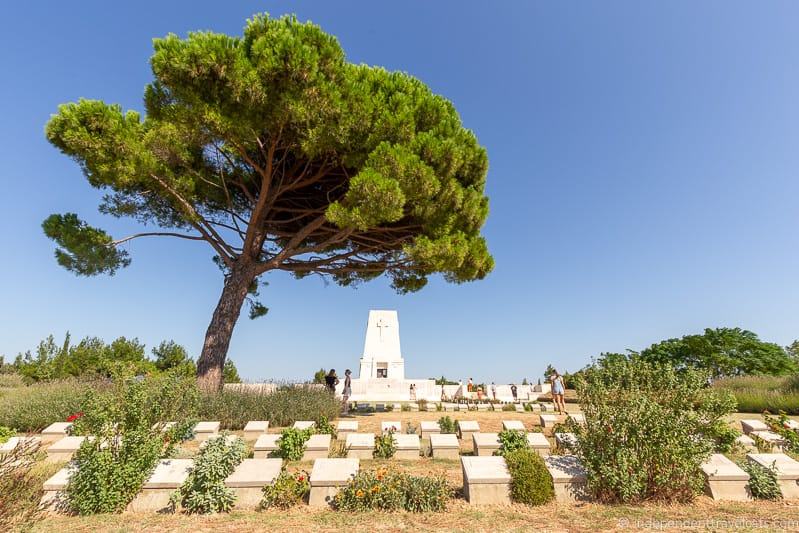
Turkey Itinerary Day 4: Troy & Kusadasi
For your fourth day in Turkey, you’re going to visit the ancient city of Troy and then head down the western coast of Turkey to the city of Kuşadası. You may also want to make a stop in Izmir, along the way.
We recommend heading out straight after breakfast so you have time to explore Troy in the morning.
The first stop of the day is Troy which is only about a 30-minute drive south of Çanakkale. A city has been at this location known as Troy from around 3,000 years B.C. right up until about 450 A.D.
Of course, as it existed for almost four millennia, Troy saw a lot of changes in its time. In fact, there were in fact no less than nine cities on this location, which was favored due to its waterfront location. Reasons for its demise are unclear, but the fall of the Roman Empire was likely a factor in its final abandonment.
The main reason that Troy is famous today is that it was the main setting of Homer’s Iliad about the Trojan War. This ancient Greek epic poem gave us the famous story of the Trojan Horse and the disastrous love triangle between Helen of Troy, King Menelaus, and Paris. The historical accuracy of the tale is highly debated but many historians do believe there was some sort of war and siege of Troy by Spartan and Achaean warriors in the 12th or 13th century BC.
The actual location of the ancient city of Troy was lost to history in the subsequent centuries. Later travelers and archaeologists searched for the location of the famous city and many believed it was somewhere in the Anatolia region of Turkey, particularly the Troad peninsula. It was Englishman Frank Calvert who would first excavate the hill at Hisarlik and find what is now believed to be the remains of the ancient city of Troy.
Whether the events of the Iliad took place here or not, UNESCO notes that the archaeological findings at Troy are the “most significant demonstration of the first contact between the civilizations of Anatolia and the Mediterranean world”. Structures have been found at Hisarlik from a number of periods including the Bronze Age and the Roman and Greek periods.
Today, Troy is a protected archaeological site, a national historical park, and a UNESCO World Heritage Site. As a visitor, you can wander around and learn about the history of the place while seeing the various layers of the different cities. Naturally, there’s a giant wooden horse you can take a photo of as well. The recently opened Troy Museum (Troya Müzesi ) holds a number of artifacts from the archaeological site. We’re recommend allowing 2 to 3 hours to visit Troy.
From Troy you’ll continue south along the coast to the city of Kusadasi. Along the way, you’ll go through Izmir. Izmir is one of the oldest settlements in the Mediterranean, and was originally believed to have been settled in 6500 BC! It is now the third-largest city in Turkey by population.
Izmir offers lots of attractions and services. Some of the main tourist sites include the Roman Agora of Smyrna , the hilltop castle of Kadifekale (the “Velvet Castle”), the seafront and Kordon esplanade, Konak Square and its clock tower, several museums, and the Kemeralti shopping district. There is also a rich Jewish heritage here with several synagogues and other Jewish landmarks to be found here, especially in the Kemeralti district.
So Izmir may be a good place to stop and stretch your feet, and maybe visit an attraction or two. You could also decide to overnight in Izmir; however, our advice is to press on to Kusadasi as it’s closer to upcoming highlights and also has its own attractions.
Kusadasi is a popular coastal town in Turkey, which offers a wide range of accommodation options as well as beaches and attractions. It is also very close to Ephesus, one of Turkey’s most famous ancient ruined cities.
Today will be a long journey, regardless of your means of transport, so we recommend having a relaxing evening once you arrive in the Aegean seaside town of Kusadasi. Perhaps a stroll around town or a dip in the hotel pool, and then a nice dinner.
We recommend spending two nights in Kusadasi. However, those who are traveling by public transportation may also want to consider Selçuk (town next to Ephesus) as a base instead for the two nights as the transit connections are a bit easier there.
Where to stay in Kusadasi
Kusadasi is a popular resort town and there are a great many hotels to choose from, the majority of which offer excellent value. Most have pools and some are next to a beach.
Kusadasi is pretty spread out and we generally recommend staying within walking distance of the city center and seaside. Those traveling by bus will want to stay within walking distance of the bus station and bus stops. Some options to consider for your 2-night stay are as follows:
- Hotel Stella – A well-reviewed good value 2-star hotel that offers en-suite rooms have balconies, a pool, an on-site restaurant, and inclusive breakfast. Located about 100 yards from the harbor.
- Sezgin Boutique Hotel – A popular budget hotel with en-suite rooms, inclusive breakfast, and a swimming pool. Located about 150 yards from the city center.
- Ilayda Avantgarde Hotel – This well-rated 4-star hotel offers ensuite rooms with views over city or water, a rooftop swimming pool, fitness center, and inclusive breakfast. Located near the city center and water.
- Grand Sahin’s Hotel – This well-reviewed 4-star hotel offers ensuite rooms with balconies, an inclusive breakfast, on-site restaurant and bar, outdoor swimming pool, private beach area, and free parking. Located next to the seaside.
- DoubleTree by Hilton Kusadasi – A popular city-center hotel offering 5-star facilities, ensuite rooms with balconies, a rooftop restaurant and bar, 2 swimming pools, fitness center, and a spa.
- LaVista Boutique Hotel & SPA – This is a very well rated centrally located boutique hotel that offers large en-suite rooms, an on-site bar and restaurant, a fitness center, inclusive breakfast, and a lovely outdoor pool overlooking the Aegean Sea.
Where to stay in Selçuk
Those traveling by bus or train may prefer to spend the two nights in Selçuk instead of Kusadasi. For those using public transit, we recommend staying in central Selçuk within walking distance of the bus station and train station.
Here are a few accommodation options in Selçuk:
- ANZ Guest House – A budget-friendly hostel that offers dorm beds as well as private rooms and family rooms. Breakfast is included and there is a rooftop terrace. Centrally located, about a 12-minute walk to bus station and train station.
- Queen Bee Hotel – A good value bed-and-breakfast that offers rooms with private bathrooms and included breakfast. There is also a cafe on the ground floor here. Centrally located, about a 12-minute walk to bus station and train station.
- Celsus Boutique Hotel – A boutique hotel featuring outdoor swimming pool, garden, shared lounge, and inclusive breakfast. Centrally located, about a 10-minute walk to bus station and train station.
- Vinifera Vineyards Hotel – If you are looking for something different and don’t mind being outside Selçuk, this hotel sits next to a vineyard and offers large ensuite rooms with patios, onsite restaurant and winery, a swimming pool, and inclusive breakfast. Located well outside of Selçuk so is best suited for those who plan to get around by car or taxi; however, you can get to Selçuk by train as the Çamlık station is about a 7-minute walk from the hotel.

Turkey Itinerary Day 5: Kusadasi & Ephesus
Today, we recommend heading to Ephesus after breakfast to explore the archaeological sites there. Then return and spend the latter part of the day exploring Kusadasi itself. Ephesus is very popular and can get very crowded, so going early is a good idea to avoid some of the crowds and the afternoon heat.
Many people visit Ephesus as part of a tour, but it is also easy to get to on your own. It is about a 25-minute drive, bus, or taxi ride away. If you are taking public transport, you can take a dolmus (shared taxi or minibus) from Kusadasi which can drop you at the lower gate of Ephesus.
Ephesus is one of the most significant archaeological sites in Turkey so it is on many visitors must-see lists. This UNESCO World Heritage Site was an ancient Greek city, founded in the 10th century BC, and only abandoned around the 15th century AD after centuries of decline, mainly due to the harbor silting up. At its height, it was second only to Rome in size and importance in the ancient world.
Today, Ephesus is a large and important archaeological site where you can see the remains of temples, theaters, wide marble streets, agoras, bathing complexes, tombs, aqueducts, fountains, terrace houses, and more. Some of the main sights include the spectacular Library of Celsus , the Temple of Hadrian, and the Great Theatre.
Ephesus is an important religious destination too, especially for Christians. It was the location of one of the Seven Churches of Asia (or Seven Churches of the Apocalypse), the seven major early Christian communities, as noted in the New Testament Book of Revelations in the Bible.
It is believed that the Gospel of John may have been written here, and that Mary, mother of Jesus, lived out her final years nearby in the care of John. Important early Christian sites in Ephesus include St. John’s Basilica , Church of the Virgin Mary , and The House of the Virgin Mary .
Also located nearby is the ruins of the Temple of Artemis , one of the Seven Wonders of the Ancient World. Unfortunately today, very little remains of the ancient temple.
For those interested in seeing some of the artifacts found here, you may want to take time to visit the nearby Ephesus Archaeological Museum in Selçuk after visiting the archaeological sites. It contains a number of statues, columns, coins, sarcophagi, tools, and other artifacts uncovered in Ephesus.
Most visitors just visit the main archaeological complex which contains over 25 main points of interest. There is an entry fee that covers all the sites (there is an additional ticket required if you want to go inside the terrace houses), and you can enter at the upper or lower gates and exit from either side. There are taxis, shuttles, and carriages that can transport you between the two if you wish.
It’s quite a large site, which runs from the top of a hill to the bottom, but once you get here you can visit everything on foot. Just be prepared for a bit of walking by wearing comfortable shoes and bringing your water bottle.
As you would imagine, there is a lot to see and take in here, and there isn’t a lot of information on display. We would recommend renting an on-site audioguide, joining a guided tour such as this one , or bringing a guidebook (like this one ) so you have an idea of what you are looking at. Most people spend 2 to 4 hours exploring the complex.
There is more to explore outside the main archeological complex for those with more time and interest. Sites located outside the main archaeological complex include the Temple of Artemis, House of the Virgin Mary, St. John’s Basilica, and the Ephesus Archaeological Museum. Other attractions in Ephesus include Selçuk Castle, Ayasuluk Citadel, and Isa Bey Mosque.
If you are considering a tour from Kusadasi (or Izmir), there are a variety of tours of differing lengths. We think that around 4 to 5 hours would work and then give you time to sightsee in Kusadasi in the afternoon, but you could also do a full-day tour if you want more time in Ephesus. Some tours to consider to Ephesus from Kusadasi are:
- This 4 hour small group morning tour of Ephesus and the Temple of Artemis
- This 3.5 to 4.5 hour private tour of Ephesus
- This 5 hour small group tour of Ephesus , which includes the house of the Virgin Mary, Ephesus Terrace Houses, and the Temple of Artemis
- This 6 to 8 hour small group tour of Ephesus , which includes the house of the Virgin Mary, the Temple of Artemis, and Isa Bey Mosque.
Once you have finished touring Ephesus, it’s time to return to Kusadasi. Kusadasi is a popular resort town and has a lot of cafes and restaurants as well as beaches. Depending on how you are feeling and how much time you have, you might want to visit one of the beaches (Ladies Beach is the most popular public beach), spend some time exploring the city’s attractions, or just relax by the hotel pool.
Our favorite thing to do is to take a walk over to Güvercinada , or Pigeon Island, a small island linked to the mainland by a causeway. There is a castle here that you can visit if you wish.
How to get from Kusadasi to Pamukkale & Fethiye
The next part of the trip involves a long day of travel, no matter what method of transportation you choose as the attractions are spaced far apart.
If you are not taking a tour, your best options are to take public transit or drive.
By Car: If you are driving, Pamukkale is about a 120 mile (190 km) drive from Kusadasi, and that drive takes about 3 hours if taking the toll roads (about 4 hours if not). From Pamukkale, it is another 125 mile (200 km) drive to Fethiye which is around another 3 hours of driving.
If that sounds like too much driving, you could skip Pamukkale, and just head south along the coast from Kusadasi to Fethiye. Then you would have more time to spend in either Kusadasi or Fethiye.
By Plane : You can fly from Izmir to Denizli (town near Pamukkale) and then from Denizli to Fethiye (airport in Dalaman). However, many of these flights connect via Istanbul meaning the flights often take as long (or even longer) than taking public transit or driving.
By Bus: From Kusadasi, it’s relatively easy to get to Pamukkale by public transport. You can go by bus, either directly from Kusadasi or via Selçuk. The bus takes between 3 to 4 hours.
Note that some of the bus companies (and the train) terminate in the town of Denizli and do not go directly to Pamukkale. So you may need to take a short 25-minute minibus or taxi ride to get from the bus station to Pamukkale which is located just outside Denizli. Just be sure to ask so you know if you need to transfer or not.
Then from Denizli, you can then take a bus to Fethiye, which will take around 4 hours. Check bus times and prices, and book online here .
By Train: You can do part of the route today by train. Take the local bus from Kusadasi to Selçuk (the town next to Ephesus), from where you can catch a train to Denizli. The train takes around 3 hours, and the first departure is usually around 9:00am. You can check train times and tickets here .
Then from the Denizli station, you can get a 25-minute minibus or taxi ride to Pamukkale. There is no train between Denizli and Fethiye, so you will have to take a bus from Denizli.
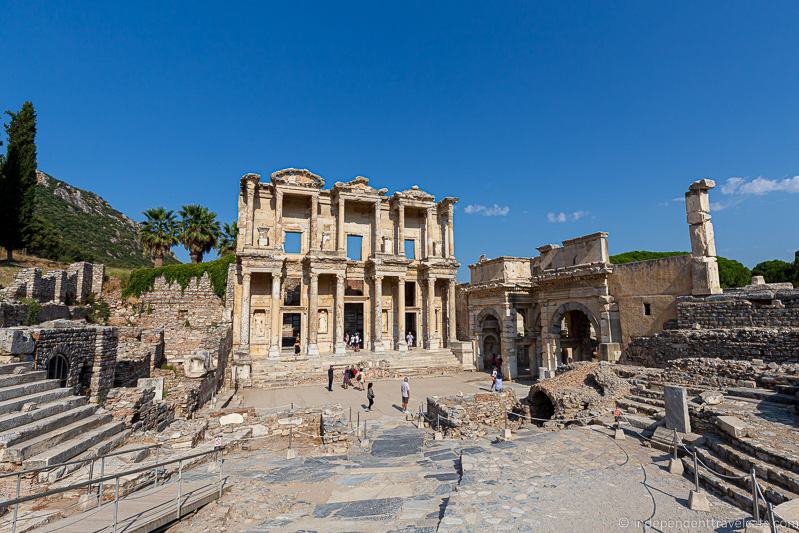
Turkey Itinerary Day 6: Pamukkale & Fethiye
For your sixth day in Turkey, our suggestion is to head east inland to Pamukkale and then south to the coastal town of Fethiye.
Pamukkale, which means “cotton castle” in Turkish, is another of Turkey’s UNESCO World Heritage Sites. It’s famous for two reasons. First, it well-known for its photogenic natural white travertine (a type of limestone) terraces which are filled with thermal water. Second, the ruins of the ancient Greco-Roman city of Hierapolis are located here.
Springs in a cliff above the terraces provide the mineral-rich waters which have created the incredible landscape of petrified waterfalls and terraced basins of thermal water at Pamukkale. The milky white water is due to the large amount of calcium carbonate found in the water.
A thermal spa at Hierapolis was built on top of Pamukkale to take advantage of the hot springs in the 2nd century BC by the kings of Pergamon. It grew into a small city and you can see the Greco-Roman ruins here today. Pamukkale has been a popular tourist destination for about two thousand years.
The main reason people visit Pamukkale today is to see the white limestone terraces here, which are really quite incredible. These terraces cover a large area of almost 2 miles (3 km) in length. Although the terraces are natural, the bathing pools are artificial and have been created for tourists. Some of these are open to bathing or swimming.
Unfortunately, the thousands of years of tourism, as well as the more recent rise in mass tourism, has taken its toll on the location. Large sections of the pools don’t look like you see them in photos as many often have little water in them and the ones open to the public are often crowded with people.
To protect the site, most of the pools are now closed entirely to bathers, with only a small area accessible for swimming at one time. The water can be a bit dirty with all the people in them and they can also be very slippery so do be careful if you plan to go in them.
In addition to the small terraced pools, you can pay extra to swim at Cleopatra’s Pool, a former Roman pool, which is a thermal pool and spa that is privately run and includes locker rooms and showers. You need proper swimwear to enter this pool.
However, the good news is that the Pamukkale site is very large, and if you move away from the main crowds you can enjoy lovely views of the terraces with hardly any people around you.
After seeing the thermal spa and perhaps dipping your toes into one of the thermal pools, you can then take some time to explore Hierapolis. Many people come and just see some of the thermal pools and leave, but if you are going to take the time to come all the way to Pamukkale, we recommend taking some time to explore the rest of the site.
The city has Greek and Roman ruins, including ancient bathing complexes, gates, a huge theatre, temples, shrines, a martyrium, and an extensive Necropolis. The site has the Tomb of Philip the Apostle and the earliest evidence of the use of a crank and rod mechanism (as depicted on a sarcophagus). Housed in the former Roman Bath building is the Hierapolis Archaeology Museum which you can see some of the many artifacts unearthed at the site.
If you don’t have a guide but want to learn more about the history of Pamukkale and Hierapolis, we recommend taking along a good guidebook like this one .
There’s lots to see here, and it’s all included on the entry ticket, so take advantage of it. Most people spend about 3 hours here, but you’ll want to plan to spend longer if you want to fully explore Hierapolis.
Once you are done sightseeing in Pamukkale, continue on to Fethiye where we recommend you spend the night. Fethiye is a city (and district) located in the southwestern area of Turkey along the Aegean Sea. It is a popular tourist area and there are a lot of attractions in and around the city.
Given that you will likely be coming from a long day of travel and sightseeing, we recommend using your first evening in Fethiye to relax. We recommend spending two nights here.
Where to stay in Fethiye
You have two main options for where to stay in Fethiye. You can stay near the marina and old town for easy access to the sights, or you can stay a little further north on the 4km long Çalis Beach. So just depends if you prefer to be near the city center or have easy beach access.
Here are some options for places to stay in Fethiye:
- Turunç Hostel – If you’re looking for a hostel, this is a great value and well-reviewed option in the heart of the town. Private and dorm rooms are available, with a good value breakfast on offer.
- Infinity Exclusive City Hotel – A great value budget to mid-range option offering private en-suite rooms in the city center.
- Orka Boutique Hotel – This popular and well-reviewed mid-range boutique hotel offers en-suite rooms, an on-site restaurant, and inclusive breakfast. Located a few yards from the sea, and a short walk from the city center.
- Ece Marina Suit – This well-rated beachfront hotel near the old town overlooks the marina and has a private beach. Rooms are designed to be family-friendly and offer good value comfortable accommodation with living area and apartment-style facilities.
- Hotel Delta – Found on Çalis Beach around 3 miles north of the old town, this well-reviewed hotel offers en-suite rooms with balconies and an on-site restaurant. Breakfast is included.
- Eyna Hotel – This popular beach front property on Çalis Beach has great reviews, en-suite rooms, an on-site restaurant, and breakfast is included.

Turkey Itinerary Day 7: Fethiye
Fethiye is a beautiful coastal city and resort town on Turkey’s Aegean Sea. The area is known as the Turquoise Coast because of the incredible color of the water you’ll find here.
Fethiye has a lot to offer, but one of the most popular things to do here is to get out on the water and take advantage of the scenic coastline, beautiful waters, and nearby islands. Popular water activities include boating, swimming, snorkeling, SCUBA diving, fishing, and water skiing.
The Travel Talk tour we did included 3 nights on a traditional gulet boat. This might be too much boat time for many, but we definitely recommend considering spending part of a day on the water here.
On a boat trip, you can take in the scenery, swim, snorkel, and sightsee at a relaxed pace. Then you can return to your hotel, take a shower, and head out to watch the sunset and enjoy a bit of the city’s culture and nightlife.
Or if a day on a boat sounds like too much, you can just find a pretty beach to lie on! Çalis Beach is a popular beach that stretches along the city or you can find a smaller and less crowded one further away.
Alternatively, if you are up for some more sightseeing and cultural sites today, there are a number of attractions in and around Fethiye. These include the Fethiye Museum, Saklikent National Park, the rock tomb of Amyntas, the Roman theatre above Fethiye, ancient Lycian hilltop citadel of Tlos, ancient Lycian city ruin of Cadyanda, Butterfly Valley, and the spectacular beach at Ölüdeniz Lagoon. Paragliding is also a very popular activity in this area.
Of course, many of these attractions and activities are located outside the city, so you’ll either need to have your own transport, take a bus, or take a tour to experience them.
Below, we’ve put together some recommend boat tours, as well as other day tours from Fethiye you might consider. Alternatively, feel free to just wander the city itself, which is very beautiful and has a number of sights worth visiting.
- A full day boat tour from Fethiye with swimming and snorkeling opportunities. Lunch included.
- A full day boat tour from Fethiye to Ölüdeniz with swimming, lunch, and stops at Butterfly Valley and St. Nicholas Island
- A popular tandem paragliding tour over beautiful Ölüdeniz
Hopefully, this gives you some inspiration for your day in Fethiye. We recommend enjoying the sunset from the beach, a seaside cafe, or your hotel balcony. Lots of nightlife opportunities here in the evening to enjoy in this popular resort town.
How to Get From Fethiye to Antalya
We recommend heading to Antalya on the next part of your trip. If you are not taking a tour, you have three options for getting from Fethiye to Antalya:
By Car: If you are driving, it’s about a 125 mile (200 km) drive if you take the most direct route which takes about 2.5 to 3 hours.
However, you can take the more scenic coastal route along the D400 between Fethiye and Antalya if you have more time and want to enjoy the scenery. It’s a nice drive. Taking the scenic route will add another 2 hours to your drive so I’d estimate about 4.5 hours.
By Plane: It is possible to fly from Fethiye (Dalaman Airport) to Antalya . Most flights are 3.5 to 4.5 hours long as most make a stop in Istanbul.
By Bus: In terms of public transport, there are regular direct buses from Fethiye to Antalya, with journey times taking around 3 to 3.5 hours on average. You can check bus routes and ticket prices online here .
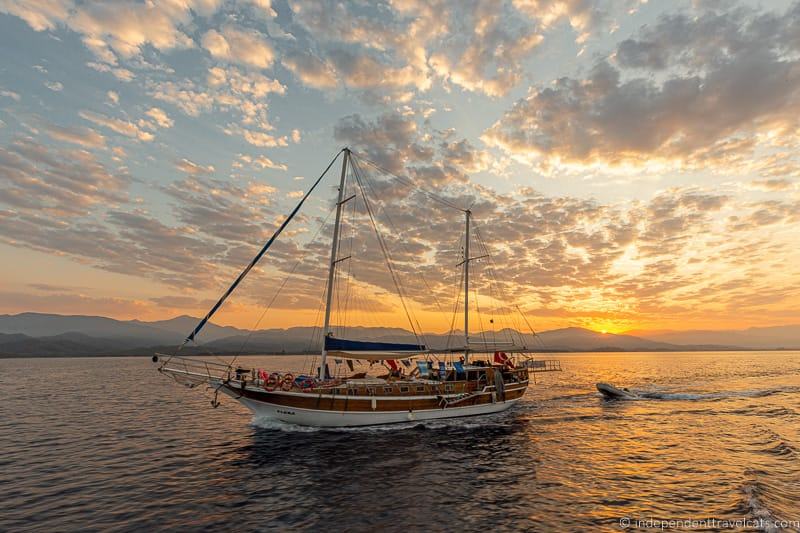
Turkey Itinerary Day 8: Antalya
Today, we recommend leaving Fethiye in the morning and heading to the southern coastal city of Antalya. But there’s no rush today so feel free to spend some more time in Fethiye if there is something you missed yesterday.
It takes about 3 to 4 hours to get to Antalya, depending on route and transport. So if you leave in the morning, you’ll still have half the day left to explore Antalya. Those traveling by car or tour bus may take the coastal route along the D400 which is slower but a very nice scenic route.
Antalya is believed to have been founded by King Attalus II of Pergamon around 150 B.C. and so has a long history. Most of the historical architecture in the city now dates to the medieval Ottoman period. The city is situated along the Turkish Riviera and has become Turkey’s most important international seaside resort.
There is a lot to do in Antalya and we recommend spending two nights here, giving you about 1.5 days to explore Antalya and the surrounding area. Once you arrive in Antalya and check into your hotel, we recommend spending your first afternoon exploring the town of Antalya and its city center attractions and perhaps spending some time on the beach.
In the town itself, we can recommend exploring the old town (Kaleiçi) on foot as there are a number of things to see here including Hadrian’s Gate, the Roman Tower (Hidirlik Tower), Yivli Minare Mosque (Fluted Mosque), and the Antalya Museum (regional history museum).
The Old Marina area is also worth exploring and is a great place to enjoy a meal or drink. You can also take a sightseeing boat tour from here.
Elsewhere in town you’ll also find a panoramic elevator for views over city, several city parks, a toy museum, and lots of other historical attractions.
If you prefer something more relaxing, you may also want to head to one of the area’s beaches. There are also some nice beaches within 10km of the city center, including Lara Beach (sandy beach) and Konyaalti Beach (pebble beach).
In the evening, Antalya is a lively place with lots of restaurants, bars, cafes, and nightclubs. The city also has cinemas and some movies are shown in their original English (with Turkish subtitles). There are also regular shows which include traditional Turkish music and dance and belly dancing performances.
Those who enjoy the theater or opera will also find the Antalya State Theater and the Antalya State Opera and Ballet here. There is also the popular Fire of Anatolia Dance Show that is regularly held at the Gloria Aspendos Arena.
If you are visiting in the summer months, you may want to see if the Aspendos International Opera and Ballet Festival is taking place during your visit. Throughout this popular festival, regular performances are held at the ancient Aspendos Roman theater.
Where to Stay in Antalya
Antalya is a large city and there is also a lot of accommodation throughout the Antalya region along the coast. We have two different recommendations depending on your interests and budget.
Our first recommendation is to either stay close to the Antalya Old Town center so you are within walking distance of the majority of attraction in the city itself. This is great for those who are are interested in the city attractions and nightlife here, and for those needing the public transit connections here.
Our other recommendation is to consider spending these two days at a nice coastal resort outside of the city. Antalya boasts some of the nicest hotel resorts in Turkey and if you are looking for an all-inclusive resort, you have a lot of options. These all tend to have multiple restaurants and bars, swimming pools, spas, fitness centers, and kids’ activities. Some also have beach access.
Here are some lodging options near the Antalya Old Town:
- Hostel Vague – If you’re looking for a budget option in Antalya, this hostel is a great option. It’s centrally located, offers shared and private accommodation and an on-site kitchen, lounge, terrace, and garden for guest use
- Beyaz Butik Hotel – A well-reviewed homestay option offering private en-suite rooms and breakfast. A short walk from the old town.
- White Garden Hotel – With a rooftop terrace, outdoor pool and easy beach access, this is a great value and well-reviewed hotel near the old town
- Tekeli Konaklari – Located in a restored Ottoman Pasha’s residence, this property features private rooms set around a central courtyard, with easy access to the old town. Rooms are en-suite and breakfast is included.
- Cap d’Perge Hotel – This well-reviewed adults-only hotel offers private en-suite rooms with lots of amenities, a private beach, and an on-site restaurant. This one feels a bit tucked away but is still within easy walking distance of the historic center of the city
- ATICI Hotel – A popular and central hotel located right in the heart of the city center offering private en-suite rooms.
Here are a few resort hotel options to consider near Antalya:
- Xanadu Resort – This 5-star resort near Belek includes swimming pools, water slides, a kid’s club, fitness activities, several restaurants, a spa, and access to a private beach.
- Gloria Serenity Resort – This 5-star resort includes swimming pools, a fitness center, sports center, several restaurants and bars, a spa, a game room, kids’ club, and beach access. We have stayed in one of the villas here and it is a great place if you want a relaxing place to stay on your trip.
- Land of Legends Hotel – This family-friendly hotel is geared to kids and all guests get free access to the Land of Legends theme park. The hotel and park feature roller coasters, a water park, pools, restaurants, children’s shows, and more.

Turkey Itinerary Day 9: Antalya
Today you’ll spend a second day exploring Antalya. There are lots of options for how you can spend your day, depending on your interests.
If you didn’t explore the historic city center and Old Marina areas yesterday, you might want to do that today. You can wander this area easily on foot.
Or perhaps head to the Beydaglari Coastal National Park. Here you can take the cable car (Olympos Telferik) to get a great view of the area. The park offers opportunities for hiking, paragliding, climbing, and other outdoor activities. In the winter there is skiing and snowsports.
For those interested in waterfalls, there are several waterfalls in the area. The most popular are the Upper Duden Falls and Lower Duden Falls. We can also recommend a visit to Kursunlu Waterfall.
For those looking for historical and archaeological sites outside the city, we can recommend the ancient Greco-Roman city of Aspendos . Here you can see the impressive remains of a Roman theatre, aqueduct, and basilica are well worth the visit. Another option is the ancient Greek city of Perga (or Perge) that contains a Bronze Age acropolis among many other of its ruins.
Those who like theme parks may want to spend the day at The Land of Legends , which is an amusement park with roller coasters, water slides, live shows, a surf pool, and a cinema. Very popular with families visiting the area.
Golfers may want to hit the links and try one or two of the many golf courses in the area. Belek and the surrounding area is considered the top golf destination in Turkey with over 20 different golf courses in Antalya. In 2012, the Turkish Airlines World Golf Final was hosted at the Antalya Golf Club in Belek.
If you are feeling like a lazy and inexpensive day out, consider just heading to a beach and having a relaxing day in the sun. Or if you are staying a resort, you can just spend your full day enjoying the resort amenities.
Note that many of these attractions, like the waterfalls, Aspendos, and the national parks, are located outside of the city center. Some you can reach by public bus, but many you will need to either hire a taxi or join a tour if you don’t have you own transportation.
Here are some day tours you might consider taking today:
- This 8 hour tour includes a guided city tour of Antalya, a boat tour, a visit to Duden Waterfalls National Park, and lunch
- This full day tour includes the Tunektepe cable car ride, visit to Duden Waterfalls National Park, Antalya city tour, lunch, and a boat ride
- This 9 hour tour from Antalya includes visits to the ancient cities of Aspendos, Perge, and Side as well as a stop at the Kursunlu Waterfall
- This 5 hour waterfall tour includes visits to three different area waterfalls in the Antalya region plus lunch
- This full day jeep safari includes Saklıkent Gorge, Patara beach, and Kaputaş as well as a buffet lunch
In the evening, we recommend enjoying more of the Antalya nightlife. There is something to suit just about any taste whether you are looking for a relaxing seafood dinner at the harbor, a dance performance, a sunset cruise, or a night out at the clubs.
Those traveling by bus may want to consider taking an overnight bus to Cappadocia tonight instead of spending the night in Antalya.
How to Get from Antalya to Cappadocia
Your next destination in Turkey is Cappadocia. Note that Cappadocia is the name of the region, rather than a specific city. The main tourist destinations in the region are in and around the town of Göreme.
By Car: It is a long 310 miles (500 km) drive from Antalya to Göreme, and the drive will take you about 7 hours. So this will use up most of your day. You may want to stop to visit the Derinkuyu Underground City before heading into Göreme today.
By Plane: Flying is the quickest option to get from Antalya to Cappadocia. Direct flights take about 1 hour, but those with connections usually take about 3.5 hours. In the summertime, there are often direct flights, but off-season you’ll likely have to connect through Istanbul.
The two main airports in Cappadocia are Kayseri Erkilet Airport in Kayseri, around a 1 hour drive from the main tourist sights, and Nevsehir Kapadokya Airport in Gülsehir, around a 40 minute drive away. From the airports, you can book an airport transport service to hotels in the region here .
By Bus : If you are traveling by public transport, there are a number of buses from Antalya to Göreme. The buses take about 9 hours, and most are overnight buses although there are some daytime routes as well. Check bus times and prices, and book online here .
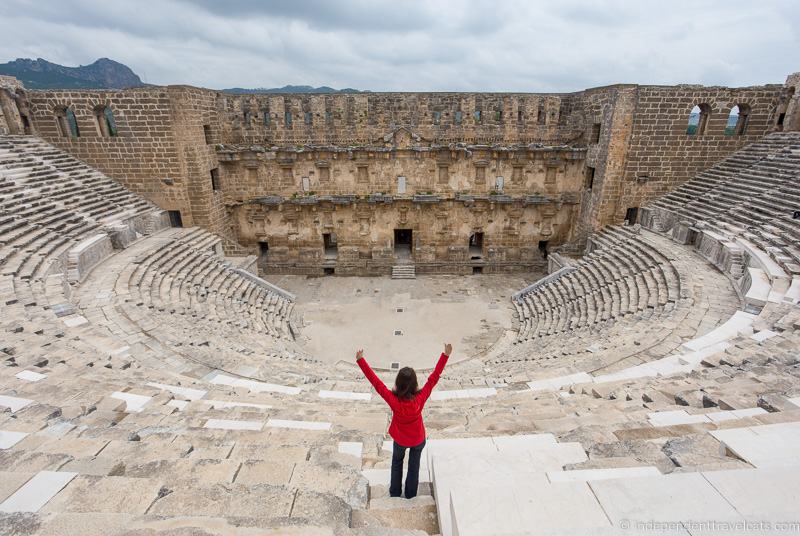
Turkey Itinerary Day 10: Cappadocia
Today we recommend leaving Antalya after breakfast and heading to Cappadocia . Cappadocia is one of Turkey’s most well-known tourist regions and it is definitely an area worth exploring.
Cappadocia is a region of central Turkey that has been inhabited since at least the 5th century BC. It is best known for its distinctive “fairy chimneys” and rock formations formed by erosion, the many rock dwellings carved into the rock valleys by the troglodytes (cave dwellers), and the carved rock churches, some of which still have existing frescos. There were entire underground villages here.
Cappadocia today is one of the most popular and visited areas of Turkey by international travelers. Visitors come to see its surreal landscapes, interesting rock formations, and ancient cave dwellings. It is also one of the most popular places in the world to take a hot air balloon flight!
The main town is Göreme and we recommend using this as a base to explore this region. There is a lot that you can see and do in the region, so you’ll want to prioritize your time here.
One of the most popular places to visit in the area is the Göreme Open Air Museum . The large outdoor complex contains ancient rock-hewn homes and some of the area’s most important rock churches and chapels. Many contain well-preserved frescos dating back to the 9th to 12th centuries. This site is a designated UNESCO World Heritage site, along with several other locations in the region, including the underground cities of Kaymakli and Derinkuyu.
A number of underground complexes built in this area. In terms of ones you can visit, Derinkuyu and Kaymakli are both partially open to visitors. The two underground cities were once connected. At Derinkuyu, it is believed that as many of 20,000 people could have lived there at one time!
Most of the area’s rock formations are made of soft volcanic tuff, which made it easy to carve and some of the dwellings were quite large. One of the better-known formations is the so-called Uçhisar Castle which is a mountain-castle that served as both a monastery and residential housing for up to 1,000 people in the Byzantine era.
Natural erosion of the rock has also lead to the interesting rock formations found throughout the region. There are lots of places to see these formations as they are scattered throughout the region.
For seeing local rock formations, you can visit one or two of the many valleys that feature a large concentration of these formations. These include Pigeon Valley (or Valley of the Dovecotes is full of dovecotes carved into the volcanic rock), Ihlara Valley (canyon full of cave dwellings and rock churches), Love Valley (full of phallic-shaped pillars), and Monk Valley (full of fairy chimneys and other rock pillars).
Most of these valleys offer plenty of opportunities for hiking as well. Some valleys also permit quad biking tours which are also popular.
This region is also known for its traditional arts and crafts, particularly pottery, and earthenware pottery has been made here for centuries. If you are interested in pottery and handicrafts, you’ll want to visit the town of Avanos which has a number of shops and galleries. We recommend a visit also to the Güray Museum in Avanos, which is an underground cave museum filled with antiques, ceramics, and pottery.
This is also an important region for those interested in the Hittites who were a people in the central Anatolia who established a Bronze Age empire in the region. The empire’s capital was in Hattusa, and the ruins of the ancient city can be visited today and are another UNESCO World Heritage Site. Hattusa and the main Hittite archaeological sites are about a 2.5 hour drive from Göreme.
As Cappadocia is a bit spread out, again you will either need your own transport or to take a tour for the majority of these attractions.
There are lots of tour options around Cappadocia so they are all pretty competitive with each other so you should be able to find one at a decent price. Most include lunch in the tour price. Here are some tours of Cappadocia to check out:
- A full day small group tour of Cappadocia which includes lunch and visits to Derinkuyu Underground City, Ihlara Valley, Selime Monastery, and Göreme Valley
- A full day private tour of Cappadocia which includes Göreme Open Air Museum, Pigeon Valley, Kaymakli Underground City, and other highlights
- A 6.5 hour tour of Cappadocia , including Devrent Valley, Zevle Open Air Museum, Pasabag, Göreme Open Air Museum, and Pigeon Valley. Lunch is included.
- A 6 to 7 hour tour of Cappadocia, including Uchisar Castle, Love Valley, Göreme Open Air Museum, Monks Valley, Avanos, and Devrent Valley. Lunch is included.
- A full day private tour of Cappadocia , includes lunch and visits to Göreme Open Air Museum, Uchisar Castle, Pigeon Valley, and Kaymakli Underground City.
- This full day tour with trekking explores south Cappadocia and includes visits to Derinkuyu Underground City, Ihlara Valley, Belisirma, and Selime. It also includes a 4 km trek in Ihlara Valley and lunch.
- This private Anatolian art tour focuses on the local art and handicrafts of the region, particularly in Avanos. This includes carpet weaving, pottery, Ebru (water marbling), and jewelry. You get a chance to watch some of the art being made and chances to shop for local pieces.
Depending on how you travel to Cappadocia, you are likely spending a large portion of today traveling between Antalya and Cappadocia. So you may not have much time to explore on your first day.
If you don’t get into Cappadocia until the late afternoon or evening, there are still some activities you might consider on your first day. For example, you might consider a sunset ATV tour, sunset horseback riding tour , or night show performance and dinner . Or maybe just heading to Sunset View point to watch the sunset before dinner.
We recommend going to bed early so you can be up to take a hot air balloon flight or watch them take off from afar in the morning!
Where to Stay in Cappadocia
Our recommendation for your time in Cappadocia is to stay in Göreme, Ortahisar, or Ürgüp. These three towns are next to each other and all feature a wide range of accommodation options.
You can see the hot air balloons from all of them, depending on weather conditions, with Göreme being the closest to the main launch sites.
Our recommendation is to stay in one of the many cave hotels on offer in this area, which is a unique experience! Just be aware that many of the cave hotels offer a range of accommodation options, and not all of them will be in a cave, so do double check before booking a specific room type if this is important to you.
Here are some accommodation options to consider in Cappadocia:
- Hostel Terra Vista in Göreme – This is a well-reviewed budget hostel option that offers both dormitory and private rooms with included breakfast. It’s not in a cave, but it does offer lovely views across Göreme.
- Homestay Cave Hostel , Göreme – This is a well-rated hostel with some of the dormitory rooms located in a cave. Breakfast is included.
- Guzide Cave Hotel in Göreme – This good value cave hotel offers a range of en-suite cave room types with breakfast included.
- Grand Elite Cave Suites in Göreme – This well-reviewed cave hotel offers room types to suit most budgets, and also has an outdoor swimming pool and breakfast is included.
- Aydinli Cave Hotel in Göreme – This cave hotel offers ensuite rooms, inclusive breakfast, and a lovely rooftop terrace that offers great views across Göreme.
- Zara Cave Hotel in Göreme – This is another wonderfully reviewed cave hotel offering a range of en-suite cave rooms across a variety of budgets. Breakfast is included and the hotel has a shared lounge and terrace area for nice views.
- Kayakapi Premium Caves in Ürgüp – This upscale cave hotel offers stunning cave rooms in restored historical caves, a magnificent view across the surrounding landscape, an on-site restaurant, a swimming pool, a spa, and breakfast is included. We’ve stayed in this cave hotel and really loved it.
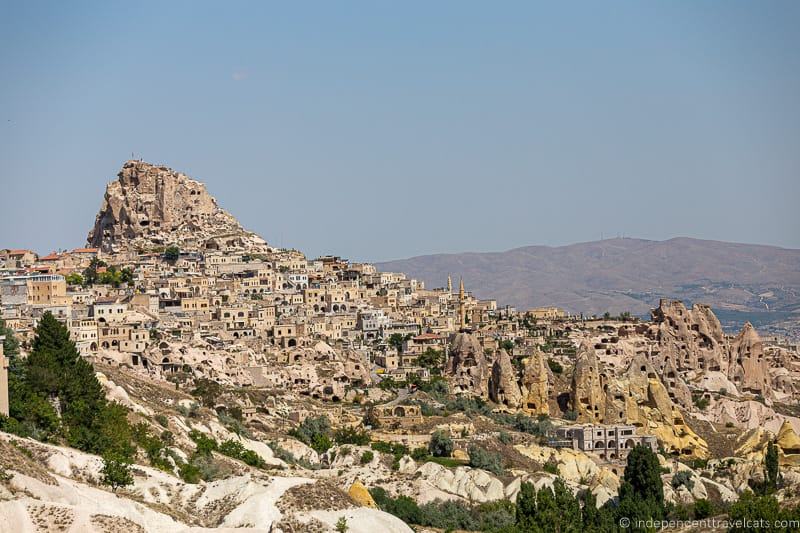
Turkey Itinerary Day 11: Cappadocia
This morning we recommend getting up early to enjoy a hot air balloon flight. Cappadocia is very well-known for hot air ballooning and up to 100 balloons fly here on most days (weather permitting). Due to the unusual landscapes and wide open places, it is considered one of the best places in the world to experience a balloon flight.
If you want to take a hot air balloon flight, just be sure to book once in advance. If you are traveling with a tour, almost all tours offer this as an optional activity.
You’ll need to get up early as the balloons fly in the morning around sunset. How early will depend on the time of year and this can range from a very early 4:00am to 7:00am. Most balloon companies offer pick-up from your hotel and many also include breakfast (or at least coffee and a snack).
Most flights last between 1 hour and 1.5 hours in the air and you travel slowly over the scenic landscape. It is great to see all the interesting rock formations from above as well as see all the other hot air balloons in the sky. If you are looking for a splurge experience in Cappadocia, this is a good one to consider.
We’ve been to Cappadocia twice and have done hot air balloon flights with two different companies, and we can say that some companies definitely are better than others. We can wholly recommend booking a flight with Royal Balloons based on our experience. The staff, food, and safety precautions were all excellent.
Hot air balloon flights are widely available from many companies, but you will want to book in advance to secure a spot. Here are some few suggested options to consider for a hot air balloon flight in Cappadocia.
- This 2.5 hour experience with Royal Balloons includes flight, hotel pickup, champagne toast, and breakfast. We did this trip and it was excellent; highly recommend!
- This 2 hour experience includes breakfast, champagne, souvenir flight certificate, and hotel pickup
- This 2.5 hour experience includes breakfast, champagne, and hotel pickup
- This private balloon experience is exclusively just for you and your group and includes hotel pickup and champagne toast.
Just remember that hot air balloon flights are weather dependent so cancelations are common if the winds are too strong or the weather is bad. So we recommend trying to have flexibility in your schedule for the next morning to do the flight if it is canceled. This will allow you to reschedule and hopefully get a chance to go up the next day.
If you are not interested in taking a balloon flight or the flights are a bit above your budget, you might still want to get up to watch them take off in the morning. The majority of hot air balloon flights launch from around Göreme. You can see them from many of the hotels (ask at yours specifically) and from many parts of the city.
The Sunset View point we mentioned for sunset is also a good place to watch sunrise and the balloon launch, and take photos.
After your morning balloon experience, you may be tempted to crawl back into bed for a nap, but we’d recommend using the rest of your day to see more of the wonderful landscapes and explore the local cultural attractions. There is plenty to see and do in the region to keep you busy all day!
If you are planning to take a balloon flight and then join a day tour today, just make sure that you will have time to get back from your flight before the tour departs.
For those who do want a more relaxing day time activity, you might consider shopping, spending time at one of the local spas (some hotels have their own spas) or hotel pools, going hiking in one of the valleys, or enjoying a mud bath at the Cappadocia Mud Baths & Spa . Laurence found a visit to the mud baths invigorating after a day of travel.
In the evening, we recommend enjoying the sunset and having a nice dinner. There are plenty of evening experiences you can enjoy as noted on Day 10. But if you got up early today, you are probably ready for an early night!
How to Get from Cappadocia to Ankara
Your next destination in Turkey is Ankara, the country’s capital. You have several options on getting between the Cappadocia area and Ankara. If you are planning to use public transportation, we’d recommend checking the schedules in advance.
Those with less than 2 weeks in Turkey may want to skip the stop in Ankara and head onwards to Istanbul today.
By Car : It is about a 180 mile (290 km) drive from Göreme to Ankara, which takes about 3.5 hours.
By Plane : You can fly from Cappadocia (Kayseri or Nevşehir airport) to Ankara, but there are rarely direct flights so you will likely need to layover in Istanbul. Flights often take 4 to 5 hours.
By Train : There are usually two regular trains a day that run from Kayseri to Ankara, one during the day and one overnight train. They are not high-speed trains so the journey takes about 6.5 hours. Check train times and book online here .
By Bus : You can take the bus from Göreme (or other town in Cappadocia) to Ankara. The bus journey takes about 5 hours on average. Check bus times and prices, and book online here .

Turkey Itinerary Day 12: Ankara
If you had a really early morning the day before, you may want to enjoy a relaxing later breakfast to start the day. Then it is time to head onward to Ankara.
If you weren’t able to take a balloon flight on the previous morning for any reason, you could do that this morning. Also if there is anything else you missed in Cappadocia, you could fit it into your morning and then head to Ankara in the late morning or early afternoon.
Ankara is the capital of Turkey, and the second-largest city after Istanbul. Like most cities in Turkey, it has a long and rich history and has been inhabited since at least the Bronze Age. The city became the capital of the Republic of Turkey in 1923 and is today a major center of government, industry, and culture.
Despite being the capital city, Ankara is not nearly as well-known to travelers and is not as touristy as Istanbul. Many of its attractions are focused more to Turkish people than to international visitors, giving the city a much different feel than that of Istanbul and the more touristed regions of the country.
It is a great place to see and learn more about how Turkish people live, eat, work, and play. We recommend taking the time to explore this city and to consider hiring a local guide or joining a local walking tour during part of your time here.
The most popular visited attractions in Ankara is the Anıtkabir or the Mausoleum of Mustafa Kemal Atatürk. Atatürk was the first president of Turkey, and is regarded as the founder of modern Turkey and was a leader of the Turkish War of Independence. He died in 1938, having served 15 years as President. Anıtkabir is a monumental complex of plazas, towers, statues, and a museum.
The city’s second most visited attraction is the Museum of Anatolian Civilizations and this is probably the one must-see place for most foreign visitors. The museum’s galleries tell the story of Turkey’s people in the past 8,000 years in chronological order, including the Neolithic, Early Bronze, Assyrian, Hittite, Phrygian, Urartian, Greek, Hellenistic, Roman, Byzantine, Seljuq, and Ottoman periods. The museum is especially known for holding the most comprehensive exhibition on Hittite artifacts in the world. It was named the first “European Museum of the Year” in 1997.
Ankara has many archaeological and historical sites. These include the Ankara Castle (a.k.a. Ankara Citadel), Roman Theatre, Temple of Augustus and Rome, the Roman Baths, and the Roman Road. Most of the Roman ruins can be found in or near the Ulus quarter in central Ankara.
The largest mosque in the city is the Kocatepe Mosque which has become a landmark of the city. Other impressive mosques the 16th-century Yeni Mosque, the 15th-century Haci Bayram Mosque, and the 12th-century Alâeddin Mosque.
Ankara offers a lot of shopping opportunities, from traditional bazaars to modern shopping malls. The street bazaar along Cikrikcilar Yukusu, also known as the “Weavers’ Alley”, is one of the best places to go in the city for traditional shopping. Another nearby popular market is Bakicilar Carsisi which is famous for its copper products. Those looking for more modern stores may want to head to the Kızılay area.
We also recommend a wander around the Hamamönü, which is a restored late Ottoman neighborhood in the center of Ankara. The area has been restored and amongst the historical structures are handicraft markets, shops, cafes, and restaurants.
If you enjoy museums, there are about 50 of them in and around Ankara. They focus on everything from war to art to steam locomotives to technology. In addition to those already mentioned, some museums you might consider are the Ethnographic Museum, Çengelhan Rahmi Koç Museum (technology), Independence War Museum, and Republic Museum.
Ankara is also a cultural performance hub. You can see the state opera and ballet companies of Turkey perform, as well as classical music orchestras and theatre performances.
For those looking for a different type of nightlife, the large student population of Ankara means there are also things happening in the bars, clubs, and cafes located in the more student-friendly areas of the city.
Here are a few tour ideas in Ankara:
- This private full-day tour of the city’s highlights is designed to help you understand the history of Ankara with visits to some of the city’s main attractions including the Museum of Anatolian Civilizations, Ankara Citadel, Ataturk Mausoleum, and the Old Copper Market.
- This private tour with a local guide can be booked from 2 to 6 hours and focuses on introducing visitors to Ankara. This tour is designed to show you the local side of Ankara and help you plan the rest of your time in the city.
- This full day private day tour visits the Hittites sites of Yazilikaya and Hattusas. Includes hotel pick-up and lunch.
As you can see, there are plenty of things to do to fill a couple of days in Ankara!
Where to Stay in Ankara
Ankara is a big city, so ideally you will want to stay relatively close to the center to minimize transport times. We recommend staying near the city center, so in the area around Ankara Castle and the train station, as this will put you in walking distance of most of the main sights in the city.
Here are some accommodation options in Ankara to consider:
- Deeps Hostel – This budget-friendly hostel offers both dormitory and private rooms, an on-site shared kitchen, and a dining room. It is also centrally located and is about a 5 minute walk from the main train station.
- Sahinbey Hotel – This great value central 2-star hotel offers rooms with private bathrooms and an included breakfast. It is located about a 5 minute walk from the Museum of Anatolian Civilizations and also near Ankara Castle.
- Kahya Hotel Ankara – This centrally located 4-star hotel offers en-suite rooms, 24-hour front desk, free on-site parking, terrace, and an on-site restaurant.
- Güvenay Business Hotel – This well-rated central business-focused hotel offers comfortable en-suite rooms, an on-site restaurant, a terrace, a 24-hour front desk, a business center, and inclusive breakfast
- Divan Cukurhan – This very well-reviewed historical hotel offers lovely en-suite rooms, with an on-site restaurant, 24 hour front desk, and optional breakfast. Located directly opposite of Ankara Castle and a 5 minute walk from the Museum of Anatolian Civilizations.
- The Ankara Hotel – Another well-reviewed 4-star hotel offering modern en-suite rooms with lovely views of the city, an on-site bar and restaurant, free on-site parking, and inclusive breakfast. Located within the train station so a great place to stay for train travelers.
If you are looking for a self-catering option in Ankara, there are a number of options to rent a private room, apartment, or villa. You can check out these city center apartment options on Booking, and these city center options on Vrbo.
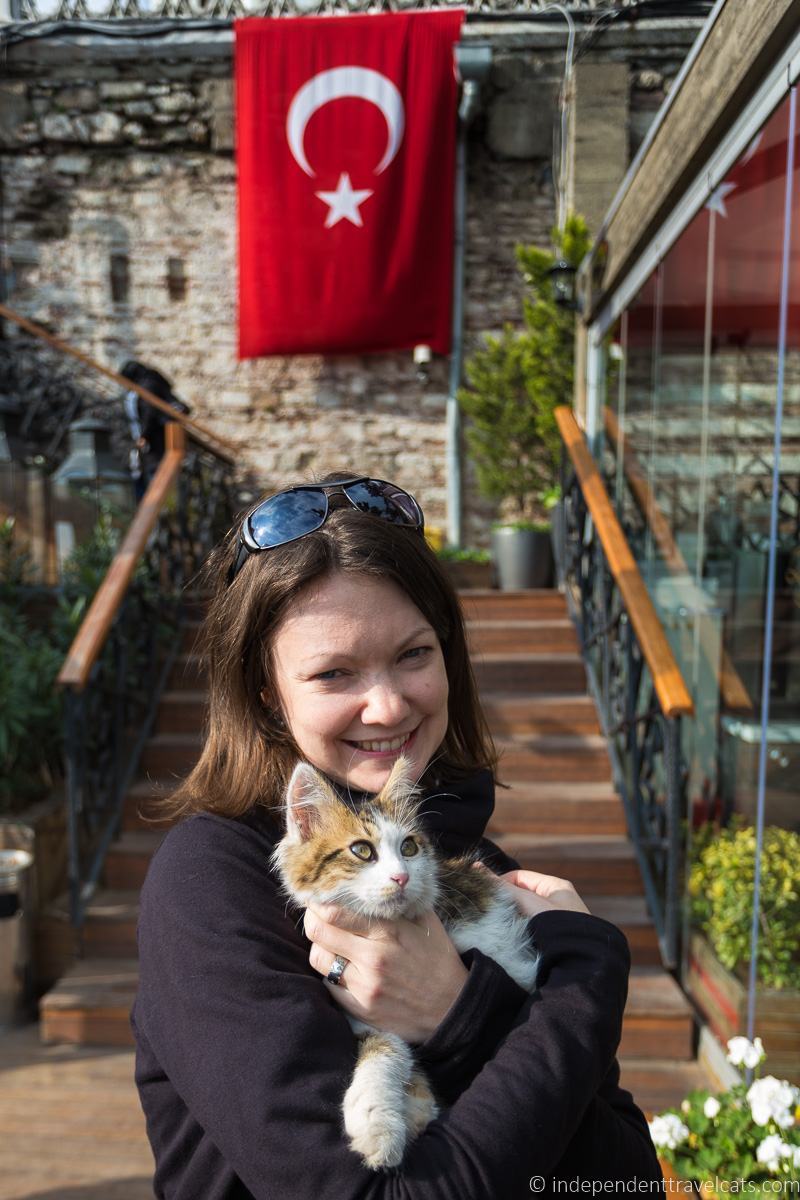
Turkey Itinerary Day 13: Ankara
For your second day in Ankara, we recommend you use it to do the things that you didn’t have time to do on the first day.
If you visited many of the most popular attractions like Anitkabir, the Museum of Anatolian Civilizations, and Ankara Castle yesterday, you might want to spend a more relaxing day wandering around one of the neighborhoods, doing a local food tour, and shopping. Ankara is a good place to search out any Turkish foods you haven’t had the chance to try yet or buying any last minute souvenirs or gifts.
Also a good time to do anything you had been wanting to do in Turkey that you hadn’t been able to do yet. For instance, if you had been wanting to try a Turkish hamam, you could do that today. One central historical hamam to consider is Şengül Hamamı .
If this is your final night in Turkey, we recommend planning something nice to do in the evening!
How to Get from Ankara to Istanbul
As the two largest cities in Turkey, Istanbul and Ankara are very well connected so you have lots of options on how to travel between them. The fastest way to get from Ankara to Istanbul is to fly although taking a direct high-speed train is also a good option.
By Car: If you’re driving, it’s around a 280 miles (450 km) drive from Ankara to Istanbul, and the drive takes around 5 hours.
By Plane : There are many daily direct flights between Ankara and Istanbul and these flights take about 1 hour.
By Train: The direct train takes around 4 to 4.5 hours. Several trains run this route each day and there is also an overnight sleeper train.
By Bus: Bus journeys between Ankara and Istanbul take between 6 and 7 hours on average. There are a great many bus services to choose from, including overnight options. Check bus times and prices, and book online here .

Turkey Itinerary Day 14: Istanbul
You’re back in Istanbul, having completed your fantastic 2 week trip in Turkey!
If you have more time in Istanbul, you can see anything that you didn’t have time to see during your first visit here. There are plenty of things to see and do in the city. You can also do some final souvenir shopping and enjoy a final Turkish meal.
If you are flying home from the Istanbul airport, you may want to pre-arrange an airport transfer .
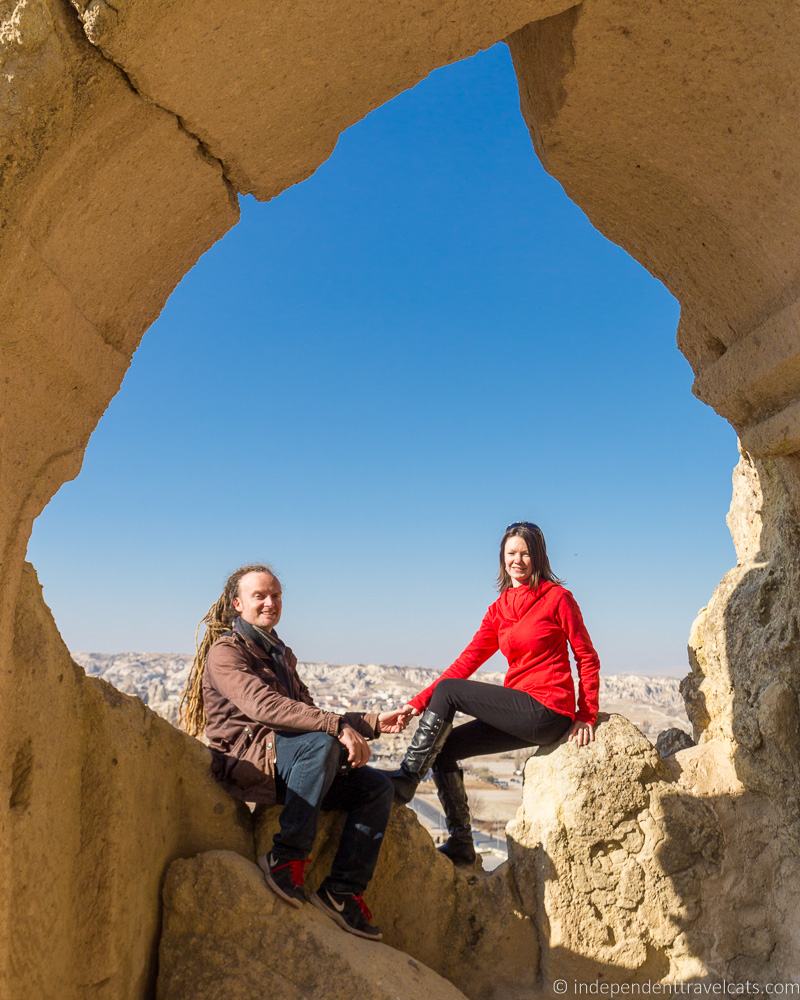
Our 2 Week Turkey Itinerary Map
We have marked out our suggested route for our 2 week Turkey itinerary on Google maps. This should help you more easily visualize the route over the 14 day trip through Turkey.
You can access our route map here or by clicking on the map image below:
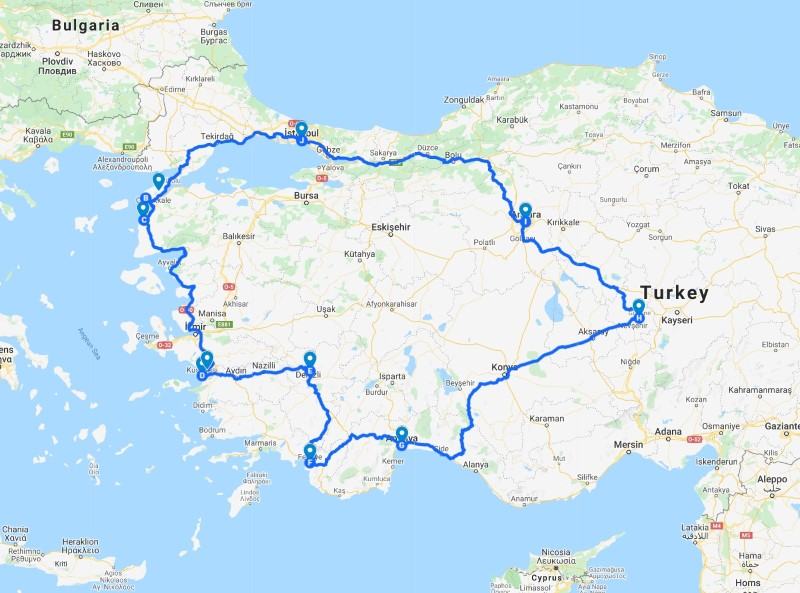
There you have it, our suggestions on where to travel in Turkey for 2 weeks!
Like what you see above but don’t want to book the transport, hotels, and activities yourself? Considering booking a guided tour, you can see our list of recommended tours of Turkey earlier in the post.
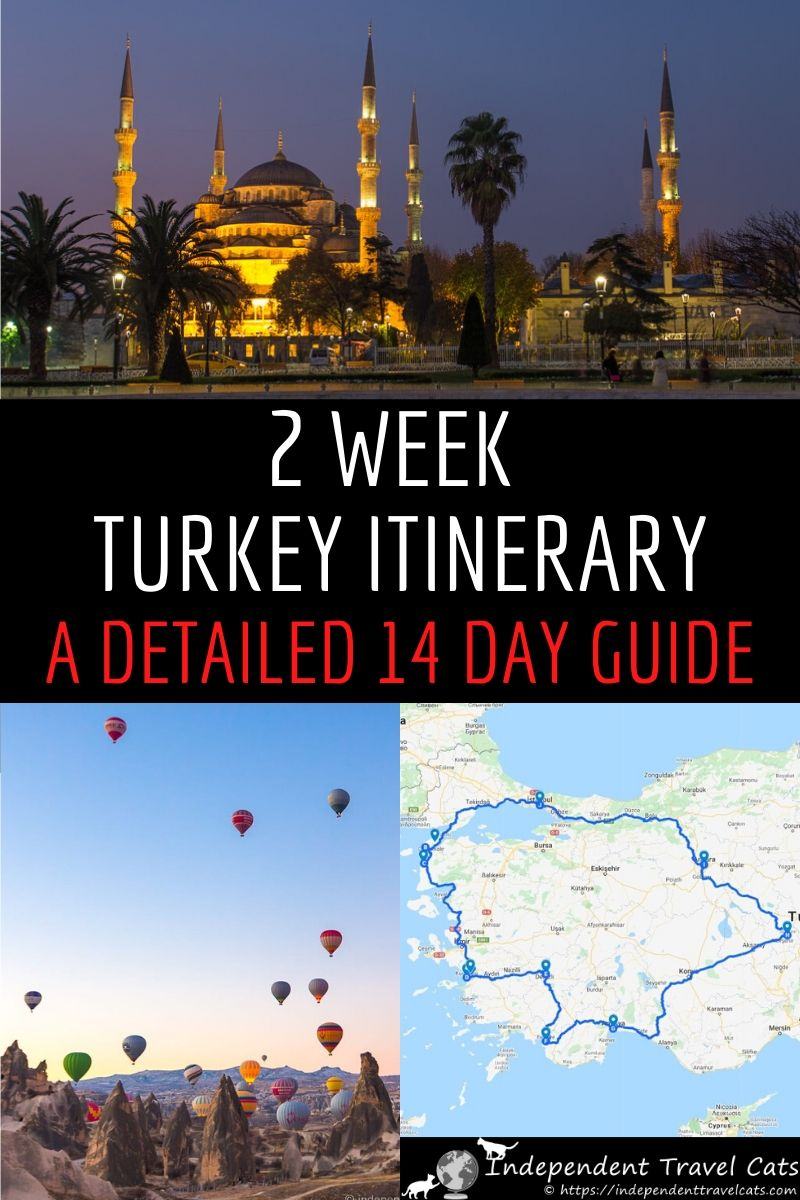
Which of these places would be on your Turkey travel itinerary? Have you been? If so, we’d love to hear about your favorite places or tips on traveling in Turkey.
If you have any questions about traveling to Turkey or our 2 week Turkey itinerary, just leave them as a comment below and we’ll try our best to answer them. As always, we love to hear from you!
Share this Post!
There are 92 comments on this post.
Please scroll to the end to leave a comment
Isha Post author
March 24, 2024 at 3:23 pm
I will be in Turkey on Tuesday. This guide has been an extremely useful resource in planning my 14 day trip. I will be starting from Istanbul to Izmir (stay in kusadasi) – Cappadocia – Antalya (from Antalys day trip to Heirapolis and Permukkale). Thank you very much
Jessica & Laurence Norah Post author
March 25, 2024 at 4:26 am
So happy to hear our Turkey itinerary has been helpful in planning your own 14 day trip. Sounds like you hae a great trip planned. Hope you have a wonderful time and just let us know if you have any questions!
Best, Jessica
April 10, 2024 at 2:02 am
Hi, thanks again for this blog which was the best resource in planning my trip. I am back. I had an amazing time. The only thing i did not need was a water bottle (which i packed). I also downloaded the vpn.
Istanbul – toured by myself and didnt need a tour guide as most places are accessible by wandering around-4 days flew to Izmir-kusadasi-ephesus. did a tour with a guide. 2 days
flew to cappadocia did the green and red tours, skipped the balloon. Also did the turkish night dance which was overpriced in my opinion. 4 days
flew to Antalya. did day tour and went to permukkale and hierapolis by road.
Thank you so much for this amazing blog resource.
April 14, 2024 at 1:00 am
You’re very welcome and thanks for taking the time to tell us about your travels in Turkey. So glad you had such a great trip to Turkey and that our Turkey itinerary was a helpful resource in planning your trip and thanks for letting us know where you went and how you organized your time. Sounds like you did a mix of independent travel and guided travel, which sounds nice. I am sure it might be helpful to future readers looking to plan a similar trip.
Hawa Post author
February 20, 2024 at 4:33 am
Thank you so much for sharing your 14 day itinerary as well as tips! Extremely useful and no doubt that you guys had an amazing time! My hubby and I are planning to visit Turkey in September. Overall itinerary is 16-17 days. We want to visit the following places but are not sure which way to plan the routing. Can you please advise/assist us based on the places that we want to visit. We also not keen to hire a car and would prefer flying wherever possible. If there are no flights available for certain routes, then we opt to take a bus. The places are: Istanbul, Izmir, Pamukkale, Cappadocia and Antalya. Please assist us. Also we were planning to spend 3 full days in Antalya and about 2 and half days in Cappadocia. Is this okay? Or would you suggest us staying longer in Cappadocia then Antalya. Thank you! Kind regards,
February 20, 2024 at 12:44 pm
Happy to try to help with your trip. I am going to assume you are flying in and out of Istanbul? In that case, you could do Istanbul – Izmir – Pamukkale – Antalya – Cappadocia – Istanbul or do that in reverse ordering, leaving Istanbul and going to Cappadocia first. It really makes little difference which way you go, just that you on in an order that makes logical sense.
So a trip based on those locations and some of your plans you stated might be:
Istanbul – 3 nights Izmir – 4 nights Pamukkale – visit as part of a day trip from Izmir? Antalya – 4 nights Cappadocia – 3 nights Istanbul – 2 nights
Above is 16 nights in total
So it is easy to fly from Istanbul to Izmir. When in Izmir, you can either use local buses, taxis, or join day tours to visit places like Epheseus and Kuşadası. I’d also consider taking a day tour from here to Pamukkale. You can see a number of day tours available from Izmir here on GYG and here on Viator .
For Pamukkale, you can visit by public bus, join a day tour from Izmir (or Antalya), fly into Denizli airport and then take a taxi or bus. I’d probably opt to just join a day tour as you don’t have to worry about getting to the actual sites from a bus station or airport. Most of the tours include stops at both the hot springs and the ancient city of Hierapolis.
Then from Izmir, you can take a flight to Antalya and then taxi to your hotel. Then from Antlaya, you can take a flight to Cappadocia (2 different airprot options). Then from Cappadocia, fly back to Istnabul for a couple of days before your flight howm.
Our suggested itinerary has lots of info on things to do at each of these locations, but feel free to ask if you have further questions.
Anyway hope that helps answer your questions and get you started in planning out your itinerary and starting to book your trip.
Just let us know if you have more questions as you continue to research your trip!
Linda Post author
January 14, 2024 at 6:50 pm
Hi Jessica and Lawrence, Your post is so amazing and helpful for me to understand traveling in Turkey! My partner and I are thinking of hiking the Lycien Way. Do you have any recommendation regarding tour group and how to do it? This will be our first time going to Turkey. Thank you! Linda
January 15, 2024 at 4:49 pm
So glad that our Turkey itinerary has been helpful to you and your partner. So are you looking to extend a 2 week trip around Turkey by adding in the hike, or are you going to to focus on doing the hike? The full hike is about a month but you can easily do a shorter section of it which can range from 1 day to a couple of weeks.
So if you want to do a general trip around Turkey (similar to the one we wrote about) and hike the Lycien Way as part of a guided tour, I’d probably do a regular guided tour around Turkey first, exploring places like Istanbul, Epheseus, Antalya, Troy, Cappadocia, etc. first. We give lots of suggestions for tour companies that do similar itineraries to the one above as well as those for slightly shorter or longer trips.
Then after that ends (almost all begin and end in Istanbul) add on a second hiking specific tour of the Lycien Way after that you can get a flight down to Dalaman Airport (DLM) or Antalya Airprot. Most of the hiking trips end/begin at the Dalaman Airport (or in nearby Fethiye) or in Antalya. Domestic return flights within Turkey are normally pretty cheap (about $150 to $250 per person). You just need to be sure to book your tours in advance and leave a little leeway in case there are delays or anything, so I’d probably leave a full day at beginning and end (also nice to have a day to relax in between tours).
So as you probably already know the Lycien Way is an approximately 760 km (472 mile) way-marked footpath around the coast of Lycia in southern Turkey, stretching from Fethiye to Antalya. However, the exact length and such is different depending on map and guidebook, and has changed over time. But generally it takes about 30-40 days to walk the full path. It is generally recommended to do it in the Spring by most sources although autumn also can be nice. I can’t give any specific personal advice on hiking it or a tour group as we have never tried hiking any more than a short section.
Now if you are looking for a tour group, I don’t know of any that regularly do the full path from start to finish with English speaking guides (I would check local hiking/trekking companies in Turkey or ask in a Turkey hiking forum) but there are several companies that do group or private 6-10 day hiking highlights tours of the Lycien Way so that you experience some of the main and more scenic and easy to reach sections. But they also arrange your transport, food, luggage, accommodation, etc. Tour companies like Intrepid, Explore, and UTracks all seems to offer them, and the Explore one in particular seems to get a lot of really good reviews online. You can compare various tours here that include the Lycien Way.
If you want to do the Lycian Way, I would recommend getting a copy of the English guidebook on this by Kate Clow (she is the authority on the route as she waymarked and promoted it). Note that the latest version of this guidebook was published in 2022 (it can be hard to find so you may need to order it directly from her website Trekking in Turkey). This guidebook along with free online resources and mapping apps should help inform and guide you whether you choose to do it on your own or with a guide.
Hope the above helps, but let me know if you have more questions as you research and plan your trip to Turkey!
Charles Post author
December 15, 2023 at 4:18 pm
Istanbul, Turkey is such a captivating destination, love the Hagia Sophia, Blue Mosque, Topkapi Palace, and the Grand Bazaar. This website offers such valuable insights into these attractions, as well as local cuisine and practical travel advice. Had such an enjoyable visit to this enchanting city. Would love to return to follow your whole itinerary but not the time on this trip. Thanks so much and Happy travels!
December 16, 2023 at 8:18 am
Hi Charles,
So glad you had such a wonderful visit to Istanbul and glad you found our Turkey articles helpfull. Hope you get a chance to return to Turkey soon and see more of the country beyond Istanbul – lots of great places to visit!
Georges Chahoud Post author
October 11, 2023 at 11:09 am
Thanks a lot for the precious informations two weeks in turkey , what do you suggest me if I would like to visite the princesses islands ( Istanbul) and more excursions tour three weeks .
October 12, 2023 at 11:30 am
Hi Georges,
Glad you are finding our 2-week Turkey itinerary helpful in planning your trip. So with three weeks, I would probably just spend some more time at the cities and stops that are of most interest to you. It can also give you more time to do day trip and excursions from those places such as Istanbul, Antalya, Cappadocia, or Kuşadası. Or if you are planning to join a tour, it will likely allow you to choose a longer tour with more stops.
I think you mean the Princes’ Islands in Turkey, near Istanbul (I am not familiar with any Princesses Islands)? For that, I would probably just do it as a day trip and allocate a morning and afternoon for the visit. We have visited as part of a day trip and the main island is easy to get to by taking a ferry boat. I think it is the equivalent of a couple of dollars for a ticket each way and most people head to Büyükada (Big Island). You can book tickets in advance or just buy once you are there. You can also join as part of a tour, and here are some day tour options that you can book in advance. In addition to your transport, some of the tours also include a guided walking tour, lunch, bike rides, music, and/or fishing.
If you are looking for a 3 week guided tour, it is hard to make a recommendation without knowing more about your budget, age, interests, and who all is traveling together. But a couple of options would be this 19-day tour with TravelTalk or this 18-day tour with Intrepid Travel. But here are several more tour options that are between 18 and 25 days in length. If you decide to do a tour like those that is less than 21 days, then plan a couple of extra nights on your own in Istanbul at the end (where you can visit the Princes Islands for instance).
Hope that helps and just let us know if you have further questions as you plan your trip to Turkey!
October 15, 2023 at 12:55 pm
Hi Jessica. Thanks a lot for your reply, I found it very useful. I’m happy to find you and to be one of your followers. Concerning my voyage to turkey, my budget is about 5000C$, do you think is enough for 21 days, I’m 61 years old and for me it’s a discovering voyage, most probably I gone be alone . Thanks again.
October 16, 2023 at 8:19 am
You’re very welcome. Glad the information was useful in planning you vogage to Turkey.
Yes, $5000 CAD (about $3700 USD) is enough for a comfortable trip around Turkey for 3 weeks if you plan it well. Turkey is not that expensive. Flights are the biggest cost, if the $5000 is in addition to your international flight then that is a very nice budget to have, but you’ll need to be more budget focused if your flights will come out of that sum. You’ll have about a $230 CAD budget per day (currently about $170 USD or 4700 Turkish lira).
Just a side note, the Turkish lira (the official currency of Turkey) is very unstable and so most tourist places prefer you to pay in euros (or sometimes GBP or USD). A lot of tourist activities will be priced in euros so good to know the CAD to EUR conversion rates once in Turkey. So while you may want to have a small amount of Turkish lira cash on you for small establishments/markets/gratuities/etc, you can pay with most things with your credit/debit card or in euros.
You can stay in comfortable moderate hotels or guest houses, visit attractions, do some excursions, and eat well within your budget. You can choose to plan the full trip yourself and do your own travel (by car or public transit) or join a tour with a tour guide where that all is taken care of for you with that budget. If doing it on your own, you should be able to book most big things in advance (flights, hotels, car rental, excursions) so you’ll know the cost and be able to stick to your budget and then allow for all the needed extras (food, attraction tickets, public transit, taxis, souvenirs, gratuities, etc.).
If you want to do it on your own, you certainly can, but if you prefer some company and a guide, there are lots of tours within your budget as well. We’ve used Travel Talk in Turkey but they definitely cater to a younger demographic but Intrepid Travel’s Comfort or Premium tours might be nice fit. We’ve used Intrepid Travel in Morocco and the age range was from late 20’s to 70’s on their more Premium category tours.
One thing you might consider is to do a mix where you are part of a tour for some parts of your travels and you are on own for other parts so you get the ease of group travel for the more far flung destinations and can do it on your own in places like Istanbul.
I am not sure when you are planning to visit, but if you are flexible, I would probably recommend avoiding the hottest months in Turkey (particularly July and August) as it can be pretty uncomfortable to sightsee, especially the historical sites and gardens, in the summer heat.
Hope that helps! If you have further questions as you get further into planning your trip, just let us know.
Georges Post author
October 17, 2023 at 9:46 am
Hi Jessica, i hopeI do not bother you with my questions, but I find that your instructions are very useful. I have two questions,since I am planning to visit the western part of Turkey. In your opinion, is it better for me to start in Ankara and end with Istanbul, or vice versa, or to start and end in the same city (to avoid distances). Secondly, in your opinion, is it better for me to book hotels In advance, such as a flight ticket, or to leave hotel reservations until I arrive in Turkey to avoid unpleasant surprises (I heard that, as for some hotels, you book a room and are surprised when you arrive that your room does not look at all like what you saw in the picture, and perhaps it is from another hotel. What do you think? Thanks a lot.
October 18, 2023 at 12:31 pm
Sure, no problem. So I would probably recommend flying in and out of Istanbul as that is normally the cheapest option as Istanbul is the larger international airport. If you are planning to take domestic flights in Turkey, Istanbul is also a good hub for that. But flying in and out of Ankara can also work if prices are better there. So definitely price compare across airports, dates, and routes. We’ve generally flown Turkish Airlines on round-trip tickets into Istanbul. Then I’d just recommend planning your itinerary in a circular fashion around the Western part of Turkey starting and ending in either Istanbul or Ankara.
We do generally recommend booking your accommodation in advance (before you leave for your trip) if you know your dates. Trying to find accommodation on the same day once in a location is not the best idea and can waste a lot of time. It is also easier to stick to a budget if you know your lodging cost beforehand. But it is of course up to you and I would do what best fits your travel style.
But if you want to stay in a comfortable hotel and have that set and know the price in advance, I would just book in advance once you know your dates and itinerary and I would generally recommend booking with a free cancellation option just in case you needed to cancel your trip or change dates. Of course if you have travel insurance, you can normally do a claim there if you couldn’t make your trip due to illness or flight cancellation or something, but having the free cancellation for your hotels just makes that easier.
We normally book online via Booking.com (or Hotels.com) with some kind of cancellation option. We have not had any unpleasant surprises in Turkey but I think if you stick to well-reviewed hotels on an international booking website like Booking or Hotels with plenty of reviews (especially from other Western travelers) and photos, you should be fine. We give some hotel recommendations throughout the itinerary across budgets and that should get you started on your search, at least in those areas. But Turkey has a lot of decent mid-range options in the main tourist cities and towns in the west part of the country that are not very expensive, but I would avoid the very cheap/basic ones and any that have no or few reviews.
gezilecek yerler Post author
August 9, 2023 at 7:01 am
Thank you for this great Turkey itinerary. Greetings from Turkey!
August 10, 2023 at 10:49 am
Thanks for taking the time to comment. You are very welcome and glad you found our 2 weeks in Turkey itinerary helpful! If you have any questions, just let us know. And enjoy your travels around Turkey!
Anne Post author
July 28, 2023 at 8:13 am
Thank you for so generously sharing this itinerary in such detail! We are planning to spend the entire month of May, 2024 in Turkey. For most of the first week we’ll be staying with friends in Istanbul, and after that we will travel by bus. We would love to follow your itinerary, expanding on it to fill out our month. Which of these options would you recommend as the best ways to spend our extra time: 1. Spending time in the Black Sea region on our way back from Capadocia? 2. Adding a multi day boat tour while we’re in the Mediterranean region? 3. Spending additional days in one or more of the Mediterranean towns along the route? 4. Adding stops along the Mediterranean? 5. Taking the ferry and spending time in Greece? So many ideas!
July 30, 2023 at 4:22 pm
That is wonderful that you have a full month here and have friends in Istanbul. So it sounds like you have 3 weeks to cover the rest of the itinerary (excluding Istanbul of course) and that gives you time to add some extra time to all the stops and to add an extra stop or two to the trip. So I would recommend going through the itinerary and seeing which places you want to add time in the existing places, taking into account bus travel times/stops. Then see how much extra time you have leftover and then that can help you decide which of the options might work best.
I would first add an extra day or two to the places along the route that you are most interested in visiting. As the itinerary covers a lot of ground in 2 weeks, you have extra time to add an extra day or two to any of the stops. Even if you don’t want to spend 3 days in the town itself, it nice to have the longer stay without needing to move hotels and you can do day trips (either by public bus or join a bus tour) to neighboring towns and attractions. You already have a lot of time in Istanbul, but you might want to spend extra time for instance in Kusadasi, Fethiye, or Cappadocia. Maybe spend a night in Denizli/Pamukkale to make that day not so long and more leisurely. So I would go through the 2 week itinerary you already have and make it slower first of all.
If interested in cultural sights/cities, you might want to add an overnight stop in Konya – a lot of people stop to see a whirling dervishes performance at the Culture Center but also a number of mosques and museums. If you like more the beach vibes, you might want add more of those such as Bodrum or Marmais.
If you like time on the water, then yes, I would definitely recommend a boat cruise. Laurence did a multi-day gulet trip and enjoyed it a lot. It’s a great way to see some of the islands, swim, etc. Options range from budget group trip to luxury private ones, and from a few hours to 2 weeks in length. You can take boat trips from a number of places such as Kusadasi, Kas, Fethiye, and Bodrum. If you want to do a multi-day trip, you would want to book that in advance before you leave. Boat day tours you can normally arrange the day before or even same day if needed (although still a good idea to book those in advance too).
If you want to see a bit of Greece and plan to do a boat trip, some of the boats also go to Greek islands given that some of them are so close to Turkey. But the ferry could also be an option if you wanted to make a short visit to Greece. To be honest with 3 weeks outside of Istanbul to explore, I’d probably recommend focusing on Turkey and saving Greece for a future trip. But if you don’t think you’ll ever return to the area, it could be worth the extra time.
The Black Sea region is not as popular with international tourists as most of the other places on the itinerary but can definitely be a nice extra place to spend some of your time if you have at least a few extra days to spare in your itinerary. The beaches are not going to be as great as the ones in the south but it has some lush green hilly areas, alpine areas, forests, waterfalls, castles, coastal cities, tea plantations, historic mosques, lovely lakes, etc. So if you are looking for a more off the beaten path area or just a green area this can be a good choice and you could head there after either Ankara or Cappadocia before heading back to Istanbul. But just be sure you have plenty of time to add this and that there are good bus connections to the parts of the region that you would like to visit. Depending on which part of the region you visit, it can take you a day (~12 hours) to get from the region to Istanbul, and also most of a day to get there from Cappadocia (a little less if leave from Ankara) so you’d probably need 5 days free to be able to spend 3 days here so may or may not work with your schedule. The biggest Turkish city in the Black Sea region, Samsun, definitely has regular connections to both Kayseri, Ankara, and Istanbul by bus so you can look at that route to get an idea of connections and timing. You can check them on Busbud and FlixBus .
Anyway, hope that helps a little! Just let us know if you have further questions as you plan your 2024 trip to Turkey.
Radhika Bayanwala Post author
May 1, 2023 at 9:56 am
Hello, for a 12 day trip what part of this trip do I cut down on?
May 1, 2023 at 12:48 pm
Hi Radhika,
I think it really depends on what you are most interested in doing/seeing in Turkey. I would maybe look at the itinerary day by day and see which places seem less interesting and take 2-3 days out of the itinerary. So for example if not very interested in the coast, you might cut the 2 nights in Antalya or if not as interested in more city/cultural stuff you could cut the stop in Ankara and go directly back to Istanbul from Cappadocia, which would save you two days. It is really just up to you!
If you have any questions as you plan your trip to Turkey, just let me know!
Ferhana Abader Post author
February 11, 2023 at 12:51 pm
Hi Jessica, Thank you so much for this, it really is helpful. My husband and I want to visit Turkey towards the end of April from South Africa. We will be staying for 2 weeks. We want to go to Istanbul, Cappadocia and Antalya. Do you think it’s a good idea to stay in Istanbul for 2 nights, Cappadocia for 3 nights, Antalya for 3 nights and back to Istanbul for another 6 nights. We not really into history so we won’t be visiting quite a few of the places mentioned here. If 8 days in Istanbul is too much where do you recommend we go to where there’s other things to do besides visit historical sites?
Thank you so much 🌹
February 13, 2023 at 8:43 am
Hi Ferhana,
Glad you have found our Turkey itinerary helpful!
So yes, I think if historical and cultural sites are not that interesting to you, you might find that 8 full days in Istanbul might be too much. That is a pretty long time. Istanbul has a variety of things to do, but the main appeal to many visitors is of course the historical sites, churches/mosques, museums, etc. Of course there are also loads of other things including the markets, shopping, art, boat rides, evening entertainment, food tours, etc. So I think 4-6 days in total would probably allow you to see much of what you wish to see perhaps? But it really depends on what you enjoy doing. I’d maybe make a list of what you really want to do there and see how much is on it. That should help you decide.
If you feel you are spending too much time in Istanbul, the simplest thing would perhaps be to just add a night or two to your time in both Cappadocia and Antalya. This way your time is still divided by just 3 places.
If you like the beach and/or outdoor activities, another idea would be spend more time along the Turkish coast. In addition to Antalya, you might want to spend a few nights in either Fethiye or Bodrum. In the coastal cities, in addition to beaches, shopping, and the local historical attractions, you can do things like hiking, boating, golfing, water parks, and adventure tour activities like sailing, paragliding, rock climbing, or dirt biking. Gulet boat tours are popular and you could even consider an overnight trip where you get to sleep on the boat – they range from budget to luxury experiences.
Anyway, hope that helps give you some ideas! If you have any further questions as you plan your trip to Turkey, just ask.
February 13, 2023 at 10:07 am
Thank you so much for your response 🌹 This definitely helps me to make a more informed decision about my itinerary. Take care
February 13, 2023 at 11:58 am
You’re very welcome! Wishing you a great trip, and just let us know if you have further questions.
Jonathan Abrahams Post author
February 11, 2023 at 1:54 am
Thanks so much for this great write-up and itinerary for Turkey. It has definitely helped make my upcoming trip a lot easier to plan.
I’m visiting Turkey in April from the 22nd of April to the 6th of May this year. I’ll be mostly using public transport since I’m traveling solo.
My current schedule is as follows: 01. Istanbul (I arrive 7pm first day so it wouldn’t really count) 02. Istanbul 03. Istanbul 04. Istanbul 05. Selcuk (catch an early morning flight to Izmir and train to Selcuk – visit Ephesus and whatever else I can fit in) 06. Denizli (catch an early train from Selcuk and visit Pammukkale and whatever else I can fit in) 07. Antalya (take a bus to Antalya from Denizli – This time can be flexible if I want to see a bit more of Denizli) 08. Antalya 09. Antalya (taking an overnight bus from Antalya to Cappadocia – 9 hours) 10. Cappadocia 11. Cappadocia 12. Cappadocia 13. Ankara (take a bus from Cappadocia to Ankara – probably early in the morning) 14. Ankara 15. Ankara (take early afternoon flight from Ankara to Istanbul and catch my early evening flight out of Istanbul back home)
Normally when I travel I like to stay in one location for about 3 days to explore it and the surrounding areas, but I had to fit Selcuk in (for Ephesus) and Denizli (for Pammukkale). Do you think I’m spreading my time alright or should I perhaps move around a day or two here or there? Also, have you ever used AirBnB in Turkey and if so, how has it been?
Many thanks Jonathan
February 13, 2023 at 8:18 am
Hi Jonathan,
I think your proposed Turkey itinerary looks fine and glad to hear that our post made it easier for you to plan your trip and itinerary.
I do think that you will be a bit rushed for the 1 night visits as you say but that really can’t be helped unless you borrow time from elsewhere to stay longer in say Selcuk. Days 5 & 6 are definitely going to be longer/busy days for you. So it just depends if you are OK with this or not. If you wanted more time in those places, I’d suggest removing one of the other longer stops (say Antalya or Ankara).
In terms of how to spend your time, I would just review what you really want to see/do in each place and make sure you have enough time to do that. For example, as yourself what are the three main things you really want to do? How much do you want to see Pammukkale? What do you plan to do in Cappadocia/Ankara? etc. If you find that you are having to skip something you really wanted to see or feel it is too rushed, see if you can remove time elsewhere where maybe there are lower priority places. It is really about your priorities and how you want to organize your time, so really only you can decide if the alloted time and itinerary is a good fit for you or not. It is always good to also go with the mindset that hopefully you will return another time so you don’t feel like you have to see everything this trip.
Traveling by public transit is definitely your cheapest option; however, it does of course have the drawback as taking the longest and you will lose some travel time and have to be sure to check the bus/train schedules to be sure to make the most of your time. The overnight bus is a good way to maximize time (and saves you from paying for a hotel that night).
We have used Airbnb in a lot of places around the world, but not in Turkey. In Turkey, good value lodging is easy to find and often includes things like free breakfast, a front desk, a restaurant, and housekeeping so we have found it more appealing to stay in hotels here. I am sure Airbnb is good in Turkey, and if you use it just make sure to stick to places that have consistent good reviews and will be within walking distance of any needed public transit stops. We tend to only find Airbnb worth it for 3 night or more stays.
Anyway, hope that helps and wishing you a great trip to Turkey. If you have any further questions, just ask!
Jonathan Post author
February 13, 2023 at 3:16 pm
Thanks for the feedback Jessica. I’ve only made one change by flying out of Istanbul on my 4th day so I can spend two nights in Selcuk. Other than that I’m happy with my itinerary. Again, I can’t help but say thank you again for this awesome write-up that you’ve done.
Regards Jonathan
February 14, 2023 at 12:59 am
That sounds great to have that extra night in Selçuk so that you don’t have to feel rushed there. Ephesus is a large and important site so it is good to have a full morning and afternoon – having a tour guide can be a good idea here to better understand the ruins.
Having 2 nights will also give you time to see other things in that area. Depending on your interests, Kusadasi is a fairly easy minibus or taxi ride away (about 20 minutes), so that would be an option on the day you are not visiting Ephesus.
Wishing you a great first trip to Turkey!
Mona Post author
January 25, 2023 at 9:58 am
HI! Loved getting all the ideas from your trip! We’re travelling early March this year with our 9 month old! i wanted to know if they would allow him to be on the hot air ballloon with us in a baby carrier strapped to us since were traveling alone and cant leave him anywhere ! would love to know while i plan! def want to do the air balloon though
February 1, 2023 at 4:32 am
Glad you are finding our advice and Turkey itinerary helpful in planning your upcoming trip!
So you can not and should not take a baby in a hot air balloon. It would not be safe to do so as your baby could easily be injured, whether strapped to you or not. Landings can be rough and we’ve seen a number of injuries over the years we’ve been ballooning, luckily most are minor and it is not usual.
There are generally age and/or height requirements for hot air ballooning and these vary around the world and by the operator. Minimum age generally is between 5 and 10 years of age. In Cappadocia, I think the minimum age for most operators is 7 years of age.
So if you want to take a hot air balloon in Turkey, I would choose a hotel in Cappadocia that offers well-reviewed babysitting services. Many hotels in the area do this. For example, the hotel I last stayed at in the region, Kayakapi Caves hotel , offered family rooms, children’s menus, and babysitting services to parents. I would check on these services before booking any hotel.
But if you don’t want to leave your baby, I would choose an alternative activity that you would be able to do safely together. Then you can always return in several years and do a hot air balloon ride together as a family.
Anyway, hope that helps and wishing you a wonderful trip to Turkey!
Ashwani Post author
November 17, 2022 at 4:10 am
Very very detailed article. As someone who lives in Turkey, I really appreciate your travel information. it was a good guide.
November 18, 2022 at 3:57 am
Hello Ashwani,
So glad to hear from those in Turkey that they have found the travel information useful and accurate. Thanks for taking the time to comment.
Wishing you happy travels!
Ustun Post author
October 7, 2022 at 2:18 pm
Very very detailed article. As someone who lives in Turkey, I really appreciate your travel information. it was a good guide. You can also contact me for any help.
October 12, 2022 at 2:43 pm
Thanks so much for taking the time to comment and let us know that you enjoyed our Turkey travel guide. Always glad to hear from locals that our travel information is accurate and helpful.
If you have any questions, just ask but I am sure you have your own local contacts!
Preeti Post author
September 30, 2022 at 1:10 pm
Extremely helpful blog! We planned our itinerary quite similarly to the one mentioned above. Super in-detail and insightful. Thanks!
October 1, 2022 at 10:27 am
So glad you found our 2 weeks in Turkey guide helpful in planning your itinerary. If you have any questions, just ask!
Wishing you a wonderful trip! Jessica
Dominic Martin Post author
August 29, 2022 at 7:53 pm
Hi Jessica & Laurence, I am glad to have come across your blog. I am planning a 30 day budget trip to Turkey (end Oct to End Nov). We are a couple and will be using Istanbul for arriving and departing in to Turkey. Could you suggest an itinerary for the same? We are open to exploring all options.
Jessica Post author
August 31, 2022 at 12:14 pm
Hi Dominic,
The first thing to determine is how you plan to get around Turkey. We talk about all the options above.
If traveling on a smaller budget, the cheapest way to get around Turkey is definitely by bus. Buses go to most destinations in Turkey. Since you have a lot of time, you can be flexible and would have the time to work with a bus schedule.
Another good option to consider is a budget-oriented tour for part of your trip. For instance, you could do a week in Istanbul on your own, join a tour for a couple of weeks that will take you to all the tourist highlights (Ephesus, Pamukkale, Troy, Cappadocia, beaches, etc.) and then return you to Istanbul to spend another week on your own. One example of a tour company we have used for budget trips is Travel Talk Tours . Some of the tours average out to about $50 to $100 per person/per day so can be a good value, depending on your budget and if any of the itineraries match the main things you want to see/do. Some include time sailing on a boat for a few days.
It is easy to find inexpensive and good value hotels or hostels in most places in Turkey and food is also not very expensive (in comparison to Western countries anyway). You can book your lodging in advance to make sure you stay within your budget.
It is really hard to say what would be the best itinerary for you as it will depend on what you like to do, what you really want to see, your budget, etc. A person most interested in history and ancient sites may have a very different itinerary and priorities than someone more intersted in beaches and sailing. So here is a suggestion that is basically just adding nights to our itinerary and making day stops into overnight stays:
Istanbul – 5 nights Gallipoli/Çanakkale – 1 night izmir – 2 nights Troy/Şirince – 1 night Kusadasi – 3 nights Denizli/Pamukkale – 2 nights Fethiye – 3 nights Antalya – 3 nights Konya – 2 nights Cappadocia – 4 nights Ankara – 2 nights Istanbul – 2 nights
Hopefully, the above gives you an idea of how to get started in booking your trip to Turkey.
Dominic Post author
August 31, 2022 at 6:03 pm
Thanks for the detailed information Jessica. Will work around this.
September 1, 2022 at 1:52 pm
You’re very welcome and hope this helps. Just let us know if you have further questions as you plan your trip to Turkey!
Jay R Post author
August 29, 2022 at 6:22 pm
Hey Jessica & Laurence!
Thanks for putting together such a great guide. We are planning to go to Turkey in October for an engagement. We were trying to keep it to 14 days but finding it difficult. Also, we were hoping to squeeze in Mount Nemrut but it does not seem practical.
We are planning to rent a car.
Here is what we are thinking:
Istanbul – 3 nights Safranbolu – 1 night Hattusha – few hours Cappadocia – 4 nights Antalya – 2 nights Kas – 1 night Fethiye – 1 night (Paragliding) Pamukkale – 1 night Selçuk – 2 night Istanbul – 1 night
We really want to try and squeeze in Epheseus but we are already over the 14 day stay we were planning.
Do you have any suggestions based on this proposed itinerary? Would you remove any stop or shorten any days?
Also, for renting cars, the reviews seem all over – do you have any suggestions?
Thanks again to both of you for putting together such a great resource!
August 31, 2022 at 11:45 am
Glad that our suggested 14 day itinerary was helpful in putting together your own. Happy to try to give advice about your upcoming trip.
My biggest advice especially if trying to decide what to try to fit in and what to cut, is to just make a list of your top must-see places and then order them by how much you and your travel partner(s) want to visit. Then you can cut the places you want to see least and spend more time on the places that are a must-see. With only 14 days you can only see a bit of Turkey as its a huge country with so much to see/do but you can certainly see a number of places in 2 weeks. Hopefully you have the chance to return some day and see those places that don’t make it on this trip 😉
I would definitely not recommend adding to your current itinerary if you are trying to keep it to 14 days unless you remove some of the stops as you currently already have 16 days/nights by what you listed. If you want to bring it down to 14, some suggestions would be to skip Safranbolu/Hattusha, remove one night from Cappadocia (3 nights is probably enough), skip the 1 night in Kas, and/or remove the last night in Istanbul (and just fly home that day). What you remove will of course depend on how much you want to see each place. Removing the 1 night stops is generally a good place to start if needing to pare down an itinerary.
You might also consider dropping off your car at the Izmir airport and flying home from Izmir (via Istanbul) to avoid that long drive back from Selçuk and avoid the need to spend an extra night in Istanbul. Also you could potentially stop in Ephesus that day if you had time as it would be on your way to the airport.
So if you want to include Mount Nemrut, you can do so, but you are going to have to skip some of the other places. That will take you much further over to eastern Turkey and is about a 7 hour or so drive from the most eastern place on your itinerary at the moment. If you want to do that I’d probably end your itinerary as you have it above in Fethiye and fly home from there via Istanbul (skipping Pamukkale, Selçuk, and extra night in Istanbul). That would put you at about 14 days in total if you add a couple days for driving and visiting Mount Nemrut.
I am not sure if your question about rental cars is about where to check rates/companies or safety of driving a rental car in Turkey? We cover some of this above in the article. But in terms of where to look for rates, I’d recommend this comparison website to get a good idea of prices as they compare a lot of brands, both international (Sixt, Hertz, Europcar) as well as more local Turkish companies. Make sure you read all the terms of the rental. In Istanbul, you can pick up a car at the airport or in the city, so if exploring the city first, you might want to compare prices as you can sometimes save by not getting it from the airport.
In terms of driving/safety, the road network in Turkey and road safety are not the best in general, but if you stick to main routes to tourist destinations in western Turkey, it is OK, well-signed, and doable. But the further east you go and the more you go to rural and offbeat places, the less great the road system is. It also depends where you are coming from, your comfort with driving, and the road conditions you are used to in your home country. If safety is a concern, I’d definitely do your own research and read the latest stats/reports to make your own informed decisions.
Alternatives are taking buses or trains (buses go to most/all of the places you list, trains to a few), flights, or guided tours that include transport. Buses for most popular destinations are easy to book online these days (see some links above in article). The issue of course with taking public transit or flights is you’d have to keep to a schedule and you’d probably want to remove the 1 night stops (and maybe do them as guided day trips instead).
Anyway, hope the above helps give you some direction and answers to your questions. If you have further questions as you book your trip, just ask.
Wishing you a safe & fun trip to Turkey!
Ivelisse Garcia Post author
August 26, 2022 at 3:17 pm
Hi, Jessica am going to Turkey for 15 days , arriving in Istanbul then capadocia, konya, Antalya, Pamukale, but my question is from pamukale what other city I need to stay to see the churches and then returning to Istanbul, please advise( no tour company on our own)
August 27, 2022 at 5:17 am
Hi Ivelisse,
Happy to try to help. So there are a lot of churches in Turkey, so it depends of course on which ones in particular you want to see.
I am guessing you might be talking about the Seven Holy Churches of Asia (as mentioned in the Bible in the Book of Revelation) as those are popular places for tourists and pilgrims? Those would be the seven churches located in the ancient cities of Ephesus, Smyrna, Pergamos, Thyatira, Sardis, Philadelphia, and Laodicea.
I’d probably recommend splitting your time between Denizli and Izmir to see the 7 churches and Pamukkale (which is near Denizli). So maybe two nights in Denizli and then three nights in Izmir.
If you are looking for a single base to see all 7 churches, I would recommend Izmir. You’d probably need at least 3 days to see them as day trips plus I’d recommend another day to explore Izmir itself. So I would maybe do 4 nights there if trying to see all 7 churches from there.
Then from Izmir, you can then head north to visit Troy, Gallipoli, etc. before returning to Istanbul.
Ivelisse Post author
August 27, 2022 at 7:24 am
Thank you so much that helps me so much
August 28, 2022 at 3:44 am
You’re very welcome, happy to help. Yes, if you are wanting to visit all seven churches, the best solution would probably be to split your time between Denizli and Izmir.
Wishing you a wonderful trip to Turkey.
Ana Post author
August 10, 2022 at 5:02 pm
Hello Jessica and Lawrence! Thank you for such nice detail explanation in what to do in Turkey. I am planning a trip by the end of October 2022 and I’m traveling solo ( I’m a female 54 old and have traveled before by myself but I’m a bit rusty.. haven’t traveled in the last 4 years)I like the options provided, but was wondering if I have 14 days to spend there what would be the best for me? I was thinking about using air to move from one city to another in order to save time and get to know more places. I was thinking arriving to Estambul from USA Florida and get a flight to start in Capadocia so I could finish in Estambul. Do you have any plan for a solo female traveler??
August 11, 2022 at 6:49 am
Glad you are finding our 2 week Turkey itinerary helpful in planning your own 14 days in Turkey. We are happy to try to help.
If you are wanting to get between places by plane, then I’d recommend choosing 4 to 5 places to base with nearby airports and from those cities/towns you can explore the city and take day tours to places you want to visit from those places (e.g.,Epheseus, Pamukkale, Troy, etc.). Note that you will of course need to take a taxi, bus, or book a transfer to get from airports to towns.
So I would first recommend making a list of any must-see places and planning based on that. For example Izmir can be a base for places like Ephesus, Pamukkale, Pergamum, Kusadasi, etc. You can visit some places by bus on your own and others are going to be best by day tour.
Then you’ll want to check the nearest major airport to those sites. Some of the places with regular flights are Istanbul, Izmir, Konya, Antalya, the Cappadocia area, Bodrum, and Ankara.
So for example if you have 14 days, you mights do something like: 3 days Cappadocia, 3 days Antalya, 4 days Izmir, 4 days Istanbul. But it of course depends on where you want to go and your travel preferences (e.g., beaches versus museums versus ancient sites).
You might also want to look into tour options if you don’t want to make all the arrangements on your own and don’t mind some travel companions. For example you could join a tour for the first 10 days and then spend the rest of the time on your own in Istanbul. Tours are generally a good value in Turkey and can make life simpler if you don’t have a lot of time to plan.
Hope that helps! Jessica
September 24, 2022 at 3:10 pm
Thank you so much!!! Your ideas have helped a lot!😀
September 25, 2022 at 6:01 am
You’re very welcome! If you have any further questions as you start planning and booking your trip, just ask and we’re happy to try to help.
VINCE YIP Post author
August 10, 2022 at 12:19 am
I, fortunately, stumbled upon your blog. Its super informative and comprehensive – THANKS so much for that. Just hoping you can help give me some advice, It will be my first trip to Turkey and I will be travelling solo, arriving either Istanbul or Izmir on 25SEP22.
I will be flying into Turkey from Santorini and am thinking of flying straight into IZMIR (although it will take a good 8 hrs including transits in Athens and Istanbul.
I would like to cover Istanbul, Izmir/Selcuk/ Ephesus , Pergamon & Ayvalik, Miletus / Prienne (Kusadasi as base ?), Fethiye, Pamukkale, Antalya, Konya and Cappaodicia – 3 nites at least (for last, then fly back to Istanbul and spend a week in Istanbul). I do not have a time constraint so do not need to rush as such but do not wan to “over-stay” unneccesarily either in areas that do not warrant more time.
My “dilemma” is between Izmir and Cappadocia – what do you propose is the best way to move from one place to another and which cities would you recommend flying between instead of public transport ? Are buses well-served for your destinations – going anti-clockwise from Izmir. I am thinking once i arrive each town, i will look local guided tours as necessary.
Are there tours originating from Izmir to Ephesus and Pergamon where they pick me from my hotel. Any suggestions or insights you can offer with regards to travelling efficiently in time and logistics would be appreciated.
Thanking you in advance.
August 11, 2022 at 5:48 am
Glad that you found our Turkey itinerary and travel advice helpful in planning your upcoming trip to Turkey.
Yes, I don’t think it really matters if you start in Istanbul or Izmir, as it just depends if you want to spend some time in Istanbul at the beginning or your trip or not. As you note, you will likely fly to Istanbul either way, you just need to decide if you want a connecting flight to Izmir or not.
I would consider skipping Ayvalik as this seaside town is about a 2.5 hour drive north of Izmir and while you can get there by bus pretty easily, it will eat up a lot of time unless there is something here you really want to visit. It is also in the wrong direction based on your travel plans.
So an itinerary might look something like this:
Izmir – 3 days (visit Ephesus/Selcuk from here, perhaps also Pergamon or Ayvalik if going there) Kusadasi – 3 days (visit Miletus and Priene on day tour from here, visit Pergamon if haven’t done so from Izmir) Pamukkale – 1 day – (you can either visit by taking bus from Kusadasi to Denizli and stay overnight and just do on own, or just join a guided day tour from Kusadasi) Fethiye – 2 days Antalya – 3 days Konya – 2 days Cappadocia – 3 days Istanbul – 7 days
Since you have a lot of time, buses are cheap and pretty easy. You should be able to book regular buses (see section above about transport and buses) to any of the above. You can book online in advance in most cases. The nearest station I think to Pamukkale is Denizli so that one might be better done as a day tour unless you want to stay overnight there. Between Cappadocia and Istanbul, I’d probably recommend flying as it will save you time but you can also take a bus.
The easiest way to book tours is to just do so online in advance once you know your dates of travel and when you want to go. Most tours by both GetYourGuide and Viator offer free cancelation if done so 24 to 48 hours in advance if you needed to change your trip. Just be sure to check the cancellation policy before booking. This way you will know you have a tour booked and will know price in advance.
Tours to Ephesus, both group and private tours, are available from Izmir, Kusadasi, or Selcuk. If you are basing in İzmir you can see tour options here .
Similarly, tours to Pergamon are offered from Izmir, Kusadasi, or Selcuk. Izmir makes the most sense as it is the closest one to the city, but it will depend on tour availability what might be best for you. This is one of the reasons it makes sense to book any tours in advance to help determine how many nights you need in each town or city.
Vince Yip Post author
August 11, 2022 at 11:31 am
Hi Jessica,
Thank you so much for responding with your recommendations-really appreciate your generosity. Your suggestions sound great and sensible. I am overwhelmed by the number of similar tours on offer …but will get there. I was initially thinking of driving but at the same time didn’t want the hassle. I will let you know how I go…in due course.
Thanks again n all the best !! Vince
August 12, 2022 at 1:31 am
Between Izmir, Kusadasi and Selcuk – which town would you suggest as a better base , also which of these 3 would have more to offer apart from being a good base to Ephesus, Pamukkale etc.
August 12, 2022 at 3:15 am
You’re very welcome for the help.
As for the best town to base of the 3, as I said, you could do the tours to Ephesus, Pergamon, and Pamukkale from any of those three towns/cities. So any would work. However, if you were to choose just one, I’d personally say Kuşadası just as there are a lot of tours on offer from there (probably more than from Izmir) and it also has the seaside location, beaches, resorts, nightlife, tourist services, the castle, and some other sites of historical interest, etc. It is also a popular place from which to do boat tours or buggy tours. So you could definitely spend a day or two enjoying the town in between the tours.
When choosing tours, there are going to be a number of competing options to all the popular places like Ephesus and Pamukkale. So I would just recommend reading the details, see what is included for the price, make sure it is available on your date of travel, and check the cancellation policy. I would also recommend booking ones with good recent reviews from the past year and good cancellation policies. For example from Kusadasi, you can see a number of tour options here from GYG.
If flying in from Izmir and basing in Kusadasi, it is about a 1 to 1.5 hour drive by car, bus, private transfer, or taxi to get to Kusadasi. With luggage, I’d probably just book a private transfer for convenience. But you could also go by bus which takes a little longer but is much cheaper. I think the Havas airport shuttle is currently only about $5 (USD).
If just staying in one and considering 3 tours, and you have a lot of time, I’d probably spend 5 days there. That would give you 3 days out and 2 days to spend exploring and relaxing in the town/city.
Div Post author
June 27, 2022 at 2:52 pm
Hi Jessica and lawrence, You have a wonderful blog full of useful information. I stumbled upon it while researching about Turkey. I would like to know if last week of November will be a good time to visit Istanbul and Cappadocia. I am looking for a family trip 3 days in each location. This will be our first time in Turkey and not planning to do too much all at once. I would like to fly hot air balloons and visit the historic sites in Cappadocia and also do the high profile locations in Istanbul as you have listed above. Is Antalya doable in one week time frame? will be traveling from west coast of US and hence want to leave time for jet lag and travel delays. Any recommendations much appreciated.
June 28, 2022 at 10:39 am
November can be a good time to visit Turkey as the weather is cooler so you don’t need to worry about the hot temperature in the summer and it is not as popular a time to visit so less tourists. But you’ll want to bring along long sleeves and some warmer clothes as it can get chilly, especially in the evenings. I’d be sure to check the predicted weather in both places before your trip so you can pack accordingly.
So if you have 1 week in total for your trip and 6 nights, then splitting it between Istanbul and Cappadocia is a good idea. I wouldn’t really recommend trying to visit anywhere else as it will make for a rushed trip. If you are driving, you might consider a stop in Ankara on the way between them (since it is on the way), but since flying is probably a better option to save time (it is an 8 to 10 hour drive), I’d probably just split your time between Istanbul and Cappadocia. Taking the short flights in between them.
Three nights in Istanbul will give you plenty of time to see many of the highlights as we describe in the article. If you stay in the city center, it is easy to walk to many places. There are also a lot of walking and driving tours you can join for sightseeing.
For your time in Cappadocia, I’d recommend flying to save time (you can get a domestic flight from Istanbul to Cappadocia, and then book a shuttle or taxi to the town where you are staying). If the hop-on hop-off bus is running when you are there then that is a good option to get around as it stops at all the main tourist sites (Göreme is probably the best place to stay if doing bus). Or you can just book a guided tour (group or private) that goes to the places you want to go. And yes, we’d definitely recommend also booking the hot air balloon flight for one morning as that is definitely a highlight for many people. If staying 3 nights, I’d book the balloon flight for your second morning so that if it gets canceled due to weather you’d be able to potentially rebook on your third morning.
Antalya is not close to Istanbul or Cappadocia, so unless you have more than 1 week, I would probably not recommend also trying to go there. But if you have more time, it is a good option if you want to add some beach time to your trip. But you’d probably want 2-3 nights there to really enjoy it.
Hope that helps, and if you have more questions as you plan your Turkey trip, feel free to ask!
Kownain Andrabi Post author
June 21, 2022 at 8:02 am
Hi! We have planned our 2 week Turkey trip in the third week of August this year. I have been reading and re-readinh this blog so many times! 🙂 We have planned a few places – Cappadocia, Pamukkale, Konya, Bodum, Selcuk and Antalya. I am just a bit confused as to the sequence of the places. Like which place should we visit first. This itinerary is being really helpful but since we are not going to all the places listed, I am a bit confused
June 21, 2022 at 9:32 am
Hi Kownain,
Glad you are planning a trip to Turkey and that our blog has been helpful!
All of these places you mention are in the itinerary except Bodrum. Selçuk is just the town next to Ephesus (which as we note could be a good overnight stop instead of the suggested Kusadasi. The order you would probably want to visit them based on their geographical locations would be Selçuk, Bodrum, Pamukkale, Antalya, Konya, and then Cappadocia.
Now, it is also going to depend on where you are going to enter into Turkey (if you are coming from abroad). Most international flights land in Istanbul (or possibly Ankara). So if planning to fly in and out of Istanbul, then you can start your trip there.
But if you are not planning to actually visit Istanbul and do sightseeing there, you might consider taking a regional flight onward to Izmir to start your trip there and fly out of one of the airports in Cappadocia. This will allow you to skip several hours of driving or buses to get to the starting point of your trip from Istanbul.
Hope that helps, and I would definitely recommend that you start planning and booking your travel now (e.g., flights, hotels, tours, car rentals) as your trip is only a couple of months away.
Just let us know if you have further questions as you plan your trip!
June 23, 2022 at 1:08 pm
Thank you so much ch Jessica. Yes I forgot to mention that we are landing in Istanbul and leaving back from there as well. So the beginning and end of our trip will be Istanbul. We have already booked to and fro flights but we might have to book some domestic ones. I am trying to finalize the itinerary by this weekend. I might have more questions to follow😅
June 24, 2022 at 5:03 am
You’re very welcome!
Yes, so your itinerary would likely be Istanbul, Selçuk, Bodrum, Pamukkale, Antalya, Konya, Cappadocia, and then Istanbul. I would check to see what makes sense in terms of price and time on how to get to Selçuk and from Cappadocia. You have the options of flying, renting a car to drive, or taking a bus.
Your other option of course if you don’t want to plan and book all your transport, accommodation, and activities is to book a private tour that starts and ends in Istanbul such as this one .
Yes, happy to answer any further questions you might have. Wishing you a great trip to Turkey.
July 3, 2022 at 3:24 pm
Hi Jessica! I am here again 🙂 I made the itinerary and had to skip Pamukkale and Konya because they just didn’t fit. Also we are traveling with our 2-yr old for the first time so we don’t want to rush through places. Following is our itinerary (as of now). Can you please see and check if there’s anything we can change/improve. Day 1,2: Istanbul Leave for Cappadocia on Day 3 by air Day 3,4: Cappadocia Leave for Antalya on day 5 by air Day 5,6: Antalya Leave for Fethiye early on Day 7 by car Day 7,8: Fethiye Leave for Bodrum on day 9 in bus/car Day 9,10: Bodrum Leave for Selcuk on day 11 in car/bus Days 11,12: Selcuk/Ephesus Leave for Istanbul on day 12 via air Day 12,13: Istanbul Leave for home on day 14
We want to spend one more day in Istanbul, but not sure how to do that. Waiting for your insight Thank you so much
We have booked the main flights to and from home but not any other ones. We really want to finalize the plan in a couple of days so that we can book the hotels and domestic flights
July 4, 2022 at 4:24 am
Glad you have an itinerary drafted now for your Turkey trip. It looks OK to me and makes sense in terms of the order. Skipping Pamukkale and Konya is probably a good idea given traveling with a 2-year-old. But as you say, it may be a bit rushed with a young child, as you’ll only have 2 nights at any location with a lot of travel time getting from place to place.
So if you are wanting to simplify it a bit, I would probably take out one of the three coastal stops. I guess it depends on what you speciically want to do in Antalya, Fethiye, and Bodrum, but if it is mainly beach and water related, then I’d recommend cutting out at least one (if not two of them). If you have 4-5 nights in the same place it would make for a much more relaxing time, especially with a 2 year old. It might also mean you won’t need to rent a car and you could have the extra day in Istanbul.
Antalya is a great family destination and has good flight connections. A lot of the hotels and resorts have a kids pool, children’s activities, beach access, and offer babysitting services. Antalya has lots of beaches, historical sites, family theme parks, water activities, day tours you can take, etc. So unless you have things that you really want to see/do at Fethiye or Bodrum, I’d consider spending more time there and taking them out of the itinerary. Or you could alternatively just split your time between Antalya and Fethiye and skip Bodrum.
Another idea to save time and reduce stops is to group together all your time in Istanbul at the beginning of your trip and spend the first full 4 or 5 days there at once, rather than splitting it into 2 separate shorter stays. This would mean less moving and changing hotels, and less time going back and forth from the aiport. So for example, at the end you could book a flight from İzmir back home (likely will connect via Istanbul airport) rather than going back into Istanbul itself.
P.S. You are probably already aware of this, but many popular activities and tours have minimum age limits. So for example, hot air ballooning in Cappadocia is not possible with a 2 year old due to safety regulations. So just be sure when planning activities, that you check the age limits.
Anyway, hope that helps and gives you some ideas.
August 14, 2022 at 11:30 am
Your suggestions and advices have been really helpful. We are leaving in 5 days so everything is pretty much booked. We skipped Cappadocia, Pamukkale and Konya and are doing Istanbul, Izmir, Bodrum, Antalya and back to Istanbul. As I had mentioned earlier, going to Cappadocia with our toddler doesn’t make much sense and Pamukkale and Konya were too hectic. I just want some final suggestions. In Istanbul we have 3 full days in the beginning and another 3 full days at the end. I was wondering how to split the Istanbul itinerary effectively. We want to visit as many places in the city as we can (including the cruise) since there is plenty of time but not sure how about the order. About Izmir, we are planning to do one half day in Ephesus and then visit the town of Izmir and for the next day. In Bodrum, we will mainly be relaxing and then we have two full days know Antalya. How do you suggest we go about our itineraries for each of these cities effectively without getting over-exhausted? Really looking forward to your valuable suggestions.
P.s: Also I am all nerves because this will be our first vacation as a family and don’t know what to expect from the little one😥
August 15, 2022 at 2:28 am
So glad to hear that you have decided on your itinerary and have a lot of your trip booked now. I think splitting your time between just 4 cities makes sense if traveling mostly by plane and traveling with a toddler.
Yes, given the age restrictions I mentioned, Cappadocia may not be the best place to visit now with a 2-year-old and so taking it out gives you more time in the other places.
We give suggestions for about 3 days worth of things to do in Istanbul and since you have 5 to 6 full days, I’d consider just doing them slowly over time. With a toddler, you are not going to want to try to squeeze stuff in all day, so since you have the time, you can go more slowly and be more flexible. For instance you might plan 3 hours of sightseeing after breakfast, come back to have a big break in the afternoons and then go out for a few more hours later in the day. I am not sure the order makes much difference although you’ll want to check opening dates/hours but most of the major attractions are open most days.
Izmir, I think splitting time between Ephesus and visiting the city is good. For Antalya, if you have two days, you might spend one day walking around the old city, perhaps a cable car / gondola ride for the view, and maybe a tour out to Aspendos (Roman amphitheater). Then the second day just relaxing, whether that be one of the water parks, beach, or pool. You could also consider a boat ride. But this does depend a bit on where you are staying in Antalya as the resorts are a bit spread out and many also have their own activities on offer.
I think the best thing to do to not become over-exhausted is to just plan ahead and make sure you have time for breaks in your trip each day. I would also check the weather and see how hot it will be on your trip. If it is going to be really hot on some parts of your trip, it is best to avoid being outside (especially in unshaded places) during the hottest parts of the day (usually from about noon to 5pm). This is particularly important obviously with a baby. So if doing say a tour to an ancient ruined city or amphitheater or an outdoor walking tour, these might be best done in the mornings. Then taking a break in the afternoon in your hotel or some other air-conditioned or shaded area. And then coming out again in the late afternoon or early evening.
Hope that helps, and wishing you a wonderful trip to Turkey with your family!
Mr. Prakash Chandra Devkota Post author
May 19, 2022 at 1:31 am
What an incredible itinerary. we are planning a road trip in Turkey of this nature. Thank you very much for sharing this information.
May 19, 2022 at 4:46 am
Hi Mr. Devkota,
Glad our Turkey itinerary and travel information is helping in planning your own road trip in Turkey. If you have any questions as you plan your trip, just ask.
Wishing you safe and fun travels!
Sid Post author
May 17, 2022 at 5:48 am
Thank you so much for this post. We are planning a 12 days trip to Turkey in Beginning the 4th of July week (aware it will be pretty hot). The places we plan to cover are Istanbul, Cappadocia, Antalya, Fethiye/Oludeniz and Pamukkale.
We were not sure which way would work best. Whether we do the circular country tour left to right (beginning with Pamukkale) or right to left (beginning with Cappadocia) from Istanbul.
Request you to please share your thoughts on the same
May 17, 2022 at 6:07 am
Glad you enjoyed our post! So it sounds like you are planning to visit most of the places we list in our 2 week Turkey itinerary on your 12 day visit. The direction you do the trip really makes no real difference as you are essentially doing a circular trip. You just want to make sure that things are in logical order based on location as you go around. So you can follow the order as we list it or you can just reverse it.
Now, it does depend of course on how you plan to get around Turkey. As it may be easier to go one direction or the other depending on available flights, bus schedules, etc. Or if you are joining a tour or hiring a driver, they will of course have a set route. But if you are driving, then you’ll rent your car in Istanbul and return it in Istanbul so it wouldn’t make much difference. The only thing you may want to check on is accommodation availability as that could sway the direction.
If all is equal, I’d personally recommend leaving Cappadocia for last. Just as the scenery there is really unique and stunning, and if doing a hot balloon flight that is something special to look forward to doing towards the end of your trip.
And yes, expect it to be hot. You will want to be prepared for the heat so just be sure to pack accordingly, protect yourself from the sun, and always have plenty of water with you. But as long as you know the temperatures and weather and are prepared, you should be OK.
If you are planning to visit in early July, I’d highly recommend booking the main parts of your trip soon, particularly any international flights, rental cars, tours, and accommodation. You will be visiting at the height of the High Season for tourism to Turkey so good to make advance bookings, especially if working with a set trip budget.
Hope that helps and just let us know if you have any further questions as you plan your trip to Turkey!
May 18, 2022 at 7:34 am
Thank you so much Jessica!!
ALEX THOMPSON Post author
November 16, 2021 at 4:01 am
Nice article on Turkey, it helped us a lot to explore. I am an entrepreneur by profession and a traveler by heart. Your article made our stay exciting. Very attractive information.
November 16, 2021 at 4:13 am
Thanks so much and glad you had such a wonderful trip to Turkey and that our article could help provide some helpful information.
Wishing you safe & exciting future travels!
Sandra Post author
November 16, 2021 at 3:23 am
Thank you for all your useful information. Our Turkey trip was great.
We didn’t end up staying at a big resort in Antalya but drove one hour from Antalya to Milyos Hobbit Hotel . This hotel was situated on a mountain with great views and nice staff.
We will go plan a new trip to Turkey at soon, there is so much to see!
Best regards Sandra
November 16, 2021 at 4:12 am
So happy that you found our 2 week Turkey itinerary helpful, and that you had such a wonderful trip to Turkey!
Glad you enjoyed your time in the mountains. I think a lot of people enjoy the time along the coast, but certainly, some might prefer the mountains for a more peaceful time. For those reading this, the hotel she stayed in is about an 1 hour and 20 minute drive from Antalya and the coast. So a great location for getting away in the mountains but not so great if you want to be on or near the coastal area. Can be good for car drivers but not so convenient to reach by public transit.
So glad that you are considering another trip to Turkey soon. There is so much else to see in the country, particularly in eastern Turkey!
Wishing you safe & wonderful future travels! Jessica
Jack Hall and Sam Montgomery Post author
October 26, 2021 at 8:41 am
Great and informative article on visiting Turkey for two weeks or so. We went for 18 days in 2016 in the spring. Everything was organized by toursturkey which we found online. Their agent Tujan did a wonderful, detailed job. Our itinerary was almost identical to yours, but did not include Ankara. It did include the 4 day gullet cruise out of Fethiye, which we would not have missed. All hotels and guided tours were included ( we specified top grade hotels, not luxury) and breakfasts included at the hotels. Some other meals at sites outside cities. A great trip.
October 28, 2021 at 9:18 am
Hi Jack & Sam,
So glad you enjoyed our article about traveling to Turkey! And happy to hear that you have been to Turkey back in 2016 and went to many of the places we recommend. We definitely tried to give people a sense of what they could see with 2 weeks and tried to include a variety of the most popular places in Turkey.
Yes, I think that if people have the extra time, spending some time on a gulet is really nice and my husband spent several days on one as well once as part of a tour and really enjoyed it. Most people just do a day cruise (which is a nice way to spend a day), but you can definitely see a lot more of the coast/islands if you do a multi-day cruise and stay aboard the boat. But if you only have 2 weeks, it definitely takes away some of the time that could be spent doing other things so it is something people would need to weigh the pros and cons of doing. We are lucky to have been to Turkey a few times but most people just visit once so will need to prioritize what they want to see given the big distances in the country.
Thanks again for sharing your thoughts on your own visit to Turkey. Perhaps you will have a chance to return to see more of the country and also explore the capital city 😉
Saleem A Bikanerwala Post author
September 2, 2021 at 2:00 pm
Extremely informative. Thank you so much. Can you kindly point me to folks who do package tours. We are interested in a 14 day tour and want to know how much it would cost. We are 16 in total.
September 3, 2021 at 1:05 am
Yes, just scroll down to the “Tours of Turkey” section of our article and we list a number of tour providers and specific tours, including one that is 14 days in length. That should get you started, but there are a number of options out there. It will depend on your budget and where you want to go.
In places like Istanbul, you can also book day tours easily as there are a lot of options. But you would want a longer guided tour to explore the rest of Turkey.
LYNETTE SANTIAGO Post author
May 19, 2021 at 6:20 am
Hello! Thank you so much for the valuable information.
I am planning on going to Turkey in June (after school is out, I am a teacher.). I live in Doha and this will be my first adventure. My husband and I want to do the road trip, starting at Istanbul and finishing the trip there as well.
Your information is so important to me. Are hostels easy to find? Do you suggest I get a sim card for the phone, so that I can use Waze and research things easily? Should I rent a car at the airport or is it ok to get a rental outside of the airport?
Thank you in advance for sharing all of your knowledge! 🙂
Best, Lynette
May 20, 2021 at 5:01 am
Hi Lynette,
So glad to hear that our 14 day Turkey itinerary has been helpful to you in planning your summer road trip in Turkey with your husband!
Yes, if you are flying into and out of Istanbul, then I’d follow the itinerary as is since it starts and ends in Istanbul. If you have less than 14 days, however, you’ll likely need to cut out some of the stops and rework the route a bit.
So hostels are easy to find in the larger cities for sure and many of the popular tourist towns. However, in smaller towns and cities, there may only be one hostel so options may be limited. But if you are on a budget, I’d also recommend checking out guesthouses, B&Bs, and budget hotels in Turkey as many offer a really good value, especially for a couple traveling together. Many of the guesthouses are not too much more expensive than a private hostel room.
If you are trying to stick to a budget for your accommodation, I’d recommend booking in advance so you know the price in advance and know where you will be staying. We list a number of hostels, guesthouses, and hotels for each place in the itinerary so you can book online in advance once you know your dates.
For the rental car, you can either rent from the airport or from Istanbul as there are rental car offices in the city as well. If you don’t need a car in Istanbul (we never use one there), you can save money by waiting to pick up your rental after you have already spent time exploring Istanbul. I’d just be sure to book your car in advance once you know your dates and where you plan to pick it up.
Yes, if your mobile phone works on the same frequency as used in Turkey and it is unlocked, you should be able to just use a local Sim card. You should be able to purchase these in many places in Istanbul or at the airport (or you can order one online before your trip). Just be sure to check the Sim card data rates. For more information about this, you can read this post about options for getting online when traveling .
Hope that helps, and just let me know if you have further questions as you plan your road trip. Wishing you a safe and fun trip to Turkey!
Sylvia Dsilva Post author
May 13, 2021 at 7:16 am
Hi Jessica & Laurence,
I’m really glad to have come across your post and its helps me plan my trip to Turkey. My boyfriend and I are going to be travelling in June’21 and I would like to know if I can start my journey from Cappadocia onwards and follow the same itinerary backwards and arrive to Istanbul.
Thank you for all the answers in advance, Sylvia
May 14, 2021 at 4:25 am
First, I am happy to hear that our Turkey itinerary has been helpful to you and your boyfriend in planning your summer trip to Turkey.
I would like to just note, as you are probably already aware, that Turkey is currently in a strict lockdown due to a surge of coronavirus cases over the past few months so almost all businesses are closed and travel is very restricted. The current strict restrictions will last at least until May 17th but some restrictions are likely to remain for the near future. So I would keep watching that situation to make sure that you are able to travel in June and that the things you want to visit will be open and it is safe to travel to those areas. I would make sure that any travel plans and bookings are able to be changed or canceled or that you have good travel insurance that would cover you in the event that you were not able to travel to Turkey in June.
Now, in terms of where to start your Turkey itinerary, you can start it anywhere along the route as it is a circular route. I would probably base it on where you are entering the country. Most foreign travelers will arrive into either Istanbul or Ankara, which makes them the best places to start the trip. It might also depend on how you plan to get around the country (e.g., car, train, bus, guided tour, etc.) as routes and dates may affect your itinerary.
But yes, you can, of course, start in Cappadocia. So you can go from Cappadocia to Antalya to Fethiye, and so on, going backwards through the itinerary. Just note if you start in Cappadocia and end in Istanbul, you will have to decide what to do with the days in Ankara – you can either skip Ankara or head there from Istanbul, perhaps by train as there is a good connection between the 2 cities, and spend the 2 days there before heading back for your time in Istanbul. Then you can depart from Istanbul.
Hope that helps, and just let me know if you have any further questions.
Shek Ahamed Shadhik Post author
March 25, 2021 at 4:49 pm
Such an amazing Itinerary. Me and my lady are planning on such a road trip experience. Is it ideal for a couple where only I will be driving the car the whole time? Also, do I have an option of airport pick up and drop at Ankara for car rentals?
March 26, 2021 at 9:06 am
Glad you found our Turkey itinerary helpful in planning your future road trip around Turkey. Yes, I think it is fine for someone driving but you also have the option of course to do public transit or take a guided tour instead. It just really depends on what you prefer and how much you want to spend behind the wheel driving as some of the distances are pretty great.
Yes, if you are arriving to Turkey through Ankara airport, you can rent your car there as there are several rental car agencies located at the airport as well as in the city center.
If starting in Ankara, I would just adjust the itinerary to start in Ankara and you can start there and then move to Istanbul and follow the itinerary until you are back in Ankara.
You don’t really need the car to explore Ankara (or Istanbul) and especially in Istanbul, I wouldn’t really recommend one. So you might want to explore Ankara and Istanbul on foot and using public transport (the 2 cities are well linked by train), and then pick up a car in Istanbul if you want to save some money on a rental car and not have to worry about parking/driving in the larger cities.
Hope that helps, and just let me know if you have any other questions as you plan your trip.
Wishing you happy and safe travels, Jessica
Blaž Dobravec Post author
March 21, 2021 at 4:28 am
Dear Jessica & Laurence,
Me and my girlfriend are traveling to Turkey in the middle of April, we were also thinking of doing a similar route as you guys did. I have a question about the current situation about the overnight busses and the domestic planes, since there is a curfew. Are there any other restrictions?
thank you for all the answers in advance, Blaž Dobravec
March 21, 2021 at 8:57 am
Hello Blaž,
Glad that our Turkey itinerary has been helpful in planning your upcoming trip to Turkey. If you have a similar amount of time, this can be a good route to try to see some of the highlights.
Unfortunately, Turkey is seeing an increase of coronavirus cases right now and many believe that there will likely be travel restrictions throughout the Spring and perhaps the summer months as well. Many governments, including ours here in the UK, are urging people to not travel there and to cancel any non-essential travel plans there for now.
So yes, I think not only will there be restrictions regarding transport in Turkey as you are seeing, but you are likely to see a lot of travel attractions closed or with travel restrictions. A lot of bars and restaurants are currently allowed to operate with reduced capacity (I think many that are open are at 50%).
I would check the latest news and also check to see what your home country has to say about travel to Turkey. Depending on your thoughts on this information, you might want to consider rebooking your trip for a later time when things are more stable there and you are going to be more able to travel freely and visit more places. There has been a lot of speculation about another short lockdown in Turkey by multiple news outlets recently given the spiking cases which could occur during your trip.
Sorry for the bad news, but I hope it helps and encourages you to check out the latest news and restrictions in Turkey and make an informed decision regarding your travel plans. If you do still plan to go in April, I would make sure that everything you book is able to be canceled and/or you have travel insurance that would cover disruptions due to Covid-19.
Let me know if you have any further questions about planning a trip to Turkey!
Josh Clement-Sutcliffe Post author
July 18, 2020 at 5:54 am
We love Turkey and feel like you should go for at least two weeks, partly because its such a large country but also because there is so much to do! Istanbul is magnificent, I loved exploring Topkapi palace and learning about the Ottoman history
July 18, 2020 at 6:55 am
Yes, we agree! 2 weeks is a great introduction trip to Turkey to explore Istanbul and see some of the highlights of the western part of the country. If you wanted to cover the highlights of the entire country, we’d recommend adding an additional 2 weeks to your trip.
Glad you enjoyed your time in Istanbul!
Marc Forrest Post author
April 6, 2020 at 6:56 am
This is a very impressive and detailed itinerary for Turkey – very helpful indeed! My wife and I are dreaming about a tour to Turkey and we now have a good draft of what to see and do! However, one place we may want to add is a stop in Konya to see some of the spiritual places and things. Have you been ? Would this be easy to add to this itinerary? Are there tours that go there or how might be the best method?
Thanks for any help and keep up the good work. Hopefully we will all be traveling again soon once we beat COVID-19!
Keep safe! Marc
April 6, 2020 at 8:36 am
We have not visited Konya yet, but it is one of the places we’d love to see on a future visit.
If you are planning to follow our suggested Turkey itinerary, then you could stop at Konya between Antalya and Cappadocia. I would recommend adding a night in Konya to your trip so you have plenty of time to visit some of the highlights there. Or you could do a day trip from Ankara as you should be able to easily hire a guide and do a guided day tour to Konya from Ankara.
If you are driving or taking the bus between Antalya and Cappadoccia, you will drive right past Konya so it makes a convenient place to stop. It is about a 4 to 4.5 hour drive from Antalya or about 6 hours by public bus.
Once you get to Konya, there are guided tours you can join such as this one of the city highlights and this one focused on Sufism .
In terms of guided tours of Turkey that include Konya, not many of the English ones stop at Konya. However, it is a regular stop for Turkish people and people interested in Sufism and archaeological sites like Çatalhöyük. So if you want a tour that stops in Konya in English, you will likely need to book a private tour or you can just add on a private day tour from Anakara. There is this private tour that is for 12 days and includes Konya.
If you want to join a guided tour and it doesn’t include Konya, you can fly from Istanbul to Konya pretty easily and spend a couple of days there to explore Konya on your own (or join day tours around the city from there) before or after your tour. I’d probably recommend a local guide or getting a good guidebook to the sites for exploring Konya to get the most of the visit (as with many places in Turkey).
Hope that information helps, and wishing you a wonderful trip to Turkey once travel opens back up and is safe again!
Leave a Reply Cancel reply
Your email address will not be published. Required fields are marked *
Notify me of replies to my comment (just replies to your comment, no other e-mails, we promise!)
Subscribe to our monthly Newsletter where we share our latest travel news and tips
We only ask for your e-mail so we can verify you are human and if requested notify you of a reply. To do this, we store the data as outlined in our privacy policy . Your e-mail will not be published or used for any other reason other than those outlined above.
- Antalya travel
- Belek Travel
- Kemer travel
- Side travel
- Alanya Travel
- Gazipasa Travel
- Bodrum travel
- Cesme travel
- Kusadasi Travel
- Izmir travel
- Marmaris travels
- Dalyan Travel
- Datca travel
- Didim Travel
- Fethiye travel
- Adrasan Travel
- Finike Travel
- Cirali Travel
- Kalkan Travel
- Kas travels
- Oludeniz Travel
- Istanbul districts
- Food in Istanbul
- Passports for Istanbul
- Museums in Istanbul
- Amusement parks in Istanbul
- Aesthetics Center Istanbul
- Cappadocia travel
- Bursa travel
- Balikesir Travel
- Ankara travel
- Adana travel
- Adiyaman Travel
- Afyonkarahisar Travel
- Ağrı Travel
- Amasya Travel
- Artvin Travel
- Aydin Travel
- Bilecik Travel
- Bingöl Travel
- Medical & Health Tourism
- Medicine FAQs Türkiye
- Türkiye Beauty Trips
- Hair Transplant Türkiye: Methods, Costs, Top Results
- Fighting Hair Loss: Best Methods in Turkey
- Hair Transplants Türkiye: Explore the Best Destination
- Top 10 Hair Transplant Clinics
- Hair Transplant FAQs
- Tooth Crown Treatment
- dental implants
- tooth veneers
- Dental services
- Orthodontics
- Rhinoplasty (nose job)
- Breast lift
- maternity aesthetic
- Facelift (facial lift)
- abdominoplasty
- Brazilian Butt Lift (BBL)
- Bariatric Surgery
- Sleeve Gastrectomy
- gastric balloon
- Liposuction
- Gynecologists & Aesthetic Gynecology
- In vitro fertilization (IVF)
- Labioplasty
- hymenoplasty
- beauty centers
- Botox & Fillers
- Laser hair removal
- Stem cell therapy
- Eyelid lift
- Medical check-ups
- Turkey vacation booking
- Turkish cuisine
- Turkey travel blog
- Sightseeing
- attractions
- Packing List
Weather in July in Turkey: climate and travel tips
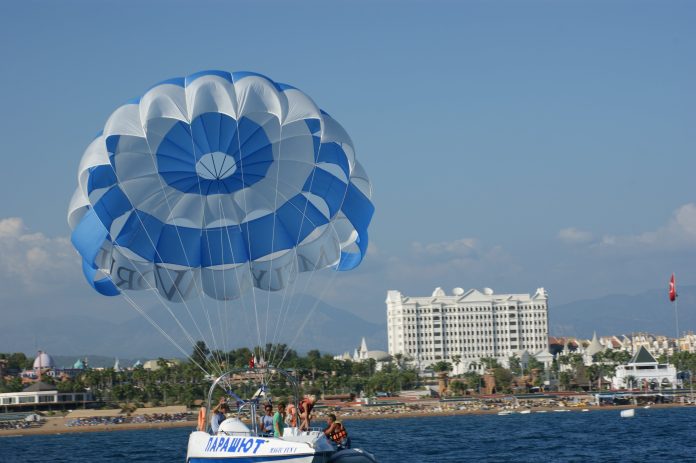
The weather in July in Turkey
Are you ready to experience the scorching July in Turkey? This month, one of the hottest of the year, invites you to unforgettable holiday experiences with bright sunshine and warm nights. Here's your ultimate guide to July weather in Turkey, including helpful tips to make the most of your visit!
Blazing summer temperatures:
- Midsummer: In July, Turkey reaches its climatic peak with temperatures often exceeding 30°C and reaching 40°C in some regions. The coastal regions enjoy a refreshing breeze, while the inland areas can be particularly hot.
- Attention sun lovers: With up to 12 hours of sunshine every day, July is perfect for those looking for beach days, water sports and sunbathing.
Coastal climate vs. inland:
- Coastal regions: Places like the Aegean and Mediterranean coasts offer pleasant warmth with cooler sea breezes. Ideal for water sports, boat trips or simply relaxing on the beach.
- Inland: July can be particularly hot in areas such as Central Anatolia and Eastern Anatolia. Plan viewings for early morning or late afternoon.
Climate table and climate zones of Turkey for July
Due to its geographical diversity, Turkey has different climate zones:
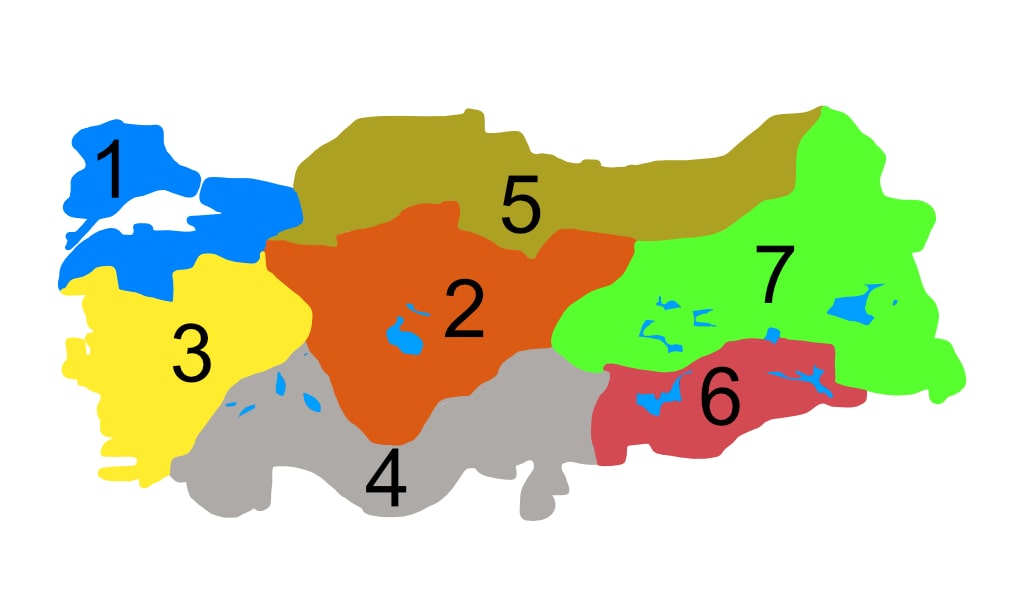
1. Climate Istanbul (Marmara Region) in July
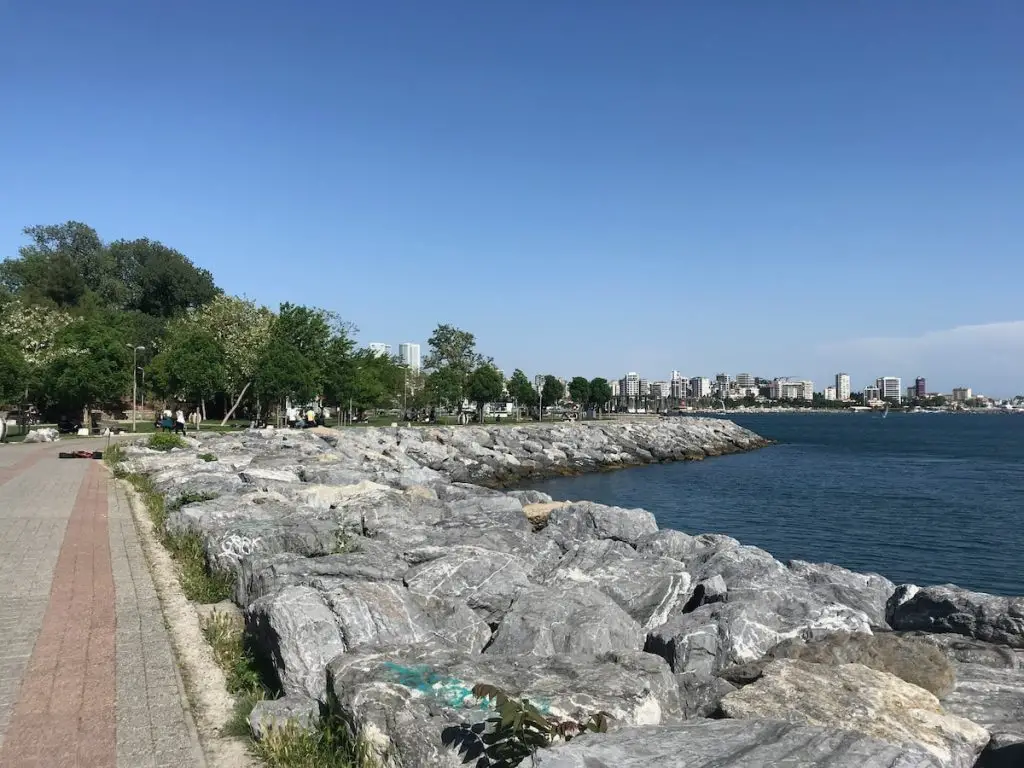
In July, Istanbul, a city that lies on both the Marmara region and the Bosphorus, reaches the height of summer with warm temperatures and plenty of sunshine. Here's what you can expect in terms of climate in Istanbul in July:
temperatures:
- Tag: Daily maximum temperatures are often between 27°C and 32°C, although it can get even warmer on particularly hot days. The days are long and sunny, making them ideal for sightseeing and other activities.
- Night: Nights are warm and pleasant, with temperatures rarely falling below 20°C. It remains comfortable for evening walks and experiencing the city night atmosphere.
Precipitation:
- In July, Istanbul is mostly dry, with occasional, short-lived rain showers. You can expect clear, sunny weather for most of the month, making it ideal for vacationers and travelers.
Sunshine hours:
- July is one of the sunniest months in Istanbul, with an average of 11 to 12 hours of sunlight per day. There is plenty of time to enjoy the city's diverse offerings.
Sea temperature:
- By July, the water in the Sea of Marmara warms up to pleasant temperatures that are perfect for a swim. It's a good time to enjoy the numerous beaches and coastal areas.
Clothing recommendations:
- Light summer clothing is appropriate during the day. Think about T-shirts, shorts, light dresses and comfortable shoes for exploring the city.
- Sunglasses, a hat and plenty of sunscreen are essential to protect yourself from the strong rays of the sun.
- Light clothing is usually enough for the warm evenings, but it's always good to have a thin jacket or scarf for the late hours.
Activities and tips:
- Explore morning and evening: Use the cooler morning and evening hours for outdoor activities. The midday heat can be strenuous for long sightseeing tours.
- Enjoy the water: Whether a boat trip on the Bosphorus or a visit to the Princes' Islands, the water offers a refreshing change.
- Events and culture: Summer is full of cultural events and festivals. Find out about local events that could enrich your visit.
And finally ...
July in Istanbul offers warm, sunny weather that makes exploring this historic and vibrant city a pleasure. It's an excellent time to enjoy the open-air cafes, bazaars, parks and waterfronts that Istanbul has to offer. With the right preparation for the heat, you can fully enjoy everything this fascinating city has to offer.
2. Climate Ankara & Cappadocia (Central Anatolia) in July
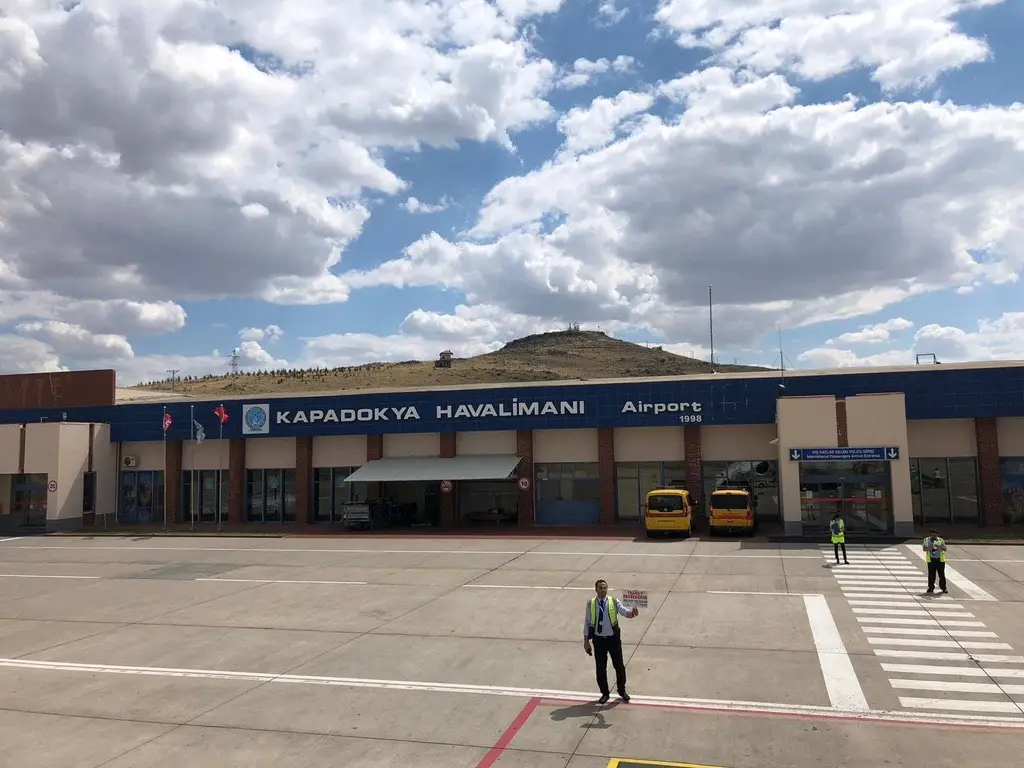
In July, central Anatolia, including the capital Ankara and the unique region of Cappadocia, is in the middle of summer with typically warm to hot conditions. Here is an overview of the climate you can expect in these areas in July:
Climate in Ankara in July:
- temperatures: In Ankara, average daily maximum temperatures are often between 25°C and 30°C. Sometimes temperatures can rise even higher on particularly hot days. The nights offer a cooler relief, but it remains pleasantly warm, ideal for evening events.
- Precipitation: July is typically one of the driest months in Ankara with rare rainfall. Sunny and clear days predominate most of the time.
- Sunshine hours: The city enjoys long days with plenty of sunshine, providing ample opportunity to enjoy the numerous parks, historic sites and cultural events.
Climate in Cappadocia in July:
- temperatures: Cappadocia experiences similar temperatures to Ankara in July, with warm to hot days. Due to the geographical features and altitude, Cappadocia can get particularly hot during the daytime. Nights can be cool due to the altitude and clear skies, providing a pleasant respite from the heat of the day.
- Precipitation: As in Ankara, July in Cappadocia is quite dry, with rare rainfall. The dry conditions are ideal for exploring the fascinating landscape and open-air museums.
- Special events: The clear, warm mornings are perfect for the popular hot air balloon rides, which offer breathtaking views of the labyrinthine valley and fairy chimneys.
- Light, breathable clothing is recommended for both Ankara and Cappadocia during the day. For the cooler mornings and evenings in Cappadocia, an extra layer or light jacket may be useful.
- A hat, sunglasses and a good sunscreen are important to protect yourself from the strong rays of the sun.
- Comfortable shoes are important for exploring the city or nature.
- Early morning or late afternoon explorations: Take advantage of the more pleasant temperatures for outdoor activities in the early or late hours to avoid the heat.
- Stay Hydrated: Drink plenty of water and seek shade regularly, especially during the hottest parts of the day.
- Cultural and natural visits: Take advantage of the long days to discover Ankara's rich cultural history and the natural beauty of Cappadocia.
July brings typical mid-summer weather in central Anatolia, including Ankara and Cappadocia. It's an excellent time to experience the region's rich history, culture and natural beauty. With pleasant temperatures and long days, July is ideal for exploration and discovery in this fascinating region of Turkey. Prepare for the heat and enjoy the warm summer days in Central Anatolia.
3. Turkish Aegean (Aegean Region) climate in July
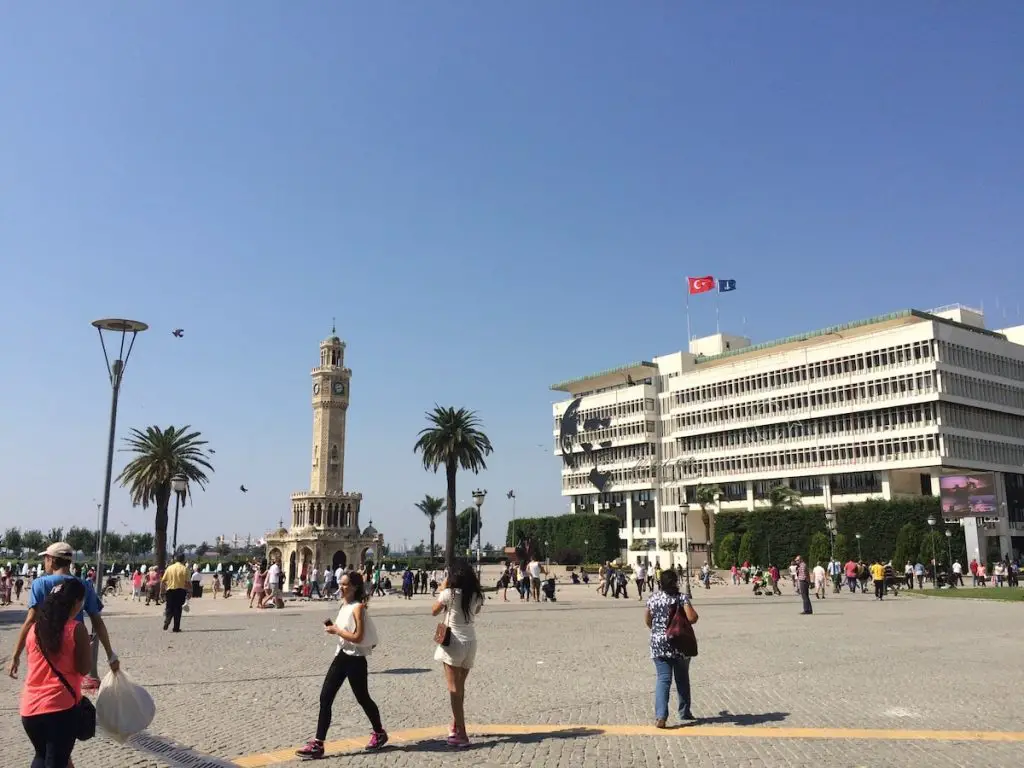
July is Turkey's Aegean region in peak summer season, and the area is known for its beautiful beaches, historic sights and lively resorts. Here are the climatic conditions you can expect in the Aegean region of Turkey in July:
- Tag: Daytime temperatures are typically hot and can easily range between 30°C and 35°C. The proximity to the coast provides a light breeze that moderates the heat somewhat, especially in the early morning and late evening hours.
- Night: The nights remain warm and pleasant, often around 20°C to 25°C. It is ideal for al fresco dinners or night events.
- July is one of the driest months in the Aegean region. Rainy days are rare, and you can expect sunny and clear days almost constantly, making it an ideal month for vacations and all kinds of outdoor activities.
- The Aegean Sea reaches pleasant temperatures in July, ideal for swimming, snorkeling and other water sports. The water temperatures are often between 23°C and 26°C.
- July brings long days with lots of sunshine. With an average of 12 to 14 hours of daylight, there is plenty of time to enjoy the coast and its surroundings.
- Light, breathable summer clothing is ideal. A hat, sunglasses and a high SPF sunscreen are essential to protect yourself from the intense sunlight.
- Swimwear is of course a must for visiting the many beaches and enjoying the warm sea water.
- Light clothing may be sufficient for the evenings, but it's always good to bring a thin jacket or scarf for late nights by the water.
- Enjoy beach days: Use the hot days for relaxing times on the beach or for various water sports.
- Visit historical sites: Plan visits to historical sites such as Ephesus, Didyma or Bodrum early in the morning to avoid the midday heat.
- Sailing and boat trips: Explore the numerous islands and bays by boat. The breeze on the water provides a welcome refreshment.
July on the Turkish Aegean Sea offers perfect summer weather with warm temperatures, clear skies and warm seas. It's peak season for holidaymakers looking to make the most of sun, sea and culture. With proper preparation for the heat and sun protection, you can enjoy an unforgettable vacation on one of the most beautiful coastlines in the world. Pack your bags and prepare for endless sunny days and warm, vibrant nights along the Turkish Aegean Sea.
4. Climate Turkish Riviera (Mediterranean region) in July
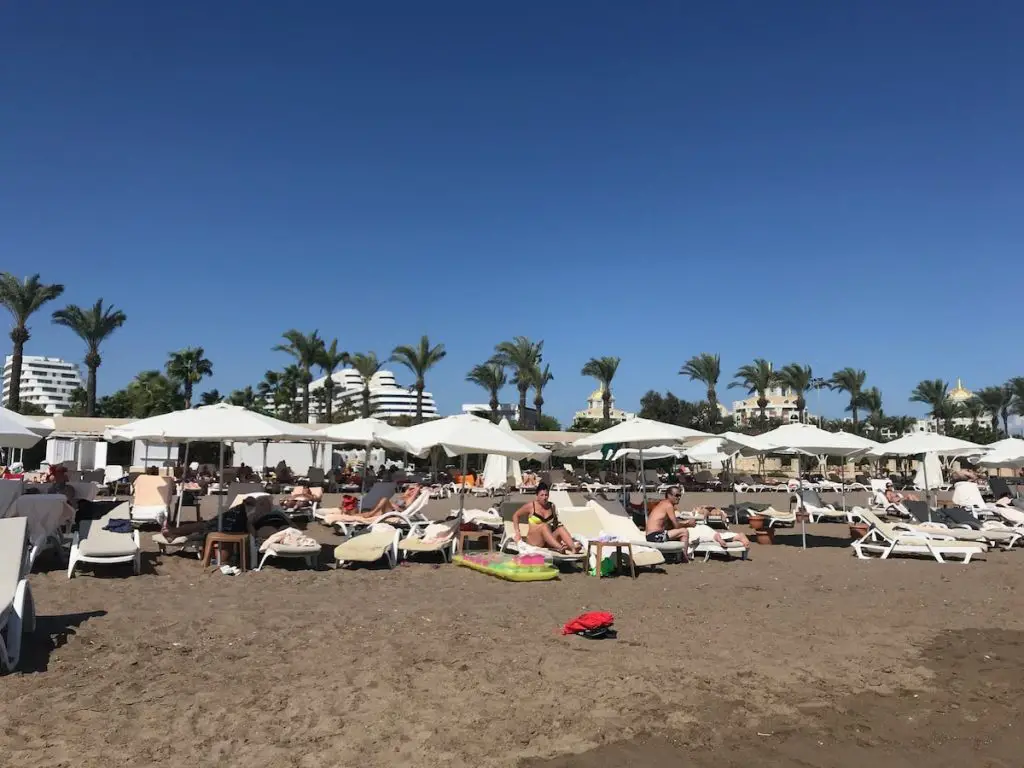
July is one of the hottest months on the Turkish Riviera, a popular holiday destination known for its picturesque beaches, crystal clear waters and lively resorts. Here are the climatic conditions you can expect on Turkey's Mediterranean coast in July:
- Tag: Daytime temperatures are usually very high, often between 30°C and 35°C, sometimes even higher. The heat is intense, especially during midday, and is accompanied by the bright Mediterranean sun.
- Night: Nights remain warm and comfortable, ideal for late dinners al fresco or walks on the beach. Temperatures rarely fall below 20°C.
- July is considered one of the driest months on the Turkish Riviera. Rainy days are rare, and you can expect sunny days almost all the time. This makes July a popular month for beach vacations and outdoor activities.
- The Mediterranean is pleasantly warm in July and invites you to long days of swimming and snorkeling. Water temperatures are often between 24°C and 27°C, which is ideal for all water sports activities.
- July brings long days with lots of sunshine, with an average of 12 to 14 hours of daylight. There is plenty of time to enjoy the region's diverse leisure options.
- Lightweight, breathable summer clothing is a must to beat the heat. This includes hats, sunglasses and a high SPF sunscreen to provide protection from the intense sun.
- Swimwear is of course essential for the beach, as well as some comfortable sandals and light evening wear for those warm nights.
- Early start or late afternoon for excursions: Plan activities in either the cooler morning hours or late afternoon to avoid the midday heat.
- Drink a lot: Keep yourself hydrated, especially if you spend a lot of time outdoors.
- Enjoy the nightlife: Take advantage of the warm nights to experience the Riviera's rich nightlife, from beach bars to open-air events.
July on the Turkish Riviera promises hot, sunny days and warm, pleasant nights - ideal for a summer beach holiday. It's the perfect time to enjoy the Mediterranean's crystal clear waters, bustling markets and historic sites. With the right preparation and adaptation to the summer heat, you can have an unforgettable and refreshing vacation in one of Turkey's most beautiful coastal strips. So pack your bag, don't forget the sunscreen and get ready for summer adventures on the Turkish Riviera!
5. Climate Black Sea coast in July
Turkey's Black Sea coast offers a pleasant and often humid climate in July, influenced by its geographical location and proximity to the Black Sea. Here are the climatic conditions you can expect on the Black Sea coast in July:
- Tag: Daytime temperatures are moderately warm, typically between 20°C and 25°C. The region avoids the extreme heat conditions that can occur in other parts of Turkey, contributing to a pleasant climate suitable for many outdoor activities.
- Night: Nights are mild and refreshing, with temperatures often between 15°C and 20°C. The cool breeze from the sea ensures pleasant evening and night conditions.
- The Black Sea coast is known for its higher humidity and rainfall, which is distributed throughout the year. In July there can be occasional rain showers, but there are also many clear and sunny days.
- The rainfall contributes to the region's lush vegetation and green landscapes.
- Despite the occasional rain, the Black Sea coast enjoys many hours of sunshine in July. The days are long, which provides ample opportunity to enjoy the region's nature and cultural attractions.
- The Black Sea reaches pleasant temperatures in July, suitable for swimming and water sports. Expect sea temperatures around 22°C to 24°C.
- Light and comfortable clothing is recommended during the day. A light jacket or sweater can be useful for cooler evenings or rainy days.
- An umbrella or waterproof jacket can come in handy for occasional showers. Don't forget your swimwear for days by the sea.
- Explore nature: The Black Sea coast is known for its lush forests, tea plantations and natural beauty. Take advantage of the mild climate to hike, explore the natural parks or spend relaxing days on the beach.
- Cultural experiences: Visit traditional villages and towns like Trabzon and Rize to experience the region's unique culture and cuisine.
- Water sports: Take advantage of the pleasant sea temperatures for swimming, boat trips or other water sports.
July on the Black Sea coast offers a temperate and pleasant climate with the opportunity to experience the rich nature and culture of the region. While temperatures are milder than other parts of Turkey, the coast offers a unique landscape and atmosphere characterized by the Black Sea. With proper preparation for the changeable weather, you can enjoy a refreshing and invigorating summer on the Black Sea coast.
6. Southeastern Anatolia climate in July
In July, Southeast Anatolia is one of the hottest regions of Turkey, characterized by its historical importance and unique landscapes. Here are the weather conditions you can expect in Southeast Anatolia in July:
- Tag: Daytime temperatures are extremely high and can often reach between 35°C and 45°C, sometimes even higher, especially in low-lying areas such as Urfa. The heat is intense and can be oppressive, particularly during the midday and early afternoon hours.
- Night: Nights offer some relief from the heat but remain relatively warm, with temperatures rarely falling below 25°C. Some areas can still be exceptionally hot at night.
- July is a very dry month in Southeastern Anatolia. Rain is extremely rare, and you can expect clear, sunny skies for most of the month. The dry air can lead to very low humidity, making the heat seem even more intense.
- The region enjoys a high number of hours of sunshine in July, which, together with the low cloud cover, contributes to the high heat. Adequate sun protection is therefore particularly important.
- Light, airy, and light-colored clothing is best for dealing with the heat. A hat, sunglasses and sunscreen are essential to provide protection from the strong rays of the sun.
- Light clothing can also be comfortable at night as it stays warm.
- Plan activities in the cooler hours: Use the early morning or late afternoon for outdoor activities to avoid the extreme temperatures.
- Stay Hydrated: It's important to drink plenty of water and take regular breaks in the shade, especially during the hottest parts of the day.
- Visiting historical sites: Take the opportunity to explore the numerous historical sites such as Göbekli Tepe, the ancient cities of Harran and Mardin, but be aware of the heat and plan accordingly.
July in Southeastern Anatolia is characterized by extreme heat, which requires special precautions and planning. However, the region offers rich cultural and historical experiences that make it a worthwhile travel destination. With proper preparation and adaptation to the climate, visitors can enjoy the unique treasures of Southeast Anatolia while overcoming the challenges of the climate.
7. East Anatolia climate in July
In July, Eastern Anatolia, one of Turkey's highest and climatically extreme regions, typically experiences warm to hot summer conditions. The combination of the region's altitude and geographical diversity results in a unique climate. Here's what you can expect in Eastern Anatolia in July:
- Tag: Daytime temperatures are usually warm, often between 25°C and 30°C, but in some low-lying areas it can be hotter. The heat can be intense, but generally it is less oppressive than in other parts of Turkey due to the altitude.
- Night: Nights can be significantly cooler, especially in higher elevations, with temperatures often falling to 10°C to 15°C. It is advisable to have warmer clothing ready for the evening hours.
- July is relatively dry in eastern Anatolia, but not as dry as the more southern parts of Turkey. Occasional short showers are possible, but most days are sunny and clear.
- The region enjoys long days with lots of sunshine in July. The clear days provide excellent conditions for photography, hiking and exploring the region's natural and historical beauties.
- During the day, light and comfortable clothing as well as sun protection such as hats, sunglasses and sunscreen are recommended. Due to the cooler nights, you should also pack warmer clothing, such as sweaters or jackets, for the evening hours.
- For hikes or trips to higher altitudes, sturdy shoes and, if necessary, an additional layer of clothing are advisable.
- Use early or late times of day: Plan activities early in the morning or late afternoon to enjoy the most comfortable temperatures.
- Exploring Nature: July is a good time to explore the region's national parks, lakes and mountains. The landscape is full of life and offers breathtaking panoramas.
- Visiting historical sites: Take advantage of the warm days to visit ancient churches, monasteries and historic towns such as Kars and Ani.
July in Eastern Anatolia offers warm, mostly dry weather, ideal for experiencing the region's rich culture and stunning nature. With pleasant temperatures and scenic beauty, it is an excellent time for visitors looking to explore the diverse and often breathtaking aspects of Eastern Anatolia. Be prepared for variable conditions, especially when traveling to higher altitudes, and enjoy the warm summer days in this unique corner of Turkey.
*Note: The information provided in this article is for general information purposes only and should not be considered professional meteorological advice. It is recommended that you contact experts or official weather services if you have specific weather-related concerns. The content is based on our best knowledge and information available at the time of creation and we do not guarantee the accuracy or completeness of the weather-related information provided. Use of the weather information contained in this article is at the user’s own risk. We will not be liable for any damages or losses, including but not limited to direct, indirect, special or consequential damages or losses, arising from the use of or reliance on the weather information provided in this article.
Travel tips for July:
- Water and shade: Stay hydrated and seek shade during the hottest part of the day.
- Sunscreen and hat: Protect yourself from the sun with a high SPF sunscreen, a hat and sunglasses.
- Light clothing: Wear light, breathable clothing to better tolerate the heat.
- Air-conditioned Accomodation : Make sure your accommodation is air-conditioned to ensure a comfortable night's sleep.
- Nature and culture in the early hours: Take advantage of the cooler morning hours for activities and explore natural wonders or ancient ruins.
July in Turkey is a month full of life, color and heat. It's the perfect time to experience the Mediterranean's lively beaches, crystal clear waters and fascinating historical sites. While you enjoy the breathtaking nature and culture, remember to protect yourself adequately from the intense sun and enjoy the warm summer evenings. With the right planning and preparation, your July adventure in Turkey will be an unforgettable mix of fun, relaxation and discovery. Pack your bags, prepare for the heat and experience the Turkish summer in all its glory!
- Climate & Environment
RELATED ARTICLES
Weather in december in turkey: climate and travel tips, weather in turkey: climate and travel tips, weather in january in turkey: climate and travel tips, shopping in kusadasi: recommendations for markets and shopping centers, best day trips from kusadasi: ephesus, priene, miletus, didyma, pamukkale and pergamum, dental treatment in turkey: quality care at affordable prices, dental veneers in turkey: all about methods, costs and best results, choose language: your website in the desired language, editor's picks: our top picks, beard hair transplant in turkey: with these 10 tips for the perfect result, public transport in kusadasi: tips and recommendations for a stress-free visit, discover oludeniz: 11 must-visit sights, popular posts: discover our most read articles, top 10 eyelid lift clinics in turkey, discover cappadocia: a fairytale land of rocks and history, top 10 breast augmentation clinics in turkey: experienced specialists and modern facilities, popular categories: browse our most searched topics.
- Travel Blog 245
- Medical treatments 98
- Turkish Aegean 95
- Istanbul 92
- Turkish riviera 74
- Lycian coast 63
- Istanbul districts 24
ABOUT Türkiye LIFE
Our recommendations for your holiday in Turkey. Turkey is known for its culture and beaches, but this diverse country has much more to offer. Discover the best travel destinations and the most popular attractions for your stay in Turkey here.
Our partner network
- children spot
- travel ball
- Airport details
- Secret contact
- style thoughts
- Glovel Fitness
- Grow Universe
© 2021 - 2024 Turkey Life | All rights reserved | * = Affiliate links/advertising links
- Other Partners
- Privacy policy
- +1 510-379-4907
- Live Chat (Online) Live Chat (Offline)
- My Wishlist
- Find a Trip
Your browser 'Internet Explorer' is out of date. Update your browser for more security, comfort and the best experience on this site.

- Top Turkey Tours Departing in July 2024
- Destinations
A trip to Turkey's turquoise coast this summer is just what the doctor ordered.
Can you feel that? The temperatures are soaring, the streets are bustling, and the vibes are high--it's summertime in Turkey. When you explore Turkey in August, not only will you see the classics like Istanbul, Gallipoli , and Ephesus, but you'll be able to enjoy eating fresh seafood in Fethiye, wandering vibrant marinas in Antalya, and feeling the wind in your hair while coastal cruising in Kas. Really want to blow your summer out of the water? Combine your Turkey trip with a sailing adventure in Greece to see the best the Mediterranean has to offer.
Top Turkey tours in July 2024
Turkey tour reviews, turkey departures by month.

Popular regions in Turkey

Read more about travel in Turkey
Best Time To Visit Turkey
SD › Best Time to Visit Turkey Updated: May 15, 2022 By Santorini Dave
- Where to Stay in Istanbul
- Where to Stay on the Aegean Coast
- Where to Stay on Mediterranean Coast
When is the best time to go to Turkey?
Because Turkey experiences hot summers and cold winters, the spring and fall seasons (April, May, and mid-September through mid-November) are the best time to visit. During these months, the skies are likely to be sunny and temperatures pleasant, crowds will be present but not overwhelming, and visitors will have a better chance at discounted airfare and accommodation.
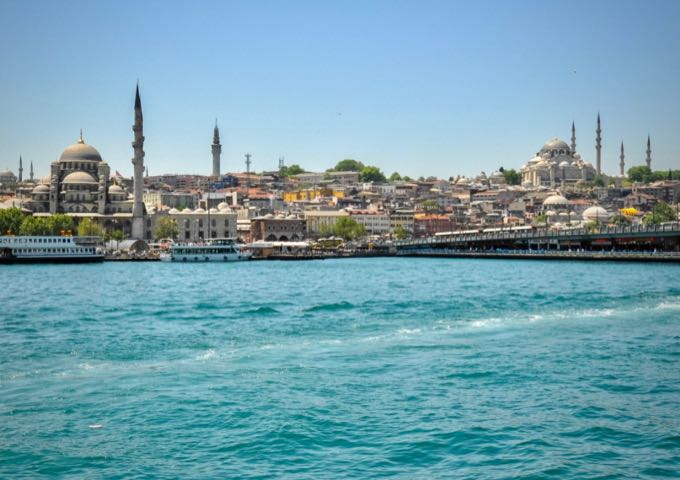
The fantastic city of Istanbul , viewed from Golden Horn Bay. The best time to visit Turkey is in the spring or fall.
- Best Time for Sightseeing : The best time for sightseeing in Turkey is when temperatures are warm but not too hot, outside of the peak tourist season when lines are often long, and crowds tend to get in the way. Spring may be the very best, especially April before the mercury climbs too high and the flowers have burst into bloom. No matter what the season, with the exception of winter, plan to visit sights early in the morning, right at opening, or late in the day, for the best experience.
- Best Time for a Bosphorus Cruise : One of the highlights for a visit to Turkey is the opportunity to take a Bosphorus Cruise. May is a good time to come for warm temperatures out on the water and to watch for the dolphins in the river. Early to mid-September is also a good time with crowds beginning to dwindle and the chilly winter gusts are still weeks away. If you visit during the winter months, prepare for possible cancellations and plan to go early in the morning for the best chance for decent weather.
- Best Time for Shopping : Istanbul , in particular, is a popular shopping destination with its open-air markets, chic boutiques, and bazaars, including the incredible maze of stalls in the Spice Bazaar. The Grand Bazaar covers 60 streets with some 5,000 shops known for its carpets, hand-painted ceramics, antiques, jewelry and spices. Autumn is the best time for bargains when vendors don’t have as many customers as they did in the summer. Shopping early in the morning or just before closing is usually the best way to get a good bargain. Stores, in general, tend to have both winter and summer sales, with winter sales starting in the period just before Christmas through early January, continuing until inventory is depleted. Summer sales usually start around the first week of July.
- Best Time for Beaches : The best time to go to Turkey for beach weather is summer, especially in July, August and September when the weather is usually hot and dry (temperatures typically reach the mid-30s along the south coast), while sea temperatures are warm but ideal for cooling off. September is also a great time to visit Turkey for honeymooners.
- Best Time for Snow : While Turkey doesn’t always experience much snow in the winter, in more northern places like Kartalkaya in the Koroglu Mountains, skiing is usually possible between December and March when snow depth can reach nearly 10 feet.
Turkey Travel Seasons
- High Season (May through September) : The hot and dry months are high season, falling mostly in summer, though part of late spring as well. July and August are the peak of the hot season. This is when the weather temperatures are often in the 30s°C and can even reach 40°C or higher. While it’s a wonderful time for enjoying alfresco meals and taking advantage of the beaches, the crowds will be thick and lines the longest of the year. Accommodation rates and airfare are at their highest too. Within high season, September is my favorite time to visit.
- Shoulder Season (April, October through mid-November) : The shoulder season in Turkey is a great time to be here, with April perhaps the best month during this period with the tulips in bloom. While tourists visit throughout the year, crowds won’t be overwhelming and temperatures, especially in April and the first half of October, are likely to be comfortable. It can also be a good time to find discounts on airfare.
- Low Season (Mid-November through March) : Winter is low season in Turkey, which unofficially begins in November when the weather takes a significant turn, bringing chilly temperatures and a good possibility of rain or snow. It’s a great time to avoid big crowds and long lines while enjoying a more budget-friendly trip with cheaper airfare and discounted accommodation rates. Just be sure to pack appropriately for cold, wet weather by bringing a warm, waterproof coat, waterproof boots, hat, and the like.
Turkey Weather by Month
- Turkey Weather in January : January in Turkey is typically cold and dark, although it won’t be as brutally cold as what you might expect to find in the dead of winter in many other places. While the temperature depends on your destination, the afternoon high averages 8°C and nighttime temperatures dip to 4°C or below. Snow isn’t uncommon, but rainfall is. The average amount of precipitation is 100mm over 14 days, which means visitors should plan for chilly, damp weather by packing winter gear like a heavy coat, sweaters, gloves, a hat and ideally, waterproof boots. It’s a good time to visit the indoor sights, with relatively few visitors in the city. (Average Max Temperature: 8°C. Average Precipitation: 100mm.)
- Turkey Weather in February : February is similar to January, but the low temperature decreases a degree to 3°C, and in many areas of Turkey snow is more common now, especially in the interior areas like Cappadocia, although precipitation is reduced on average to 70mm on 12 days this month. Lake-effect snow from the Black Sea may occur in Istanbul and coastal areas, and it can be rather heavy. You’ll want to come prepared for winter by packing that cold weather attire and concentrate your visitors on more of the indoor sights. (Average Max Temperature: 8°C. Average Precipitation: 70mm.)
- Turkey Weather in March : While March can bring a mixed bag and is usually quite cold and wet early in the month, as it progresses a noticeable change usually occurs with temperatures warming, including afternoon highs around 11°C. The wet weather subsides too, with the average precipitation now 50mm over 13 days in March. Now is a good time to bring a warm, waterproof coat but you probably won’t need to bundle up with scarves, wool socks and the like. The days are not only getting longer, there’s usually quite a bit more sun too, making it feel warmer than the temperature belies. (Average Max Temperature: 11°C. Average Precipitation: 50mm.)
- Turkey Weather in April : Now that spring is here, you can expect more pleasant temperatures with afternoons in the mid or even upper teens. There may be some light rain – precipitation averages 60mm over 11 days, but it usually comes in the form of light showers when it falls. There are likely to be quite a few lovely sunny days now, along with blooming flowers. When it comes to packing, bring a mix of clothing for both warmer and cooler days, and perhaps a light rain jacket. (Average Max Temperature: 16°C. Average Precipitation: 60mm.)
- Turkey Weather in May : When May arrives it’s likely to feel like summer, or at least the best part of it with afternoon highs around 20°C. The odds of rainfall decrease significantly too with only 40mm over 9 days in May, making this one of the best times to visit Turkey, with the peak tourist crowds not arriving for another month or so. This is the time of year you’ll need to pack mostly clothing for warm summer weather, including sunglasses, a hat, and sunscreen, but you may want to bring a mix of items as it can be cool one day and hot the next. (Average Max Temperature: 20°C. Average Precipitation: 40mm.)
- Turkey Weather in June : June brings the crowds and the heat, with the days long and often hot and dry. While the afternoon high is 26°C, temperatures frequently reach 30°C or higher. Visiting Turkey now means bringing lightweight summer clothing, including a wide-brimmed hat, short-sleeved tops, skirts, dresses, shorts and the like. If you plan to be out late at night, a sweater might be a good idea with the low temperature around 17°C. Chances of rain diminish significantly with an average of 30mm of precipitation. Expect the Mediterranean coast to be wetter than inland areas, but a rain jacket isn’t really a necessity now. (Average Max Temperature: 26°C. Average Precipitation: 30mm.)
- Turkey Weather in July : The skies are almost always blue, the weather is hot, and the sea has warmed enough for swimming now at 21°C. In the afternoon, the mercury climbs to 28°C and it’s not unheard of for it to reach as high as 40°C. If swimming during the day, alfresco dinners and hot summer nights at the beach are what you’re after, this is a great time to be in Turkey. Inland areas may get a bit cool in the evening, requiring a sweater or sweatshirt, in general, visiting during this peak summer month means bringing attire for warm weather, including a couple of bathing suits and plenty of sunscreen. Do keep in mind that unless you’re at the beach or the pool, more conservative clothing is advised. Think loose, light and comfortable rather than skimpy. (Average Max Temperature: 28°C. Average Precipitation: 30mm.)
- Turkey Weather in August : Like July, August brings lots of sunshine and hot, dry weather with the average high remaining at 28°C, although there will probably be quite a few days where it stretches well into the 30s. Chances for rain have diminished even further now to just 20mm over four days, so don’t expect much in the way of precipitation to cool things off. It’s all about spending time at the beach now with the sea temperature at 22°C, along with afternoon naps indoors out of the searing heat. Pack as you would for July with your summer attire, focusing on lightweight, loose clothing, and don’t forget a wide-brimmed hat. (Average Max Temperature: 28°C. Average Precipitation: 20mm.)
- Turkey Weather in September : While September brings the end of summer, the first half of the month is usually still quite hot and dry, but as it progresses it will start to cool a bit, with the average high dipping back down a degree to 27°C. Expect pleasantly warm temperatures if you come during the latter half of September, and slightly higher odds for some precipitation now with the average increasing to 50mm over 8 days, usually not enough to get in the way of outdoor sightseeing. With the low temperature averaging 16°C it might be a good idea to bring a jacket or sweater for cooler evenings. (Average Max Temperature: 27°C. Average Precipitation: 50mm.)
- Turkey Weather in October : Autumn has arrived and it is beginning to noticeably cool across Turkey. Precipitation increases quite a bit, especially in areas along the Black Sea, with 60mm on average falling over 10 days – the odds of rain are higher as the month progresses. The average high temperature is just 19°C now so you can expect crisp, cool days along with warmer, sunnier ones. Bring a mix of clothing, such as both short- and long-sleeved shirts, as well as some sweaters and perhaps a rain jacket. (Average Max Temperature: 19°C. Average Precipitation: 60mm.)
- Turkey Weather in November : With winter approaching the weather takes a more dramatic turn now, with the average high temperature just 14°C. If you’re hoping to experience warmer, sunnier days, come as early in the month as you can. As it moves forward, it’s likely to feel more like winter: wet and chilly. The average amount of precipitation increases to 100mm over 13 days now. Bring a warm, waterproof coat, boots, and clothing that can be layered so that it can be removed easily should the sun come out, or for heated indoor areas. (Average Max Temperature: 14°C. Average Precipitation: 100mm.)
- Turkey Weather in December : One of the coldest months of the year in Turkey, icy, blustery winds are common now. From Anatolia to eastern Turkey, landscapes are often dusted in a blanket of white. While snow is less likely in Istanbul, it will feel rather chilly with the average high at around 10°C. There’s an average of 100mm of precipitation over 17 days now so be sure to bring clothing to help ward off the damp and the cold, including a warm waterproof coat, waterproof boots, a hat, scarves and gloves. (Average Max Temperature: 10°C. Average Precipitation: 100mm.)
Turkey Events and Festivals
Turkey in january.
- New Year’s Day – January 1st, New Year’s Day, is a public holiday in Turkey with most businesses, banks, schools and post offices closed and public transport running on limited hours. Most people use the day to rest and recover from the previous night’s festivities.
- Orthodox Christmas – Most Orthodox churches in Turkey use the Julian calendar, with January 6th marking Christmas Eve and Christmas celebrated the following day. Locals head to church while Armenian and Greek Orthodox Patriarchs make their rounds, blessing their flocks.
- Camel Wrestling Festival – This three-month-long event in Selcuk starts in early January running through the end of March when one camel will be chosen as the winner, a great honor for its owner who spends the entire year ensuring his camel will be ready for wrestling. As the animals are more aggressive during the winter when temperatures are chilly, it provides them with a bit of tension release too.
Turkey in February
- International Istanbul Gastronomy Festival – The International Istanbul Gastronomy Festival hosts chefs from around the world for competitions, workshops, and events. Is it also a wonderful time to come and enjoy the snow-covered landscapes and indoor attractions.
- Valentine’s Day – Valentine’s Day isn’t a Turkish tradition, in fact, it’s referred to as Sevgililer Günü which translates to Lover’s Day here, popularized by a men’s magazine just a few decades ago. It will be visible in restaurants, malls, and shop windows where gifts and special dinners are on offer. Street vendors will be selling flowers, balloons and a variety of heart-shaped items.
- !f Istanbul Independent Film Festival – This event that takes place for 10 days during the second half of February and was founded in 2002. It brings celebrated filmmakers and some 80,000 film enthusiasts from across the globe to enjoy the best in contemporary film curated and based on thematic selections.
Turkey in March
- Canakkale Victory and Martyrs’ Day – March 18 is an important day in Turkey, commemorating the heroes of Canakkale who fought against numerous challenges to protect their country. Memorials in the southern peninsula of Gallipoli can be filled with visitors.
- Nevruz Spring Festival – This event typically celebrated on the first day of spring to welcome in the season, is associated with various local traditions, most notably singing, folk dancing, and bonfires. Children decorate hard-boiled eggs and there are often family and/or public feasts.
- Mesir Macunu Festival – This huge festival has been a long tradition, dating back to the Ottoman era. It’s held in the Aegean Manisa province, known for its mesir macunu paste, a traditional sweet containing many different herbs. The paste was used to treat the ill, and due to increased public demand, the sultan ordered that it be distributed to the public by scattering them from the minarets and domes of the Sultan Mosque. Typically held during the week of March 21st, tens of thousands of people gather in front of the mosque to celebrate the arrival of spring and the beginning of the period of abundance with various sports and cultural activities which include the mesir paste distribution ceremony.
Turkey in April
- International Istanbul Tulip Festival – One of the biggest tulip festivals in the world is hosted in Istanbul, running for most of April and into early May for three weeks with the exact dates determined by the flowers bloom. Many do not know that tulips originally grew wild on the Asian steppes and were later cultivated by the Ottoman Empire. Today, millions of tulips are planted around the city, and during the festival, they’re all busting with color. The Emirgan Park authorities put on concerts, performances, and exhibitions for you to enjoy as you wander the gardens in full bloom.
- International Film Festival – The leading international film festival in Turkey is hosted in Istanbul during the first half of April. Visitors and locals alike can enjoy the top new art-house films in the capital city that has a booming film industry. Screenings primarily take place in and around the entertainment quarter of Beyoğlu. The event brings screen actors and filmmakers from around the world.
- Alacati Herb Festival – The Cesme Municipality hosts its most popular festival over 4 days in early April. It brings thousands to enjoy this horticulturist tradition that includes competitions in herb collection and herb inoculation. Visitors can collect herbs, learn about local flavors, attend workshops, enjoy foods prepared with the herbs, and more.
- TEB BNP Paribas Istanbul Open – The biggest international tennis tournament in Turkey takes place over a week in April.
- National Sovereignty and Children’s Day – April 23 is a public holiday in Turkey, bringing business closures as well as parades. Many people lay wreaths on the monuments of the Turkish Republic founder, Mustafa Kemal Ataturk. The largest ceremony is held in Ankara at the Ataturk Mausoleum. As Ataturk dedicated the Turkish Republic to children, schoolchildren sit in Parliament for the day, symbolically governing in the country. Children’s festivals are held throughout Turkey. In Istanbul, there will also be short performances by groups in national costume accompanied by traditional music, culminating with a more elaborate performance at the national soccer stadium.
Turkey in May
- Labor Day – May 1 is Labor Day as it is in many countries. In Istanbul, Taksim Square has long-been been the scene of major demonstrations. It also has important symbolic meeting as on May 1, 1977, 37 people were killed following unidentified fire on demonstrators. While rallies and protests here have been banned ever since, thousands of protestors attempt to take it over every year resulting in clashes with police which is why it’s a good idea for visitors to avoid the area throughout the day.
- Ephesus Festival of Culture and Art – This annual festival is typically held during the first week of May to celebrate Turkish heritage and culture. There will be theater performances, concerts and folk shows with traditional dancing throughout the week, some performed at Ephesus’ Great Theatre.
- Hidrellez Festival – This festival celebrates the first day of the “early summer,” with May typically ushering in warm, dry weather. In Istanbul, there will be street parties throughout the night of May 5th and into the morning of the 6th, including gypsy music bands. Wishes are believed to be granted this day and locals may jump over a fire while making a wish or they may write or draw the wish, tying it to a tree branch or burying it underneath a plant. The most famous celebration is in Sarayici which ends with the tradition of visiting the neighboring Tunca River for rituals like washing one’s face in the water and sending handwritten notes of wishes out on the water in hopes of them being granted.
Turkey in June
- Istanbul Music Festival – This festival takes place across Istanbul with events at cultural venues, historical sites, concert halls, parks and gardens throughout much of June. There are over 600 local and international artists, including well-known names in classical music, opera, and ballet.
- Cappadox Festival – Thousands flock to the other-worldly landscapes of Cappadocia for this not-to-be-missed event that focuses on culture, music, and food, hosting over 140 events that take place over about a week in mid-June.
- Bozcaada Wine Festival – Held annually on Bozcaada Island over the last four days of June, this festival offers tastings, wine tours, vineyard trips, winery visits and live music.
- Istanbul Jazz Festival – Running from late June through mid-July, this festival brings jazz and a whole lot more, including rock, pop, new age, and Reggae to Istanbul.
Turkey in July
- Turkish Maritime and Cabotage Day – Cabotage Day is an annual maritime festival held on July 1 to celebrate the establishment of Turkey’s sea borders. The day begins with an official ceremony at Ataturk’s statue followed by events and competitions at marinas with major ports.
- Democracy and National Unity Day – July 15 is a relatively new public holiday that commemorates the murderous coup attempt on July 15, 2016, bringing closures as well as a series of events throughout the country.
- Chill-Out Festival – Chill-Out Festival is held every summer at locations in Istanbul, Bodrum, and Cesme, showcasing house, lounge, and minimal music. A variety of food, beverages, workshops, and other activities are available as you take in the sounds.
- Bosphorus Cross-Continental Swim – Late July brings the unique thrill of watching over 2,000 global competitors take to the open waters in this cross-continental swim of the Bosphorus Straight (closed to shipping traffic for the event). Past participants include nine-time Olympic champion Mark Spitz and gold-medalist Ian Thorpe. A large festival with food, music, and entertainment takes place in Kurucesme to end the event.
Turkey in August
- International Troy Folk Dance Festival – At the end of August Canakkale hosts the International Troy Folk Dance Festival. Folk Dancers from around the world are invited to participate. Although traditional folk dances are the focus, it also features plays, musicals, cultural events, exhibitions, and panels.
- International Ballet Festival – Held in the historic setting of Bodrum Castle over the second half of August, this event brings top international ballet companies and ballet stars from around the world.
- Victory Day (Zafer Bayrami) – August 30 is a public holiday that commemorates the 1922 victory over the invading Greek armies during the War of Independence. There will be military parades in major cities around the country along with business closures although most supermarkets and major shops will be open. Some businesses will be closed on this day, though tourist attractions and most major shops are open.
Turkey in September
- Bozcaada Vintage Festival – This traditional grape festival on the island of Bozcaada takes place in early September to celebrate the harvesting of the four varieties. Grapes are picked in the vineyards that cover one-third of the island’s surface and brought to the center of the city, welcomed with drums and horns to kick off the event. Wines made from these varieties are available for sale at the event as well as varieties from other regions as well.
- Phaselis Art and Cultural Festival – This week-long event features famous international and Turkish artists in the 2,400-year-old trading center of Phaselis in early September. Turkish jazz, folk, and other genres can be heard in concerts held at the ancient theater.
- International Istanbul Biennial – Hosted every other year starting in mid-September. This contemporary art exhibition is considered one of the most prestigious biennials alongside Sydney, Sao Paolo, and Venice. It is focused around a current philosophical or political theme from which artists are selected from around the world to produce exhibitions which are displayed throughout Istanbul.
- Goreme Local Food Contest – Goreme hosts this food festival over the last week of September. The festival seeks to educate younger generations to the traditional flavors of Cappadocian cooking and organic farming. A great way to get insight into the local culture.
- Contemporary Istanbul – Turkey’s largest international art fair takes place for four days each September. There will be over 100 international exhibitors at the Istanbul Congress Center and Convention and Exhibition Centre in Istanbul.
Turkey in October
- Akbank International Jazz Festival – This 2-week-long festival brings the blues and jazz to Ankara, Izmir, and Istanbul, including world-renowned performers who take the stage in some of the most atmospheric venues.
- International Bodrum Sailing Cup – Held over a week in late October, this event seeks to educate sea-loving enthusiasts in the art of sailing as well as showcasing the yachts production of the region. This unique regatta allows guests onboard yachts during the race. Surrounding activities include concerts as well as cooking and photography contests.
- Republic Day – October 29 is Republic Day, officially known as Cumhurivet Bayrami. It celebrates the 1923 proclamation of the Republic of Turkey with public speeches, parades, fireworks, and more. Schools and most businesses are closed.
- Antalya Golden Orange International Film Festival – This prestigious week-long event, held in autumn months (October-November), is focused on documentaries and narrative fiction of both short and feature-length and is one of the longest-running film festivals in Turkey.
Turkey in November
- Istanbul Intercontinental Marathon – The only marathon in the world run across two continents, this event travels from the Asian shoreline to the European side of the Bosphorus on November 3. It began when a group of German tourists indicated they run marathons in all of the places they visit. As Istanbul had no marathon, a unique opportunity was born to link the continents.
- Ataturk Remembrance Day – November 10 is not a public holiday, but it commemorates the death of Mustafa Kemal Ataturk, the father and founder of the Republic. There is a moment of silence to honor his memory and at exactly 9:05 a.m. sirens, car horns, and foghorns are sounded. In Istanbul and in cities throughout the country there are usually various activities like concerts, speeches, and exhibitions.
Turkey in December
- Rumi Festival – In Konya, the Rumi Festival brings the opportunity to watch the dance of whirling dervishes, a form of active meditation that’s widely practiced in many countries, especially Turkey, with roots in the Mevlevi order. It is said the whirling represents the universe, the right hand pointing up to heaven to take in goodness and the left hand pointing down to earth to disperse it. There will be sporadic performances throughout the streets of Istanbul, with the most elaborate inside the mosques.
- Istanbul International Short Film Festival – This festival in Istanbul takes place over a week in mid-December, December 13 to 20. The oldest international short film festival in the country, some 200 are presented from Turkey and around the world. Screenings are presented with Turkish subtitles often followed by a Q&A with the director.
- Christmas Markets – Christmas isn’t celebrated in Turkey as a Muslim country, but Christmas Markets are hosted in many places for foreign visitors, often including traditional holiday items rarely seen in this country.
- New Year’s Eve – There will be lots of parties on December 31 to celebrate the New Year. Restaurants and major hotels offer special menus and events, and there will be fireworks in many cities across the country. One of the most popular ways to spend it is out on a cruise in the Bosphorus, the perfect spot to take in the fireworks show.
Best Places to Stay along Turkey’s Aegean Coast Best Time to Visit Turkey’s Aegean Coast Best Places to Stay along Turkey’s Mediterranean Coast Best Time to Visit Turkey’s Mediterranean Coast Best Hotels in Istanbul Best Family Hotels in Istanbul Best Boutique Hotels in Istanbul Best Budget Hotels in Istanbul Best Places to Stay in Istanbul Best Time to Visit Istanbul Best Hotels in Alanya Best Hotels in Ankara Best Hotels in Antalya Best Hotels in Bodrum Best Hotels in Izmir Best Hotels in Kusadasi Best Hotels in Marmaris
About Santorini Dave


Cookies on GOV.UK
We use some essential cookies to make this website work.
We’d like to set additional cookies to understand how you use GOV.UK, remember your settings and improve government services.
We also use cookies set by other sites to help us deliver content from their services.
You have accepted additional cookies. You can change your cookie settings at any time.
You have rejected additional cookies. You can change your cookie settings at any time.
- Passports, travel and living abroad
- Travel abroad
- Foreign travel advice
Warnings and insurance
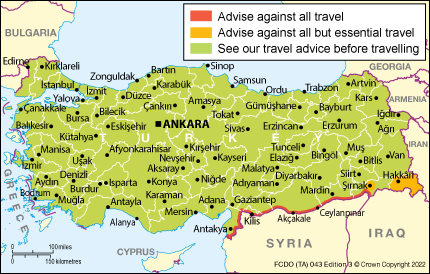
The Foreign, Commonwealth & Development Office ( FCDO ) provides advice about risks of travel to help British nationals make informed decisions. Find out more about FCDO travel advice .
Areas where FCDO advises against travel
Your travel insurance could be invalidated if you travel against FCDO advice. The embassy staff cannot travel to areas where FCDO advises against travel to help you in person. Staff can offer support by phone and email.
Turkey-Syria border
FCDO advises against all travel to within 10km of the border with Syria due to fighting and a heightened risk of terrorism.
Sirnak city
FCDO advises against all but essential travel to Sirnak city.
Hakkari Province
FCDO advises against all but essential travel to Hakkari Province.
Find out more about why FCDO advises against travel .
Before you travel
No travel can be guaranteed safe. Read all the advice in this guide as well as support for British nationals abroad which includes:
- advice on preparing for travel abroad and reducing risks
- information for women, LGBT+ and disabled travellers
Follow and contact FCDO travel on Twitter , Facebook and Instagram . You can also sign up to get email notifications when this advice is updated.
Travel insurance
If you choose to travel, research your destinations and get appropriate travel insurance . Insurance should cover your itinerary, planned activities and expenses in an emergency.
Related content
Is this page useful.
- Yes this page is useful
- No this page is not useful
Help us improve GOV.UK
Don’t include personal or financial information like your National Insurance number or credit card details.
To help us improve GOV.UK, we’d like to know more about your visit today. Please fill in this survey (opens in a new tab) .
Take the Quiz: Find the Best State for You »
What's the best state for you ».
Another Russian Exodus: Many Who Fled to Turkey Move on Again

FILE PHOTO: People hold anti-war placards before a rap concert for Ukraine by Russian rapper Oxxxymiron, amid the Russian invasion of Ukraine, in Istanbul, Turkey March 15, 2022. REUTERS/Dilara Senkaya/File Photo
By Burcu Karakas
ISTANBUL (Reuters) - Tens of thousands of Russians who fled to Turkey after Moscow's invasion of Ukraine have moved on to other countries in the last year, squeezed by residency issues and soaring costs, according to data and interviews, including with nine Russian citizens.
When the war began in February 2022, Turkey, Russia's Black Sea neighbour and a NATO member, emerged as a magnet for Russians, especially its largest city Istanbul and the Mediterranean resort of Antalya.
Some of them had opposed the invasion, others were trying to shield themselves and their businesses from a wave of Western sanctions imposed on Moscow, including travel bans on Russians to much of Europe. Some men feared being drafted into the army.
But this month, the number of Russians with Turkish resident permits fell to 96,000, down by more than a third from 154,000 at the end of 2022, official data shows.
Nine Russian citizens who spoke to Reuters said they and others had left partly due to struggles to get residence permits since early 2023. Many have headed to Serbia and Montenegro, among the few European countries where they are welcome.
Russians are also moving on because of soaring costs - Turkish inflation hit 70% last month - as well as difficulty doing basic banking in Turkey as a result of the sanctions.
"You can't predict your future in Turkey," said Dmitri, 46, an IT sector employee who declined to give his surname.
The Latest Photos From Ukraine

After President Vladimir Putin announced a mobilisation in September of 2022 to recruit Russian men to fight in Ukraine, Dmitri left St. Petersburg and reunited with his wife and four-year-old son in Istanbul.
But in January 2023, a text message appeared on his phone saying his residency application was rejected without explanation, he said. Dmitri left Istanbul a month later.
"I had signed a rental contract for one year but had to leave everything behind. We moved to Montenegro because it is economically and politically more stable than Turkey," he said.
Turkey's Presidency of Migration Management said all rejected resident-permit applications include a justification in the foreigners' own language under relevant laws, and that applicants are free to pursue legal remedies.
In an email, it said departures of Russians were not only linked to residency permits.
"Several political, economic and sociocultural factors play a role," the government agency said.
TURNING TIDE
While the Kremlin has released no data on the wartime exodus, the Danish Refugee Council's Mixed Migration Centre says some 800,000 Russian citizens relocated abroad since the invasion of Ukraine.
Turkey, which has cordial ties with both Moscow and Kyiv, maintained visa-free travel for Russians after the invasion and did not join the Western sanctions against Russia.
Turkey's foreign minister at the time, Mevlut Cavusoglu, said Russian oligarchs - and their yachts - were welcome but must abide by international law to do business.
The buzz of Russian conversation increased in parts of Istanbul and Antalya as the newcomers set up or relocated businesses. But that activity has steadily cooled. Trade Registry Gazette data shows the number of companies established with Russian capital fell to 68 in 2023 from 140 in 2022.
Biriz Karacay, professor of political science at Istanbul Commerce University, says Russian migrants are moving to Serbia, Montenegro and even Latin American countries such as Argentina and Brazil.
"Economically, socially, culturally, they feel close to Turkey, but Turkey doesn't want to have too many foreigners now. Economic challenges also made them suffer in Turkey," she said.
Kirill Alekseev, 35, a Russian politician who worked at the campaign headquarters of the late opposition leader Alexei Navalny, said he came to Turkey in March 2022 after a criminal investigation was launched against him.
But when a consulting firm told him that obtaining a residence permit would cost $2,000, he decided not to reapply. "It was too expensive to stay in Turkey," he said.
Instead, Alekseev applied for a German "humanitarian residence permit" and has lived in Nuremberg for a year.
Some wealthier Russians have acquired Turkish citizenship with home purchases of at least $400,000 under a state programme, surpassing Iranians and Iraqis as the biggest foreign buyers over the last two years.
But bureaucratic troubles have proven too onerous for many, said Eva Rapoport, 40. She worked for the 'Ark Project', which helped Russians arriving in Istanbul with free accommodation and legal support, but has also now joined the exodus from Turkey.
"There is no way of knowing if the permit will be extended, or something will change to make the system more hostile to foreigners," Rapoport said.
Another factor, Rapoport added, is pressure in Turkey on human rights such as freedom of assembly.
"After Navalny was killed, even in Russia people gathered to honour his memory," she said. "We couldn't approach the consulate in Istanbul. We traded one authoritarian regime for another."
(Reporting by Burcu Karakas; Editing by Jonathan Spicer and Gareth Jones)
Copyright 2024 Thomson Reuters .
Photos You Should See - May 2024

Join the Conversation
Tags: Ukraine , Turkey , Montenegro , Russia , Middle East , Europe , Serbia
America 2024

Health News Bulletin
Stay informed on the latest news on health and COVID-19 from the editors at U.S. News & World Report.
Sign in to manage your newsletters »
Sign up to receive the latest updates from U.S News & World Report and our trusted partners and sponsors. By clicking submit, you are agreeing to our Terms and Conditions & Privacy Policy .
You May Also Like
The 10 worst presidents.
U.S. News Staff Feb. 23, 2024

Cartoons on President Donald Trump
Feb. 1, 2017, at 1:24 p.m.

Photos: Obama Behind the Scenes
April 8, 2022

Photos: Who Supports Joe Biden?
March 11, 2020

Key Supreme Court Rulings to Watch For
Laura Mannweiler May 21, 2024

Doomsday Glacier Forecast: What to Know
Cecelia Smith-Schoenwalder May 21, 2024

Trump’s Defense Teams Rests Its Case
Lauren Camera May 21, 2024

Trump’s Defense Gets Its Turn
Lauren Camera May 20, 2024

What to Know: FLiRT COVID-19 Variants
Cecelia Smith-Schoenwalder May 20, 2024

Who Was Iranian President Ebrahim Raisi?
Eric Lob May 20, 2024

Exploring The Possibility Of Traveling To America In July: What You Need To Know
- Last updated May 22, 2024
- Difficulty Beginner
- Category Travel

Are you dreaming of a summer adventure in the United States? July is the perfect month to explore all that America has to offer, from the bustling cities to the stunning natural wonders. But before you pack your bags and hop on a plane, there are a few things you need to know. In this guide, we will delve into all the details of traveling to America in July, including the best destinations to visit, the weather you can expect, and any special events or festivals happening during this time. So sit back, relax, and let us help you plan the ultimate summer getaway to the land of the free and the home of the brave.
What You'll Learn
Current travel restrictions for traveling to america in july, visa and entry requirements for visiting america in july, covid-19 safety measures and guidelines for traveling to america in july, popular tourist destinations and attractions open for july travel in america.

If you are planning to travel to America in July, it is essential to stay informed about the current travel restrictions. Due to the ongoing COVID-19 pandemic, there are several measures in place to ensure the safety of international travelers and prevent the spread of the virus. Here is an overview of the current travel restrictions for traveling to America in July:
- Travel bans: The United States has imposed travel bans on certain countries with high rates of COVID-19 transmission. These travel bans restrict entry for non-U.S. citizens who have been in these countries within a specified period before their planned arrival. The list of countries subject to travel bans may change, so it is crucial to check the updated information from the U.S. government.
- Visa requirements: If you are a citizen of a country that participates in the Visa Waiver Program (VWP), you may be eligible to travel to the U.S. without a visa. However, travelers from VWP countries must obtain an approved travel authorization through the Electronic System for Travel Authorization (ESTA) before boarding a U.S.-bound flight. It is recommended to apply for ESTA well in advance to ensure a smooth travel experience.
- COVID-19 testing: To enter the United States, all international travelers, regardless of vaccination status, must provide a negative COVID-19 test result taken within three days before their departure. The accepted tests include viral tests (such as PCR or antigen tests). It is essential to get tested at an approved testing facility and have the test result documentation ready for presentation to the airline and U.S. authorities.
- Quarantine requirements: While there is no federal requirement for international travelers to quarantine upon arrival in the U.S., individual states and territories may have their own regulations. It is advisable to check the specific requirements of your destination state or territory before traveling. Some states may require travelers to quarantine for a certain number of days or provide additional documentation.
- Vaccination status: At present, being vaccinated against COVID-19 does not exempt travelers from the testing requirements or travel bans. All travelers, regardless of vaccination status, must adhere to the same testing and entry requirements.
- Mask mandates and other COVID-19 precautions: In line with the Centers for Disease Control and Prevention (CDC) guidelines, travelers are expected to wear masks on public transportation, including airplanes, buses, and trains, throughout their journey. It is important to follow the instructions of airline staff and adhere to any additional COVID-19 precautions put in place by the transport carriers or authorities.
- Flexibility and preparedness: Travel restrictions and requirements are subject to change based on the evolving situation with the pandemic. It is crucial to stay updated with the latest information from official sources such as the U.S. government websites, the CDC, and the Department of State. Additionally, it is recommended to have travel insurance that provides coverage for COVID-19-related issues and to have a contingency plan in case of unexpected changes or challenges during your trip.
As you plan your travel to America in July, it is essential to be aware of these current travel restrictions and requirements. By staying informed and prepared, you can navigate the process smoothly and ensure a safe and enjoyable trip.
Tips for Keeping Appetizers Warm While Traveling
You may want to see also
If you are planning to travel to America in July, it is important to be aware of the visa and entry requirements you need to fulfill. Navigating the complex visa application process can be overwhelming, but with the right information, you can ensure a smooth and hassle-free trip. Here's what you need to know:
Visa Waiver Program (VWP):
The Visa Waiver Program allows citizens of eligible countries to travel to the United States for tourism or business purposes without obtaining a visa. If your country is part of the VWP, you can travel to America for up to 90 days without a visa. However, you must apply for an Electronic System for Travel Authorization (ESTA) before your departure.
Eligibility for VWP:
To be eligible for the VWP, you must hold a valid passport from one of the participating countries. You should also have a return or onward ticket and a passport that is valid for at least six months beyond your intended stay. Additionally, you must not have previously violated the terms of any previous U.S. visas and admission.
Applying for ESTA:
To apply for ESTA, you need to visit the official website of the U.S. Customs and Border Protection. The application process is straightforward and requires you to provide personal information, including your passport details and travel plans. It is recommended to apply for ESTA at least 72 hours before your departure to allow for processing time. Once approved, your ESTA is valid for two years or until your passport expires.
B-1/B-2 Visa:
If you are not eligible for the VWP or planning to stay in the U.S. for purposes other than tourism or business, you will need to apply for a B-1/B-2 visa. This visa category allows visitors to enter the country for up to six months. To apply, you need to fill out the DS-160 form, pay the application fee, schedule an interview at the U.S. embassy or consulate, and gather the required supporting documents.
Supporting Documents:
When applying for a B-1/B-2 visa, you should provide documents that demonstrate your intention to return to your home country after your trip. This may include proof of employment, family ties, property ownership, or financial assets. It is essential to have a well-documented itinerary and be prepared to answer questions related to your travel plans and ties to your home country during the interview.
COVID-19 Travel Restrictions:
Due to the ongoing COVID-19 pandemic, travel restrictions are subject to change. Before making any travel arrangements, it is crucial to check the latest updates from the U.S. government and the Centers for Disease Control and Prevention (CDC). Make sure to comply with any testing or quarantine requirements that may be in place at the time of your travel.
Remember, it is always advisable to apply for your visa or ESTA well in advance of your planned travel date to avoid any last-minute complications. By familiarizing yourself with the visa and entry requirements, you can ensure a stress-free journey to America and enjoy your trip to the fullest.
Understanding the Importance of the Travel Document Number for TN Visa Applications
As the global COVID-19 situation continues to evolve, many individuals are eagerly waiting to resume their travel plans. If you are considering traveling to America in July, it is crucial to be aware of the latest safety measures and guidelines.
- Stay Informed about Travel Restrictions: Before you plan your trip, it is vital to stay informed about the latest travel restrictions imposed by the United States government. Keep yourself updated on the official websites of the Centers for Disease Control and Prevention (CDC) and the Department of State.
- Check Entry Requirements: Ensure that you meet all the entry requirements before traveling to America. The United States currently requires a negative COVID-19 test result taken within a specific timeframe before departure. Check the specific time frame, which is usually 72-96 hours prior to departure, as it can vary. Make sure you arrange for a test and receive the results in time for your trip.
- Follow Quarantine Guidelines: It is essential to be aware of the quarantine guidelines implemented by the state or city you plan to visit in America. Some states have specific quarantine requirements for visitors, and it is vital to comply with them to ensure the safety of yourself and others.
- Practice COVID-19 Safety Measures: Regardless of travel restrictions, it is always important to follow COVID-19 safety measures. These measures include wearing a mask, practicing social distancing, washing hands frequently, and avoiding crowded places. Adhering to these guidelines not only protects you but also helps in preventing the spread of the virus.
- Stay Updated on Local Restrictions: Local restrictions and guidelines may vary within the United States. Keep yourself updated on the restrictions and guidelines imposed by the state or city you plan to visit. This information can be obtained from their official websites or local health departments.
- Know the Health Care System: Understanding the health care system in the area you plan to visit is crucial. Research local hospitals, clinics, and COVID-19 testing centers in case you require any medical assistance during your trip.
- Travel Insurance: Consider purchasing travel insurance that covers COVID-19-related expenses. This will provide you with financial protection in case you need medical assistance or trip cancellation due to COVID-19 related reasons.
- Be Prepared for Changes: It is important to be prepared for unexpected changes in travel plans. COVID-19 situations can rapidly evolve, and travel restrictions may change at any time. Have a backup plan and be flexible with your itinerary.
- Follow Health Authority Guidelines: Always follow the guidelines and recommendations provided by health authorities such as the CDC. These guidelines are continually updated based on the current situation and are designed to keep you safe.
- Monitor Your Health: Before, during, and after your trip, monitor your health closely. If you experience any COVID-19 symptoms or come in contact with someone who tests positive, self-isolate immediately and seek medical attention.
Remember that the safety and well-being of yourself and others should be the top priority when planning any travel during these uncertain times. Stay informed, adhere to guidelines, and be responsible to ensure a safe and enjoyable trip to America in July.
Is it Safe to Travel on a Cruise while Pregnant?
If you are planning to travel to America in July, you may be wondering which popular tourist destinations and attractions are open. Fortunately, many places have reopened their doors and are welcoming visitors once again. In this article, we will highlight some of the must-visit places that are open for travel in July.
- New York City: The city that never sleeps has started to bounce back and is ready to welcome tourists. You can visit iconic landmarks like the Statue of Liberty, Times Square, and Central Park. Make sure to check out the vibrant neighborhoods of Manhattan, Brooklyn, and Queens. Don't forget to indulge in the city's famous culinary scene.
- Los Angeles: Head to the West Coast and explore the sunny city of Los Angeles. You can visit the Hollywood Walk of Fame, take a stroll along Venice Beach, and enjoy the breathtaking views from Griffith Observatory. Don't miss the chance to explore the vibrant neighborhoods of Beverly Hills and Santa Monica.
- Las Vegas: If you're feeling lucky, Las Vegas is the place to be. The famous Las Vegas Strip is open for business, with its glamorous hotels, casinos, and world-class entertainment. You can try your luck at the slot machines or catch a live show. Remember to explore the natural wonders of the nearby Red Rock Canyon and Hoover Dam.
- Orlando: Known as the theme park capital of the world, Orlando is a haven for families and thrill-seekers. Walt Disney World Resort, Universal Orlando Resort, and SeaWorld Orlando have reopened with enhanced safety measures. Explore the magical world of Disney, experience the wizarding world of Harry Potter, and dive into incredible marine life.
- San Francisco: The charming and picturesque city of San Francisco is open for visitors. You can take a ride on the iconic cable cars, visit the Golden Gate Bridge, and explore the vibrant neighborhoods of Chinatown and Fisherman's Wharf. Make sure to indulge in the city's culinary delights, including clam chowder in a sourdough bread bowl.
- Miami: If you're looking for sun, sand, and vibrant nightlife, head to Miami. The beautiful beaches are open for sunbathing and water activities. Don't miss the vibrant street art in the Wynwood Walls and the trendy nightlife of South Beach. Experience the fusion of Cuban and Latin American cultures in Little Havana.
Before you travel, make sure to check the latest travel advisories and requirements for entering the United States. It is essential to stay updated on any COVID-19 related guidelines and restrictions. Follow the necessary precautions such as wearing masks, practicing social distancing, and washing hands regularly.
Remember to have travel insurance that covers any unexpected situations. It's also a good idea to book accommodations and attractions in advance, as capacities may be limited due to safety measures. Plan your itinerary carefully to make the most of your trip and enjoy the popular tourist destinations and attractions open in America this July.
How to Easily Check Your Etihad Travel Bank Balance
Frequently asked questions.
Yes, you can travel to America in July. However, it is essential to check the travel restrictions and entry requirements imposed by the United States government and individual states.
Yes, there are still COVID-19 travel restrictions in place for travelers entering the United States. It is advisable to check the most recent travel advisories and guidelines provided by the Centers for Disease Control and Prevention (CDC) and the U.S. Department of State before planning your trip.
It depends on your nationality. Many countries participate in the Visa Waiver Program (VWP), which allows eligible travelers to visit the United States for tourism or business purposes for up to 90 days without obtaining a visa. However, if your country is not part of the VWP, you will need to apply for a tourist or business visa before your travel.
Apart from visas and travel restrictions due to COVID-19, you may need to provide additional documentation upon arrival in the United States. This can include a valid passport, a return or onward ticket, proof of sufficient funds, and a completed Customs and Border Protection (CBP) declaration form. It is crucial to review the specific requirements based on your nationality and purpose of travel before your trip.

- Jose Ramos Author Editor Reviewer Traveller

- Michaela Krajanova Author Reviewer Traveller
It is awesome. Thank you for your feedback!
We are sorry. Plesae let us know what went wrong?
We will update our content. Thank you for your feedback!
Leave a comment
Travel photos, related posts.

The Ultimate Guide on How to Travel to Tibet from China
- May 09, 2024

Unlocking the Secrets to Financing Your Dream Travels
- May 15, 2024

The Best Ways to Travel from Shirdi Airport to Shirdi Temple
- May 18, 2024

Should I Change Travel Money Before Brexit? A Detailed Guide

Understanding the Reasons Behind China's Level 2 Travel Advisory: What You Need to Know

The Ultimate Guide to Traveling from Schiphol Airport to Nijmegen
- Credit cards
- View all credit cards
- Banking guide
- Loans guide
- Insurance guide
- Personal finance
- View all personal finance
- Small business
- Small business guide
- View all taxes
You’re our first priority. Every time.
We believe everyone should be able to make financial decisions with confidence. And while our site doesn’t feature every company or financial product available on the market, we’re proud that the guidance we offer, the information we provide and the tools we create are objective, independent, straightforward — and free.
So how do we make money? Our partners compensate us. This may influence which products we review and write about (and where those products appear on the site), but it in no way affects our recommendations or advice, which are grounded in thousands of hours of research. Our partners cannot pay us to guarantee favorable reviews of their products or services. Here is a list of our partners .
The Best Days to Fly Around the Fourth of July in 2024

Many or all of the products featured here are from our partners who compensate us. This influences which products we write about and where and how the product appears on a page. However, this does not influence our evaluations. Our opinions are our own. Here is a list of our partners and here's how we make money .
Table of Contents
The best and worst days to fly July Fourth weekend
How this year’s thursday holiday might impact long weekends, the smarter, cheaper fourth of july travel itinerary in 2024, what about driving on july fourth.
For folks planning July Fourth vacations, prepare for crowds. The Transportation Security Administration (TSA) screened a record number of passengers in 2023, and those records are likely to be broken in 2024. In fact, in the first two months of 2024, travel volumes were roughly 6% higher than the same period in 2023, according to the TSA.
With the expected big crowds in mind, are some days better for air travel than others?
In 2024, July Fourth falls on a Thursday, which puts a wrench in predicting travel crowds. Will folks take the Friday after off to enjoy the long weekend? Or will they decide their vacation time is best used for another holiday?
Here’s some guidance around booking July Fourth weekend air travel in 2024, how you might be able to avoid the crowds — and potentially save money on airfare .

Are airports busy on July Fourth? NerdWallet analyzed TSA data showing the number of passengers screened at its U.S. checkpoints over the past three years, homing in on the seven days before and after July Fourth, to find the busiest days to fly.
The worst days to fly: To avoid crowds, don’t fly the Friday before July Fourth. In each of the past three years, the Friday before July Fourth was the busiest travel day before the Fourth of July weekend.
For post-holiday travel, the Sunday after ranks as the busiest day to fly.
The best days to fly: Typically, July Fourth is the least busy day to fly. On July Fourth of last year, airport crowds averaged just 70% of what they were relative to the busiest travel day, which was the Friday before July Fourth (June 30, 2023).
But if you’d rather spend July Fourth celebrating — and not in an airport — turn to Tuesday. The Tuesdays before and after the holiday rank among the least busy days to fly during July Fourth week.
The rankings of best and worst days to fly for July Fourth follow year-round travel patterns. No matter when you’re traveling, Fridays are, on average, the busiest day to fly, and Tuesdays are, on average, the least busy days to fly.
July Fourth falls on a Thursday, so people intending to travel for the holiday will likely take the next day, Friday, off and make it a long weekend. But given how few people are willing to travel on Independence Day, when will people actually fly?
The last time July Fourth fell on a Thursday was in 2019. Here’s a look at travel crowds by day in 2019, ranked from most to least crowded:
Sunday after, July 7 (most crowded).
Monday after, July 8.
Friday before, June 28.
Thursday before, June 27.
Sunday before, June 30.
Thursday after, July 11.
Wednesday before, July 3.
Wednesday after, July 10.
Tuesday after, July 9.
Monday before, July 1.
Saturday before, June 29.
Tuesday before, July 2.
Saturday after, July 6.
Friday after, July 5.
Thursday, July Fourth (least crowded).
In 2019, the July Fourth holiday was the least busy day to fly. Meanwhile, July 5, the day after the holiday, wasn’t busy either. That bucks the usual trend of Friday being the busiest travel day of the week. When it comes to July Fourth weekend travel, most people are already set in their locations by Friday.
But there’s one day that people are definitely crowding airports, and that’s the Sunday after July Fourth. Flying this day will cost you, too. According to travel booking app Hopper’s 2024 Travel Booking Hacks report, Sunday is the most expensive day to fly in the U.S., with airfares averaging 15% more than midweek departures.
Following typical July Fourth holiday travel patterns could mean costs in terms of airfare and time spent waiting in line at the airport. Deviate from that schedule to find lighter crowds and perhaps better July Fourth flight deals, too. Try these travel days instead:
Fly on July Fourth
If you don’t mind traveling on the holiday, you’re looking at the single emptiest air travel day of the period analyzed.
Do one better by flying early on the holiday. Hopper’s spring 2023 Flight Disruption Outlook found that flights that depart from 5 a.m. to 8 a.m. are half as likely to be delayed as flights with scheduled departure times after 9 a.m.
Plus, a morning flight improves your odds of catching the fireworks at your final destination.
Embrace Saturday travel
Rather than rush out from work on the Friday afternoon before the holiday to jump on a flight, relax at home that evening and depart Saturday morning before instead. Simply shifting your trip by one day could likely result in going from one of the busiest to lightest travel days of the July Fourth travel period.
The same goes for returning home. While it can be tempting to extend your trip as long as possible before you have to get back to work on Monday, skip the Sunday flight and fly home on Saturday instead. Bonus: You’ll have a day at home to rest and recover before the new workweek. How responsible of you.
Fly on July 5
Though Friday is typically one of the most expensive days to fly year-round, that’s unlikely to be the case this particular week.
So another option is to fly home on July 5. This allows you to still spend the holiday in your destination of choice. By returning on Friday, you’ll still have the full weekend at home to take a vacation from your vacation before Monday.
While airports will be packed, the roads probably won't be much better.
According to AAA 2024 projections for Memorial Day weekend , nearly 38 million people will travel by car over the holiday weekend, more than 10 times the number of air travelers.
These projections are 4% higher compared to last year's estimates for the same period. These projections could indicate that roadways will be busy well into summer travel season.
If you are driving and are seeking to save money on gas , use gas price apps and pay with a gas credit card so you earn bonus points at gas stations.
If you're driving a car that you expect to book from a rental car agency, be prepared to pay up. The average cost of a car rental today is significantly higher than the same month in 2019 pre-pandemic, according to NerdWallet's travel price tracker , which is based on data from the U.S. Bureau of Labor Statistics.
How to maximize your rewards
You want a travel credit card that prioritizes what’s important to you. Here are our picks for the best travel credit cards of 2024 , including those best for:
Flexibility, point transfers and a large bonus: Chase Sapphire Preferred® Card
No annual fee: Bank of America® Travel Rewards credit card
Flat-rate travel rewards: Capital One Venture Rewards Credit Card
Bonus travel rewards and high-end perks: Chase Sapphire Reserve®
Luxury perks: The Platinum Card® from American Express
Business travelers: Ink Business Preferred® Credit Card

on Chase's website
1x-5x 5x on travel purchased through Chase Travel℠, 3x on dining, select streaming services and online groceries, 2x on all other travel purchases, 1x on all other purchases.
75,000 Earn 75,000 bonus points after you spend $4,000 on purchases in the first 3 months from account opening. That's over $900 when you redeem through Chase Travel℠.

1.5%-5% Enjoy 5% cash back on travel purchased through Chase Travel, 3% cash back on drugstore purchases and dining at restaurants, including takeout and eligible delivery service, and unlimited 1.5% cash back on all other purchases.
Up to $300 Earn an additional 1.5% cash back on everything you buy (on up to $20,000 spent in the first year) - worth up to $300 cash back!

on Capital One's website
2x-5x Earn unlimited 2X miles on every purchase, every day. Earn 5X miles on hotels and rental cars booked through Capital One Travel, where you'll get Capital One's best prices on thousands of trip options.
75,000 Enjoy a one-time bonus of 75,000 miles once you spend $4,000 on purchases within 3 months from account opening, equal to $750 in travel.


IMAGES
VIDEO
COMMENTS
Weather. July is midsummer in Turkey and the weather is hot, wherever you go and whatever you choose to do. Average July temperatures in Istanbul and Cappadocia are "only" 82°F (28°C), whereas almost every other popular destination soars above 86°F (30°C). Coastal places, such as Bodrum and Antalya, tend to be hottest.
July is the very middle of summer for Turkey and the city of Istanbul, with the average temperature a very warm 24°C. Daytime highs are around 28°C (82.4°F) but can creep into the low 30s (89.6°F) on some days. Things get much cooler overnight, with the average nighttime temps dropping to 17°C (62.6°F). Being a subtropical climate, Turkey ...
Istanbul, Turkey July & August in Turkey. Summer in Turkey is hot and dry and can even reach temperatures beyond 100 degrees Fahrenheit. Swimming in the Mediterranean is a welcomed activity and coastal towns are in full swing. This is also the peak season for cruise ships, making the beach resorts and ancient sites a bit busier.
The best time to go to Turkey for beach weather is definitely the summer, when temperatures are at their hottest and driest — in July, Bodrum can get as hot as 95 degrees. In general, June, July ...
January. Istanbul is generally cold, gray and wet, and coastal resorts are deserted, but ski season is in full swing on Mt. Erciyes in Cappadocia, as well as farther east in Erzurum and Kars, and at Kartepe and Uludağ within driving distance of Istanbul. Black Sea anchovies ( hamsi) are at their fattest and most delicious.
Look no further than Turkey in July! With its ancient ruins, stunning landscapes, and vibrant culture, Turkey is the perfect destination for your summer getaway. From exploring the fascinating history of Istanbul to basking in the sun on the beautiful beaches of Antalya, this article will guide you through the must-visit places and activities ...
July (Temmuz) may be the most beautiful time to visit Turkey.During this month, The weather is hot, averaging 28°C (82.4°F) the sky is blue, and the sea is warm. As a result, Turkey's Aegean and Mediterranean coasts are crowded with Turkish and foreign vacationers, including Blue Voyage yacht cruises, which are more popular than ever.. Where to Travel in July?
Visiting Turkey in July can be a great time to explore summers in the country. Visit the ancient ruins, learn about the culture and enjoy at the Jazz Festival. ... Holiday Triangle Travel Private Limited. Address: Plot No - 52 , 3rd Floor, Batra House , Sector 32, Gurugram -122001,Haryana. Landline: 1800 123 5555. 1800 123 5555;
Weather In Turkey In July. In this period of the year, the weather is just pleasant. The days are somewhere around 25-30 degree celsius. On the other hand, the nights are cooler around 20-22 degree celsius. The crowd visiting the beaches at this period of the year can take a dip at ripe 28-degree water temperature and maybe some lounging on the ...
For instance, in Göreme, a popular town in Cappadocia, the average high temperature in July is 28°C while the average low is 15°C. In Istanbul, the mercury hovers between 22°C and 28°C. The much-visited coastal town of Antalya gets hot during this time, with an average high of 34°C and a low of 22°C. For a seasonal overview, look at our ...
The shoulder seasons fall in April, May, September, and October. This is a good time to visit Turkey because temperatures are pleasant this time of year, ranging between a more comfortable 20°C to 30°C (though remember what I have said about rain and Cappadocia). Temperatures in the winter months vary.
July is the epitome of Turkey's Mediterranean summer: a season for culinary delights, cultural adventure, and the unadulterated beauty of the nation's coastline. Turkey in July offers a variety of experiences and special offerings to take into account when you plan your summer travels. This magical and culturally diverse season will leave ...
In Turkey, midsummer comes in July, and no matter where you go or what you do, it is hot outside. Istanbul and Cappadocia see "just" 82°F (28°C) average July highs compared to nearly every other popular vacation spot's 86°F (30°C) average. The warmest places are typically along the coast, including Bodrum and Antalya.
Turkey Weather in July: Overview. Averages: Temperature range: 20-32°C (69-90°F) Rainfall: 1 cm (0 inches) Rainy days: 2 Sunshine hours/day: 10 Sea temperature: 27°C (81°F) Humidity: 52-88% (dry in the south to much more humid on the south coast) July is one of the hottest months of the year for Turkey's beaches, alongside August, and is the middle of summer.
2. Cappadocia. Best for its unique landscape. Cappadocia is a geological wonderland in the center of Türkiye. The history of early Christians in Anatolia comes alive at the Göreme Open-Air Museum and the other cave churches and underground cities scattered around the valley.
Our 2 week Turkey itinerary will help you plan the perfect trip to Turkey. Our detailed 14 day Turkey itinerary includes Istanbul, Cappadocia, Antalya, Fethiye, Pamukkale, Kusadasi, Ephesus, Troy, Gallipoli, and Ankara. Two weeks in Turkey gives you time to explore Turkey's cosmopolitan cities, ancient archaeological sites, sandy beaches, traditional bazaars, and scenic landscapes.
December. 9-15 °C (77°F) 14 ° C. 3. 25. climate in Istanbul (Marmara region)*. The Climate In Turkey Istanbul 2024 - Turkey Life. In July, Istanbul, a city that lies on both the Marmara region and the Bosphorus, reaches the height of summer with warm temperatures and plenty of sunshine.
Fall foliage is also spectacular across the country during this time, so there are certainly reasons October and November could be considered the best time to visit Turkey. Average temperatures hover around 70ºF (21°C) in Istanbul and 76ºF (24°C) on the coasts during the early fall. As winter gets closer, you'll see those numbers drop to ...
From USD. 1 Jul 2024. Cappadocia Short Break. Goreme to Goreme. 4. $578. 1 Jul 2024. Turkey Encompassed. Istanbul to Istanbul.
Turkey - weather in July. July is the central month of summer in Turkey, and is generally a hot and sunny month, and in some areas, such as in the few lowland areas (see Edirne, Adana), in the inland valleys (see Denizli), on the southern coast (see Antalya) and on the Kurdistan plateau (see Diyarbakir) it is a very hot month.
Turkey Travel Seasons. High Season (May through September): The hot and dry months are high season, falling mostly in summer, though part of late spring as well. July and August are the peak of the hot season. ... Turkey Weather in July: The skies are almost always blue, the weather is hot, and the sea has warmed enough for swimming now at 21 ...
Temperatures in July. July in Turkey is on average a warm to hot month, with a minimum temperature of 20.0 degrees Celsius (68 degrees Fahrenheit), a maximum of 32.5 °C (90 °F), and therefore a daily average of 26.2 °C (79 °F). In the following table, we can see the temperature in Turkey in the month of July, in a list of locations.
Turkey-Syria border. FCDO advises against all travel to within 10km of the border with Syria due to fighting and a heightened risk of terrorism.. Sirnak city. FCDO advises against all but ...
Kirill Alekseev, 35, a Russian politician who worked at the campaign headquarters of the late opposition leader Alexei Navalny, said he came to Turkey in March 2022 after a criminal investigation ...
Here is an overview of the current travel restrictions for traveling to America in July: Travel bans: The United States has imposed travel bans on certain countries with high rates of COVID-19 transmission. These travel bans restrict entry for non-U.S. citizens who have been in these countries within a specified period before their planned arrival.
Tuesday before, July 2. Saturday after, July 6. Friday after, July 5. Thursday, July Fourth (least crowded). In 2019, the July Fourth holiday was the least busy day to fly. Meanwhile, July 5, the ...